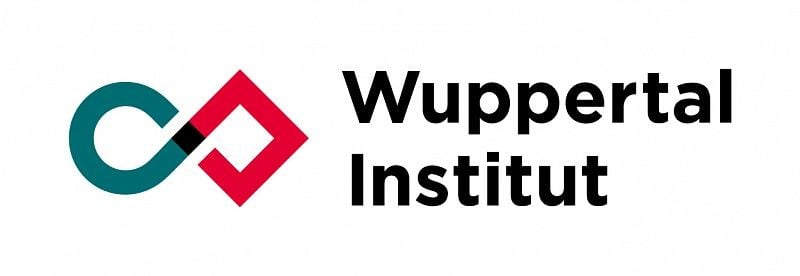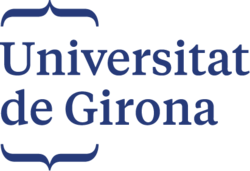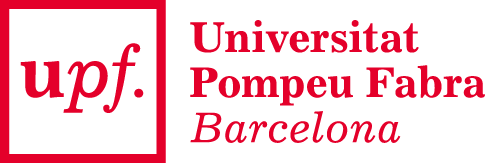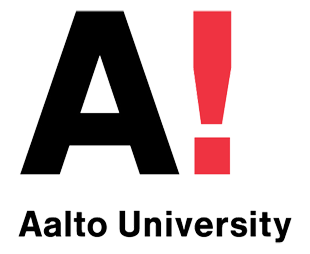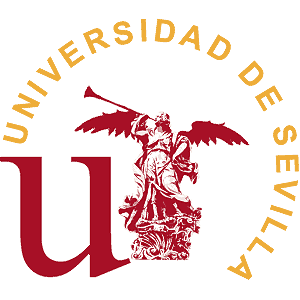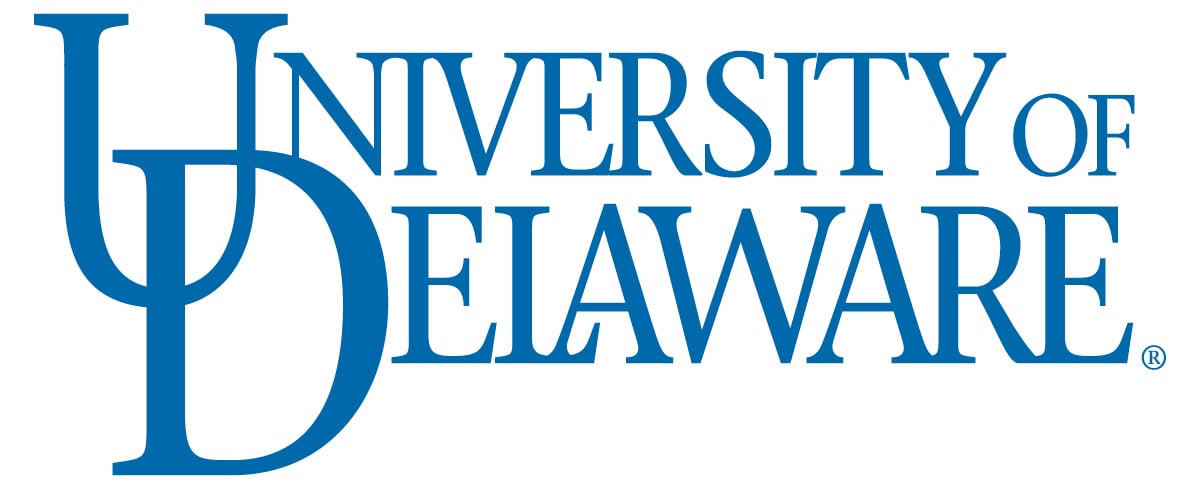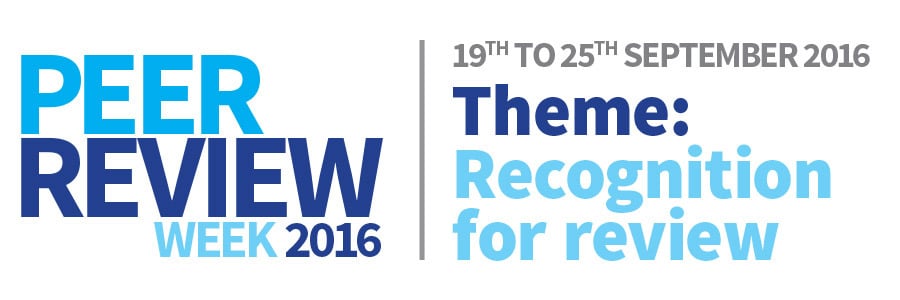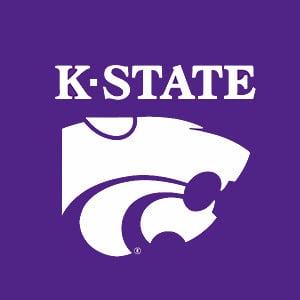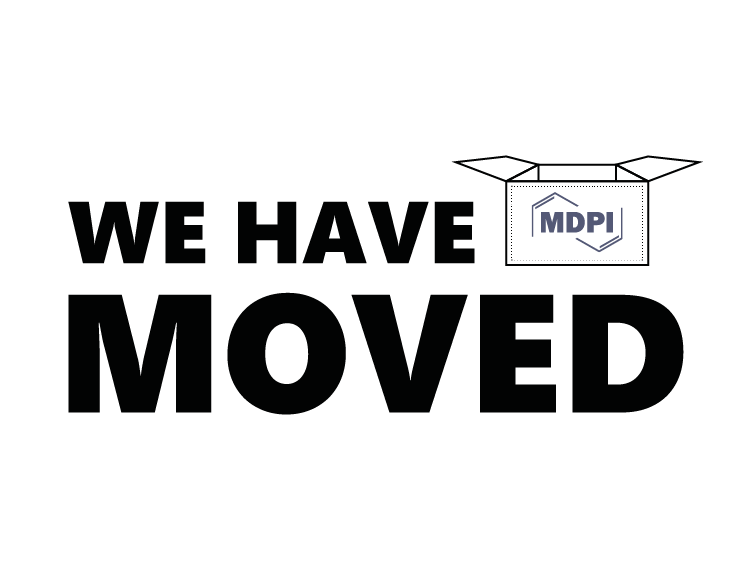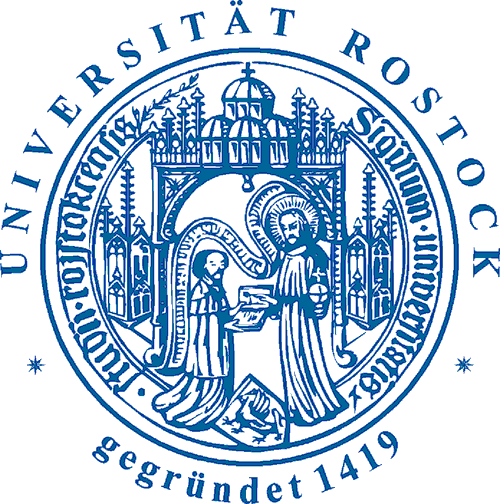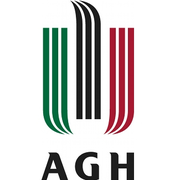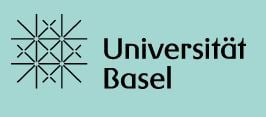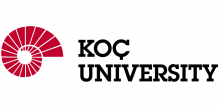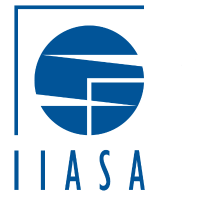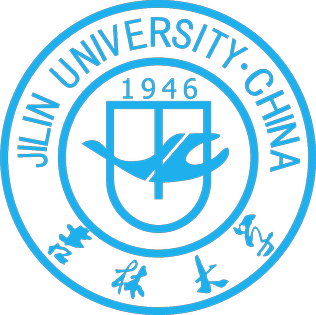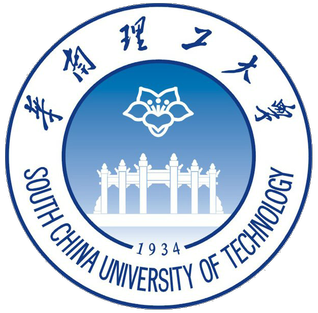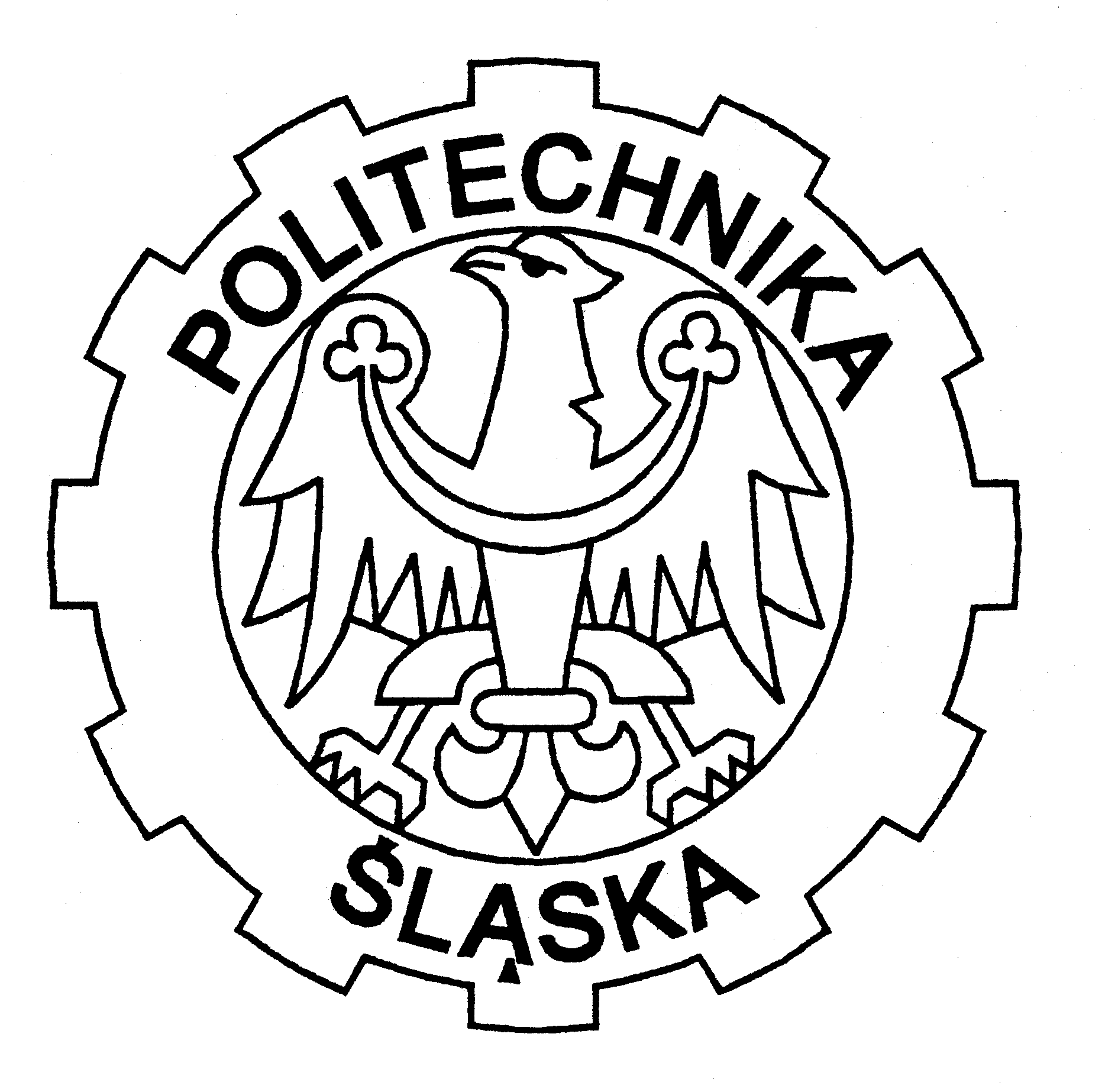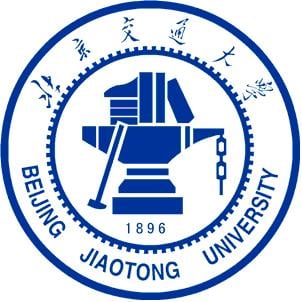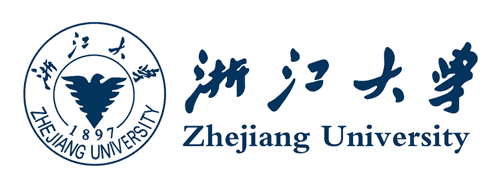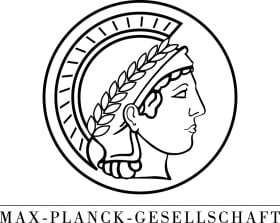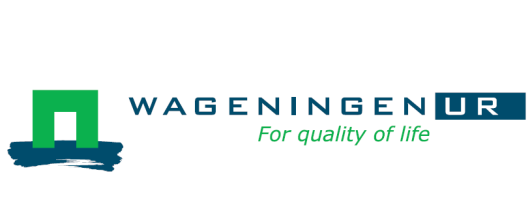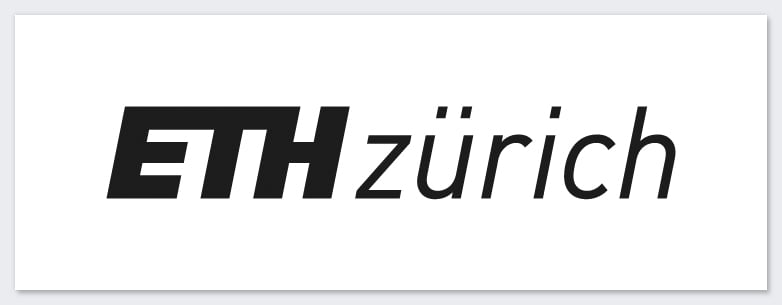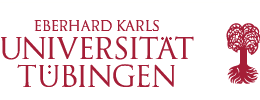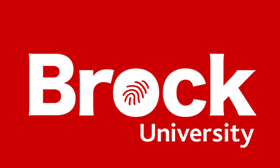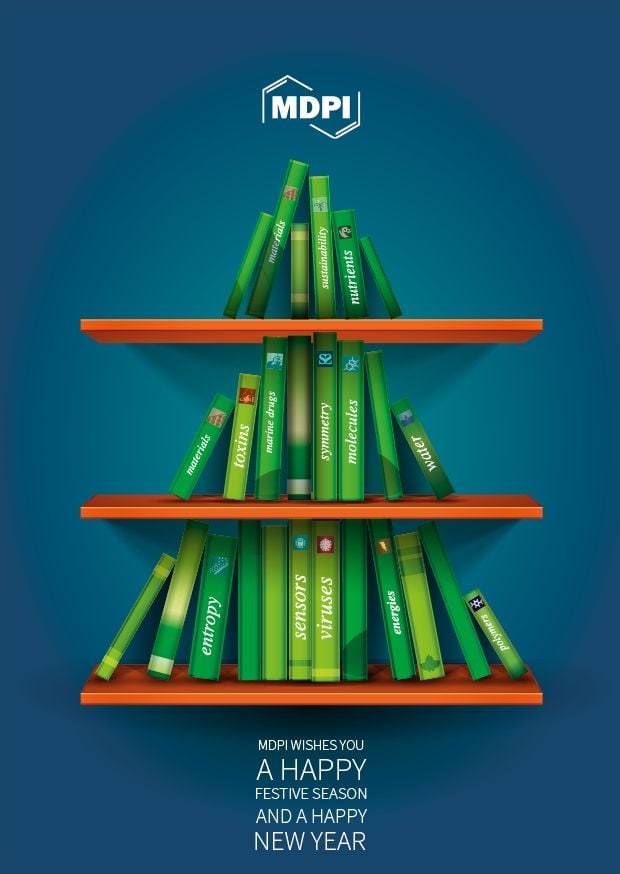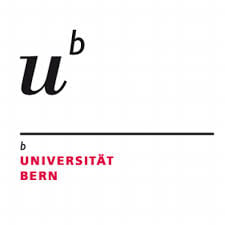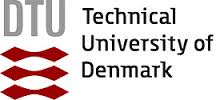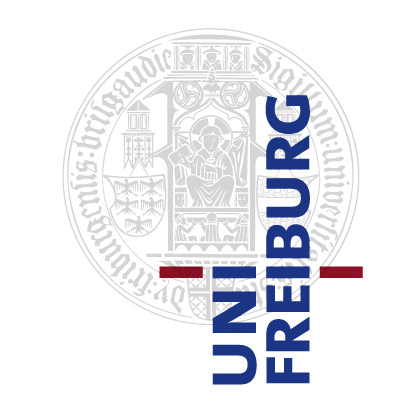
Journal Menu
► ▼ Journal Menu-
- Entropy Home
- Aims & Scope
- Editorial Board
- Reviewer Board
- Topical Advisory Panel
- Video Exhibition
- Instructions for Authors
- Special Issues
- Topics
- Sections & Collections
- Article Processing Charge
- Indexing & Archiving
- Editor’s Choice Articles
- Most Cited & Viewed
- Journal Statistics
- Journal History
- Journal Awards
- Society Collaborations
- Conferences
- Editorial Office
Journal Browser
► ▼ Journal Browser-
arrow_forward_ios
Forthcoming issue
arrow_forward_ios Current issue - Vol. 26 (2024)
- Vol. 25 (2023)
- Vol. 24 (2022)
- Vol. 23 (2021)
- Vol. 22 (2020)
- Vol. 21 (2019)
- Vol. 20 (2018)
- Vol. 19 (2017)
- Vol. 18 (2016)
- Vol. 17 (2015)
- Vol. 16 (2014)
- Vol. 15 (2013)
- Vol. 14 (2012)
- Vol. 13 (2011)
- Vol. 12 (2010)
- Vol. 11 (2009)
- Vol. 10 (2008)
- Vol. 9 (2007)
- Vol. 8 (2006)
- Vol. 7 (2005)
- Vol. 6 (2004)
- Vol. 5 (2003)
- Vol. 4 (2002)
- Vol. 3 (2001)
- Vol. 2 (2000)
- Vol. 1 (1999)
Need Help?
Announcements
2 April 2024
MDPI Insights: The CEO's Letter #10 - South Korea, IWD, U2A, Japan

Welcome to the MDPI Insights: The CEO's Letter.
In these monthly letters, I will showcase two key aspects of our work at MDPI: our commitment to empowering researchers and our determination to facilitating open scientific exchange.
Opening Thoughts

Left to right: Dr. Jisuk Kang (Scientific Officer, MDPI), Stefan Tochev (CEO, MDPI), and Dr. Giulia Stefenelli (Chair of Scientific Office Board, MDPI), during media meetings at Prain Agency office in Seoul, South Korea.
Visit to Seoul, South Korea
During my recent visit to South Korea, I had the privilege of meeting various stakeholders, including representatives of government, research institutions, and academia, to understand their needs and communicate MDPI’s commitment to accessible science. Accompanied by my colleagues Dr. Giulia Stefenelli and Dr. Jisuk Kang, I engaged with the Korean scientific community, which is increasingly embracing open access (OA).
As the leading OA publisher in South Korea, MDPI is trusted by local authors and in 2023 enjoyed an approximately 30% share of the OA market. South Korea ranks sixth globally for MDPI in terms of research papers submitted and published.
MDPI and South Korea by Numbers
As at 30 March, over 76,000 MDPI articles have been authored by individuals affiliated with Korean institutions. We have over 1,800 active editorial board members (EBMs) from South Korea, with more than 880 EBMs having an H-index between 26 and 50, including 10 serving as Chief Editors.
“South Korea is the sixth-largest contributor to our total publications”
Over the past five years (2019–2023), nearly 120,000 authors affiliated with South Korean institutes have published with MDPI. Specifically in 2023, we received approximately 25,000 submissions from South Korean authors, publishing close to 13,000 articles, resulting in a rejection rate of 47.4%, which is not far below MDPI’s overall rejection rate of 56.4% in 2023.
Institutional Partnerships with South Korea
I am pleased to share that MDPI has more than 825 institutional partnerships worldwide, with 12 in South Korea, including Kyunghee University, Chung-Ang University, and Inha University, among others.

Left to right: Dr. Jisuk Kang (Scientific Officer, MDPI), Dr. Giulia Stefenelli (Chair of Scientific Office Board, MDPI), and Stefan Tochev (CEO, MDPI) fielding media questions at Prain PR Agency office in Seoul, South Korea.
Over the past three years (2021–2023), we have had some of the most prestigious academic universities ranked among the top 10 Korean institutions publishing with MDPI. Seoul National University had the highest number of publications with MDPI during those three years, publishing nearly 6,000 papers. Universities such as Korea University and Yonsei University also rank among the top 10 Korean institutions publishing with MDPI.
MDPI Hosts Seminar for Academia and Media
As the world’s leading OA publisher, MDPI is actively democratizing science. This is reflected in the seminars we hosted on 21 March to address questions about our editorial processes and ethical standards. The visit garnered media coverage, reflecting our mission to providing high-quality services and fostering open dialogue in the community.
“MDPI is actively democratizing science”
MDPI in the News

Stefan Tochev (CEO, MDPI) leading a seminar on OA and MDPI at Prain PR Agency office in Seoul, South Korea.
Media coverage generated by our visit to Seoul included the following stories:
“Open access is an unstoppable trend…it will lead the development of the knowledge ecosystem.”
I greatly appreciate the contributions of everyone who took the time to meet with us, share their stories, and hold us accountable for continuing to provide high-quality publishing services while identifying areas for improvement. I am also excited to announce that we have opened an MDPI office in Seoul and will release a press release on MDPI.com, with details, by the end April 2024. The purpose of the office is to establish a local presence to connect with and support the South Korean academic community through institutional partnerships, conferences, author workshops, stakeholder communications, and more.
Impactful Research

Featured Articles on Women’s Leadership and Healthcare
In celebration of International Women’s Day (8 March 2024), MDPI curated a collection of research articles on various topics, including women’s leadership, reproductive health, preventive healthcare, and a selection of articles from our journal Women.
Women’s Leadership
- Women Entrepreneurship and Sustainable Development: Bibliometric Analysis and Emerging Research Trends
Sustainability 2022, 14, 9160. https://doi.org/10.3390/su14159160 - Refugee Women Business Mentors: New Evidence for Women’s Empowerment
Sustainability 2022, 14, 9154. https://doi.org/10.3390/su14159154 - Women and Leadership in Higher Education: A Systematic Review
Soc. Sci. 2023, 12, 555. https://doi.org/10.3390/socsci12100555 - Understanding Needs and Potentials for Gender-Balanced Empowerment and Leadership in Climate Change Adaptation and Mitigation in Africa
Sustainability 2022, 14, 9410. https://doi.org/10.3390/su14159410 - Challenges Women Experience in Leadership Careers: An Integrative Review
Merits 2023, 3, 366-389. https://doi.org/10.3390/merits3020021
Women’s Reproductive Health
- Recreational Female Athletes’ Understanding of and Perceived Impact of the Menstrual Cycle on Physical Performance, Mood, and Sleeping Behaviour
Women 2023, 3, 445-456. https://doi.org/10.3390/women3030034 - Difficulties in Adaptation of the Mother and Newborn via Cesarean Section versus Natural Birth—A Narrative Review
Life 2023, 13, 300. https://doi.org/10.3390/life13020300 - The Main Theories on the Pathogenesis of Endometriosis
Int. J. Mol. Sci. 2023, 24, 4254. https://doi.org/10.3390/ijms24054254
Women’s Preventive Healthcare
- Insulin Metabolism in Polycystic Ovary Syndrome: Secretion, Signaling, and Clearance
Int. J. Mol. Sci. 2023, 24, 3140. https://doi.org/10.3390/ijms24043140 - Assessing Barriers Encountered by Women in Cervical Cancer Screening and Follow-Up Care in Urban Bolivia, Cochabamba
Healthcare 2022, 10, 1604. https://doi.org/10.3390/healthcare10091604 - Updates on HPV Vaccination
Diagnostics 2023, 13, 243. https://doi.org/10.3390/diagnostics13020243
Featured Articles in MDPI Journal Women
Below are a few articles from Women, our journal focused on women’s health, the social determinants of health, and the healthcare system that serves women. The aim of Women is to encourage academics to publish their experimental and theoretical results in detail, to aid reproducibility, and in an engaging style, to aid comprehensibility.
- Premenstrual Syndrome and Exercise: A Narrative Review
Women 2023, 3, 348-364. https://doi.org/10.3390/women3020026 - Increasing Awareness of the Human Papillomavirus (HPV) Vaccine for Women 18–45 Years of Age
Women 2023, 3, 365-373. https://doi.org/10.3390/women3030027 - Addressing Women’s Needs with Human Immunodeficiency Virus (HIV) and Enhancing the Visibility of Pharmacists in the Public Health Arena
Women 2022, 2, 346-352. https://doi.org/10.3390/women2040032
Inside MDPI

Championing Women’s Healthcare and Access to Healthcare Information
MDPI colleagues from our offices joined in celebrating #IWD2024. In doing so, we emphasized key missions that encompass:
- Empowering women to assume leadership and decision-making roles in both business and science.
- Helping women and girls make informed decisions about their health.
- Recruiting and developing female talent and fostering inclusive workplace environments.
“We are thrilled to recognize the accomplishments of women scientists”
I am proud to see our colleagues enthusiastically supporting the International Women’s Day call to ‘Inspire Inclusion!’ The heart-hands in the collage below symbolize our appreciation of the achievements of women researchers and the recognition of the trailblazers who have courageously made a mark on societies past and present.

We are thrilled to recognize the accomplishments of women scientists through our many MDPI awards and by highlighting success stories. As inspirational figures, female scientists are paving the way for the next generation of women aspiring to pursue careers in engineering, life sciences, computing, and various other STEM fields.
“I consider myself lucky because I work with incredibly talented women who inspire me every day.”
– Dr. Alessandra Pasut, Winner of MDPI's ‘Biology 2023 Young Investigator Award’
“It’s really important to find a supportive and enabling environment in which to do your science; it would have a big impact on you as a person and on your scientific outputs.”
– Dr. Rhea Longley, Winner of the ‘Pathogens 2023 Young Investigator Award’
Open-access publishing, in particular, allows early-career women researchers to share their work more widely, potentially attracting mentorship opportunities and collaborations. This support is crucial for career development and advancement.
Coming Together for Science

MDPI Joins United2Act in Collective Fight to Stop Paper Mills
In my February 2024 CEO Letter, I highlighted some of our recent initiatives aimed at bolstering our commitment to research integrity, including joining the STM Integrity Hub and expanding our Research Integrity and Publication Ethics team (RIPE). Continuing our efforts in coming together for science, I am pleased to share our participation in the United2Act initiative.
The text below is taken from our official announcement:
United2Act represents an international group of stakeholders in the publishing industry committed to addressing the collective challenge posed to research integrity by paper mills.
Scientists and academic publishers have increasingly noted the alarming proliferation of paper mills, recognized as fraudulent entities seeking to manipulate the publication process for financial profit. These entities engage in fraudulent practices such as falsifying or fabricating data, selling co-authorship of fake papers, manipulating peer review, and including inappropriate citations. These actions pose a significant threat to the integrity of the scholarly record, prompting widespread concern among those involved in the academic community.
MDPI has been actively contributing to combat the undermining of the scientific record. Our editors employ a set of tools to detect potential ethical breaches within a manuscript and to tackle the issue of fake papers.
United2Act’s consensus statement is the outcome of a virtual summit held in May 2023. It involved the participation of research bodies, publishers, researchers/sleuths, universities, and publishing infrastructure from 15 countries and resulted in a Consensus Statement outlining five key areas of action for all stakeholders:
- Education and awareness
- Improve post-publication corrections
- Facilitate and organise research on paper mills
- Enable the development of trust markers
- Facilitate dialogue between stakeholders
MDPI is committed to promoting transparency and integrity in scholarly publishing and is continuing to work closely with the scientific community toward this goal.
Closing Thoughts

Left to right: Ryo Hirayama (Marketing Specialist, MDPI), Takashi Sasabe (Marketing Specialist, MDPI), Dr. Giulia Stefenelli (Chair of Scientific Office Board, MDPI), Dr. Izumi Yamamoto (Marketing Manager, MDPI), and Stefan Tochev (CEO, MDPI), at MDPI’s office in Tokyo, Japan.
Visit to Tokyo and Kyoto, Japan
In March, I had the opportunity to visit our Tokyo office and engage with stakeholders in Tokyo and Kyoto. During the visit, I also recorded a video message to welcome Japanese scholars working with MDPI and to highlight our operations in Japan.
We held meetings with Editors-in-Chief, librarians, scholars, and external consultants to gather feedback on our efforts to enhance our reputation and explore additional steps we can take in that direction. Japan's rich cultural heritage, characterized by tradition, respect, and formality, provided valuable insights into meeting the publishing needs specific to Japan.
Japan’s Open Access statistics
Over the years, we have seen a shift from subscription-only to gold OA publishing in Japan, despite the lack of an official mandate. Here are some statistics:
- 2012: 68% of articles were subscription-only, 6% were green Open Access, and 8% were gold Open Access.
- 2016: 55% of articles were subscription-only, 6% were green Open Access, and 20% were gold Open Access.
- 2022: 43% of articles were subscription-only, 7% were green Open Access, and 39% were gold Open Access.
To learn more about the history of OA in Japan as well as about future trends, please read this blog post.
“Japan is the ninth-largest contributor to our total publications”

Left to right: Stefan Tochev (CEO, MDPI), Dr. Izumi Yamamoto (Marketing Manager, MDPI), and Dr. Giulia Stefenelli (Chair of Scientific Office Board, MDPI) visiting Kyoto University in Kyoto, Japan.
MDPI and Japan by Numbers
As at 1 April, over 50,000 MDPI articles have been authored by scholars affiliated with Japanese institutions, making the country the ninth-largest contributor to our total publications. Over the past three years (2020–2023), nearly 90,000 authors affiliated with Japanese institutes have published with MDPI, and we have collaborated with over 4,600 Guest Editors from Japan.
In 2023, we published over 8,200 papers from authors associated with Japanese institutions. MDPI collaborates with 41 institutional partnerships in Japan, including the University of Tokyo, Hokkaido University, and Nagoya University. We have over 2,100 active EBMs from Japan, more than 1,050 EBMs having an H-index between 26 and 50, including 13 serving as Editors-in-Chief.
General Feedback – a side note
A general takeaway from our discussions with stakeholders from around the world is that negative perceptions of MDPI often stem from misinformation, misconceptions, or misunderstandings about MDPI and our practices. While we acknowledge our mistakes and work diligently to address them, maintaining a strong editorial procedure and robust peer-review process, I find that educating stakeholders about our how we do what we do and our ongoing improvements tends to help shift opinions.
That said, we recognize the importance of addressing individual concerns. We take feedback seriously and are continuously working to get better while not compromising the core principles that millions of authors appreciate about MDPI.
Chief Executive Officer
MDPI AG
25 March 2024
Prof. Dr. Miguel Rubi Appointed Section Editor-in-Chief of Section “Thermodynamics” in Entropy
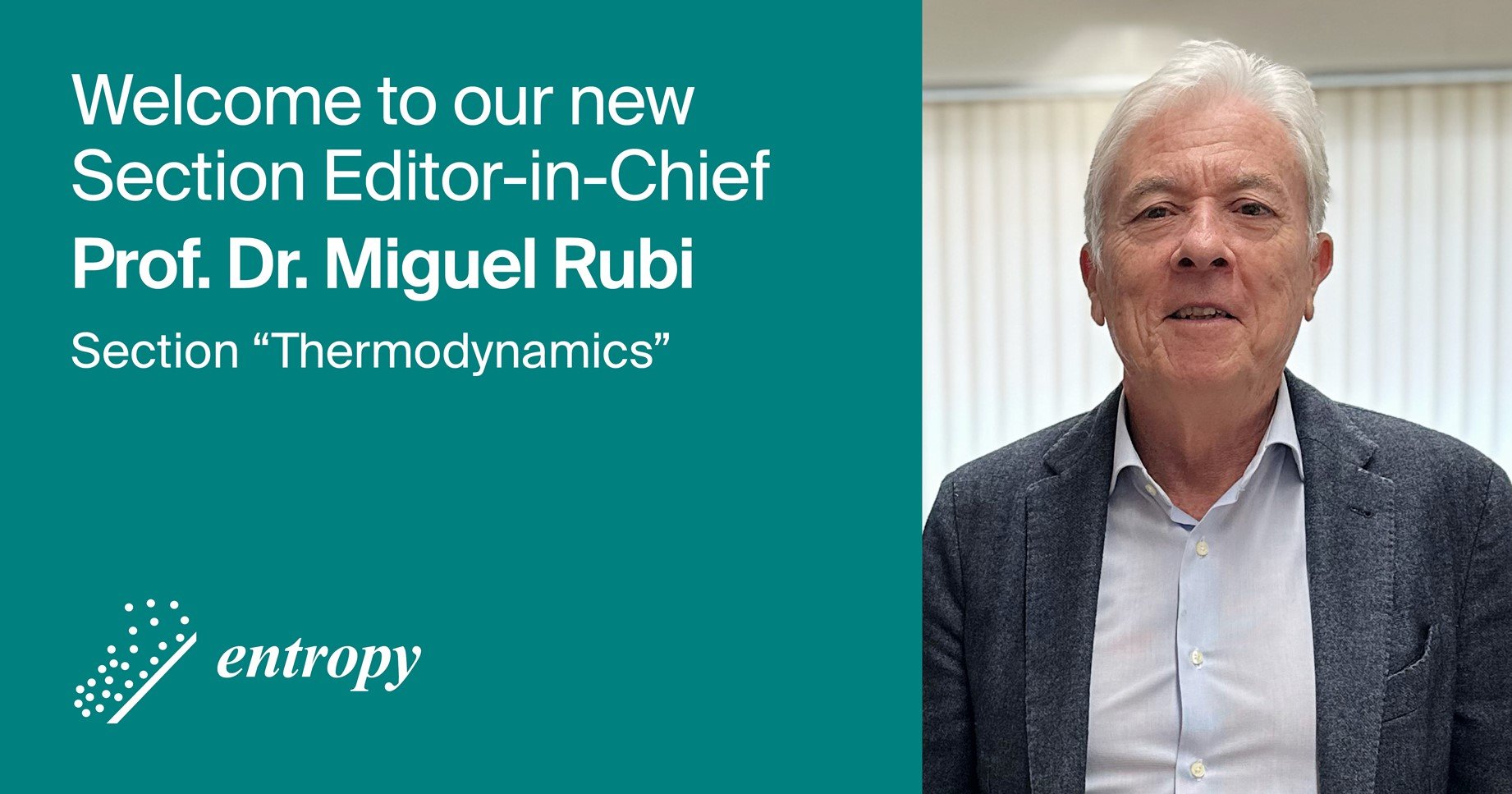
We are pleased to announce that Prof. Dr. Miguel Rubi, a professor at the University of Barcelona, Spain, has been appointed Section Editor-in-Chief of the Section “Thermodynamics” in Entropy (ISSN: 1099-4300).
In 2003, the Alexander von Humboldt Foundation awarded Prof. Dr. Rubi the von Humboldt Prize, and in 2003, the University of Trondheim awarded him the Onsager Medal. He was appointed CAS Fellow 2007/2008 by the Centre for Advanced Study at the Norwegian Academy of Sciences and Letters. In 2010, the Institució Catalana de Recerca i Estudis awarded him an ICREA Prize. He has been appointed Onsager Professor at the University of Trondheim, Sandoval Vallarta Professor at UAM, Marcos Moshinsky Professor at UNAM, and Institute of Physics Professor at San Luis Potosí of Mexico. In 2012 and 2013, he was a Visiting Professor at CETHIL-INSA, Lyon, and in 2014, he was a Visiting Professor at L’École Polytechnique, Paris. Prof. Dr. Rubi was appointed Leverhulme Professor at Imperial College, London, in 2013–2014. In 2016, the Norwegian University of Science and Technology NTNU awarded him the degree of Doctor Honoris Causa. In 2017, the Jagiellonian University at Krakow awarded him the ’Plus Ratio Quam Vis Medal’.
The following is a Q&A with Prof. Dr. Miguel Rubi, who shared his vision for the journal with us, as well as his views of the research area and open access publishing:
1. What aspects of the journal appealed to you and motivated you to accept the role of Section Editor-in-Chief?
Several aspects of the journal motivated me to accept the role of Section Editor-in-Chief. I was drawn to the journal's interdisciplinary approach, which enables the exploration of diverse topics and perspectives. Furthermore, I was excited about the opportunity to contribute to the editorial process and help shape the direction of the journal. Finally, I was impressed by the journal's commitment to fostering collaboration and dialogue within the research community, and I saw the role of Section Editor-in-Chief as a means to further facilitate these connections. Overall, I believe that my background and expertise align well with the goals and vision of the journal, and I am enthusiastic about the opportunity to serve in this capacity. My research interests are in the field of non-equilibrium statistical physics and its application in biology and nanoscience.
2. What is your vision for the Section “Thermodynamics”, and what goals would you like to achieve during your tenure?
My vision for the Section “Thermodynamics” is to create a dynamic platform that serves as a hub for cutting-edge research and innovation in the field of thermodynamics. During my tenure, I aim to achieve several goals:
- Promote Interdisciplinary Research: I intend to encourage interdisciplinary collaborations and foster dialogue between researchers from various disciplines. By promoting interdisciplinary research, we can explore new frontiers and address complex challenges in thermodynamics;
- Enhance Visibility and Impact: I strive to elevate the visibility and impact of the “Thermodynamics” Section by attracting high-quality submissions and publishing innovative and influential research articles. By maintaining rigorous editorial standards and providing timely and constructive feedback to authors, we can ensure the publication of impactful research that advances the field;
- Foster diversity and inclusivity: I am committed to fostering diversity and inclusivity within the Section by actively seeking contributions from researchers with diverse backgrounds and perspectives. By embracing diversity, we can enrich the scientific discourse and foster a more inclusive research community;
- Engage with the Research Community: I plan to actively engage with the research community through various channels, including social media, conferences, and workshops. By fostering open communication and collaboration, we can build a strong research community that drives innovation and advances our understanding of thermodynamics.
Overall, my goal for the Section is to create an inclusive and forward-thinking environment that fosters collaboration, innovation, and excellence in thermodynamics research. I look forward to working with authors, reviewers, and Editorial Board Members to achieve these goals and elevate the “Thermodynamics” Section to new heights.
3. In your opinion, what does the future of research in this field look like, and what emerging trends do you anticipate?
The future of research in the field of thermodynamics holds exciting possibilities, with several emerging trends. One prominent trend is the increasing integration of thermodynamics with other scientific disciplines. This interdisciplinary approach is enabling researchers to explore complex phenomena at the intersection of multiple fields, leading to new insights and discoveries.
Additionally, there is a growing focus on nanoscale and mesoscale thermodynamics, driven by advancements in nanotechnology and materials science. Researchers are investigating the thermodynamic properties of nanomaterials, nanofluids, and nanostructures, as well as exploring their potential applications in energy conversion and thermal management.
Furthermore, sustainable energy technologies are becoming increasingly important in thermodynamics research, as the world seeks to address climate change and reduce reliance on fossil fuels. This includes the development of efficient and renewable energy sources, such as solar and wind power, as well as the optimization of energy storage and conversion systems.
Another emerging trend is the exploration of thermodynamics in non-equilibrium systems, where traditional thermodynamic principles may not apply. Researchers are studying the thermodynamics of far-from-equilibrium systems, such as biological processes, active matter, and quantum systems, and developing new theoretical frameworks to describe their behavior.
Overall, the future of research in thermodynamics promises to be dynamic and multidisciplinary, with continued advancements in nanotechnology, sustainable energy, and non-equilibrium thermodynamics. By embracing these emerging trends and fostering collaboration across disciplines, researchers can address complex challenges and drive innovation in the field.
4. How do you perceive the development and impact of open access in the publishing field?
I perceive the development and impact of open access in the field of thermodynamics to be highly beneficial. Open access publishing has democratized access to scientific knowledge by removing financial barriers and allowing researchers from around the world to freely access and share research findings. This has led to the greater dissemination of research results, increased collaboration among researchers, and accelerated the pace of scientific discovery in thermodynamics.
Furthermore, open access publishing has enhanced the visibility and impact of research in thermodynamics by making it more accessible to a wider audience. This increased visibility could lead to the greater recognition and citation of research articles, ultimately advancing the careers of researchers and promoting the advancement of the field.
Moreover, open access publishing promotes transparency and reproducibility in scientific research by making research articles freely available for scrutiny and verification by the scientific community. This helps to ensure the integrity and reliability of research findings in thermodynamics and fosters trust in the scientific process.
Prof. Dr. Miguel Rubi joined the Entropy Editorial Board in 2016. We wish him every success in his new position and look forward to his contributions to the journal.
22 March 2024
Entropy 2023 Outstanding Reviewer Award—Winners Announced
We are pleased to announce the winners of the Entropy 2023 Outstanding Reviewer Award. The Entropy Editorial Board and editorial team would like to gratefully acknowledge the time and energy dedicated by reviewers in checking the manuscripts submitted to Entropy (ISSN: 1099-4300). It is due to their efforts that the high quality of the journal and quick turnaround are maintained.
Name: Prof. Dr. Dennis Dieks
Affiliation: History and Philosophy of Science, Utrecht University, Utrecht, the Netherlands
Research Interests: philosophy of physics; foundations of quantum mechanics; philosophy of space and time; probability; philosophy of science
Name: Prof. Dr. Laszlo Csirmaz
Affiliation: Institute of Information Theory and Automation, Prague, Czech Republic
Research Interests: cryptography; combinatorics; entropy; mathematical logic
Name: Prof. Dr. Alberto Porta
Affiliations: 1Department of Biomedical Sciences for Health, University of Milan, Milan, Italy
2Department of Cardiothoracic, Vascular Anesthesia and Intensive Care, IRCCS Policlinico San Donato, Milan, Italy
Research Interests: time series analysis; cardiovascular control; complexity
Name: Prof. Dr. Themis Matsoukas
Affiliation: Department of Chemical Engineering, Pennsylvania State University, University Park, PA, USA
Research Interests: statistical thermodynamics; population balances and their application to multicomponent systems; deterministic and stochastic simulation of particulate processes; clustering and fragmentation on discrete graphs; statistical mechanics of stochastic processes; nanocolloids and aerosols
Name: Dr. Marco Favretti
Affiliation: Dipartimento di Matematica “Tullio Levi-Civita”, Università degli Studi di Padova, Padova, Italy
Research Interests: maximum entropy principle; statistical ecology; geometric control theory and nonholonomic mechanics
The prize for each winner:
- CHF 500;
- An opportunity to publish a paper with a 50% discount on the APC in Entropy in 2024 after peer review;
- A certificate.
Entropy Editorial Office
20 March 2024
Entropy | Invitation to Read the Newly Selected Papers from the Editor’s Choice Articles
It is our pleasure to invite you to read the newly selected papers from the Editor’s Choice Articles. We have selected six of these papers to display here. The paper list is as follows:
“Applying Hybrid ARIMA-SGARCH in Algorithmic Investment Strategies on S&P500 Index”
by Nguyen Vo and Robert Ślepaczuk
Entropy 2022, 24(2), 158; https://doi.org/10.3390/e24020158
Available online: https://www.mdpi.com/1099-4300/24/2/158
“Recasting the (Synchrosqueezed) Short-Time Fourier Transform as an Instantaneous Spectrum”
by Steven Sandoval and Phillip L. De Leon
Entropy 2022, 24(4), 518; https://doi.org/10.3390/e24040518
Available online: https://www.mdpi.com/1099-4300/24/4/518
“The Free Energy Principle for Perception and Action: A Deep Learning Perspective”
by Pietro Mazzaglia, Tim Verbelen, Ozan Çatal and Bart Dhoedt
Entropy 2022, 24(2), 301; https://doi.org/10.3390/e24020301
Available online: https://www.mdpi.com/1099-4300/24/2/301
“Metacognition as a Consequence of Competing Evolutionary Time Scales”
by Franz Kuchling, Chris Fields and Michael Levin
Entropy 2022, 24(5), 601; https://doi.org/10.3390/e24050601
Available online: https://www.mdpi.com/1099-4300/24/5/601
“Sample, Fuzzy and Distribution Entropies of Heart Rate Variability: What Do They Tell Us on Cardiovascular Complexity?”
by Paolo Castiglioni, Giampiero Merati, Gianfranco Parati and Andrea Faini
Entropy 2023, 25(2), 281; https://doi.org/10.3390/e25020281
Available online: https://www.mdpi.com/1099-4300/25/2/281
“Power-Optimal Control of a Stirling Engine's Frictional Piston Motion”
by Raphael Paul, Abdellah Khodja, Andreas Fischer, Robin Masser and Karl Heinz Hoffmann
Entropy 2022, 24(3), 362; https://doi.org/10.3390/e24030362
Available online: https://www.mdpi.com/1099-4300/24/3/362
We would like to take this opportunity to thank all the research groups that submitted these exceptional papers for their contributions to Entropy (ISSN: 1099-4300). We would greatly appreciate it if you could circulate this document among your colleagues or through your network.
If you would like to learn more about the contributions published in the Editor’s Choice Articles, please visit the following link: https://www.mdpi.com/journal/entropy/editors_choice.
20 March 2024
Entropy | Newly Selected Papers from the Editor’s Choice Articles in the Sections “Complexity” and “Multidisciplinary Applications”
It is our pleasure to invite you to read the newly selected papers from the Editor’s Choice Articles. The papers from the Sections “Complexity” and “Multidisciplinary Applications” are listed below:
“Unraveling Hidden Major Factors by Breaking Heterogeneity into Homogeneous Parts within Many-System Problems”
by Elizabeth P. Chou, Ting-Li Chen and Hsieh Fushing
Entropy 2022, 24(2), 170; https://doi.org/10.3390/e24020170
Available online: https://www.mdpi.com/1099-4300/24/2/170
“Nonequilibrium Thermodynamics of Polymeric Liquids via Atomistic Simulation”
by Brian Joseph Edwards, Mohammad Hadi Nafar Sefiddashti and Bamin Khomami
Entropy 2022, 24(2), 175; https://doi.org/10.3390/e24020175
Available online: https://www.mdpi.com/1099-4300/24/2/175
“Stochastic Hydrodynamics of Complex Fluids: Discretisation and Entropy Production”
by Michael E. Cates, Étienne Fodor, Tomer Markovich, Cesare Nardini and Elsen Tjhung
Entropy 2022, 24(2), 254; https://doi.org/10.3390/e24020254
Available online: https://www.mdpi.com/1099-4300/24/2/254
“The Cross-Sectional Intrinsic Entropy-A Comprehensive Stock Market Volatility Estimator”
by Claudiu Vințe and Marcel Ausloos
Entropy 2022, 24(5), 623; https://doi.org/10.3390/e24050623
Available online: https://www.mdpi.com/1099-4300/24/5/623
“Elastic Entropic Forces in Polymer Deformation”
by Vladimir I. Kartsovnik and Dimitri Volchenkov
Entropy 2022, 24(9), 1260; https://doi.org/10.3390/e24091260
Available online: https://www.mdpi.com/1099-4300/24/9/1260
“Information Field Theory and Artificial Intelligence”
by Torsten Enßlin
Entropy 2022, 24(3), 374; https://doi.org/10.3390/e24030374
Available online: https://www.mdpi.com/1099-4300/24/3/374
“Causal Inference in Time Series in Terms of Renyi Transfer Entropy”
by Petr Jizba, Hynek Lavička and Zlata Tabachová
Entropy 2022, 24(7), 855; https://doi.org/10.3390/e24070855
Available online: https://www.mdpi.com/1099-4300/24/7/855
“Decoding "Maximum Entropy" Deconvolution”
by Long V. Le, Tae Jung Kim, Young Dong Kim and David E. Aspnes
Entropy 2022, 24(9), 1238; https://doi.org/10.3390/e24091238
Available online: https://www.mdpi.com/1099-4300/24/9/1238
“Dependency Structures in Cryptocurrency Market from High to Low Frequency”
by Antonio Briola and Tomaso Aste
Entropy 2022, 24(11), 1548; https://doi.org/10.3390/e24111548
Available online: https://www.mdpi.com/1099-4300/24/11/1548
“COVID-19 Effects on the Relationship between Cryptocurrencies: Can It Be Contagion? Insights from Econophysics Approaches”
by Dora Almeida, Andreia Dionísio, Isabel Vieira and Paulo Ferreira
Entropy 2023, 25(1), 98; https://doi.org/10.3390/e25010098
Available online: https://www.mdpi.com/1099-4300/25/1/98
“Fundamental Relation for Gas of Interacting Particles in a Heat Flow”
by Robert Hołyst, Karol Makuch, Konrad Giżyński, Anna Maciołek and Paweł J. Żuk
Entropy 2023, 25(9), 1295; https://doi.org/10.3390/e25091295
Available online: https://www.mdpi.com/1099-4300/25/9/1295
We would like to take this opportunity to thank all the research groups that submitted these exceptional papers for their contributions to Entropy (ISSN: 1099-4300). We would greatly appreciate it if you could circulate this document among your colleagues or through your network.
If you would like to learn more about the contributions published in the Editor’s Choice Articles, please visit the following link: https://www.mdpi.com/journal/entropy/editors_choice.
20 March 2024
Entropy | Newly Selected Papers from the Editor’s Choice Articles in the Section “Quantum Information”
It is our pleasure to invite you to read the newly selected papers from the “Editor’s Choice Articles”. The papers from the Section “Quantum Information” are listed below:
“Correlations, Information Backflow, and Objectivity in a Class of Pure Dephasing Models”
by Nina Megier, Andrea Smirne, Steve Campbell and Bassano Vacchini
Entropy 2022, 24(2), 304; https://doi.org/10.3390/e24020304
Available online: https://www.mdpi.com/1099-4300/24/2/304
“Quantum Coherences and Classical Inhomogeneities as Equivalent Thermodynamics Resources”
by Andrew Smith, Kanupriya Sinha and Christopher Jarzynski
Entropy 2022, 24(4), 474; https://doi.org/10.3390/e24040474
Available online: https://www.mdpi.com/1099-4300/24/4/474
“Quantum Non-Markovian Environment-to-System Backflows of Information: Nonoperational vs. Operational Approaches”
by Adrián A. Budini
Entropy 2022, 24(5), 649; https://doi.org/10.3390/e24050649
Available online: https://www.mdpi.com/1099-4300/24/5/649
“Effective Field Theory of Random Quantum Circuits”
by Yunxiang Liao and Victor Galitski
Entropy 2022, 24(6), 823; https://doi.org/10.3390/e24060823
Available online: https://www.mdpi.com/1099-4300/24/6/823
“Critical Quantum Metrology in the Non-Linear Quantum Rabi Model”
by Zu-Jian Ying, Simone Felicetti, Gang Liu and Daniel Braak
Entropy 2022, 24(8), 1015; https://doi.org/10.3390/e24081015
Available online: https://www.mdpi.com/1099-4300/24/8/1015
“Pseudoclassical Dynamics of the Kicked Top”
by Zhixing Zou and Jiao Wang
Entropy 2022, 24(8), 1092; https://doi.org/10.3390/e24081092
Available online: https://www.mdpi.com/1099-4300/24/8/1092
““Yet Once More”: The Double-Slit Experiment and Quantum Discontinuity”
by Arkady Plotnitsky
Entropy 2022, 24(10), 1455; https://doi.org/10.3390/e24101455
Available online: https://www.mdpi.com/1099-4300/24/10/1455
“Universal Single-Mode Lasing in Fully Chaotic Billiard Lasers”
by Mengyu You, Daisuke Sakakibara, Kota Makino, Yonosuke Morishita, Kazutoshi Matsumura, Yuta Kawashima, Manao Yoshikawa, Mahiro Tonosaki, Kazutaka Kanno, Atsushi Uchida et al.
Entropy 2022, 24(11), 1648; https://doi.org/10.3390/e24111648
Available online: https://www.mdpi.com/1099-4300/24/11/1648
“Quantum Coherence in Loopless Superconductive Networks”
by Massimiliano Lucci, Valerio Campanari, Davide Cassi, Vittorio Merlo, Francesco Romeo, Gaetano Salina and Matteo Cirillo
Entropy 2022, 24(11), 1690; https://doi.org/10.3390/e24111690
Available online: https://www.mdpi.com/1099-4300/24/11/1690
“Canonical Density Matrices from Eigenstates of Mixed Systems”
by Mahdi Kourehpaz, Stefan Donsa, Fabian Lackner, Joachim Burgdörfer and Iva Březinová
Entropy 2022, 24(12), 1740; https://doi.org/10.3390/e24121740
Available online: https://www.mdpi.com/1099-4300/24/12/1740
“Chaos and Thermalization in the Spin-Boson Dicke Model”
by David Villaseñor, Saúl Pilatowsky-Cameo, Miguel A. Bastarrachea-Magnani, Sergio Lerma-Hernández, Lea F. Santos and Jorge G. Hirsch
Entropy 2023, 25(1), 8; https://doi.org/10.3390/e25010008
Available online: https://www.mdpi.com/1099-4300/25/1/8
“Entanglement-Assisted Quantum Codes from Cyclic Codes”
by Francisco Revson F. Pereira and Stefano Mancini
Entropy 2023, 25(1), 37; https://doi.org/10.3390/e25010037
Available online: https://www.mdpi.com/1099-4300/25/1/37
“Quantum Chaos in the Dynamics of Molecules”
by Kazuo Takatsuka
Entropy 2023, 25(1), 63; https://doi.org/10.3390/e25010063
Available online: https://www.mdpi.com/1099-4300/25/1/63
“Extreme Eigenvalues and the Emerging Outlier in Rank-One Non-Hermitian Deformations of the Gaussian Unitary Ensemble”
by Yan V. Fyodorov, Boris A. Khoruzhenko and Mihail Poplavskyi
Entropy 2023, 25(1), 74; https://doi.org/10.3390/e25010074
Available online: https://www.mdpi.com/1099-4300/25/1/74
“Invariant-Parameterized Exact Evolution Operator for SU(2) Systems with Time-Dependent Hamiltonian”
by Hiromichi Nakazato, Alessandro Sergi, Agostino Migliore and Antonino Messina
Entropy 2023, 25(1), 96; https://doi.org/10.3390/e25010096
Available online: https://www.mdpi.com/1099-4300/25/1/96
“Quantum Bounds on the Generalized Lyapunov Exponents”
by Silvia Pappalardi and Jorge Kurchan
Entropy 2023, 25(2), 246; https://doi.org/10.3390/e25020246
Available online: https://www.mdpi.com/1099-4300/25/2/246
“Toward Prediction of Financial Crashes with a D-Wave Quantum Annealer”
by Yongcheng Ding, Javier Gonzalez-Conde, Lucas Lamata, José D. Martín-Guerrero, Enrique Lizaso, Samuel Mugel, Xi Chen, Román Orús, Enrique Solano and Mikel Sanz
Entropy 2023, 25(2), 323; https://doi.org/10.3390/e25020323
Available online: https://www.mdpi.com/1099-4300/25/2/323
“Quantum Chaos and Level Dynamics”
by Jakub Zakrzewski
Entropy 2023, 25(3), 491; https://doi.org/10.3390/e25030491
Available online: https://www.mdpi.com/1099-4300/25/3/491
We would like to take this opportunity to thank all the research groups that submitted these exceptional papers for their contributions to Entropy (ISSN: 1099-4300). We would greatly appreciate it if you could circulate this document among your colleagues or through your network.
If you would like to learn more about the contributions published in the Editor’s Choice Articles, please visit the following link: https://www.mdpi.com/journal/entropy/editors_choice.
20 March 2024
Entropy | Newly Selected Papers from the Editor’s Choice Articles in the Section “Information Theory, Probability and Statistics”
It is our pleasure to invite you to read the newly selected papers from the Editor’s Choice Articles. The papers from the Section “Information Theory, Probability and Statistics” are listed below:
“Information Inequalities via Submodularity and a Problem in Extremal Graph Theory”
by Igal Sason
Entropy 2022, 24(5), 597; https://doi.org/10.3390/e24050597
Available online: https://www.mdpi.com/1099-4300/24/5/597
“Robust Test Statistics Based on Restricted Minimum Rényi’s Pseudodistance Estimators”
by María Jaenada, Pedro Miranda and Leandro Pardo
Entropy 2022, 24(5), 616; https://doi.org/10.3390/e24050616
Available online: https://www.mdpi.com/1099-4300/24/5/616
“Revealing the Dynamics of Neural Information Processing with Multivariate Information Decomposition”
by Ehren L. Newman, Thomas F. Varley, Vibin K. Parakkattu, Samantha P. Sherrill and John M. Beggs
Entropy 2022, 24(7), 930; https://doi.org/10.3390/e24070930
Available online: https://www.mdpi.com/1099-4300/24/7/930
“Information Theoretic Methods for Variable Selection—A Review”
by Jan Mielniczuk
Entropy 2022, 24(8), 1079; https://doi.org/10.3390/e24081079
Available online: https://www.mdpi.com/1099-4300/24/8/1079
“Monte Carlo Simulation of Stochastic Differential Equation to Study Information Geometry”
by Abhiram Anand Thiruthummal and Eun-jin Kim
Entropy 2022, 24(8), 1113; https://doi.org/10.3390/e24081113
Available online: https://www.mdpi.com/1099-4300/24/8/1113
“Assessing, Testing and Estimating the Amount of Fine-Tuning by Means of Active Information”
by Daniel Andrés Díaz-Pachón and Ola Hössjer
Entropy 2022, 24(10), 1323; https://doi.org/10.3390/e24101323
Available online: https://www.mdpi.com/1099-4300/24/10/1323
“Information Theory for Biological Sequence Classification: A Novel Feature Extraction Technique Based on Tsallis Entropy”
by Robson P. Bonidia, Anderson P. Avila Santos, Breno L. S. de Almeida, Peter F. Stadler, Ulisses Nunes da Rocha, Danilo S. Sanches and André C. P. L. F. de Carvalho
Entropy 2022, 24(10), 1398; https://doi.org/10.3390/e24101398
Available online: https://www.mdpi.com/1099-4300/24/10/1398
“Revisiting Chernoff Information with Likelihood Ratio Exponential Families”
by Frank Nielsen
Entropy 2022, 24(10), 1400; https://doi.org/10.3390/e24101400
Available online: https://www.mdpi.com/1099-4300/24/10/1400
“Functional Connectome of the Human Brain with Total Correlation”
by Qiang Li, Greg Ver Steeg, Shujian Yu and Jesus Malo
Entropy 2022, 24(12), 1725; https://doi.org/10.3390/e24121725
Available online: https://www.mdpi.com/1099-4300/24/12/1725
“Design and Analysis of Joint Group Shuffled Scheduling Decoding Algorithm for Double LDPC Codes System”
by Qiwang Chen, Yanzhao Ren, Lin Zhou, Chen Chen and Sanya Liu
Entropy 2023, 25(2), 357; https://doi.org/10.3390/e25020357
Available online: https://www.mdpi.com/1099-4300/25/2/357
We would like to take this opportunity to thank all the research groups that submitted these exceptional papers for their contributions to Entropy (ISSN: 1099-4300). We would greatly appreciate it if you could circulate this document among your colleagues or through your network.
If you would like to learn more about the contributions published in the Editor’s Choice Articles, please visit the following link: https://www.mdpi.com/journal/entropy/editors_choice.
20 March 2024
Entropy | Newly Selected Papers from the Editor’s Choice Articles in the Sections “Thermodynamics” and “Statistical Physics”
It is our pleasure to invite you to read the newly selected papers from the Editor’s Choice Articles. The papers from the Sections “Thermodynamics” and “Statistical Physics” are listed below:
“Coupled Transport Effects in Solid Oxide Fuel Cell Modeling”
by Aydan Gedik, Nico Lubos and Stephan Kabelac
Entropy 2022, 24(2), 224; https://doi.org/10.3390/e24020224
Available online: https://www.mdpi.com/1099-4300/24/2/224
“A Robust Protocol for Entropy Measurement in Mesoscopic Circuits”
by Timothy Child, Owen Sheekey, Silvia Lüscher, Saeed Fallahi, Geoffrey C. Gardner, Michael Manfra and Joshua Folk
Entropy 2022, 24(3), 417; https://doi.org/10.3390/e24030417
Available online: https://www.mdpi.com/1099-4300/24/3/417
“On Quantum Entropy”
by Davi Geiger and Zvi M. Kedem
Entropy 2022, 24(10), 1341; https://doi.org/10.3390/e24101341
Available online: https://www.mdpi.com/1099-4300/24/10/1341
“An Overview on Irreversible Port-Hamiltonian Systems”
by Hector Ramirez and Yann Le Gorrec
Entropy 2022, 24(10), 1478; https://doi.org/10.3390/e24101478
Available online: https://www.mdpi.com/1099-4300/24/10/1478
“Entropy Generation during Head-On Interaction of Premixed Flames with Inert Walls within Turbulent Boundary Layers”
by Sanjeev Kr. Ghai, Umair Ahmed, Nilanjan Chakraborty and Markus Klein
Entropy 2022, 24(4), 463; https://doi.org/10.3390/e24040463
Available online: https://www.mdpi.com/1099-4300/24/4/463
“Consensus, Polarization and Hysteresis in the Three-State Noisy q-Voter Model with Bounded Confidence”
by Maciej Doniec, Arkadiusz Lipiecki and Katarzyna Sznajd-Weron
Entropy 2022, 24(7), 983; https://doi.org/10.3390/e24070983
Available online: https://www.mdpi.com/1099-4300/24/7/983
“Memory and Entropy”
by Carlo Rovelli
Entropy 2022, 24(8), 1022; https://doi.org/10.3390/e24081022
Available online: https://www.mdpi.com/1099-4300/24/8/1022
“Efficiency of the Moscow Stock Exchange before 2022”
by Andrey Shternshis, Piero Mazzarisi and Stefano Marmi
Entropy 2022, 24(9), 1184; https://doi.org/10.3390/e24091184
Available online: https://www.mdpi.com/1099-4300/24/9/1184
“A Bayesian Analysis of Plant DNA Length Distribution via κ-Statistics”
by Maxsuel M. F. de Lima, Dory H. A. L. Anselmo, Raimundo Silva, Glauber H. S. Nunes, Umberto L. Fulco, Manoel S. Vasconcelos and Vamberto D. Mello
Entropy 2022, 24(9), 1225; https://doi.org/10.3390/e24091225
Available online: https://www.mdpi.com/1099-4300/24/9/1225
“Statistical Mechanics of Political Polarization”
by Miron Kaufman, Sanda Kaufman and Hung T. Diep
Entropy 2022, 24(9), 1262; https://doi.org/10.3390/e24091262
Available online: https://www.mdpi.com/1099-4300/24/9/1262
“Entropy Optimization, Generalized Logarithms, and Duality Relations”
by Angel R. Plastino, Constantino Tsallis, Roseli S. Wedemann and Hans J. Haubold
Entropy 2022, 24(12), 1723; https://doi.org/10.3390/e24121723
Available online: https://www.mdpi.com/1099-4300/24/12/1723
“Diffusion Coefficient of a Brownian Particle in Equilibrium and Nonequilibrium: Einstein Model and Beyond”
by Jakub Spiechowicz, Ivan G. Marchenko, Peter Hänggi and Jerzy Łuczka
Entropy 2023, 25(1), 42; https://doi.org/10.3390/e25010042
Available online: https://www.mdpi.com/1099-4300/25/1/42
“Senses along Which the Entropy Sq Is Unique”
by Constantino Tsallis
Entropy 2023, 25(5), 743; https://doi.org/10.3390/e25050743
Available online: https://www.mdpi.com/1099-4300/25/5/743
We would like to take this opportunity to thank all the research groups that submitted these exceptional papers for their contributions to Entropy (ISSN: 1099-4300). We would greatly appreciate it if you could circulate this document among your colleagues or through your network.
If you would like to learn more about the contributions published in the Editor’s Choice Articles, please visit the following link: https://www.mdpi.com/journal/entropy/editors_choice.
4 March 2024
MDPI Insights: The CEO's Letter #9 - Romania, Research Integrity, Viruses

Welcome to the MDPI Insights: The CEO's Letter.
In these monthly letters, I will showcase two key aspects of our work at MDPI: our commitment to empowering researchers and our determination to facilitating open scientific exchange.
Opening Thoughts

Reka Kovacs (Deputy Office Manager, MDPI), Stefan Tochev (CEO, MDPI), and Sandra Ana Spatariu (Office Manager, MDPI) at the MDPI office in Cluj, Romania.
MDPI’s Impact on Romania
In February, I visited our office in Cluj, Romania. I worked closely with our senior office managers and various teams, including the departments of training, marketing and conferences, as well as our journal relationship specialists, reviewing our service to the local scholarly community. During the visit, I also met with representatives from Babes-Bolyai University and the Technical University of Cluj-Napoca. Our multifunctional Romanian office plays an important role in supporting our collaborations with the local market as well as helping to meet MDPI’s overall business needs.

Feedback and strategy meeting with a group of MDPI’s Journal Relationship Specialists at the MDPI office in Cluj, Romania.
With 22,436 articles, Romania ranks as a top 20 contributing country to MDPI’s total number of papers published as at 28 February 2024. This highlights the importance of our collaboration with Romanian-affiliated authors and the growing opportunity to support their publishing needs. MDPI is one of the few academic publishers with a significant presence in Romania, boasting over 360 colleagues across our offices in Bucharest and Cluj. We are also proud to hire colleagues from local institutions to launch their careers within publishing.
Romania ranks as a top 20 contributing country.
The Numbers: 2019–2023
MDPI has seen a healthy increase in submissions from Romanian authors over the past three years, from 8,439 in 2021 to 11,866 by end of 2023, with most submissions going to journals such as Sustainability, Medicina, Diagnostics, IJMS, Applied Sciences, and JCM. From 2019 to 2023, MDPI published articles from 32,145 authors affiliated with Romanian institutions. Over those years, we have worked with Romanian Guest Editors on nearly 3,000 occasions to support their Special Issue and Topical collections.
With more than 300 Editorial Board Members from Romania, 34 appear on the board of Mathematics, 27 on Materials, 19 on Polymers, 18 on Coatings, and 16 on Molecules, while three serve as Section Editors-in-Chief (SEiC) on our journals Coatings (3.4 IF, 4.6 Citescore), Magnetochemistry (2.7 IF, 3.5 Citescore), and Chemosensors (4.2 IF, 3.9 Citescore).
Institutional Open Access Programs
Our commitment to working with institutions is evident in Romania, where we have established eight Institutional Open Access Programs (IOAP) with esteemed institutions such as the University of Bucharest, the University of Medicine and Pharmacy Cluj-Napoca, and most recently the National Institute for Laser, Plasma and Radiation Physics.
Our growth and presence in Romania are a true testament.
We also have IOAP agreements with Babes-Bolyai University and the Technical University of Cluj-Napoca, where I had the opportunity to meet senior stakeholders during my visit. Below are a few photos capturing our meeting with Prof. Radu Silaghi-Dumitrescu (Head of Faculty of Chemistry, Babes-Bolyai University) at the MDPI office in Cluj, Romania, along with a photo from our meeting with Vice Deans Nicoleta Cobarzan, Nicoleta Ilies, and Hoda Gavril, from the faculty of Civil Engineering at the Technical University of Cluj, Romania.


Our growth and presence in Romania are a true testament to the service we provide to the scholarly community and the relationships we foster in that region. We look forward to continuing to support Romanian scholars and institutions by providing a valuable and trusted experience with MDPI, the leader in open access publishing.
Impactful Research

MDPI Joins the STM Integrity Hub
MDPI has long been a supporter and partner of STM, with our involvement ranging from sponsoring and attending events to helping organize event programs. By joining the STM Integrity Hub, we aim to further our commitment to STM initiatives aimed at safeguarding the integrity of science.
“We are pleased to welcome MDPI as the 35th organisation participating in the Hub. This expansion is critical, as every new member enhances our capacity to prevent fraudulent submissions from entering the academic record.”
Joris van Rossum, Director of Research Integrity, STM
MDPI operates in full alignment with STM Integrity Hub's values of shared data and experiences. We strongly believe in collaboration and open exchange for the purposes of creating a holistic approach to support research integrity at MDPI itself and across the entire academic publishing industry. The Integrity Hub is an excellent example of how publishers can come together to jointly address industry-wide challenges related to research integrity, such as manuscripts that breach research integrity standards and paper-mills.
I look forward to our Research Integrity and Publication Ethics Team (RIPE) team immersing themselves in this initiative, exchanging information, best practices, and tools for the benefit of the entire scholarly ecosystem. We believe that ethical publishing standards should be implemented across the board, and we aim to be rigorous in our approach, addressing research integrity issues and improving the impact of published research.
Inside MDPI

MDPI Expands Research Integrity and Publication Ethics Team (RIPE)
In addition to external collaborations and joint initiatives aimed at further strengthening our commitment to research integrity, we are also enhancing our internal efforts. This includes improving our processes and guidelines and expanding our teams and departments to ensure quality assurance throughout our publishing process.
We are pleased to announce the expansion of our Research Integrity and Publication Ethics Team (RIPE) at MDPI. The RIPE team has recently welcomed new colleagues, each bringing unique skills and a personal commitment to prioritize ethical considerations in all our work.
The demand for research integrity and high ethical standards in academic publishing is steadily rising across our industry. Our expanded RIPE team will work to enhance and align our practices with industry best practices, ensuring excellence in research integrity and publication ethics.

Stefan Tochev (CEO, MDPI) introduces Dr. Tim Tait-Jamieson (Research Integrity Lead, MDPI) for his presentation on MDPI’s Retraction and Approval Process to a group of Journal Relationship Specialists at the MDPI office in Cluj, Romania: “The demand for research integrity and publication ethics is steadily rising across our industry.”
Introducing our Research Integrity and Publication Ethics Team
Led by Dr. Tim Tait-Jamieson (Research Integrity Lead), the RIPE team comprises Dr. Ivana Resanovic (Research Integrity Manager), Dr. Lavinia Rogojina (Research Integrity Manager), Ms. Diana Apodaritei (Research Integrity Specialist), Dr. Zoltan Mihaly (Research Integrity Specialist), Mr. Aleksandar Đukić (Research Integrity Specialist), Ms. Ana Stankovic (Research Integrity Specialist), and Ms. Anna Pena (Publication Ethics Assistant).
Please click here to access everything that you need to know about MDPI’s Research and Publication Ethics.
With this span of complementary roles, the RIPE team collaborates directly with journal editorial teams and works closely with various departments, including our Scientific Office Board and our Journal Relationship Specialists. The team’s primary objectives are to help prevent issues regarding research integrity and publication ethics during peer review, uphold MDPI’s ethics policies, adhere to industry standards, and resolve publication ethics and research integrity issues and complaints.
Quality Updates to Special Issues Oversight
At MDPI, we are committed to reviewing policies pertaining to the quality of research. In this blog post, Shaheena Patel (Communications Associate, MDPI), outlines two recent updates to MDPI journal processes. These updates pertain to Special Issue (SI) quality guidelines, in line with criteria provided by COPE and DOAJ. Alongside the SI updates, details regarding the new minor corrections policy introduced in 2024 are provided in the blog.
The two updates we implemented include greater oversight and the verification of Guest Editor credentials. These guidelines require that Editors-in-Chief (EiCs) and Editorial Board Members (EBMs) take responsibility for overseeing SIs.
PS. Thank you, James Butcher, for featuring this up in your 67th issue of the Journalogy newsletter.
Read more:
Coming Together for Science

Viruses 2024 – A World of Viruses
I am pleased to share the success of our MDPI conference Viruses 2024 – A World of Viruses, held 14-16 February, in Barcelona. With 240 registrations, this event brought together top scientists, researchers, and industry experts from 40 countries to share their findings on the latest developments in viral pathogenesis and immune responses.
Attendees gathered for the 5th edition of the Viruses’ conference, where we hosted influential keynote speeches from Nobel Prize laureate Dr. Charles M. Rice and ‘Distinguished Senior Virologist’ Prof. Luis Enjuanes, along with 14 invited speakers, 47 selected speakers, and nine flash poster presenters, to discuss the most significant issues in virology today.
Recap on the #Viruses2024 Conference
Take a look at the key moments from MDPI’s Viruses event and please join us in commemorating a gathering for global knowledge and cooperation. A heartfelt thank-you to all attendees; their passion and engagement played a crucial role in making this event an engaging success!
Below are calls to action from the keynote speakers encouraging collaboration and communication:
“There’s never been a better time than now to really take the power that we have both in terms of basic research and also in biotech and pharma to develop antiviral agents.” - Dr. Charles M. Rice, The Rockefeller University, New York, USA
“The collaboration between labs is absolutely essential. Improving initial detection and improving communication is a must for all of us working in science.” - Prof. Dr. Luis Enjuanes, National Center of Biotechnology (CNB-CSIC), Madrid, Spain

Our thanks go to our sponsors and partnering societies, our Viruses journal and editorial team, our Barcelona colleagues, and the social media, conference and other MDPI teams for making this event a memorable occasion. View the event gallery here.
Upcoming In-Person Event

24–26 April, 2024
4th MMCS – Harnessing the Power of New Drug Modalities
Location: Barcelona, Spain
Esteemed speakers at MMCS 2024 include Prof. Arun K. Ghosh, the mind behind the Darunavir molecule, and Prof. Paul Brennan, CSO of Alzheimer's Research UK Oxford Drug Discovery Institute.
Find more upcoming MDPI events here.
Organize Your Event with MDPI’s Sciforum
Sciforum is MDPI’s platform dedicated to the organization of scientific events. In line with our mission to promote science, Sciforum supports scholars, societies, research networks, and universities at all stages of organizing in-person events, virtual events and webinars. Our platforms are efficient, user-friendly, and cost-effective. We handle all steps related to event management. Contact us for details.
Closing Thoughts

Researcher to Reader (R2R) Conference
From 20–21 February 2024, I had the pleasure of attending the Researcher to Reader (R2R) conference in London, which MDPI has proudly sponsored over the years. The conference programme offered a variety of session formats, including workshops, panel discussions, debates, interviews, presentations, and lightning talks, with opportunities to discuss relevant topics.
We take pride in supporting the scientific community, bringing researchers across the world together to network, exchange ideas and share the latest in science and publishing. In 2023, MDPI invested close to 2 million CHF in sponsoring over 2,000 scientific and publishing-related conferences worldwide.
R2R Peer Review Innovations Workshop
I found the R2R conference to be engaging, with the workshops being particularly enjoyable. My colleague Giulia Stefenelli (Chair of Scientific Office Board) and I participated in the “Peer Review Innovations” workshop, which spanned four sessions over the two days. These sessions explored the future of peer review and how we can improve the peer review process for everyone involved. Notably, the large majority of attendees expressed their opinion that peer review, as currently practiced, requires significant improvement. Together, we collaborated on potential immediate and long-term improvements and innovative processes, aiming to create an ecosystem beneficial to all stakeholders by strengthening submission systems with the aim of reducing threats and making authors more responsible for their work. We also discussed the opportunity for academic institutions to better scrutinize the quality of the work produced and submitted to journals.
Our group comprised publishers, software providers, librarians, and more, bringing diverse perspectives to the discussions. These interactions were relevant to MDPI’s ongoing conversations, providing insights to our efforts. The session also made me appreciate that MDPI is doing well, as the group discussions included the subject of various quality checks that we have already embedded in our processes, ensuring that we keep abreast of industry standards.
The need for an optimized system to incentivize the activities of editors and reviewers was also a focus of discussion, as well as the support that reviewers need from publishers via the provision of strong reports through fixed forms, questionnaires and training.
At MDPI, we are currently auditing our reviewer program to improve reviewer recognition, guidelines, and methods for identifying suitable reviewers, while maintaining our commitment to quality and timeliness.
Congratulations to Mark Carden, Conference Director, and the R2R team for organizing a productive and successful event. PS: The break times were greatly appreciated as well!
Chief Executive Officer
MDPI AG
31 January 2024
MDPI Insights: The CEO's Letter #8 - Altmetric and Flat Fee Agreement

Welcome to the MDPI Insights: The CEO's Letter.
In these monthly letters, I will showcase two key aspects of our work at MDPI: our commitment to empowering researchers and our determination to facilitating open scientific exchange.
Opening Thoughts

MDPI and Digital Science Meeting
At MDPI, we are committed to providing our authors with the essential tools to publish, promote, and track their research. In line with this commitment, we have established a longstanding collaboration with Digital Science, a company specializing in research data and analytical insights for the research community. Our collaboration integrates their Altmetric tool, offering us and our authors the ability to track a variety of sources that monitor and report attention surrounding publications.
As part of our collaboration, we recently hosted Cathy Holland, Director of Global Publisher Business Development, and Helen Cooke, Managing Director of Publisher Sales, from Digital Science, at our MDPI headquarters in Basel, Switzerland.
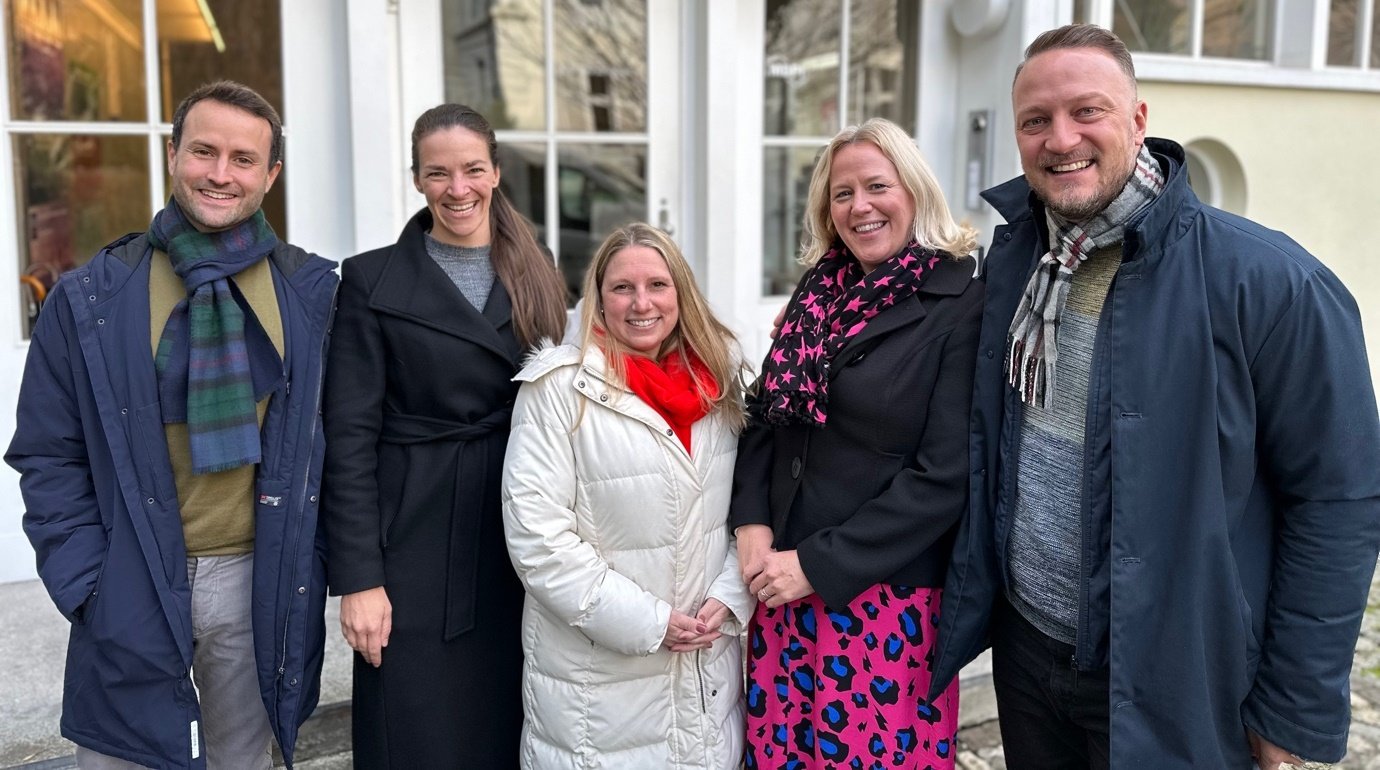
Left to right: Facundo Santomé (Senior Marketing Manager, MDPI), Constanze Shelhorn (Indexing Manager, MDPI), Cathy Holland (Director of Global Publisher Business Development, Digital Science), Helen Cooke (Managing Director of Publisher Sales, Digital Science), and Stefan Tochev (CEO, MDPI) in front of MDPI headquarters in Basel, Switzerland.
During our meeting, we discussed MDPI’s publishing philosophy and explored further avenues for collaboration. We look forward to continuing our partnership with Digital Science, aiming to improve our services yet further and meet the needs of our authors more closely than ever.
What is Altmetric?
You will notice that MDPI articles feature an Altmetric score, a colourful doughnut capturing the score in the upper right corner of the article page. This score represents ‘alternative metrics,’ as distinct from traditional metrics such as Impact Factor, CiteScore, and Scimago Journal Rank.
Altmetrics complement traditional citation-based metrics by capturing online discussions related to a specific research topic. By analyzing both sets of data, we can obtain a comprehensive understanding of the attention a particular research output receives and the sources in which it is mentioned.
“Almetric provides visual insights into where research is being discussed”
Sources Tracked by Altmetric
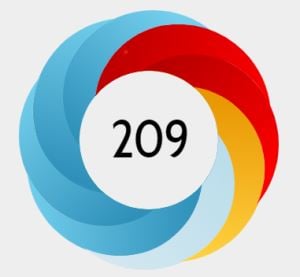
Altmetric badge showing the Altmetric score and colour-coded mention sources.
Altmetric monitors various sources, categorizing them into segments such as policy documents, peer reviews, Wikipedia, news and blogs, and social media, among other sources. Each category is identifiable by a specific colour.
The Altmetric badge provides visual insights into where the research is being discussed. A more colourful badge indicates broader mentions across multiple platforms. Such tracking enables us to gauge the extent of an article’s online dissemination, noting that increased visibility may correlate with higher citation rates.
Read more:
Impactful Research

Ten High-Altmetric Articles Published by MDPI
As at 30 January 2024, Altmetric has tracked 670,500 MDPI research outputs from MDPI, resulting in over 4.3 million mentions. This includes over 71,894 mentions in policy and patents and 294,714 mentions in news and blogs, with some achieving an Altmetric score as high as 28,754.
So, what is a good Altmetric score? There are various ways to put this score into context. You can find out more about the score in context and how to evaluate your work by this means.
Here are ten MDPI papers ranking in the top 5% of all research outputs scored by Altmetric.
|
|
“Accuracy in Wrist-Worn, Sensor-Based Measurements of Heart Rate and Energy Expenditure in a Diverse Cohort” J. Pers. Med. 2017, 7(2), 3; https://doi.org/10.3390/jpm7020003 Altmetric page: https://mdpi.altmetric.com/details/20477344 Altmetric shows that this article appeared in 253 news stories from 209 outlets including Forbes, BBC, and Fox News. |
|
|
“Daylight Saving Time and Acute Myocardial Infarction: A Meta-Analysis” J. Clin. Med. 2019, 8(3), 404; https://doi.org/10.3390/jcm8030404 Altmetric page: https://mdpi.altmetric.com/details/57654628 Altmetric shows that this article appeared in 295 news stories from 207 outlets including Forbes, The Atlantic, and New York Times. |
|
|
“The Preliminary Analysis of Cave Lion Cubs Panthera spelaea (Goldfuss, 1810) from the Permafrost of Siberia” Quaternary 2021, 4(3), 24; https://doi.org/10.3390/quat4030024 Altmetric page: https://mdpi.altmetric.com/details/111086701 Altmetric shows that this article appeared in 182 news stories from 134 outlets including CBC News, CNN, and National Geographic. |
|
|
“Not the Cat’s Meow? The Impact of Posing with Cats on Female Perceptions of Male Dateability” Animals 2020, 10(6), 1007; https://doi.org/10.3390/ani10061007 Altmetric page: https://mdpi.altmetric.com/details/83796184 Altmetric shows that this article appeared in 124 news stories from 98 outlets including VICE, CNN and The Guardian. |
|
|
“Behaviour and Welfare Impacts of Releasing Elephants from Overnight Tethers: A Zimbabwean Case Study” Animals 2022, 12(15), 1933; https://doi.org/10.3390/ani12151933 Altmetric page: https://mdpi.altmetric.com/details/133463915 Altmetric shows that this article appeared in 192 news stories from 186 outlets. |
How do I use altmetrics?
Altmetric Explorer provides a detailed step-by-step guide and instruction video for first-time users of the tool. The guide includes useful diagrams that make it easy to get started.
Sharing Research Online
For research to be tracked across different sources, Altmetric needs a research output with a persistent identifier: a DOI, ISBN, PubMed ID, handle ID, etc. When sharing research, it is important to include a link to the original research output.
|
|
“An Update on Eukaryotic Viruses Revived from Ancient Permafrost” Viruses 2023, 15(2), 564; https://doi.org/10.3390/v15020564 Altmetric page: https://mdpi.altmetric.com/details/142929875 Altmetric shows that this article appeared in 250 news stories from 180 outlets including CTV, Fox News, and CNN. |
|
|
“The Global Problem of Insufficient Sleep and Its Serious Public Health Implications” Healthcare 2019, 7(1), 1; https://doi.org/10.3390/healthcare7010001 Altmetric page: https://mdpi.altmetric.com/details/53406248 Altmetric shows that this article appeared in 252 news stories from 168 outlets including BBC, Harvard Business Review, and Forbes. |
|
|
“A Detailed Review Study on Potential Effects of Microplastics and Additives of Concern on Human Health” Int. J. Environ. Res. Public Health 2020, 17(4), 1212; https://doi.org/10.3390/ijerph17041212 Altmetric page: https://mdpi.altmetric.com/details/86529137 Altmetric shows that this article appeared in 197 news stories from 150 outlets including BBC, The Tribune, and World Economic Forum. |
|
|
“An Empirical Study of Chronic Diseases in the United States: A Visual Analytics Approach to Public Health” Int. J. Environ. Res. Public Health 2018, 15(3), 431; https://doi.org/10.3390/ijerph15030431 Altmetric page: https://mdpi.altmetric.com/details/34714141 Altmetric shows that this article appeared in 232 news stories from 149 outlets including Forbes, New York Times, and Harvard Business Review. |
|
|
“Garden Scraps: Agonistic Interactions between Hedgehogs and Sympatric Mammals in Urban Gardens” Animals 2023, 13(4), 590; https://doi.org/10.3390/ani13040590 Altmetric page: https://mdpi.altmetric.com/details/142934305 Altmetric shows that this article appeared in 172 news stories from 168 outlets including BBC. |
Inside MDPI

MDPI Annual Meeting Celebrations in China
On Thursday 25 January, over 1,300 MDPI colleagues from our two offices in Beijing gathered to kick off MDPI’s traditional ‘Annual Meetings.’ These celebrations take place in MDPI’s offices across China, including Dalian, Tianjin, Wuhan, and Nanjing.
The evenings include performances, informative talks and presentations, awards, and entertainment, providing an ideal platform to recognize our colleagues, celebrate their achievements, and set our sights on the future.
“It is essential that we stay connected and share best practices”

I sent a video congratulating everyone on their work and sharing our vision of building MDPI into the most trusted OA publisher, highlighting the roles each of us has to play in achieving that goal.
Unfortunately I could not join in person, but you may recall my recent trip, when I visited our offices in Beijing and Wuhan, which I look forward to visiting again this year.
Although our headquarters are in Basel, Switzerland, and we are expanding throughout Europe and North America, the majority of MDPI’s workforce is in China and throughout the Asia-Pacific region, including offices in Singapore, Thailand, Japan, and newly opened office in South Korea. It is essential that as a global organization, we stay connected and share best practices in order to grow collectively and continue providing the exceptional service to our authors.
The Annual Meeting is a moment to reflect and enjoy the year’s hard work and dedication.
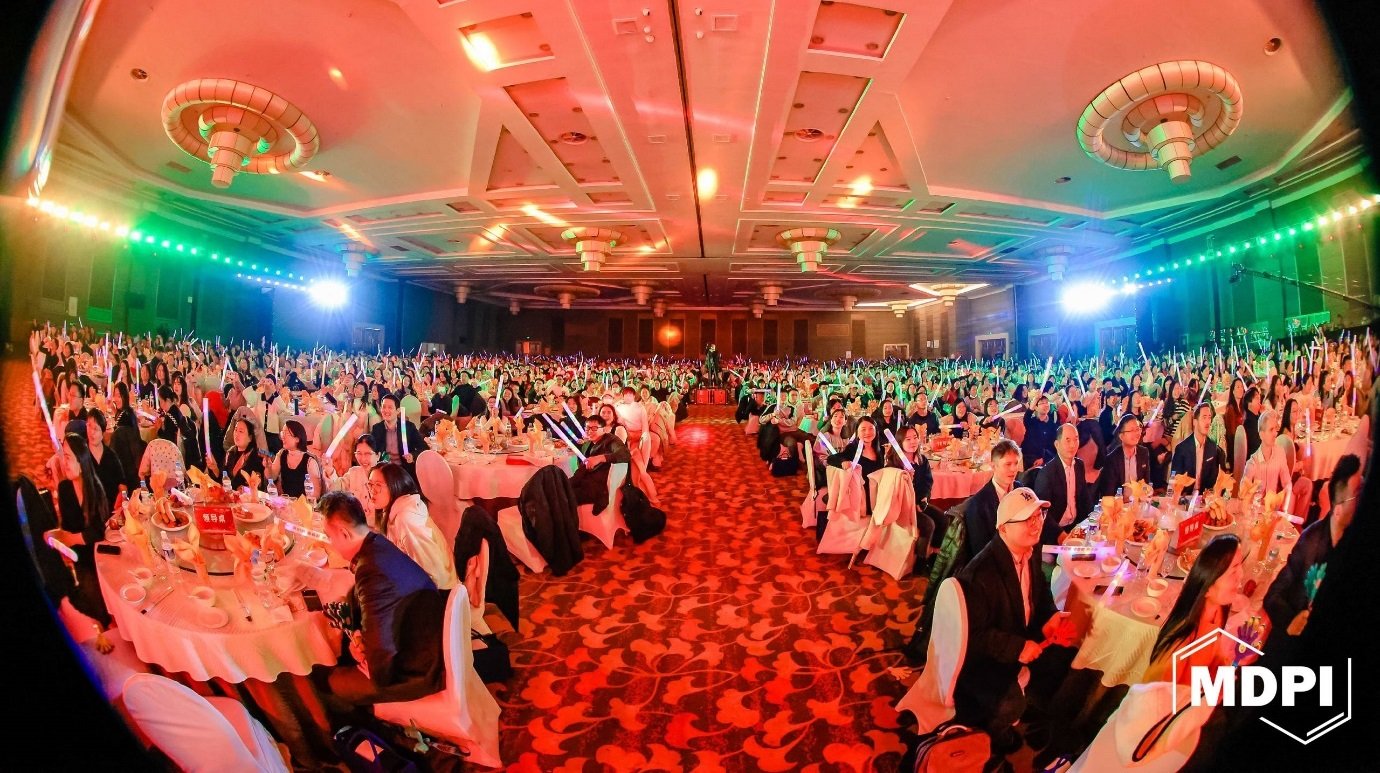
I extend our best wishes to all for the Chinese New Year (Xīnnián kuàilè)!
Coming Together for Science
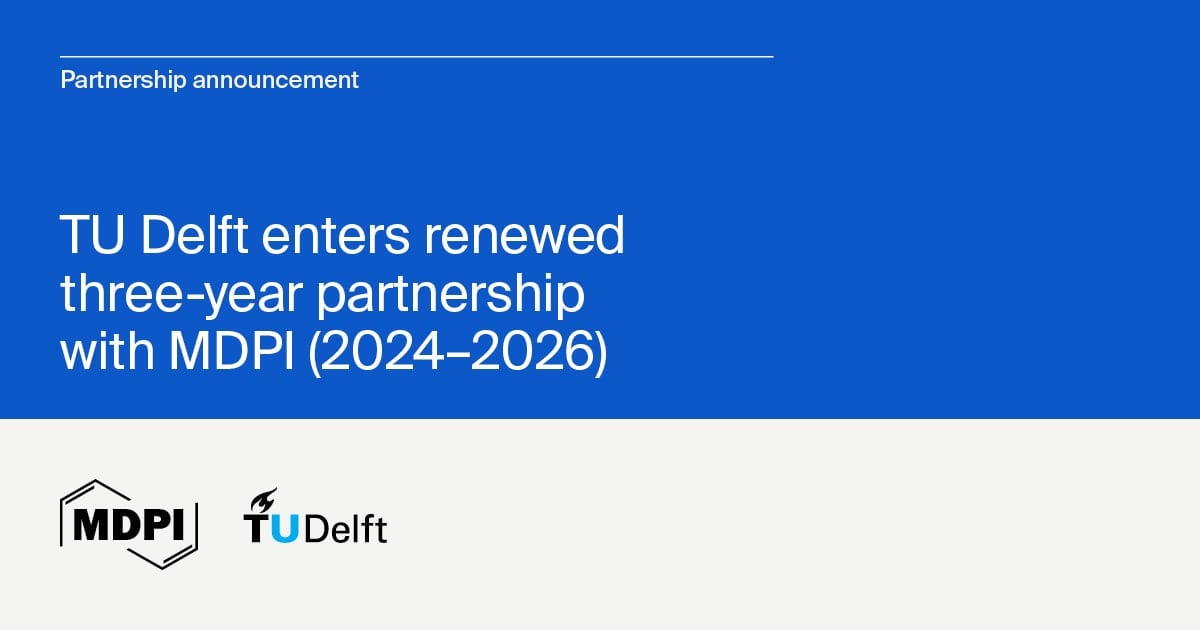
MDPI and TU Delft Adopt Flat Fee Model in Extended Partnership
We are excited to announce a renewed three-year partnership with Delft University of Technology (TU Delft) in the Netherlands. This collaboration introduces a fixed lump-sum fee, covering publishing costs from 2024 to 2026.
“This initiative reflects our dedication to transparent and inclusive publishing”
TU Delft-affiliated authors will enjoy cost-free publishing in any MDPI journal during this period, aligning with our commitment to removing barriers for open access publishing. The agreement supports Plan S compliance and facilitates a seamless publishing process for TU Delft corresponding authors. This initiative reflects our dedication to transparent and inclusive publishing, providing stability and predictability both for authors and for institutions.
For further details on our Institutional Open Access Program (IOAP), please contact us.
Benefits to MDPI’s IOAP
At MDPI we have a long tradition of partnerships, including our Institutional Open Access Program (IOAP). IOAP supports institutions through simplification, access, transparency, APC discounts, and institutional repository deposits. The program simplifies administrative processes, offers central payment, and allows easy opting in and out. Participants gain free access to Susy, MDPI’s online submission system, with extensive article metadata and exportable data. APC discounts and Book Processing Charge discounts are available for affiliated authors. Automated deposits to institutional repositories and streamlined matching of papers to IOAP participants enhance the overall experience.
For further information, see our IOAP FAQ.
Closing Thoughts

Reflections on the 2024 APE Conference
MDPI was proud to co-sponsor the Academic Publishing in Europe (APE) 2024 Conference that took place in Berlin, Germany, from 9–10 January 2024.
The conference theme, ‘Keep the Conversation Going!’, explored the evolving landscape of scholarly communication. APE is one of the key conferences I make a point to attend each year. January offers a valuable opportunity to engage with new contacts, reconnect with familiar faces, and participate in impactful discussions and presentations among professionals, scholars, and practitioners in the field.
“It's fascinating to see how other publishers are leveraging AI”
Highlights
Some of the standout panels for me include: the role of the UN Sustainable Development Goals (SDGs) within the publishing industry. It was encouraging to hear the current status quo, though I was eager also to learn about the exciting projects planned for 2024 and beyond. These will allow us to track progress in subsequent years. At MDPI, we remain committed to promoting Open–Access (OA) content on SDGs through scientific articles and books. Furthermore, we extend our commitment to sustainability by financially supporting researchers through initiatives such as the World Sustainability Award and the Emerging Sustainability Leader Award, as well as waiving the APC for feature papers on each SDG.
In recent years, discussions on AI have become increasingly prominent at such conferences. It’s fascinating to see how other publishers are leveraging AI to meet the evolving needs of their audiences while at the same time using it to safeguard the scientific process. Other engaging panels that I enjoyed included updates on transformation beyond transformative agreements, the principles of lean change, incentive structures related to research integrity, and the panel on reviewer incentives.
“We can share best practices and lessons learned”
Incorporating MDPI’s Insights into Conferences
I must confess that I sometimes feel overlooked when MDPI is not invited to participate in crucial industry discussions. As the leading open access publisher and the third-largest publisher overall, we possess extensive experience in many of these areas and can offer valuable contributions to these discussions. We can share best practices, lessons learned, and our thinking about future trajectories. For instance, in panels discussing reviewer incentives, at MDPI we offer a discount voucher to reviewers for future submissions, reflecting our commitment to fostering a robust peer review process. In 2022 alone, MDPI collected over 1.4 million peer review reports, informing the decision-making processes of our editors. Given our expertise in these areas, it would be natural to include MDPI in such discussions. I therefore extend an invitation to future conference organizers to consider MDPI for speaking engagements and collaborative opportunities.
Chief Executive Officer
MDPI AG
26 January 2024
Acknowledgment of the Reviewers of Entropy in 2023
In recognizing the exceptional efforts of our reviewers in 2023, we express our sincere gratitude for upholding the high standards of Entropy. Their commitment ensured the rigorous peer review that is integral to quality academic publishing.
In 2023, Entropy received 4990 review reports, from 3993 reviewers. This past year, we worked with reviewers from 78 countries and regions, reflecting the diversity in our collaboration with research communities. Their dedication shapes scholarly discourse and advances global research. The editorial team expresses gratitude for the vital role played by each reviewer in the Entropy family throughout 2023, and we look forward to their continued support in 2024.
The following are the reviewers who have consented to show their names:
| Abdelkader Shaaban | Krzysztof Szklanny |
| Abderraouf Arabi | Kun Zhang |
| Abdulagatov Abdulagatov | Kwangmin Yu |
| Abir Igamberdiev | Kwanho You |
| Adam Lipowski | Lalith Perera |
| Adela Mihai | Lamberto Rondoni |
| Ademola Ilesanmi | Larissa Albantakis |
| Aditya Singh | Larry Croft |
| Adrian Gligor | Laszlo Csirmaz |
| Adrian Kapczynski | Laura D'Alfonso |
| Adrian Luca | Laura Geambazu |
| Adrian M. P. Braşoveanu | Laura Rosales Zárate |
| Adrian-Mihail Stoica | Laurent Raymond |
| Agnieszka Konys | Laurentiu Milici |
| Agoritsa Polyzou | Lazaros Moysis |
| Airton Deppman | Le Bin Ho |
| Alavikunhu Panthakkan | Leandro Pardo |
| Alberto Martini | Lei Shi |
| Alberto Porta | Lei Wang |
| Alberto Turón | Leimin Wang |
| Alejandro Hnilo | Leo Matsuoka |
| Aleksander Jakimowicz | Leonid Dombrovsky |
| Alessandro Ferrarini | Lev Guzman-Vargas |
| Alessandro Sarracino | Lev Kazakovtsev |
| Alessia Allevi | Levan Chotorlishvili |
| Alessia Antelmi | Liang Yu |
| Alex Borodin | Lihao Ge |
| Alexander Petrov | Lijun Zhang |
| Alexander Pisarchik | Ling Luo |
| Alexander Robitzsch | Lining Xing |
| Alexander Shapovalov | Liudmila Zhilyakova |
| Alexandr Petukhov | Livia Petrescu |
| Alexandre G. de Brevern | Lorenzo Caruso |
| Alexandre Landry | Lorenzo Escot |
| Alexey Bosov | Lu Li |
| Ali Bereyhi | Luca Crocetti |
| Ali Hussein Hasan Alrikabi | Luca Di Persio |
| Ali Mehri | Luca Nanni |
| Ali Mohammad-Djafari | Luca Razzoli |
| Ali Sadiq | Luca Rugini |
| Alicja Jokiel-Rokita | Luca Russo |
| Alin Suciu | Lucian Trifina |
| Alina Momot | Luis Gomez |
| Alvaro Ochoa | Luís Oliveira |
| Amang Sudarsono | Luis Sanchez-Soto |
| Amar Singh | Lykourgos Magafas |
| Americo Correia | Maciej Romaniuk |
| Amir Younespour | Magno Machado |
| Amit Rechavi | Mahdi Kalantari |
| Ana Majtey | Manjit Kaur |
| Anamaria Savu | Manpreet Singh |
| Anastasia Frolkova | Manuel Alberto M. Ferreira |
| Anastassia Zabrodskaja | Manuel Cedillo-Hernandez |
| Anatoly Belonoshko | Manuel De La Sen |
| André Berchtold | Manuel Ernani Cruz |
| Andrea Boghi | Manuela Panoiu |
| Andrea Fioravanti | Marcel Otto |
| Andrea Richaud | Marcello Abbrescia |
| Andrea Valdés-Hernández | Marcello Delitala |
| Andreas Wichert | Marcelo A. Pires |
| Andrei Panteleev | Marcin Górski |
| Andrei Vasile Nastuta | Marcin Lawnik |
| Andrej Savic | Marcin Moskalewicz |
| Andrés Alonso | Marcin Schroeder |
| Andrew A. Fingelkurts | Marcio Basilio |
| Andrew Schumann | Marcio Laurini |
| Andrew Sung | Marco Civera |
| Andrey G. Cherstvy | Marco Favretti |
| Andrey Galyaev | Marco Lorenzini |
| Andrey Zahariev | Marco Piangerelli |
| Andries Engelbrecht | Marco Riani |
| Andrzej Borusiewicz | Marco V. José |
| Andrzej Kasperski | Marek Kus |
| Andrzej Raszkowski | Marek Milosz |
| Angel Arranz-Gimon | Marek Šolc |
| Ángel S. Sanz | Maria Bondani |
| Angel Tateishi | Maria Datcheva |
| Angela Locoro | Maria Giovanna Bianco |
| Angelo Marcelo Tusset | Maria Letizia Bertotti |
| Ani Matei | Maria Ragosta |
| Anna B. Shipovskaya | Marina Bastrakova |
| Anna Łyczkowska-Hanćkowiak | Marina Resta |
| Anna Manowska | Mario Cosenza |
| Anna Zielińska-Chmielewska | Mário Véstias |
| Annamaria Sarbu | Mariola Jureczko |
| Annibal Parracho Santanna | Mariusz Ciesielski |
| Anran Ran | Mariusz Rawski |
| Antonella Falini | Mark Gannon |
| Antonio A. Valido | Mark Kelbert |
| Antonio Cuccaro | Marko Gosak |
| António Luís Ferreira | Marko Mladineo |
| Antonio Vidiella-Barrranco | Marta Laranjo |
| Antonios Stamopoulos | Marta Reboiro |
| Antun Galović | Martin Beer |
| Anup Das | Martin Crane |
| Anurag Thantharate | Martin Kenyeres |
| Araliya Mosleh | Masahito Hayashi |
| Arindam Mallick | Massimiliano Lupo Pasini |
| Aritra Sarkar | Matej Mencinger |
| Arjendu K. Pattanayak | Matias Garcia-Constantino |
| Arkadiusz Bednarz | Matteo Francia |
| Arkadiusz Nędzarek | Mauricio A. Sanchez |
| Arkalgud Ramaprasad | Mauro Ferrario |
| Armen Kocharyan | Mauro Lenzi |
| Arno Keppens | Mauro Paternostro |
| Arsen Khvedelidze | Maxim Sakharov |
| Arslan Munir | Maxim Tereshonok |
| Artem Obukhov | Melvyn Tyloo |
| Arthur Melani | Michael Brimacombe |
| Artur Ferreira | Michael Maragakis |
| Arundhati Dasgupta | Michael Ridley |
| Arvind Khuntia | Michał Aibin |
| Ashesh Ghosh | Michal Marcinczuk |
| Asta Valackienė | Michał Piekarski |
| Ata Chizari | Michał Tomaszewski |
| Attila Andai | Michel Lubrano |
| Aurelian Isar | Michel Planat |
| Aurélien Drezet | Michele De Santis |
| Avo Reinap | Miguel Arjona Ramírez |
| Ayad M. Al Jubori | Miguel Pineda |
| Aydin Eresen | Miguel Salicrú |
| Barbara Dietz | Miguel-Angel Luque-Nieto |
| Barry Irwin | Mikhail Prokhorov |
| Bartłomiej Ambrożkiewicz | Mikhail Rodkin |
| Basem M. ElHalawany | Mikhail Salin |
| Bassem Abd-El-Atty | Mikhail Shleymovich |
| Behrooz Razeghi | Mikhail Sukharev |
| Behrouz Parsa Moghaddam | Milena Petkova |
| Berihu Teklu | Milos Seda |
| Bernhard C. Geiger | Min Qiu |
| Bertrand Hassani | Ming-Fu Hsu |
| Bijita Sarma | Mingjing Du |
| Bikash Koli Dey | Minvydas Ragulskis |
| Billy Todd | Minzhang Zheng |
| Bin Wei | Mirela Cătălina Türkeș |
| Boddapati Taraka Phani Madhav | Miroslav Grmela |
| Boleslaw T. Karwowski | Mizanoor Rahman |
| Boris Aberšek | Mohamed El Amine Ben Seghier |
| Boris Shumilov | Mohamed Ibrahim |
| Boštjan Šumak | Mohamed Shaban |
| Bowei Li | Mohammad-Reza Pendar |
| Bradley Roth | Mohammed Elmogy |
| Bruno G. da Costa | Mohammed M. Al-Sawalha |
| Carlo Brunetta | Mohammed Salah Al-Radhi |
| Carlos A. Plata | Mohammed Shuaib |
| Carlos Abreu | Mohammed Zakariah |
| Carlos Alexandre Gouvea Da Silva | Momčilo Dobrodolac |
| Carlos Pascal | Moon Fai Chan |
| Carson Leung | Mostefa Mohamed-Seghir |
| Carsten Ullrich | Muhammad Faisal Nadeem |
| Cataldo Guaragnella | Muntadher Alsabah |
| Catalina Dobre | Münür Herdem |
| César R. de Oliveira | Musheer Ahmad |
| Chang Cai | Muslim Jameel Syed |
| Changhao Li | Nan Yang |
| Chang-Ming Wu | Naoki Fukuta |
| Chao Ren | Nathan Myers |
| Chaowen Wang | Neeraj Bokde |
| Chariton Aris Chatzidimitriou-Dreismann | Neng Ye |
| Chen Wu | Nezamoddini Kachouie |
| Cheonshik Kim | Niccolò Traverso Ziani |
| Chi Ma | Nicholas Sarlis |
| Chiara Cosenza | Nikola Shakev |
| Chin-Shiuh Shieh | Nikolaj Goranin |
| Chinyang Henry Tseng | Nikolaos Tsakiridis |
| Chitta Ranjan Das | Nikolay Antonov |
| Chris Fields | Nikolay Kiktev |
| Christian H. Weiß | Nikos Grammalidis |
| Christian Mayer | Nina Filip |
| Christiana Chamon | Norman Franchi |
| Christina Papenfuss | Nuno Carlos Leitão |
| Christoforos Nalmpantis | Nuno Crokidakis |
| Christophe Airiau | Nwabueze Emekwuru |
| Christophe Claramunt | Oded Margalit |
| Christos Orovas | Odysseas Bouzos |
| Christos Tantos | Oksana Kovtun |
| Chrysafis Vogiatzis | Olena Chygryn |
| Chuan Wang | Olga Anatskaya |
| Claudio Marche | Olimpia Neagu |
| Constantine Kotropoulos | Olivier Hue |
| Corrado Lo Storto | Olivier Rioul |
| Costas Chaikalis | Om Prakash |
| Cristian-Dragos Dumitru | Omran Ayoub |
| Cristóbal Fernández-Muñoz | Onur Günlü |
| Czesław Mesjasz | Oscar Duque-Perez |
| Dahai He | Oscar Karnalim |
| Daniel Kostrzewa | Osslan Osiris Vergara Villegas |
| Daniyal Haider | Paolo Aniello |
| Dário Ferreira | Paolo Castiglioni |
| Dariusz Butrymowicz | Paolo Ciampalini |
| Dariusz Jamróz | Patrick Mcdaniel |
| David Bařina | Patrizio Vanella |
| David Vitali | Paul Marshall |
| Davide Marsano | Paula Soares |
| Debasish Jana | Paulo Ferreira |
| Debo Cheng | Paulo Vasconcelos |
| Dejan G. Ćirić | Pavel Golovinski |
| Dejan Milic | Pavel Lafata |
| Denisse Pasten | Pavel Starovoitov |
| Dennis Dieks | Pawel Oswiecimka |
| Derick Quintino | Paweł Pacyga |
| Di Wu | Pedro A. Martín-Cervantes |
| Diana Maimut | Pedro Fonseca |
| Diane Peters | Pedro García-Ramírez |
| Dieter Froning | Pedro Macedo |
| Dimitrios Kosmanos | Pedro Marijuán |
| Dimitrios Loukatos | Pedro Ramirez-Gonzalez |
| Dina Ibrahim | Peijian Zhou |
| Diogo Vidal | Peng Li |
| Dionisis Stefanatos | Pengfei Jia |
| Dipanjan Mandal | Peter Grabusts |
| Dipankar Maity | Peter Josef Stauvermann |
| Dmitry Pritykin | Peter Strazewski |
| Dmitry Ryumin | Petia Koprinkova-Hristova |
| Domenico Ursino | Petr Jizba |
| Domonkos Varga | Petras Rupšys |
| Dongping Zhu | Petre Anghelescu |
| Drago Sever | Petya G. Nedkova |
| Dušan Krokavec | Philip Broadbridge |
| Dzintra Atstāja | Pietro Hiram Guzzi |
| Edgardo Ugalde | Pietro Nannipieri |
| Eduardo Nakano | Piotr Koniorczyk |
| Egons Lavandelis | Piotr Porwik |
| Eihab Abdel-Rahman | Piotr Raźniak |
| Ekaterina Kopets | Po-Wen Chi |
| Elena R. Loubenets | Pranay Goswami |
| Elisabetta Arato | Prem Bikkina |
| Elli Kartsakli | Przemysław Juszczuk |
| Elmira Yu. Kalimulina | Qi Han |
| Elsa Leticia Flores Márquez | Qian Wang |
| Elsayed M. Elsayed | Qiang Guo |
| Elżbieta Kubera | Qingfeng Cao |
| Emil Roduner | Qingguang Xie |
| Emil Saucan | Qingyang Wei |
| Emilio Matricciani | Radu Tamaian |
| Enrico Babilio | Raed Abd-Alhameed |
| Enrico Rebufello | Rafael Vásquez |
| Enrique Miranda | Rafał Michalski |
| Enrique Peacock-Lopez | Rahul Walia |
| Ercan Celik | Raimondo Giuliani |
| Eric Campos-Cantón | Rainer Hollerbach |
| Ernesto Moya-Albor | Ramzi Mahmoudi |
| Ernesto Zambrano-Serrano | Raul Matsushita |
| Esteban Calzetta | Raul Toral |
| Eugene Loos | Rekha Srivastava |
| Eui Chul Lee | Renming Yang |
| Eva L. Sanjuán | Reza Alebrahim |
| Evgeny Mirkes | Riadul Islam |
| Faan Chen | Richard Matovu |
| Fabien Paillusson | Rita Gaio |
| Fabio Alves | Robert Mingesz |
| Fabio Bovino | Robert Prentner |
| Fabio Sattin | Robert Ulewicz |
| Fabio Subba | Robert Vrabel |
| Fabrizio Baiardi | Roberto Corvaja |
| Fabrizio Piacentini | Roberto Nascimbene |
| Fahim Sufi | Roberto Verucchi |
| Fang Yuan | Roberto Zivieri |
| Federico Benitez | Rodica Luca |
| Federico Holik | Rodrigo Salas |
| Fei Wu | Roger Kwao Ahiadormey |
| Fernando L. Pelayo | Roland Bouffanais |
| Filippos Vallianatos | Roman Parovik |
| Florentino Borondo | Rosa María Benito |
| Francesc Sebe | Rosario Schiano Lo Moriello |
| Francesco Bajardi | Roseli Wedemann |
| Francesco Ponzio | Rosella Cataldo |
| Francesco Sica | Rubén Dorado Vicente |
| Francisco J. Valverde-Albacete | Rubén San-Segundo |
| Francisco Jáñez-Martino | Rudnik Katarzyna |
| Francisco Peña | Rui Santos |
| Francisco Sevilla | Ruixian Fang |
| Francisco W. De Sousa Lima | Rupesh Kumar Chikara |
| Franco Bagnoli | Ruslan Shevchuk |
| Francois Morini | Sadaqat Ur Rehman |
| Frigyes Racz | Sadataka Furui |
| Fuhaid Alshammari | Sadiq Abdulhussain |
| Fukang Zhu | Saeed Rehman |
| Gabriel León | Saeid Tahmasebi |
| Gabriele Sicuro | Sagit Valeev |
| Gary Georgi Rozenman | Said Mesloub |
| George Adam | Saman Alavi |
| George Fragulis | Sampad Kumar Panda |
| George Ionescu | Sanghamitra Dutta |
| George Manis | Sanjay Kumar Singh |
| George Papakostas | Santiago Felici-Castell |
| George Tsihrintzis | Santosh Kumar |
| Gerald Cleaver | Sara Cruz y Cruz |
| Gerardo Herrera Corral | Sara Pensieri |
| Giancarlo Rossi | Sarat Mohapatra |
| Gianpaolo Coro | Sarka Todorova-Nova |
| Gil Cohen | Sarunas Grigaliunas |
| Gionata Fragomeni | Sarwar Sayeed |
| Giorgia Minello | Sascha Ranftl |
| Giovanni Battista Gaggero | Sayed Amir Hoseini |
| Giovanni Ciccotti | Sébastien Combéfis |
| Giovanni Pistone | Serafeim-Chrysovalantis Kotoulas |
| Gisela Pujol | Serafín Moral |
| Giulio de Felice | Serena Doria |
| Giuseppe Baselli | Sergey Chernogorskiy |
| Giuseppe D'Onofrio | Sergey Korotaev |
| Giuseppina Uva | Sergey Lashin |
| Gloria Cerasela Crisan | Sergey Mosin |
| Golnaz Shahtahmassebi | Sergey N. Kopylov |
| Gordon Cooper | Sergey Vasin |
| Gregory Provan | Sergey Vorobyev |
| Grigoreta Cojocar | Sergey Yablochnikov |
| Guanming He | Sergii Babichev |
| Guo-Hua Sun | Sergio Caprara |
| Gyuyeol Kong | Sergio Curilef |
| Hairong Lin | Sergio Da Silva |
| Hai-Tao Shu | Sergio Iglesias-Parro |
| Haiyang Pan | Sergio Molina |
| Halima Giovanna Ahmad | Sergio Peignier |
| Hamid Osman | Seyed Meraj Mousavi Rasouli |
| Hammed Fatoyinbo | Shahryar Jafarinejad |
| Hao Li | Shaoguang Huang |
| Haotian Cao | Shaoshi Yang |
| Haozhe Xie | Shenggen Zheng |
| Hari M. Srivastava | Shengyang Luan |
| Haroon Barakat | Shihai Dong |
| Harry Leib | Shijie Xie |
| Hasan El Moumni | Shitala Prasad |
| Hector Eduardo Roman | Shreyas Kamath |
| Héctor Migallón | Shuang Xu |
| Hee-Geun Jo | Sikha Bagui |
| Helder Sebastião | Sikke Klein |
| Helmut Rechberger | Silvia Parusheva |
| Hem Joshi | Sławomir Pietrowicz |
| Hendrik Richter | Sojung Kim |
| Henghsiu Tsai | Sonia Charleston-Villalobos |
| Henni Ouerdane | Sorinel A. Oprisan |
| Hiep Nguyen Duc | Srilena Kundu |
| Higinio Rubio Alonso | Srinivasa Pai |
| Hossam Nabwey | Stamatis Karlos |
| Hou-Man Chin | Stanislav Kruglik |
| Huaduo Gu | Štefan Bojnec |
| Hugo Wai Leung Mak | Stefan Hillmich |
| Hui-Chin Tang | Stefano Silvestri |
| Huihui Wu | Stefanos Tsigdinos |
| Humberto Laguna | Steven Chatterton |
| Hussein Rappel | Steven Pigeon |
| Ie-Bin Lian | Stuart A. Newman |
| Igal Sason | Sugandh Kumar |
| Igal Shohet | Suman Samantray |
| Ignacio Gomez | Sunny Raj |
| Ignacio Mauleón | Suvo Chatterjee |
| Ignazio Licata | Svajone Bekesiene |
| Igor Borovik | Syed Assad |
| Igor Furtat | Sylvia Gottschalk |
| Igor Kondrashuk | Sylwia Werbińska-Wojciechowska |
| Ilias Giannakopoulos | Szidónia Lefkovits |
| Ilias Savvas | Szymon Piotr Harabasz |
| Ilki Kim | Szymon Sieciński |
| Ilya Sysoev | Tadashi Ito |
| Iñaki Garmendia | Tadeusz Mikolajczyk |
| Ioana-Gabriela Sirbu | Takeshi Emura |
| Ioan-Bogdan Robu | Takeshi Osada |
| Ion Lizuain | Tânia Sousa |
| Irena Galić | Tao Li |
| Isaac Machorro Cano | Tao Wang |
| Ismail Ekmekci | Tatiana Morosuk |
| Ivan Arraut | Teddy Craciunescu |
| Ivan Kozitsin | Teddy Lazebnik |
| Ivan Tomašić | Teng Ma |
| Iwona Stan-Kłeczek | Tersilla Virgili |
| Izabela Dembińska | Theodore Andronikos |
| Izabela Rejer | Theophile Caby |
| Izzet Sakalli | Thomas Dittrich |
| Jacek Komorowski | Thomas Maskow |
| Jacek Pacana | Thomas Michelitsch |
| Jacek Ryczynski | Thomas Waluga |
| Jacopo Sini | Tiberiu Letia |
| Jae Oh Woo | Tibor Guzsvinecz |
| Jakub Soviar | Timur Kamalov |
| James Mccarty | Tobias Hecking |
| Jan Franz | Tobias Koch |
| Jan Hauke | Tom Blaine |
| Jan Korbel | Tomasz Górecki |
| Jan Lansky | Tomasz Janusz Teleszewski |
| Jan Naudts | Tomasz Włodek |
| Jana Shafi | Tomaž Podobnikar |
| Janez Žerovnik | Tomislav Matić |
| János Botzheim | Trambak Bhattacharyya |
| Janusz Szpytko | Trifce Sandev |
| Jaouhar Fattahi | Tsuneyoshi Sugimoto |
| Jaroslaw Krygier | Tunc Asuroglu |
| Jaroslaw Krzywanski | Usman Safder |
| Jaroslaw Miszczak | Vaidotas Marozas |
| Jayshri Kulkarni | Vaithinathan Kathikeyan |
| Jean-Daniel Bancal | Valerio Scordamaglia |
| Jeremy Muhlich | Valia Allori |
| Jia Hou | Vasileios Karyotis |
| Jian-Jia Weng | Vasilina Lapitskaya |
| Jianjiu Chen | Viacheslav Kovtun |
| Jiapeng Liu | Viacheslav Voronin |
| Jiawei Xiang | Victor Munoz |
| Jin-Chang Guo | Victoria V. Solovieva |
| Jinfeng Li | Viktor Dodonov |
| Jing Wang | Vincenzo Conti |
| Jinrong He | Vinoth Kumar |
| Jiří Ajgl | Vipindev Adat Vasudevan |
| Jitae Shin | Virendra Kumar |
| Joan Vila-Francés | Vivek Kumar |
| Joanna K. Kalaga | Vladimir A. Grishagin |
| Joanna Olbryś | Vladimir Ankudinov |
| João Reis | Vladimir Arlazarov |
| João Renato Sebastião | Vladimir Barakhnin |
| Jochen Braunmiller | Vladimir Egorov |
| Joe Lappin | Vladimir Galaktionov |
| Johan Anderson | Vladimir Titarev |
| John Ayeelyan | Vladimir Tsurkov |
| John D. Clayton | Vladimir Vlasenko |
| John Karnes | Vladislav Zheligovsky |
| John Violos | Volodymyr Ponomaryov |
| Jonnalagadda Srinivas | Vyacheslav Yukalov |
| Jorge de Andrés-Sánchez | Wanli Wen |
| José David Vergara | Wei Feng |
| Jose Guilherme Chaui-Berlinck | Wei Guo |
| Jose Jimenez | Weibin Li |
| José Leonel Rocha | Wei-Min Liu |
| José Luis Vázquez-Burguete | Wei-Xing Zhou |
| José M. Amigó | Wenjie Cai |
| José María Martínez-Otzeta | Wilfried Gappmair |
| José Pedro Mimoso | William Berg |
| José Reyes-Lagos | William Lawless |
| José Simão Antunes Do Carmo | Wlodek Zadrozny |
| José-Benito Bouza-Rodríguez | Włodzimierz Fechner |
| Josep Vives | Wolfgang Muschik |
| Joseph Lakey | Wolfgang Schreiner |
| Josu Etxezarreta Martinez | Wookjae Heo |
| Joyraj Chakraborty | Xiang Zhu |
| Jozef Hrbček | Xiangjie Kong |
| Jozef Strecka | Xiangjun Zou |
| Juan Carlos Degollado | Xianhua Song |
| Juan Carlos Farah | Xiao He |
| Juan Carlos Losada | Xiaojun Wang |
| Juan Ignacio Guerrero Alonso | Xiaoliang Wang |
| Juan José Galiana-Merino | Xiaolin Li |
| Juan Soria | Xiao-Long Ren |
| Julia Stephen | Xiaoping Shi |
| Julien Chevallier | Xiaoqiang Zhang |
| Julio Stern | Xiaoyang Liu |
| Jun Feng | Xinxiang Zhang |
| Jun Shen | Xuan Ma |
| Jun Wu | Xuechao Li |
| Junjie Liu | Yakun Liu |
| Junwei Sun | Yang Lin |
| Jupeng Ding | Yang Ming |
| Juraj Szavits-Nossan | Yasushi Nara |
| Jus Kocijan | Yeou-Jiunn Chen |
| Justie Juan | Yi-Fan Tseng |
| Justin Watson | Yifu Li |
| Juzar Thingna | Yixiu Kong |
| Kai Zhang | Yongjiang Huang |
| Kalyan Annamalai | Yoonsik Choe |
| Kamel Ourabah | You-Shyang Chen |
| Kan Chen | Youssri Youssri |
| Karbstein Felix | Yu Cai |
| Karl Hess | Yu Zhang |
| Karol Sztekler | Yu Zhou |
| Katarzyna Rostek | Yuan Ping |
| Kateřina Hlaváčková-Schindler | Yuan-Ho Chen |
| Kaushik Roy | Yuan-Wei Tseng |
| Kaviarasan Boomipalagan | Yue Wang |
| Kayode Oshinubi | Yuexi Peng |
| Kazi Lutful Kabir | Yufan Zhou |
| Kazuharu Bamba | Yugang He |
| Keke Shang | Yuheng Bu |
| Ken Wharton | Yun Shang |
| Ken-Ichi Fukui | Yuri Shtanov |
| Kenichiro Takeishi | Yuriy Yerin |
| Kevin Matthe Caramancion | Yves Caudano |
| Kevin Pilkiewicz | Zbigniew Gomolka |
| Khizar Hameed | Zbigniew Wlodarczyk |
| Ki-Hyun Jung | Zeeshan Yousaf |
| Kim Joris Boström | Zeheng Wang |
| Klaus Werner | Zhaoyu Zhai |
| Kleomenis Kalogeropoulos | Zhen Liu |
| Konrad Zajkowski | Zhendong Wang |
| Konstantin Kozlov | Zheng Li |
| Konstantin Nikolic | Zhetao Zhang |
| Kostas Blekos | Zhiheng Wang |
| Kristina Machova | Zhonghua Li |
| Kristina Sutiene | Zhou Gu |
| Krzysztof Foit | Zsolt Lázár |
| Krzysztof Grochla |
2 January 2024
MDPI Insights: The CEO’s Letter #7 - Nobel Laureates Entrust MDPI with Their Research

Welcome to the MDPI Insights: The CEO's Letter.
In these monthly letters, I will showcase two key aspects of our work at MDPI: our commitment to empowering researchers and our determination to facilitating open scientific exchange.
Opening Thoughts

Nobel Prize Laureates Entrust MDPI with Their Research
The Nobel Prize stands as a hallmark of distinction, honouring ground-breaking research across disciplines. Annually, the Nobel Prizes are awarded in six categories: Physics, Chemistry, Medicine or Physiology, Literature, Peace, and Economic Sciences.
Through the years, renowned scholars have entrusted MDPI with their work. As at December 2023, 26 Nobel laureates have contributed to more than 75 articles across 25 MDPI journals, including: Antibiotics, Applied Sciences, Biology, Biomedicines, Cancers, Catalysts, Cells, Crystals, Entropy, Games, IJMS, Life, Materials, Micromachines, Molecules, Pharmaceuticals, Pharmaceutics, Photonics, Quantum Beam Science, Remote Sensing, Sensors, Solids, Universe, Vaccines, and Viruses.
The best of the best trust us with their work.
Nobel Prize Laureates Who Have Published with MDPI
We are proud to list the names of Pierre Agostini, Hiroshi Amano, Werner Arber, Aaron Ciechanover, Robert H. Grubbs, Oliver Hart, Gerard ‘t Hooft, Michael Houghton, Harald zur Hausen, Katalin Karikó, Jean-Marie Lehn, Gérard Mourou, Ferid Murad, Shuji Nakamura, William Nordhaus, Kostya S. Novoselov, Giorgio Parisi, Charles M. Rice, Alvin E. Roth, Donna Strickland, K. Barry Sharpless, George F. Smoot, Anne L’Huillier, Drew Weissman, Kurt Wüthrich, Ada Yonath.
The privilege of hosting such contributors resonates deeply with our editorial teams. For instance, in this interview, the Editor-in-Chief (EiC) of Universe speaks on the significance of publishing a paper by Nobel laureate Gerard ’t Hooft within the journal.
2023 Nobel Prize Winners Published by MDPI

Nobel Prize Winners, 2023: Katalin Karikó, Drew Weissman, Anne L’Huillier (Ill. Niklas Elmehed © Nobel Prize Outreach)
Three laureates from the 2023 Nobel Prize cohort have trusted MDPI as their publishing platform. Notably, in a 2022 Pharmaceutics paper, molecular biologist Katalin Karikó and her team presented a methodology for evaluating mRNA capping efficiency, pivotal for therapeutic applications. Pharmaceutics had previously dedicated a Special Issue to “mRNA Therapeutics: A Themed Issue in Honor of Professor Katalin Karikó”, spotlighting ten articles from August 2021 to February 2022.
In the journal Vaccines, Professor Drew Weissman, collaborating with scholars from Pennsylvania University and George Mason University, contributed an influential review titled “Nanomaterial Delivery Systems for mRNA Vaccines”. His collaborative efforts spanned five papers across MDPI journals between 2021 and 2023.
Furthermore, Anne L'Huillier of Lund University, only the fifth female recipient of the Physics Prize, co-authored an article in Applied Sciences focusing on "Advanced EUV and X-Ray Optics". Similarly, Pierre Agostini, an Emeritus Professor from Ohio State University, co-authored an article featured in the special issue "Attosecond Science and Technology: Principles and Applications".
We extend heartfelt congratulations to all Nobel Prize laureates and express sincere gratitude for their confidence in MDPI as a platform for their scholarly contributions.
Read more:
Impactful Research

MDPI Journals Newly Indexed in 2023
The aim of indexing is to enhance the quality and credibility of published research, ensuring that researchers access the most credible resources available. While the principle behind citation indexing is straightforward, it remains one of the most dependable methods for tracking an idea's evolution across various scientific disciplines.
Throughout the year, MDPI works to expand the reach of our publications across premier multidisciplinary databases like Web of Science, Scopus, EBSCO, and ProQuest. This initiative is spearheaded by MDPI's Indexing team, under the leadership of Dr. Constanze Schelhorn.
In 2023, MDPI achieved 54 new acceptances in Scopus, 29 in Web of Science, 52 in EBSCO, and 83 in DOAJ: Directory of Open Access Journals.
The team prioritizes ensuring that our journals feature in numerous specialized databases, including PMC, PubMed, MEDLINE, Inspec, CAS, and FSTA, among others. Currently, MDPI collaborates with over 65 renowned international databases, consistently enhancing our database affiliations annually.
MDPI’s journals are indexed in all major global databases.
Furthermore, we collaborate with universities and government organizations to list our journals in country-specific ranking lists and relevant institutional repositories. This ensures compliance with requirements often set by funders or institutions for authors to publish in specific journals.
Web of Science Adds 24 MDPI Journals to Emerging Sources Citation Index (ESCI)
Clarivate recently analysed MDPI’s new journals, resulting in 24 journals, mainly established in 2020, being added to the ESCI in November and December 2023. Additionally, five journals passed this assessment earlier in the year. For a complete list of our journals in Web of Science, refer here. Journals in the ESCI meet 24 quality criteria, ensuring editorial rigor. They may be considered for inclusion in broader indices like the Science Citation Index Expanded (SCIE), the Social Sciences Citation Index (SSCI), or the Arts and Humanities Citation Index (AHCI), based on four impact criteria.
Read more:
Inside MDPI

MDPI Appoints New Chief Operating Officer (COO)

Alistair Freeland returned to MDPI and assumed the role of Chief Operating Officer in November 2023, a position he previously held from 2013 to 2019. He succeeds Dr. Yu Lin, who will remain a member of MDPI’s Board of Directors, overseeing significant financial decisions for the company. I would like to express my sincere thanks to Dr. Yu Lin for his service as COO.
Alistair brings extensive experience not only in scholarly publishing but also in technology and business management. Prior to rejoining MDPI, he was associated with SIX Group, the entity responsible for Switzerland's financial market infrastructure. There, he played a pivotal role in developing the blockchain-based platform SDX (SIX Digital Exchange), which has gained traction among major Swiss banks and the Swiss National Bank.
As COO, Alistair will collaborate with the MDPI management team to improve the practices and services we offer to scholarly communities. I am pleased to welcome Alistair back to MDPI and look forward to his contributions going forward.
Coming Together for Science

MDPI’s 2024 In-Person Academic Events Schedule
MDPI's Conference Team is dedicated to organizing and hosting in-person academic events across Europe, Asia-Pacific, and North America. We recognize conferences as invaluable platforms for scientific collaboration, scholarly exchange, discussions on contemporary topics, networking, and forging collaborations.
Here's a glimpse of the notable events we currently have scheduled for 2024:
|
|
14–16 February, 2024 |
|
|
24–26 April, 2024 |
|
|
28–31 May, 2024 |
|
|
1–4 August, 2024 |
Upcoming events with details to be announced:
- September 2024, Materials 2024 – Basel, Switzerland
- 19–21 September 2024, International Conference on Nanomaterials Sciences 2024 – Beijing, China
- October 2024, ncRNA 2024 – Basel, Switzerland
- November 2024, Pharmaceuticals 2024 – Barcelona, Spain
- 22–26 November 2024, International Conference on Science of Electronics – Wuhan, China
- Stay tuned for more details on the Sustainable Publishing Forum 2024.
Click here for all upcoming MDPI events.
Organize Your Event with MDPI’s Sciforum
Sciforum is MDPI’s platform dedicated to the organization of scientific events. In line with our mission to promote science, Sciforum supports scholars, societies, research networks, and universities at all stages of organizing in-person events, virtual events and webinars. Our platforms are efficient, user-friendly, and cost-effective. We handle all steps related to event management. Contact us for details.
Closing Thoughts

Reflecting on 2023 and Looking Ahead to 2024
As we approach 2024, I reflect on the incredible journey we’ve had together at MDPI this year. The past 12 months have been marked by ambitious projects and initiatives to improve our internal processes, and a commitment to continue delivering top-notch services to our stakeholders. I’d like to thank each and every one of our staff members for contributing to the positive experiences our stakeholders have reported in our surveys. Your dedication to speed, efficiency, and effective communication with our stakeholders is very much recognized and appreciated.
Becoming a stronger organisation
While we have encountered challenges in 2023, it’s important to understand that these are a part of our growth process. Difficulties provide us with opportunities to reflect, address problems at their roots, and ultimately evolve into a stronger organization. Our stakeholders expect us to overcome tough times, and it’s an expectation that we have for ourselves.
I extend my sincere appreciation to every MDPI employee, from our editorial office and IT department to marketing, indexing, IOAP, societies, Scientific Office board, products, production, conferences, finance, operations, admin, and beyond. To our newest team members, a warm welcome; to our longstanding colleagues, your dedication is invaluable.
“I am committed to taking MDPI to a new level of excellence.”
Interacting with many of you during my visits to our offices and representing MDPI at external events has been a personal highlight. I am deeply grateful to Dr. Lin for entrusting me with the role of CEO of MDPI. Looking forward, I am committed to working closely with our management team to lead MDPI and take it to a new level of excellence, aiming to establish it as the most trusted publisher in open access worldwide. This is a collective endeavour, with each of us shaping MDPI’s reputation. I therefore encourage us to take pride in our work, as it represents not only our craft but also MDPI as a whole.
Accountability and communication
As we look forward to 2024, there’s a lot to be excited about. Together, we’ll navigate challenges, seize growth opportunities, and refine our practices. To solidify MDPI’s position as the premier open access publisher globally, we must bolster accountability, improve stakeholder communication, share MDPI’s best practices, champion the open access philosophy, and educate stakeholders about our mission, methodologies, and motivations.
Thank you for engaging with the CEO Letter over the past six months of 2023. I will continue to release this newsletter as a method of sharing the great work being done at MDPI. Please feel free to connect directly with any insights or questions.
Here’s to a joyous and prosperous 2024!
Chief Executive Officer
MDPI AG
18 December 2023
Meet Us at the 2024 Joint Mathematics Meetings (JMM 2024), 3–6 January 2024, San Francisco, USA
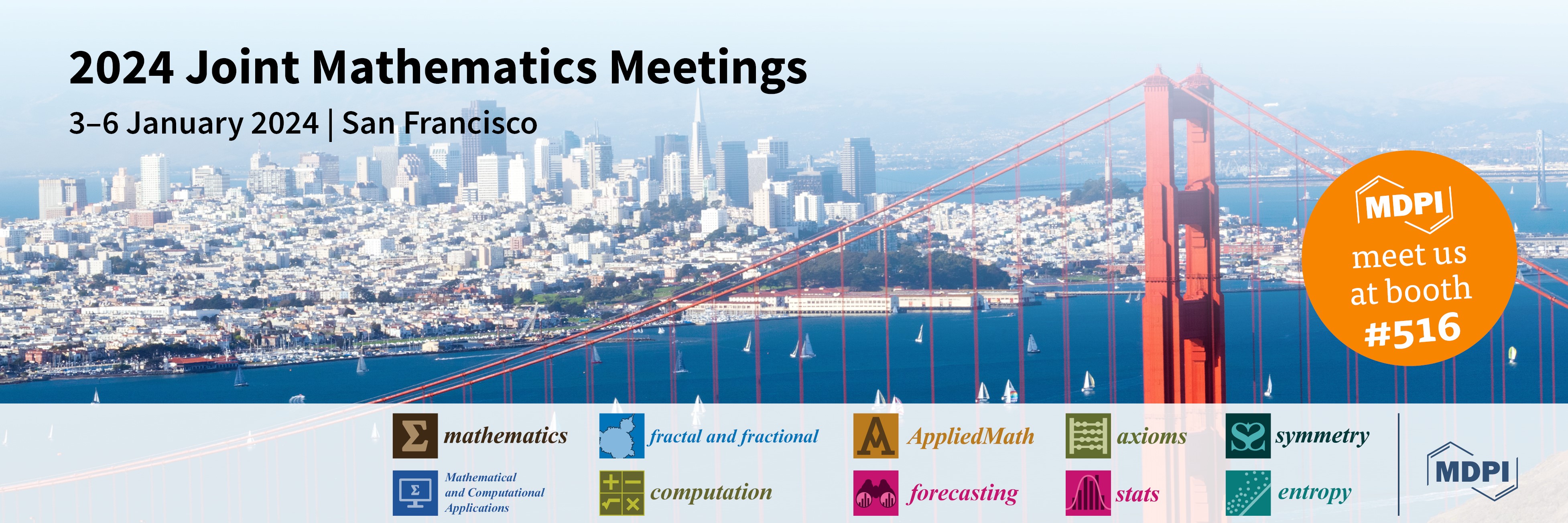
MDPI will attend the 2024 Joint Mathematics Meetings (JMM 2024) as an exhibitor. This meeting will be held in San Francisco, USA, from 3 to 6 January 2024.
The Joint Mathematics Meeting has been held annually in early January since 1989. The meeting is the largest gathering of mathematicians in the United States and the largest annual meeting of mathematicians in the world. It provides a comprehensive and rich scientific platform and honors the achievements of outstanding mathematicians.
The following MDPI journals will be represented:
- Mathematics;
- Fractal Fract;
- AppliedMath;
- Axioms;
- Symmetry;
- MCA;
- Computation;
- Forecasting;
- Stats;
- Entropy.
If you are attending this conference, please feel free to start a conversation with us at our booth (#516). Our delegates look forward to meeting you in person and answering any questions that you may have. For more information about the conference, please visit the following link: https://www.jointmathematicsmeetings.org/meetings/national/jmm2024/2300_intro.
15 December 2023
Obituary— Prof. Ralph Kenna
It is with deep sorrow that we announce the passing of our esteemed Editorial Board Member in Entropy, Prof. Ralph Kenna, who left us in October 2023. His contributions to our journal were invaluable, and his legacy will be preserved within Entropy. His absence leaves a void that will be deeply felt by all those who had the privilege of working with him.
Prof. Kenna was an Irish mathematician and theoretical physicist who was born in Athlone (Ireland). He was the head of the research group Statistical Physics of Complex Systems at Coventry University, which participated in prestigious European projects and collaborative initiatives. Prof. Kenna had very diverse interests ranging from statistical physics (especially phase transitions and critical phenomena) and complex systems to Irish mythology. An imaginative and enthusiastic researcher, of inspiration for his collaborators and students.
Prof. Kenna joined the Editorial Board of the Section “Statistical Physics” in 2020, bringing with him a wealth of knowledge and expertise in his field. In the same year, he edited a Special Issue titled “Phase Transitions and Emergent Phenomena: How Change Emerges through Basic Probability Models”, which garnered significant attention from the scientific community.
Throughout his tenure as Editorial Board Member, Prof. Kenna worked closely with the other editorial members and staff and played an instrumental role in the day-to-day operations of our journal. His loss is deeply felt by all of us at Entropy, and we extend our heartfelt condolences to his family, friends, and colleagues during this difficult time.
30 November 2023
MDPI Insights: The CEO’s Letter #6 - MDPI Spain Summit and ResearchGate

Welcome to the MDPI Insights: The CEO's Letter.
In these monthly letters, I will showcase two key aspects of our work at MDPI: our commitment to empowering researchers and our determination to facilitating open scientific exchange.
Opening Thoughts

MDPI Spain Summit

Stefan Tochev (CEO, MDPI) gives the opening speech at the MDPI Spain Summit.
On Friday 10 November 2023 I was in Barcelona, Spain, to deliver the opening presentation and participate in a panel at MDPI’s Spain Summit, a two-day event, inspired by our salon events in China.
With 16 Editors-in-Chief (EiCs) and 20 Editorial Board Members (EBMs) in attendance, the event, organized by our conference team and Barcelona office, featured presentations on open access (OA), MDPI, and publishing market trends in Spain.
The event provided a great opportunity to engage with stakeholders from various MDPI journals, including Nutrients, Vaccines, Buildings, IJMS, and others. We were able to gather feedback and have open conversations around manuscript quality, the peer-review process, and journal development, as well as accreditation agencies.
The main objective of this Summit was to bring together Editors representing MDPI journals across various disciplines within Spanish universities and research centers, primarily from the Barcelona area. The aim was to facilitate an open and fruitful discussion regarding the development of their journals, the future of OA in Spain, and to provide meaningful interactions and networking opportunities.
Connecting with Editorial Board Members

Stefan Tochev in conversation with Summit participants: "Our EBMs are passionate about the journals they serve."
Interacting with our EBMs in person provides a valuable opportunity to show how important it is to us to connect with them, hear their perspectives on their journals and learn more about their own experience collaborating with MDPI.
From my conversations, it was clear that our EBMs are passionate about the journals they serve. I know the advice they provide may sometimes involve just small tweaks, but these can lead to important improvements. As the saying goes, small hinges swing open big doors.
As at November 2023, MDPI has over 6,300 EBMs affiliated with Spanish institutions, with more than 30 of them serving as EiCs or section EiCs. Furthermore, over 68,000 Spanish scholars have contributed as reviewers in MDPI journals.
Open Access in Spain
In 2023, Spain implemented legislation mandating immediate OA for all publicly funded research, aligning with the EU’s Plan S initiative to expedite the transition to OA. The Spanish government also approved a four-year, €23.8 million annual budget for the first national OA strategy, aiming to make publicly funded research freely accessible upon publication. This strategy aims to strengthen the quality and transparency of research in Spain, and to help promote movement towards a digital, low-carbon economy.
For further details of Spain's OA policy and the history of government mandates, click here.
Spain has already seen a notable decline in subscription-only articles, decreasing by 62% over a 10-year period, while gold OA increased by 42%. Green OA slightly decreased, suggesting a shift towards publishing in gold OA journals rather than traditional subscription-based ones. Here are some statistics from Scopus.
A big thank-you to the various MDPI teams, including our conference team and the Barcelona office, for organizing this very successful event!

MDPI colleagues from various offices gathered to host and support the first MDPI Spain Summit, in Barcelona, Spain.
I think this type of gathering has the potential to become an annual event in various locations. For example, Manchester could be an option, as we have over 30 EiCs and over 3,000 EBMs in the UK, a top market for MDPI that publishes high-quality research.
Impactful Research

769 Editorial Board Members of MDPI Journals Recognized as Highly Cited Researchers in 2023
Congratulations to our 769 Editorial Board Members from 40 countries/territories who have been awarded Highly Cited Researcher status for 2023 by Clarivate. This recognition is based on their outstanding scientific research contributions and significant influence in various fields, as evidenced by Web of Science data.
Click here to view the full list of 769 Editorial Board Members.
Clarivate's Highly Cited ResearchersTM list identifies individuals with exceptional impact in scientific and social science domains over the past decade. Their papers rank in the top 1% of citations in 21 fields analysed in ‘Essential Science Indicators,’ showcasing their substantial influence.
This year, 7,125 Highly Cited Researcher 2023 designations were issued to 6,849 individuals from 67 countries, representing just 1 in 1,000 researchers worldwide.
These researchers demonstrate exceptional influence, representing a small fraction of contributors pushing the boundaries of knowledge, contributing to global well-being, sustainability, and security.
Congratulations to these scholars for their remarkable achievement: we are honoured to have them on board with our journals!
Inside MDPI

Corporate Marketing and Communications Strategy Session

Members of MDPI’s Corporate Marketing & Communications team.
For the past few years, I have led the Corporate Marketing & Communications department in our annual strategy session.
This typically involves 2–3 days of focused sessions covering key topics including budgeting, hiring targets, campaign reviews, and planning for the upcoming year, department strategy, and structure.
We are constantly exploring ways to optimize the Corporate Marketing & Communications department to support MDPI’s primary objectives and better convey the MDPI story while serving the scholarly community.
The strategy session also serves as a team-building activity, during which the team voted on bowling!
Strategy Session
In this strategy session, we looked at how to align our teams in order to better streamline our content with our campaigns, build a dedicated marketing team to strategically support our core MDPI products, expand our communications teams and functionalities to focus on company-critical campaigns and press releases, align our new brand design system with our marketing initiatives, set up a community and engagement team to support various teams with their outreach and communication efforts, and increase our use of data in the evaluation of campaign performance.
To grow in these areas, we will be hiring for various positions, including those of Public Relations Manager, Communications Manager, Internal Communications Manager, Campaign Manager, Marketing Associate, and Editorial Engagement Manager.
I am grateful for the way our Corporate Marketing & Communications department has grown and gelled over the years, and I look forward to supporting the department teams and their ideas for the future.
Coming Together for Science

ResearchGate and MDPI Partner to Boost the Visibility of Open Access Content through Journal Home

Stefan Tochev (CEO, MDPI) and Sören Hofmayer (Co-Founder and Chief Strategy Officer, ResearchGate) meet in Berlin, Germany to take their ongoing discussion further.
When I assumed the role of CEO at MDPI, my primary focus was to initiate the building of essential partnerships and collaborations within our industry. After all, I am a firm believer in achieving our goals by helping others achieve theirs and focusing on co-opetition wherever there is an opportunity. I first touched on the notion of co-opetition in MDPI Insights: The CEO's Letter #3, particularly when discussing collaborations with Elsevier.
In light of this, Sören Hofmayer (Co-Founder and Chief Strategy Officer at ResearchGate) and I connected recently to continue a discussion that had been ongoing for months. I was quickly brought up to speed and felt there was an opportunity for MDPI journals to pilot the Journal Home service that ResearchGate had launched. This would provide a new way for MDPI to engage with authors and readers and amplify the visibility of our journals.
While I receive many offers and opportunities for discussions with vendors, I am a firm believer that timing is everything, and in this case, the time for us is now. Sören and I met in person during my recent visit to Berlin and decided to proceed with piloting ten MDPI journals with the Journal Home service.
The press release below provides further details.
Press Release: Berlin (Germany) and Basel (Switzerland), 15 November 2023
ResearchGate, the professional network for researchers, and MDPI, the largest open access publisher in the world and a pioneer in open access publishing, today announced a partnership that will see ten of MDPI’s open access journals benefit from an enhanced presence on ResearchGate through its innovative Journal Home offering.
This new partnership will expand the reach and visibility of MDPI’s participating flagship journals with ResearchGate’s highly relevant community of more than 25 million researchers globally.
Around 210,000 version-of-record articles from these 10 titles will be readily available on ResearchGate, including the full archive material and all new articles as they are published. These journals also benefit from enhanced brand visibility, with dedicated journal profiles, prominent representation on all associated article pages and all relevant touchpoints across the ResearchGate network – keeping the journals top-of-mind with their reader and author audiences. All articles covered by the new partnership will automatically be added to the authors’ publication records in ResearchGate. This not only reduces MDPI authors’ needs for direct management but also offers them valuable insights into the impact of their work, including data about readership and citations.
Closing Thoughts

November is Men’s Health Awareness Month

Stefan Tochev (CEO, MDPI) listening to music as he writes at a coffee shop in Basel, Switzerland.
November is dedicated to raising awareness of various men’s health issues. I have been fortunate to have positive male role models in my life, and I strive to share my experiences with others.
I used to take part in Movember, growing my moustache throughout November to raise awareness and funds and to help “change the face of men’s health.” With male family and friends impacted by physical and mental health issues, I have recently become more interested in men’s overall well-being.
Men often face stigma involving the perceived need always to be strong and have things figured out. Recently, I’ve had meaningful conversations with male friends and colleagues about issues we rarely discuss, and it was a positive experience.
Various factors impact men’s health and well-being, all too easily leading to risky health behaviours including a lack of health awareness, poor health education, and negative, culturally induced, behaviour patterns in our work and personal lives. I hope we can break down these barriers in our work environment.
Healthy men help build healthy families and a healthy society
Men are less likely than women to seek help with their physical and mental health struggles. This is a reminder to prioritize your overall well-being. I hope that as men, we will continue to open up to one another, becoming vulnerable in order to share what we are going through. By sharing and by supporting each other, we can learn and grow together. You are not alone, and when you fall, you can still get up and stand tall.
From one broski to another, you are loved and appreciated. I hope this mindset carries into December and beyond.
Mindfulness
Our content team recently released a handful of articles on mindfulness, a practice that I believe provides a good opportunity for stress release and self-reflection:
Chief Executive Officer
MDPI AG
28 November 2023
Editorial Board Members from Entropy Featured in the 2023 Highly Cited Researchers List Published by Clarivate
Recently, Clarivate™ revealed its 2023 list of Highly Cited Researchers™—individuals at universities, research institutes, and commercial organizations.
The scientists who were selected for this year’s list of Highly Cited Researchers published highly cited papers in the 11-year period from January 2012 to December 2022, with citation frequency in the top 1% of academic subjects and the same year of publication in the Web of Science™ database. This year, 7125 Highly Cited Researcher 2023 designations were issued to 6,849 individuals, representing just 1 in 1000 researchers worldwide. This means that these researchers have demonstrated an incredible level of significant and broad influence in their chosen field or fields over the last decade. The list is truly global, spanning 67 countries or regions and spread across a diverse range of research sciences and social sciences.
According to our statistics, 9 members of the Editorial Board of Entropy (ISSN: 1099-4300) were selected for the list of Highly Cited Researchers by Clarivate™ in 2023. They are being recognized for their high-quality scientific research achievements and outstanding contributions to their professional fields. The Entropy Editorial Office sincerely congratulates all elected editorial members and hopes that they continue to have an academically productive relationship with the journal.
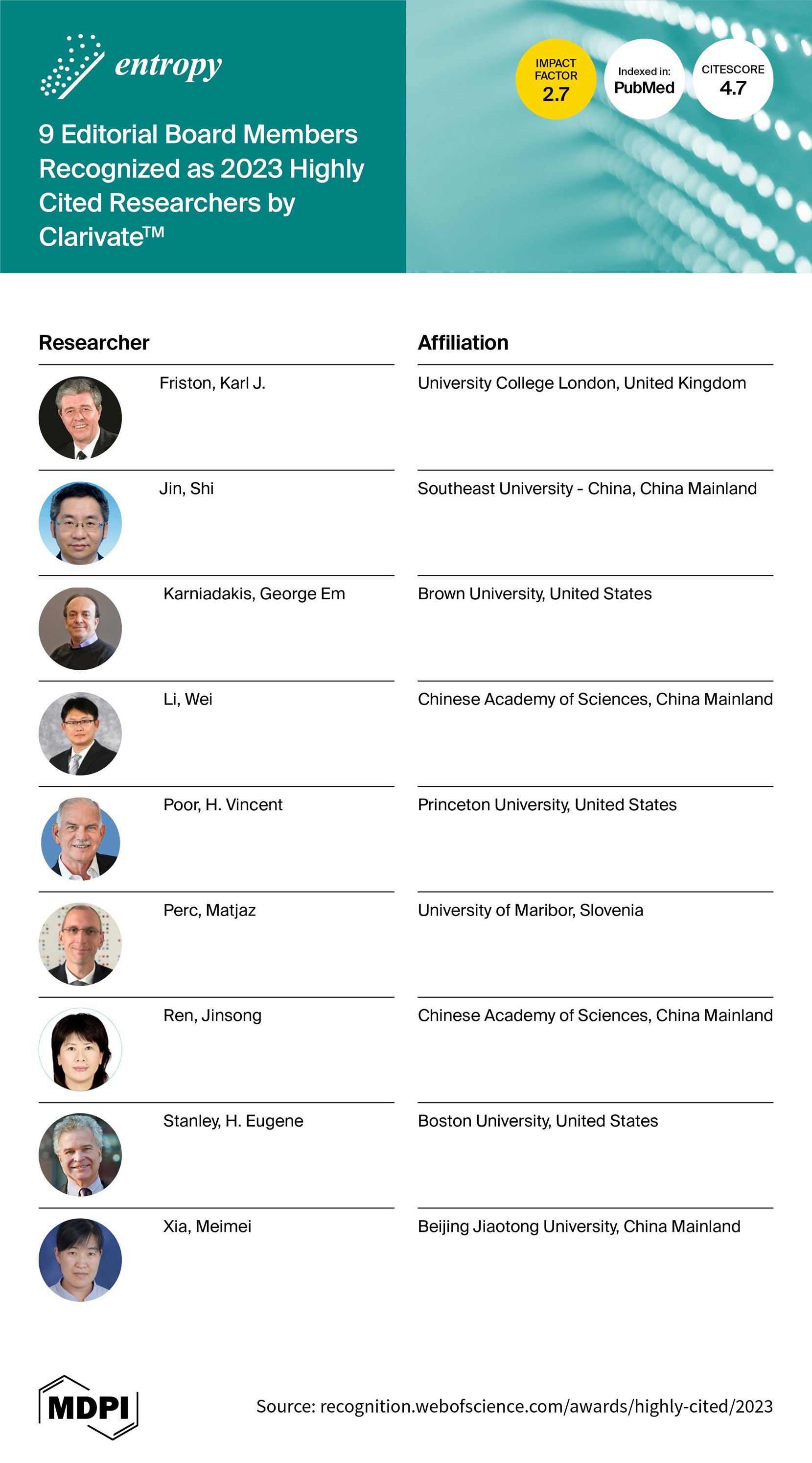
21 November 2023
769 Editorial Board Members of MDPI Journals Achieve Highly Cited Researcher Recognition in 2023

We extend our sincere congratulations to the 769 Editorial Board Members of our journals – from 40 different countries/territories – who have been recognized as Highly Cited Researchers for the year 2023 by Clarivate. They are being recognized for their high-quality scientific research achievements and outstanding contributions to their professional fields, as indicated by Web of Science data.
Clarivate's annual list of Highly Cited ResearchersTM identifies the most highly cited scientists for the past decade who stand out for their significant and broad influence in various scientific and social science domains. Their impactful papers are among the top 1 per cent in the citation distribution of one or more of 21 fields analyzed in the "Essential Science Indicators", distinguishing them as hugely influential among their peers.
This year, 7,125 Highly Cited Researcher 2023 designations were issued to 6,849 individuals from 67 countries, representing just 1 in 1,000 researchers worldwide.
This means that these researchers have demonstrated an incredible level of significant and broad influence in their chosen field or fields over the last decade. They represent a small fraction of the researcher population whose contributions disproportionately push the boundaries of knowledge, enhancing global well-being, sustainability, and security.
Congratulations to the scholars for their noteworthy achievement – we are honored to have them on board with our journals!
|
Abate, Antonio |
Jaiswal, Amit K. |
Shen, Zexiang |
1 November 2023
MDPI Insights: The CEO’s Letter #5 - OA Week, UK, and Strategy

Welcome to the MDPI Insights: The CEO's Letter.
In these monthly letters, I will showcase two key aspects of our work at MDPI: our commitment to empowering researchers and our determination to facilitating open scientific exchange.
Opening Thoughts

Open Access Week 2023 – the Global Drive to Open Continues
As the world's largest open-access (OA) publisher, we believe that unrestricted access to research findings is the cornerstone of transparency, efficiency, and quality control across scientific disciplines. At MDPI, we provide free, immediate access to scientific papers, empowering scientists to examine, validate, replicate, and build upon existing results. This minimizes redundancy, optimizes resources, and fosters innovative approaches.
International OA Week, held from 23 to 29 October 2023, provided a unique opportunity to link the global movement toward open sharing and open science with the progress of policy changes at the local level. Our mission, during OA Week and all the year round, is to offer educational resources highlighting the benefits of open-access publishing. The MDPI Blog is a valuable resource for information on open access and open science.
Core principles of OA publishing
Accessibility, transparency, and collaboration are core principles of OA publishing. OA aims to break down barriers that have traditionally restricted research access, ensuring that knowledge is available to all, regardless of financial situation or institutional affiliations. Our commitment to diverse pathways for OA publishing worldwide includes discounts for researchers. You can learn more about how MDPI supports scientific communities here.
One of the key strengths of OA publishing is its ability to facilitate interdisciplinary research. By removing paywalls and promoting knowledge-sharing across disciplines, OA encourages collaboration and innovation. Researchers from various fields can access and build upon each others’ work, fostering a holistic approach to addressing complex global challenges.
OA holds the potential to democratize knowledge, advance science, and drive positive societal change.
Policy driving change
Governments, institutions, and funding agencies have recognized the transformative potential of OA and have implemented policies to promote it. These policies often require publicly funded research to be made openly accessible, accelerating the growth of OA repositories and journals. Check out our spotlights on OA policies in the US, EU and China.
OA publishing is continuously evolving, with community-driven models and technologies shaping its future. Initiatives such as “Plan S” and “cOAlition S” promote OA publishing from the perspective of national funders, requiring grantees to publish their research openly. A new policy announced by the US administration last year mandates that, with effect from January 2026, all US federally funded research should be freely and immediately available after publication.
Additionally, preprint servers such as MDPI's Preprints.org, which allow researchers to share their findings before formal peer review, have gained popularity, enhancing the speed at which new knowledge is disseminated. The rise of blockchain technology is also being explored to ensure transparency and authenticity in scholarly publishing.
For more than two decades, OA publishing has been revolutionizing academic publishing by promoting accessibility, transparency, and collaboration. Its support for interdisciplinary research, evolving policies, and innovative practices all contribute to its growing influence in the global research community. As OA continues to expand, it holds the potential to democratize knowledge, advance science, and drive positive societal change.
MDPI is proud to lead the transition to open access.
Read more:
Impactful Research

Spotlight on Smart Cities
Smart cities will serve as a cornerstone for future human development. Their implementation will help us tackle many of the significant challenges we are facing – climate change, ageing populations, waste management, public safety, travel, and so on. Recognising the importance of this multifaceted field, MDPI launched the inaugural issue of Smart Cities in 2018 to provide an advanced forum for research into smart technology and society. Here we take a look at how this journal has developed, and its impact in this exciting field.
As at 30 October, 2023, Smart Cities has published 421 papers and has an Impact Factor of 6.4. It also has a CiteScore of 8.5, and more than one quarter of its published papers – 124 – have been cited 10 times or more.
Highly cited papers in Smart Cities
Below are several highly cited papers recently published in Smart Cities. Citation metrics are current as at 31 October 2023.
1. “Introducing the “15-Minute City”: Sustainability, Resilience and Place Identity in Future Post-Pandemic Cities”
Authors: Carlos Moreno, Zaheer Allam, Didier Chabaud, Catherine Gall and Florent Pratlong
Smart Cities 2021, 4(1), 93-111; https://doi.org/10.3390/smartcities4010006
Citations: Crossref (338), Scopus (366), Web of Science (270), Google Scholar (710)
The paper discusses the socio-economic impacts of the COVID-19 on cities, including increasing inequalities and rising unemployment. It introduces the concept of the "15-Minute City," a form of "chrono-urbanism," as a response to the challenges posed by the pandemic.
2. “A Review on Electric Vehicles: Technologies and Challenges”
Authors: Julio A. Sanguesa, Vicente Torres-Sanz, Piedad Garrido, Francisco J. Martinez and Johann M. Marquez-Barja
Smart Cities 2021, 4(1), 372-404; https://doi.org/10.3390/smartcities4010022
Citations: Crossref (359), Scopus (363), Web of Science (268), Google Scholar (558)
This paper provides an overview of the progress in Electric Vehicles (EVs), focusing on battery technology, charging methods, and emerging research challenges. It also analyzes the global EV market and its future outlook.
3. “IoT in Smart Cities: A Survey of Technologies, Practices and Challenges”
Authors: Abbas Shah Syed, Daniel Sierra-Sosa, Anup Kumar and Adel Elmaghraby
Smart Cities 2021, 4(2), 429-475; https://doi.org/10.3390/smartcities4020024
Citations: Crossref (121), Scopus (151), Web of Science (91), Google Scholar (215)
This paper gives an overview of the Internet of Things (IoT) in the context of Smart Cities, discussing the fundamental components, technologies, architectures, networking technologies, and artificial algorithms that underpin IoT-based Smart City systems.
4. “Artificial Intelligence Techniques in Smart Grid: A Survey”
Authors: Olufemi A. Omitaomu and Haoran Niu
Smart Cities 2021, 4(2), 548-568; https://doi.org/10.3390/smartcities4020029
Citations: Crossref (76), Scopus (94), Web of Science (57), Google Scholar (120)
This survey paper reviews the utilization of artificial intelligence (AI) techniques in the context of the smart grid. It covers various applications of AI in load forecasting, power grid stability assessment, fault detection, and security issues in the smart grid and power systems.
5. “The Metaverse as a Virtual Form of Smart Cities: Opportunities and Challenges for Environmental, Economic, and Social Sustainability in Urban Futures”
Authors: Zaheer Allam, Ayyoob Sharifi, Simon Elias Bibri, David Sydney Jones and John Krogstie
Smart Cities 2022, 5(3), 771-801; https://doi.org/10.3390/smartcities5030040
Citations: Crossref (72), Scopus (75), Web of Science (43), Google Scholar (176)
This paper discusses the concept of the Metaverse, a virtual world introduced by Meta (formerly Facebook), and its potential impact on urban life. It explores how emerging technologies such as AI, Big Data, IoT, and Digital Twins could reshape urban design and services in the context of the Metaverse.
Testimonial
“It was indeed a great and pleasant experience with MDPI regarding our recent publication. The submission process was very straightforward and less time-consuming than the norm. The review process was very fast compared to many other open access journals, which is praiseworthy. The support from the Editorial Office during the revision process was highly useful as well. We look forward to publishing with MDPI in the future, and I will most definitely recommend MDPI to my colleagues and collaborators.” – Dr. Luís Rosa, University of Minho
Article in Smart Cities: Mobile Networks and Internet of Things Infrastructures to Characterize Smart Human Mobility
Inside MDPI

MDPI Manchester office, UK Visit

Allie Shi (Editorial Director, MDPI), Stefan Tochev (CEO, MDPI), Jamie Anderson (Manchester Office Manager, MDPI), Michael O’Sullivan (Senior Scientific Officer, MDPI), Hushneara Akhtar, and Becky Castellon (IOAP Team Lead, MDPI), dining out in Manchester, UK.
In October, I visited MDPI’s new office in Manchester. During the visit, I connected with our English Editing (EE) managers, Scientific Officer, members of the Editorial team, the Marketing team, and IOAP Team Lead.
Our Manchester office focuses primarily on EE services and provides local support for the UK market. Additionally, we regularly visit Editorial Board members and participate in local conferences.
I would like to thank Jamie Anderson, Manchester Office Manager, and her team, for their deep commitment to our Manchester staff and to MDPI’s impact on the UK market.
The UK by numbers
The UK is a hub for the world’s top universities, making it a key market for MDPI and the publishing world in general. It is home to two of the top-five-ranked universities globally, 11 in the top 100, and 15 in the top 200.
As a result, the UK plays a key role in MDPI’s global market. As at October 2023, it ranks as the seventh-largest contributor to the total number of papers published by MDPI. We have 3,500 Editorial Board members affiliated with UK institutions, including 34 serving as Editors-in-Chief (EiCs). Our commitment to collaboration with institutions is evident in the UK, where we have successfully established some 60 Institutional Open Access Program (IOAP) agreements with esteemed institutions, such as the University of Oxford, the University of Cambridge, Imperial College London, the University of Edinburgh, and more.
According to InCites Dataset + ESCI for the period 2018–2022, as at October 2023, nearly 65% of UK papers are now published as OA. Just over 10% of total OA publications are by UK authors. UK papers are known for their high quality, with an average of 11 citations per paper. Furthermore, 2.16% of UK papers are in the top 1% of cited papers, and 14.61% are in the top 10% of cited papers, showcasing their impact.
We are currently hiring EEs in various locations worldwide.
English Editing at MDPI
Our English Editing (EE) department consists of two main branches, Quality Control and Learning and Development, reflecting our priorities. We are continuously enhancing the quality of our English Editing services and have raised the relevant standards, which now extend to company-wide communications. English editors participate in international interviews, conduct English assessments, and provide colleagues with presentations on ways to improve their use of written and spoken English.
While expanding, the EE department has proactively refocused its efforts on the quality of our work and how the English Editing department can benefit the company more broadly. We currently have approximately 140 full-time English Editors based across five offices worldwide, supplemented by over 700 freelance English editors.
Our Manchester office serves as the hub for the EE Department, with EE Managers situated there, except for Kurtis Jackson, who serves as the Head of EE and is located in our Basel office. Manchester EEs play a critical role in establishing and developing EE teams in our other offices, overseeing management and recruitment. The EE department plays a vital role in MDPI’s operations, as it is the department that touches every published paper. If this work interests you, I encourage you to explore our available EE positions, whether you are seeking full-time or freelance opportunities.
Testimonials
“MDPI provides an excellent service compared to any other previously used services. It delivers fast and high-quality results but at an affordable price.” – Ardha Apriyanto, University of Potsdam
“In my role as a professor, I consider that MDPI Author Services offer an excellent quality in the editing of Western academic writing while maintaining the required standards of clarity, precision and rigor. Additionally, delivery times are fast compared to other available services.” – Jesus Insuasti, University of Nariño
Read more:
Coming Together for Science

STM and Frankfurt Book Fair
Attending STM
MDPI has been a proud sponsor of the STM Conference for several years. The STM Conference is a dynamic event featuring interactive sessions, expert panellists, idea-sharing, and ample networking opportunities. On 16 October, the event kicked off with arrival drinks, sponsored by MDPI, followed by a welcoming dinner, providing a great chance to connect and network with industry professionals. The following day was filled with speakers, sessions, and further opportunities to connect. STM exemplifies the collaborative spirit of the scientific community, with session topics including achieving open, visible, and impactful research at scale; maintaining research integrity in a rapidly changing world; and exploring the impact of ever-evolving technology in the scholarly community.
Meeting with Web of Science
On a personal note, one of the highlights of STM was a candid and productive conversation with Nandita Quaderi, Editor-in-Chief and SVP at Web of Science. During our discussion, we talked about MDPI, Web of Science, the IJERPH delisting, and ways of moving forward. This open conversation aimed at fostering better collaboration for the future.
“We discussed ways to improve our communication and collaboration.”
I appreciated our frank discussion and felt that Nandita wholeheartedly supports open access. She also expressed her appreciation for the monthly CEO Letter, which she sees as a way to add personality to the MDPI brand and provide insight into the great work we do at MDPI. While we highlighted the positives, we also discussed ways to improve our communication and collaboration moving forward. This meeting alone made the trip worthwhile, and I hope Nandita doesn’t mind my sharing that she found our chat to be “the most honest and constructive discussion” she’s had with someone from MDPI in recent years.
75th Frankfurt Book Fair

Jelena Milojevic (Book Editor, MDPI), Jovana Dubajic (Book Editor, MDPI), Evan Escamilla (Project Manager, MDPI), Laura Wagner (Head of Books, MDPI), and Jenny Knowles (Commissioning Editor, MDPI), at the Frankfurt Book Fair in Frankfurt am Main, Germany.
For the 75th time, the Frankfurter Buchmesse opened its doors in October to celebrate exciting stories and their authors. If you haven’t yet had the chance to visit the Frankfurt Book Fair, I highly recommend it. It’s the largest book fair in the world, attracting thousands of visitors from around the globe. This is the place to gain valuable industry insights from top-class publishing professionals, connect with publishers directly, and learn about the latest trends in publishing.
MDPI Books
Our Books team was also present at the Frankfurt Book Fair, networking and learning from various panels. Did you know that our MDPI Books department publishes OA Books?
The book publishing program includes monographs, book series, edited books and reprints of special issues and topical collections, among other book types.
If you have a book proposal you would like to discuss, please feel free to contact our Books team to understand the benefits and methods of publishing your next book with the OA model.
Closing Thoughts

MDPI Strategy Meeting
As the newly appointed CEO, this is my first year leading the MDPI Senior Management Strategy session. I saw it as an opportunity to explore what MDPI has the potential to become in the next five years. Guided by the vision of its founder and President, Dr. Shu-kun Lin, the company has accomplished remarkable feats over the past 27 years and currently holds the position as the world’s third-largest academic publisher, following Springer Nature and Elsevier.
Our primary objective is to build upon the milestones of the past decades and consolidate MDPI’s position as well-established publishing brand. The two-day meeting emphasized the importance of communicating MDPI’s values more actively via its brand and adopting a straightforward yet impactful approach to managing MDPI as a mature academic publisher.
“Our primary objective is to consolidate MDPI’s position as well-established publishing brand”
As the world’s number one open-access publisher, MDPI has long been a game-changer in the scholarly community, serving millions of authors. The challenge in being a trailblazer is the need to continuously improve and at the same time explore the next blue-ocean strategy, while also maintaining the smooth operation of the business. Our collection model, featuring guest-curated thematic topics in the form of Special Issues, has disrupted the industry. Other publishers closely study us and attempt to replicate our models. The future of this collection model is something we are actively addressing – while, of course, looking ahead to what comes next!
Chief Executive Officer
MDPI AG
27 October 2023
2023 Dark Matter Day
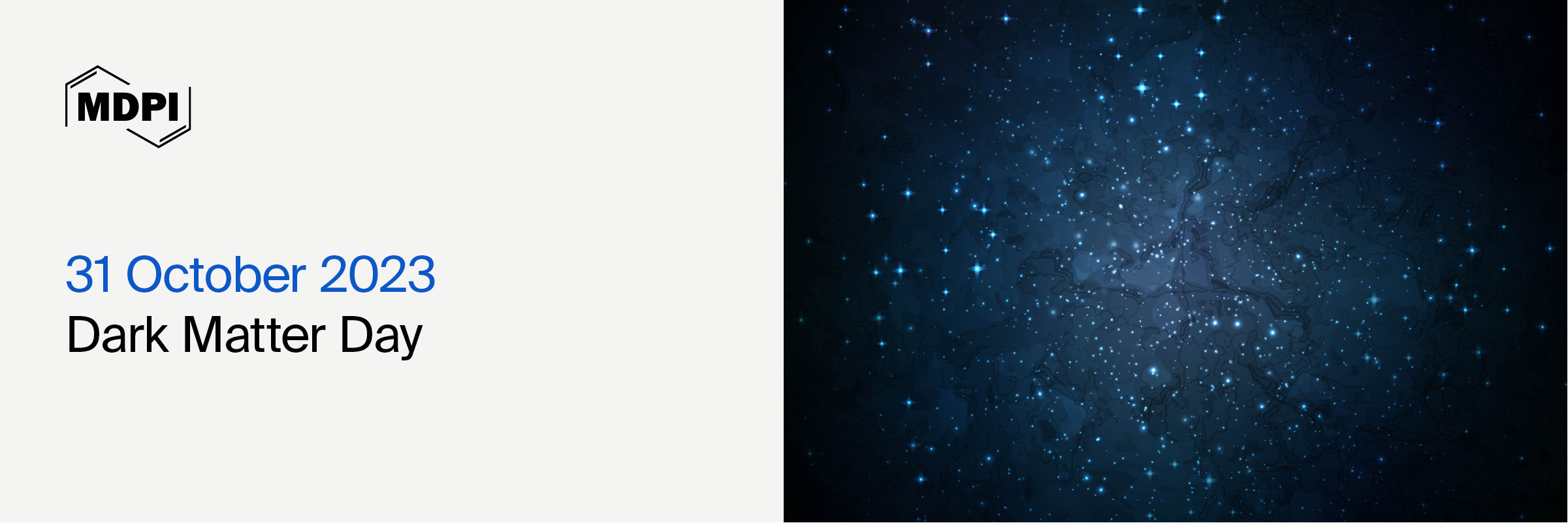
On and around 31 October 2017, the world celebrated the hunt for the unseen—something that scientists refer to as dark matter. Local events organized by institutions and individuals around the planet explored its mysteries, highlighting the experiments that could bring us closer to solving them. Since then, Dark Matter Day has become an annual celebration, with labs around the world taking part.
To further explore the related research on Dark Matter Day 2023, we have gathered open access academic articles on the topic of dark matter. We hope to share the most recent scientific knowledge in the field of dark matter on this special day.

Dark Matter Day 2023
This is a free webinar. After registering, you will receive a confirmation email containing information on how to join the webinar.


|
Special Issue “Modified Gravity: From Black Holes Entropy to Current Cosmology IV” |
Special Issue “Dark Energy and Dark Matter” |

19 October 2023
Open Access Week 2023 – the Global Drive to Open Continues

MDPI has been a strong proponent of the open access publishing model right from the beginning. As one of the pioneering fully open access publishers, we firmly believe that unrestricted access to research findings forms the foundation for better transparency, efficiency, and quality control across all scientific disciplines.
In December 2022, we reached a significant milestone by surpassing one million articles published. That is one million articles freely available to all, to circulate and build upon!
Offering free and immediate access to scientific papers empowers scientists to examine, validate, replicate, and expand upon existing results. This not only helps prevent redundancy and optimizes how resources are used but also paves the way for innovative new approaches.
The International Open Access Week takes place from 23 to 29 October 2023, providing a unique opportunity to connect the global movement towards open sharing and open science with the progress of policy transformations at the local level.
Our goal, during Open Access Week as well as throughout the year, is to offer resources for educating people about the benefits of open access publishing. The MDPI Blog offers a wealth of information around open access and open science.
Promoting the values of accessibility, transparency, and collaboration
Open access publishing embodies the fundamental values of democratizing knowledge and fostering global accessibility. It aims to break down barriers that have traditionally limited access to scholarly work, ensuring that knowledge is available to all, regardless of their financial or institutional affiliations.
Discounts are part of our commitment to ensuring there are diverse pathways to Open Access publishing for researchers worldwide. MDPI supports scientific communities in several different ways.
One of the key strengths of open access publishing lies in its ability to facilitate interdisciplinary research. By removing paywalls and promoting the sharing of knowledge across disciplines, OA encourages collaboration and innovation. Researchers from diverse fields can access and build upon each other's work, fostering a holistic approach to addressing complex global challenges.
Funders' policies are getting aligned with open science
Governments, institutions, and funding agencies have recognized the transformative potential of open access and have implemented policies to promote it. These policies often mandate that publicly funded research should be made openly accessible. Such initiatives have accelerated the growth of open access repositories and journals, reinforcing the commitment to open access principles. Check our spotlights on OA policies in the US, EU and China.
Open access publishing is continually evolving, with innovative and community-driven models and technologies shaping its future. Initiatives like "Plan S" and "cOAlition S" promote the adoption of OA publishing from the national funders’ perspective by requiring grantees to publish their research openly. A new policy announced by the US administration last year requires that, as of January 2026, all US federally funded research be made freely and immediately available after publication.
Additionally, preprint servers such as MDPI's Preprints.org, which allow researchers to share their findings before formal peer review, have gained popularity, enhancing the speed at which new knowledge is disseminated. The rise of blockchain technology is also being explored to ensure transparency and authenticity in scholarly publishing.
For more than twenty years, open access scholarly publishing has been revolutionizing academia by promoting the values of accessibility, transparency, and collaboration. Its support for interdisciplinary research, evolving policies, and innovative practices all contribute to its growing influence in the global research community. As open access continues to expand, it holds the potential to democratize knowledge, advance science, and drive positive societal change.
MDPI is proud to be a leader in the transition to open access.
9 October 2023
Entropy Best Young Research Talk Award from Quantum 2023—From Foundations of Quantum Mechanics to Quantum Information and Quantum Metrology & Sensing—Winner Announced
We are pleased to announce that the Best Young Research Talk Award, sponsored by Entropy (ISSN: 1099-4300) for the conference “Quantum 2023—From Foundations of Quantum Mechanics to Quantum Information and Quantum Metrology & Sensing”, was granted to Dr. Luca Vannucci from the Technical University of Denmark (DTU). Congratulations!
“Two-color excitation for highly efficient and indistinguishable single-photon sources”
Abstract: Photonic quantum technologies—such as quantum computers, simulators, and networks—rely on multi-photon interference to process information and, therefore, on the availability of efficient sources of indistinguishable single photons. For a single-photon source (SPS) with photon output ![]() (defined as the number of photons delivered per excitation trigger) and degree of indistinguishability
(defined as the number of photons delivered per excitation trigger) and degree of indistinguishability ![]() , the rate of successful
, the rate of successful ![]() -photon interference scales as
-photon interference scales as ![]() . Thus, for scalable quantum information processing, the source's figure of merit
. Thus, for scalable quantum information processing, the source's figure of merit ![]() must be increased as close as possible to 1.
must be increased as close as possible to 1.
To this end, much attention has been focused on optimizing the SPS efficiency (and thus the photon output ![]() ) via the optical design of the electromagnetic environment around a quantum dot (QD) emitter, and on understanding the decoherence effects on the indistinguishability, such as the coupling to lattice vibrations. For instance, Refs. [1] and [2] have illustrated the trade-off between
) via the optical design of the electromagnetic environment around a quantum dot (QD) emitter, and on understanding the decoherence effects on the indistinguishability, such as the coupling to lattice vibrations. For instance, Refs. [1] and [2] have illustrated the trade-off between ![]() and
and ![]() dictated by phonon scattering, and have shown how to push such a trade-off to the maximum performance via photonic engineering. However, most studies assume to initialize the quantum emitter to the excited state with 100% probability, which is a highly non-trivial task. The missing element is now a pumping scheme that excites the emitter with near-unity fidelity and that is compatible with the requirements for scalable quantum technologies.
dictated by phonon scattering, and have shown how to push such a trade-off to the maximum performance via photonic engineering. However, most studies assume to initialize the quantum emitter to the excited state with 100% probability, which is a highly non-trivial task. The missing element is now a pumping scheme that excites the emitter with near-unity fidelity and that is compatible with the requirements for scalable quantum technologies.
Here, we identify such a key component by demonstrating that two-color excitation allows the pushing of the figures of merit to the maximum performance, provided that the so-called phonon decoupling regime is reached. Specifically, we examine both a dichromatic “red-and-blue” configuration (see Figure, panel a), with one laser pulse on the blue side and one on the red side of the spectrum with respect to the emitter [3, 4], and the so-called SUPER protocol [5, 6] with two laser pulses on the red side of the spectrum (b). In both cases, we identify the conditions to remove unwanted phonon scattering in the excitation process and achieve arbitrarily high population inversion for quantum emitters embedded in bulk semiconductors. As a specific example, we demonstrate that a state-of-the-art micropillar SPS driven with our scheme can generate up to 0.95 photons per excitation trigger into the collection optics with even better indistinguishability than the one obtained under resonant excitation [7].
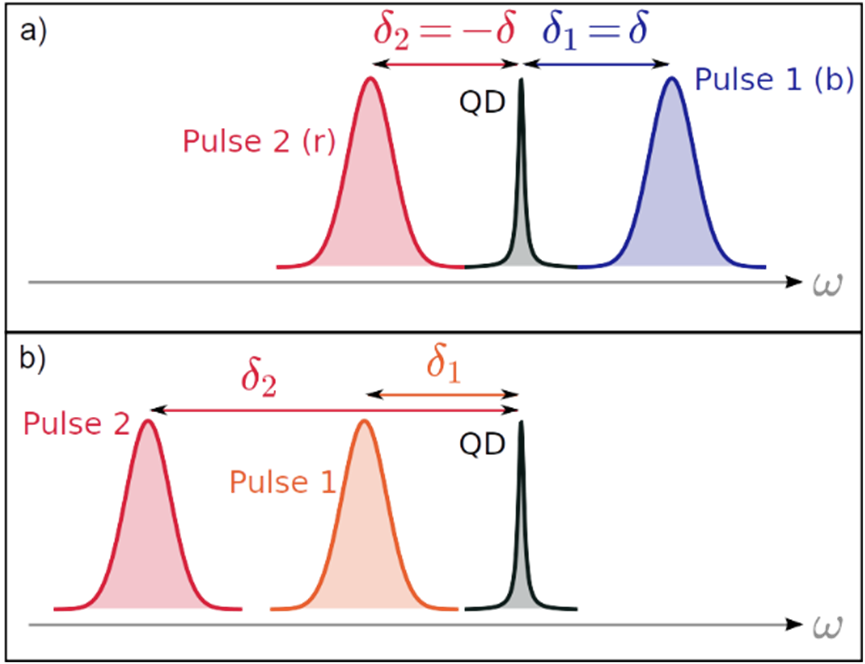
Finally, we shed light on the working principle behind two-color excitation and the role of the two pulses. Going beyond the semi-classical approximation, we present a fully quantum-mechanical model for an emitter interacting with two field modes, which shows that the excitation dynamics involves an exchange of photons between the emitter and both field modes, and that it is, therefore, a multi-photon process [8].
References
[1] J. Iles-Smith, D. P. McCutcheon, A. Nazir, and J. Mørk, Nat. Photonics 11, 521-526 (2017).
[2] B.-Y. Wang et al., Phys. Rev. B 102, 125301 (2020).
[3] Y.-M. He et al., Nature Physics 15, 941-946 (2019).
[4] Z. X. Koong et al., Phys. Rev. Lett. 126, 047403 (2021).
[5] T. K. Bracht et al., PRX Quantum 2, 040354 (2021).
[6] Y. Karli et al., Nano Lett. 22, 6567 (2022).
[7] L. Vannucci and N. Gregersen, Phys. Rev. B 107, 195306 (2023).
[8] L. Vannucci and N. Gregersen, unpublished.
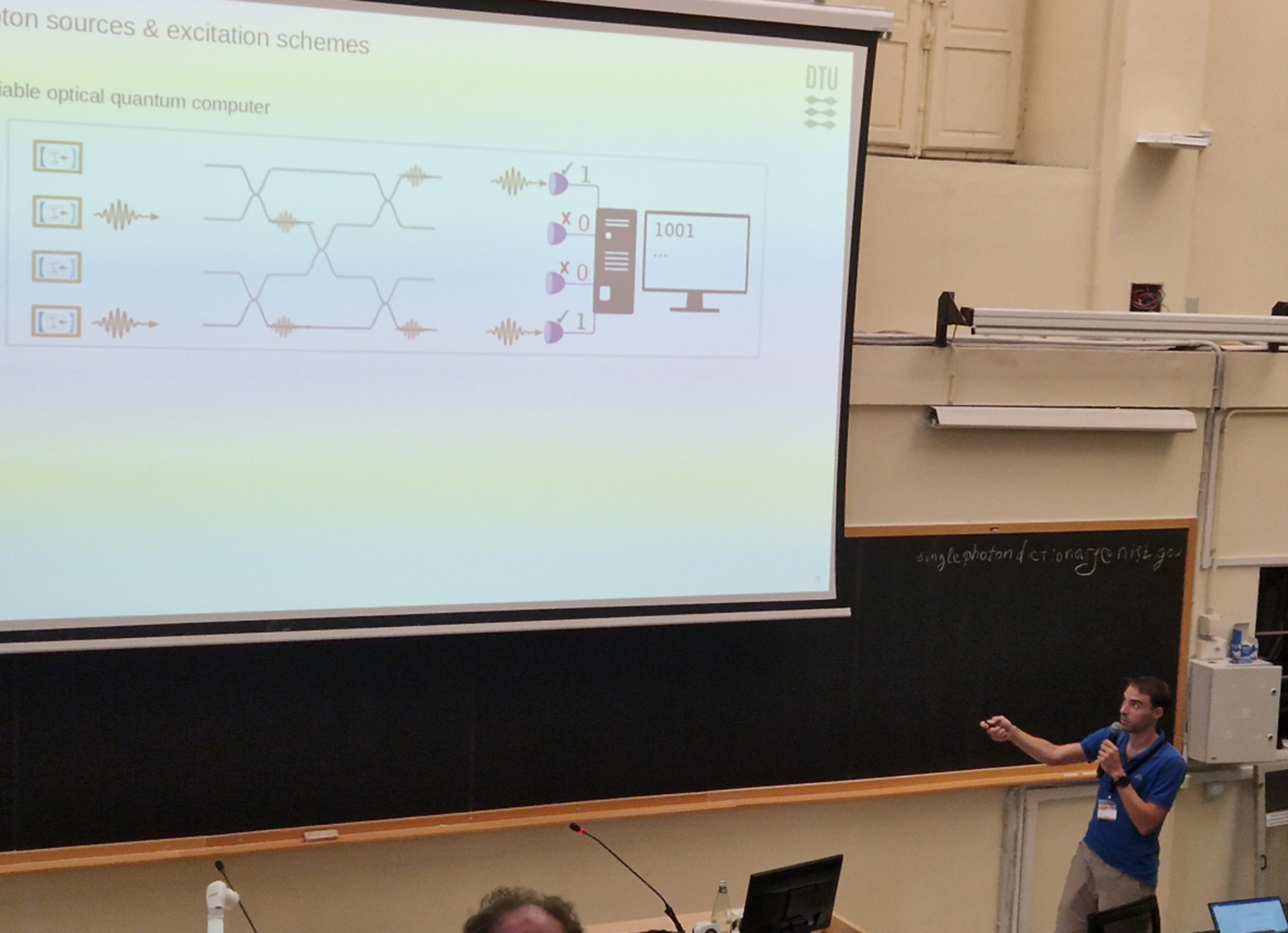
MDPI Entropy Best Young Research Talk Award winner Dr. Luca Vannucci during his talk at Quantum 2023 in Turin (courtesy of A. Huck).
2 October 2023
MDPI Insights: The CEO’s Letter #4 - MDPI Presence in China

Welcome to the MDPI Insights: The CEO's Letter.
In these monthly letters, I will showcase two key aspects of our work at MDPI: our commitment to empowering researchers and our determination to facilitating open scientific exchange.
Opening Thoughts

Open Access in China
It is Saturday, 23 September, and I have just returned from an unforgettable 12-day trip to China, visiting our main offices in Beijing and Wuhan. In the wake of a packed and very enjoyable agenda of internal and external meetings, I would like to use this edition of the CEO Letter to showcase how MDPI supports the scholarly community in China.
Coincidentally, Jack McKenna, Communications Associate from MDPI’s corporate content team, has just released a blog article discussing China’s open access (OA) policy. It is a timely read, providing a concise overview of the development of the OA movement in China and reflecting on its future. I shall draw some content from Jack’s piece and use this edition of the CEO Letter to highlight the various ways in which MDPI is involved in this market. And it would be remiss of me not to include some pictures and highlights from my travels!
Open Access Policy in China
As per Jack’s post, in 2020, China became the world’s leading producer of research articles. Today, China is experiencing a “substantial growth rate in OA [Open Access] publication”. This growth is supported by the State’s commitment to research & development and its policy “requiring the promotion of open science”.
Over the past two decades, there have been gradual developments in China’s OA framework, with repositories and platforms being developed in a consistent manner. Currently, key institutions across China – including the National Science Library, the National Science and Technology Library, and the Natural Science Foundation of China – support OA. The State aims to establish consistent policies across government agencies – a framework for a more encompassing embrace of OA across institutions.
In China, the number of subscription-only articles decreased by nearly 30% over the 10-year period of 2011–2021, while gold OA increased by 22%. Between 2017 and 2020 alone, China published 800,921 academic papers in an OA format.
In 2023, as the leading publisher of academic research, China is pursuing “self-reliance”. Therefore, the State will be establishing consistent policies across government agencies, including those related to OA. Additionally, it will want to ensure that Chinese people can access the research that is supported by Chinese funding and produced by Chinese academics. For this reason, “Open Access is a matter of priority in China”.
MDPI Offices in China
While the history of MDPI begins in Basel, Switzerland, the story of MDPI’s founder is very much rooted in China. Dr. Shu-kun Lin, Founder and President of MDPI, graduated with a BSc from Wuhan University in 1982. He also studied physical chemistry at the Lanzhou Institute of Chemical Physics, Chinese Academy of Sciences (1982–1986; MSc in 1985), and at the University of Louisville, USA (1987–1989). Dr. Lin completed his doctorate in organic chemistry at the Swiss Federal Institute of Technology (ETH-Zürich) in 1992.

Stefan Tochev (CEO, MDPI) at MDPI’s Wuhan office.
In 2002, MDPI’s Basel headquarters moved to Matthäusstrasse 11, 4052 Basel, and Dr. Lin opened an editorial office in Qingdao, China, which launched the journal Marine Drugs in the following year. Below is a list of MDPI’s current offices in China and their respective dates of inauguration:
- 2008: Beijing (Tongzhou, Haidian)
- 2013: Wuhan (Hankou, Guanggu)
- 2019: Tianjin
- 2021: Dalian
- 2021: Nanjing
Our Strength is in Our People
With over 6,000 MDPI staff, across 20 offices in 11 countries, MDPI is able to offer authors responsive and efficient round-the-clock support, enabling a rapid publication process.
In my experience, stakeholders are genuinely surprised when they realize the extent of our global operations. My response is to reiterate that our people are our strength. This is why we have fast and efficient processes and top-notch responsiveness. Our global presence ensures that your manuscript is constantly attended to, rather than sitting on someone’s desk. We prioritize our authors’ needs and act quickly to move things through the various stages of publication. MDPI is built on speed, convenience, and competence, which I believe are core pillars for success in any industry. We continually strive to improve our systems and processes on the basis of these core strengths. We literally have over 6,000 staff worldwide dedicated to serving your needs. It’s not magic: it’s people; it’s real.
Impactful Research

MDPI Awards
To support the academic community, and especially young researchers, and also to enhance communication among scientists, MDPI journals offer various awards in specific fields. We serve the scientific community by funding research to facilitate the development of sustainable global solutions through our annual World Sustainability Award and Emerging Sustainability Leader Award.
In 2022, MDPI made awards totalling over US$1 million in recognition and support of researchers worldwide.
Across our journal catalogue, we have granted over 2,000 awards to recognize and support researchers from all disciplines. Since 2016, these awards have served as a source of recognition, acknowledging the impact of research by heightening the influence of talented individuals. The award types mainly include the Young Investigator Award, the Best PhD Thesis Award, the Best Paper Award, and the Outstanding Reviewer Award.
To learn more about MDPI Awards and to find out which are currently available, please click here.
MDPI Awards to Scholars from China
Since 2021, there have been 23 Best Paper Awards granted to authors affiliated with Chinese institutions, identifying their papers as having high-quality scientific impact. A total of 45 Chinese scholars have received awards such as the Young Investigator Award, the Best PhD Thesis Award, the Outstanding Reviewer Award, and the Tu Youyou Award, among others. Prizes for these awards include MDPI grants for paid publications, totalling over CHF 70,000 for scholars affiliated with Chinese institutions.
MDPI’s Tu Youyou Award

Prof. Tu Youyou (left), Dr. Shu-Kun Lin (President, MDPI).
In 2015, Professor Tu Youyou was awarded the Nobel Prize in Physiology or Medicine “for her discoveries concerning a novel therapy against Malaria.” In order to commemorate Professor Tu’s contributions to human health and to promote the passion and spirit conveyed by her experiences, MDPI in 2016 established the ‘Tu Youyou Award’, which runs biennially to recognize outstanding scholars dedicated to the research of natural products and medicinal chemistry.
The 2022 Tu Youyou Award was granted to Prof. Dr. Xiaoguang Lei of Peking University. Click here to access the interview with the winner.
2015 Nobel Prize for Medicine Awarded to Professor Youyou Tu
Professor Tu’s work was celebrated in a Special Issue from Molecules on the occasion of her 80th birthday. The Special Issue: 'Artemisinin (Qinghaosu): Commemorative Issue in Honor of Professor Youyou Tu on the Occasion of her 80th Anniversary” was created five years before she won the Nobel Prize, highlighting the visibility MDPI provides researchers and their work.
Highly Cited Articles by Chinese Scholars Published in MDPI
Click here to access the most cited MDPI papers published by scholars affiliated with Chinese institutions. This list presents the most influential research from the more than 287,000 MDPI papers published by Chinese scholars. With over 9 million total citations, I encourage you to maximize your visibility and impact by publishing with MDPI, the number one most cited open access publisher.
Read more:
- Tu Youyou Award
- World Sustainability Awards
- Available Awards
Inside MDPI
 Stefan Tochev (CEO, MDPI) with the Beijing Marketing team.
Stefan Tochev (CEO, MDPI) with the Beijing Marketing team.
Marketing Department in China
During my visit to our offices in Beijing and Wuhan, I had the opportunity to meet with, and to present to, our local marketing teams. These teams are responsible for various journal-related and corporate promotional activities, including newsletters, conferences, seminars, author training, journal awards, content creation, digital marketing, and social media.
I was pleased by the ambition and curiosity of our marketing colleagues. They showed a strong desire to collaborate and acquire knowledge and tactics to effectively market and promote MDPI-journal-related activities. I presented some of the principles and objectives that we apply in the Corporate Marketing and Communications department, and used the opportunity to strengthen our collaborative communications across offices.
 Stefan Tochev (CEO, MDPI) with the Wuhan Marketing team.
Stefan Tochev (CEO, MDPI) with the Wuhan Marketing team.
Coming Together for Science

Collaborations, Scholarships and Meetings
MDPI maintains partnerships with nearly 190 learned societies and over 800 institutions and consortia, helping to facilitate the transition to OA publishing. Our commitment to working with institutions is evident in China, where we have successfully established over 35 Institutional Open Access Programs (IOAP) with esteemed institutions such as the Tsinghua University, Huazhong University of Science and Technology, and Shanghai Jiao Tong University.
Our institutional partnerships, waiver programs, and article processing cost discounts create diverse pathways to OA publishing for researchers worldwide.
Scholarships in China
Since 2021, several MDPI journals (Sensors, Photonics, Coatings, Materials, Energies, and Journal of Fungi) have funded full scholarships for four Master’s and five Ph.D. projects in China. These scholarships align with Tianjin University, Wuhan University of Technology, Central South University, the Chinese Academy of Sciences, and the China University of Petroleum (Beijing).
Meeting with the Society of Chinese University Journals (CUJS)

Prof. Tieming Zhang (President of CUJS, centre) and MDPI colleagues at CUJS office.
I am pleased to have participated in some highly productive meetings during my visit to China, including one with the Society of Chinese University Journals (CUJS). The meeting involved Prof. Tieming Zhang (President of CUJS), Assoc. Prof. Xin Zhang (Vice President and Secretary General), and Dr. Fei Gao (Executive Member of CUJS). Alongside my colleagues Dr. Guoshi Liu, Dr. Giulia Stefenelli, and Anita Sun, I represented MDPI and held an open discussion to address any questions regarding OA and MDPI.
We discussed several methods for collaboration, including a workshop on the future of peer review, MDPI sponsoring a funding grant for early-career researchers, and transitioning journals from diamond to gold OA. I am thankful for the opportunity to have met our colleagues at CUJS in person and feel very confident about our future collaborations in support of OA publishing in China.
MDPI hosts free academic seminars, author training sessions, and academic conferences as part of its commitment to enrich and support the scholarly community. CUJS often stages academic events (e.g., conferences, editor training, and editor competitions), and I believe there are great opportunities for CUJS and MDPI to collaborate accordingly.
Meeting with National Science Library, Chinese Academy of Sciences (NSLC)

Stefan Tochev (CEO, MDPI), Dr. Giulia Stefenelli (Chair of Scientific Officers, MDPI), Anita Sun (PR Manager, MDPI) and Dr. Guoshi Liu (Managing Director, MDPI) at the National Science Library, Chinese Academy of Sciences.
We also visited the NSLC Director, Xiwen Liu, and colleagues Ying Jin, Zhesi Shen, and Sichao Tong. Following our introductions, we gave a presentation on the history and editorial process at MDPI, discussing specific details related to MDPI’s business and data. We highlighted the status of our IOAP collaborations in China and the makeup of our author base, specifically in China, and drew attention to the fact that MDPI has published research by authors from every country in the world. We then discussed the design indicators, calculation methods and implementation purposes of the ‘Early Warning Journal List’ and how we can have open communication to provide any data regarding MDPI journals. I am pleased to report that we reached a consensus on future communications, and am grateful to NSLC for hosting us in their offices.
In-person meetings with stakeholders provide an invaluable opportunity to communicate what MDPI is about and the various ways in which we serve the scholarly community. While digital marketing and online communication are essential, they are no replacement for the understanding and trust that come about through in-person interactions.
The Numbers
As at September 2023, China holds the largest position in MDPI’s global market, ranking as the largest contributor to the total number of papers published by MDPI.
At this point in time, there were more than 847,000 China mainland scholars who have published with MDPI, 51 of whom are Section-Editors-in-Chief (SEiC) of MDPI journals, with seven serving as Editors-in-Chief (EiCs) for journals such as Air, Big Data and Cognitive Computing, Blockchains, Future, Nanoenergy Advances, and Targets.
Our growth and presence in China are a true testament to the service we provide to the scholarly community, and to the relationships we foster through collaborative activities. We look forward to continuing to support the growth of the scholarly community in China, providing a valuable and trusted experience with MDPI.
Closing Thoughts
Final Reflections on our MDPI Offices in Beijing and Wuhan

Stefan Tochev (CEO, MDPI), Dr. Constanze Schelhorn (Indexing Manager, MDPI), Jiale Shang (Admin, Tongzhou, MDPI) at Beijing Capital International Airport, Beijing.
I spent approximately two weeks visiting some of our offices in China, and the first word that comes to mind when describing my experience is ‘hospitality.’ My colleagues and I were met with enthusiasm and delight at the airport by the Tongzhou Admin team (thank you, Jiale Shang, and thank you, Eric Wang, for keeping us organized on this trip!) and were taken care of with great attention. From hotels to transportation, dinners, and meetings, our stay was catered for perfectly.
Perhaps this is where MDPI’s focus on customers and service originates. At our core, we are a service company that provides a publishing platform for its authors. It’s therefore no surprise that authors consistently rate their experience with MDPI very highly.
95% of submitting authors rate their overall experience with the MDPI publication process as Excellent or Good (Springer Nature report 90%).
91% of submitting authors rate their overall experience with the MDPI peer review process as Excellent or Good.
Speed/Efficiency and Editorial Relationship are two key reasons underlying this high satisfaction score. ‘Editorial Relationship’ can be further explored, but in the past month, the most commonly noted aspects were the professionalism, kindness, availability, communicativeness, and personalized assistance provided by our editorial staff throughout the process. These attributes are at the core of our work across all our offices and continents.
Hospitality and Service
Just as our Chinese colleagues strove to keep us engaged by showing us the city sights (thank you, Thea Pan, and Jason Wu from the Wuhan Marketing team!) and sharing a variety of wonderful meals, our editorial staff are committed to serving our authors throughout their publishing journey. Our aim is to place the author at the centre of everything we do, eager to welcome our ‘guests’ and provide them with a pleasant publishing experience.
I asked my colleague Francis Wu (Senior Publisher, Wuhan office) where this hospitality originates. He responded that it is part of Chinese culture. I reflected long and deep on this answer. China is a vast country, and when visitors arrive, hosts want to ensure they feel welcomed and taken care of in order to maximize their time and visit. I can’t think of a better analogy for how I would want our authors to feel when they visit MDPI for their publishing needs. A company culture that prioritizes service, something that goes beyond products and productivity, and focuses on the overall experience. Over 6,000 people, across all MDPI offices, are ready, willing and able to go the extra mile for their colleagues and their customers. This is something I am truly proud of.
Chief Executive Officer
MDPI AG
6 September 2023
Recap of Awards Granted to Scholars in 2022
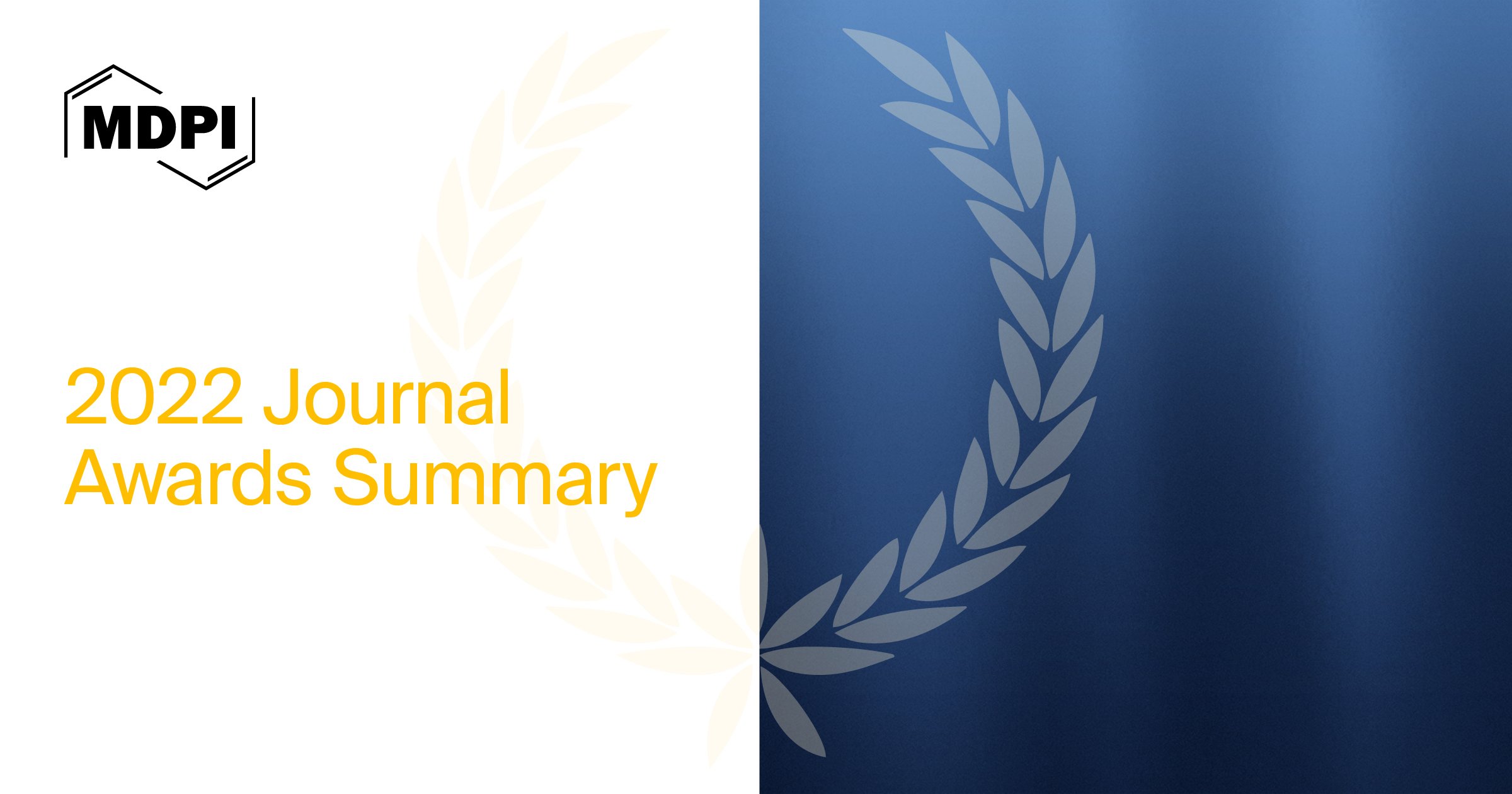
MDPI is committed to supporting the academic community, nurturing talent and advancing science. Awards are an important part of the research landscape and play a vital role in helping academics gain recognition, especially young researchers as they embark on new research avenues.
In 2022, our journals presented a total number of 394 Awards, including Travel Awards, Young Investigator Awards, Best PhD Thesis Awards, Best Paper Awards, and Outstanding Reviewer Awards, with several winners announced for some of the awards. The total prize sum amounted to just under 580,000 Swiss francs (CHF), or approximately 650,000 US dollars. Overall, more than 720 scholars were awarded.
The majority of the awards were dedicated to young researchers in relatively early stages of their careers. This encompassed 66 of the afore-mentioned Travel Awards, 60 Young Investigator Awards, supporting research projects and conference attendance, as well as 51 Best PhD Thesis Awards. Additionally, 113 Best Paper Awards were given by our journals. The selection committees were entrusted with identifying the most impactful and novel research and review articles published in their journal within a given year.
MDPI will continue its support and recognition for the academic community moving forward, sponsoring new awards across disciplines. To learn more about all the awardees and their research projects in your field of study, please visit the following pages:
To explore more MDPI awards, please click here.
30 August 2023
MDPI Insights: The CEO’s Letter #3 - Sustainability and Co-opetition

Welcome to the MDPI Insights: The CEO's Letter.
In these monthly letters, I will showcase two key aspects of our work at MDPI: our commitment to empowering researchers and our determination to facilitating open scientific exchange.
Opening Thoughts

Our Commitment to Sustainability
As a pioneer in academic open access publishing since 1996, MDPI has always been dedicated to facilitating scientific exchange across all disciplines. Our approach to open science is guided by principles such as Open Access (OA), Timeliness and Efficiency, Simplicity, High-Quality Service, Flexibility, and a commitment to Sustainability. This commitment involves preserving published papers for the long term and supporting the future of science through partnerships, sponsorships, and awards.
In this edition of the CEO Letter, I will delve into MDPI’s various sustainability initiatives. As a leader in OA publishing, we are able to provide the public with a significant amount of environment-related content at no cost.
MDPI and the Sustainable Development Goals (SDGs)
In 2020, the SDG Publishers Compact was launched to accelerate implementation of the SDGs by promoting content that informs, develops, and inspires action. MDPI joined this initiative in 2021 and subsequently launched the MDPI SDG Hub in 2022, offering free access to recent research within the scope of each of the 17 SDGs. We also support authors from underrepresented communities by waiving publication charges for selected SDG-related papers. Detailed sustainability practices and supported publications are available in the report under each Goal page.
“More than 80% of MDPI articles and reviews published in 2022 relate to the Sustainable Development Goals.” [source: InCites, Accessed on 21.08.2023]
As at August 2023, MDPI boasts 14 journals dedicated to sustainability-related topics. Our first journal in this area, Sustainability, has published over 29,000 articles on the SDGs, accumulating over 240,000 citations (source: InCites, as at 1 January 2023). These journals serve as vital platforms for researchers to share insights and address environmental challenges. In addition:
MDPI journals specializing in sustainability-related topics:
- 2009: Sustainability
- 2012: Resources
- 2013: Climate
- 2014: Environments
- 2016: Recycling
- 2019: Clean Technologies
- 2020: Sustainable Chemistry
- 2021: Wind, Biomass, Conservation, Pollutants, Solar
- 2022: Waste, Microplastics
Read more:
Impactful Research

Highly Cited Articles in Sustainability
In 2022, content published in Sustainability and indexed in Journal Citation Reports (JCR) received nearly 190,000 citations. This highlights the fact that Sustainability publishes highly cited research articles related to environmental sciences and SDG-related topics such as climate action.
We are pleased to share that Sustainability received a 2022 CiteScore of 5.8, marking a 16% increase from the 2021 metric. Specifically, the CiteScore positions Sustainability as follows: Q1 (27 out of 163) in the “Environmental Science (miscellaneous)” category, and Q1 (101 out of 779) in the “Geography Planning and Development” category. For additional journal statistics, please visit here.
“Sustainability received a 2022 CiteScore of 5.8”
While MDPI journals such as Climate and Atmosphere have a distinct focus on atmosphere pollution and its impact on climate processes, journals like Sustainability, Environments, Water, Remote Sensing, and IJERPH publish content related to climate change. These journals have published over 32,300 articles related to SDG 13: Climate Action.
Highly Cited Papers in Sustainability
Below are several highly cited papers published in Sustainability over the past three years. Citation metrics are current as at 15 August 2023.
1. “A Global Assessment: Can Renewable Energy Replace Fossil Fuels by 2050?”Authors: Jerry L. Holechek, Hatim M. E. Geli, Mohammed N. Sawalhah, and Raul Valdez
Sustainability 2022, 14(8), 4792; https://doi.org/10.3390/su14084792
Citations: Crossref (97), Scopus (91), Web of Science (82), Google Scholar (125)
This paper addresses one of the most significant challenges of climate change – achieving Net Zero Carbon by 2050. The meta-analysis suggests that while difficult, this transition is possible through the concerted application of pathways, lifestyle changes, and global cooperation.
2. “Anxiety and the Ecological Crisis: An Analysis of Eco-Anxiety and Climate Anxiety”Author: Panu Pihkala
Sustainability 2020, 12(19), 7836; https://doi.org/10.3390/su12197836
Citations: Crossref (144), Scopus (121), Web of Science (159), Google Scholar (382)
This paper has received substantial media attention, including coverage by The Guardian, BBC, Vice, and CNBC. An interview with Dr. Panu Pihkala, a leading interdisciplinary researcher on the topic, can be found on MDPI’s podcast: Insight Faster, Episode 1.
3. “Impact of Climate Change on Agriculture and Its Mitigation Strategies: A Review”Authors: Gurdeep Singh Malhi, Manpreet Kaur, and Prashant Kaushik
Sustainability 2021, 13(3), 1318; https://doi.org/10.3390/su13031318
Citations: Crossref (207), Scopus (221), Web of Science (186), Google Scholar (355)
This paper reviews literature on climate change, addressing its causes, future projections, impact on agriculture, including plant physiology, growth, productivity, pest infestation, and the economic implications of mitigation strategies.
4. “Impacts of Plastic Pollution on Ecosystem Services, Sustainable Development Goals, and Need to Focus on Circular Economy and Policy Interventions”Authors: Rakesh Kumar, Anurag Verma, Arkajyoti Shome, Rama Sinha, Srishti Sinha, Prakash Kumar Jha, Ritesh Kumar, Pawan Kumar, Shubham, Shreyas Das, Prabhakar Sharma, and P. V. Vara Prasad
Sustainability 2021, 13(17), 9963; https://doi.org/10.3390/su13179963
Citations: Crossref (134), Scopus (136), Web of Science (113), Google Scholar (184)
This review aims to assess the adverse effects of plastic pollution on ecosystems, link the management of plastic with the SDGs, and propose policy measures using transdisciplinary approaches. Empowering communities to reduce plastic use is crucial. Addressing global plastic pollution is a priority.
Sustainability is an international, cross-disciplinary, open access journal that explores environmental, cultural, economic, and social sustainability of human beings. It provides a forward-looking platform for research on sustainability and sustainable development, and is published semi-monthly online by MDPI. Sustainability is affiliated with The Canadian Urban Transit Research & Innovation Consortium (CUTRIC) and The International Council for Research and Innovation in Building and Construction (CIB).
Read more:
- Testimonials: See what our editors and authors say about Sustainability.
Inside MDPI

President of Ireland Authors Editorial in MDPI Journal Sustainability
It’s a very special occasion when the president of a country takes the initiative to write an editorial for a journal. Michael D. Higgins, President of the Republic of Ireland, has contributed his insights to a forthcoming Special Issue in Sustainability:

This Special Issue, focusing on “making sustainable development happen” at grassroots levels, allows for perspectives from, and on, the major world faiths, exploring how challenges have been conceptualised and addressed, in addition to case studies of faith-based sustainability initiatives in practice.
The experience of faith institutions and communities in translating theological and moral commitments to sustainable development into action is now a topic we must examine with urgency; one on which I am so glad this Special Issue focuses.
As President of Ireland, I very much support this Special Issue of Sustainability. It is my great hope that the contents of the papers contained herein will assist in making sustainable development happen at grassroots levels across the world so that we can cooperate together, people of faith and of none, to ensure a just, inclusive and sustainable future for all on our fragile planet.
Read the completed editorial here:
Special Issue “Faith and Sustainable Development: Exploring Practice, Progress and Challenges among Faith Communities and Institutions”: Foreword by the President of Ireland
Author: Michael D. Higgins
Sustainability 2023, 15(12), 9683; https://doi.org/10.3390/su15129683
Coming Together for Science

The World Sustainability Forum 2023
The World Sustainability Forum (WSF) is a biennial MDPI event focused on sustainability. WSF 2023 marks the tenth anniversary of the conference series, taking place on 14 September. For the first time, the event will be hosted as a 24-hour conference across three locations – Singapore, Basel in Switzerland, and Toronto in Canada – alongside virtual streaming.
This unique format allows us to span three time zones, providing live coverage of critical sustainability-related topics throughout the day:
- The Singapore Hub, chaired by Professor Horn Mun Cheah and Associate Professor Renee Tan, will explore “Sustainability for Social and Community Impact”.
- The Basel Hub, chaired by Prof. Dr. Anet Režek Jambrak and Dr. Lela Mélon, will delve into “Sustainability in the industry, and at university and corporate settings”.
- The Toronto Hub, led by Dr. Umberto Berardi, will discuss “The Sustainable Built Environment”.
MDPI Sustainability Foundation: Recognizing Excellence in Sustainability Research
The MDPI Sustainability Foundation supports researchers through two sustainability-focused awards:
- The World Sustainability Award, amounting to USD 100,000, is given to senior researchers.
- The Emerging Sustainability Leader Award, valued at USD 20,000, sponsored by the journal Sustainability, is presented to early-career researchers.
The winners of the Sustainability Foundation will be formally awarded during the WSF2023 on 14 September. Interviews with the award winners and finalists are available below.
2023 World Sustainability Award Winners
Interviews with 2023 Emerging Sustainability Leader Award Finalists
- Dr. Bahareh Kamranzad
- Dr. Youjin Kim
- Dr. Julia Lohmann
As a hybrid event, WSF23 provides scholars with the option to attend in person at one of the conference sites or, for a more sustainable approach, virtually. All sessions will be recorded and archived for future access. Registration is open until 3 September 2023, with in-person and virtual tickets available here.
Read more:
Closing Thoughts
“Co-opetition”: Collaboration Plus Healthy Competition – A Visit to Elsevier
I firmly believe in fostering collaboration and at the same time promoting healthy competition within the academic publishing industry. The market offers ample room for publishers and related companies to provide valuable services and products that enrich the academic community. While MDPI is recognized for its efficient and streamlined processes –thanks to our over 6,000 colleagues, in-house tools, and initiatives that support the author journey – our ethos has always involved learning from and collaborating with other organizations.
MDPI’s Interaction with Elsevier
In January 2023, I had a brief conversation with Judy Verses, President of Global Academic and Government Markets at Elsevier, following her participation in a panel discussion at the Academic Publishers Europe event in Berlin. One of the highlights for me was Judy’s insight into the impact of research, particularly her emphasis on the role of collaboration, including policy and showing the impact of research to influence on funding decisions.
“Such collaborations drive forward-looking strategies to elevate our support for the scholarly community”

Judy and I resumed our discussion in August, when I visited Elsevier's office to review current projects, such as our recent agreement with Science Direct and the continued indexing of MDPI journals in Scopus (indexing database owned by Elsevier). We also explored possible opportunities for the future, including a potential collaboration to expand MDPI’s Scilit data infrastructure. This endeavour aims to aggregate and provide access to scholarly metadata encompassing journal articles, conference papers, books, preprints, and more. While these discussions are ongoing, the underlying principle remains that such collaborations drive forward-looking strategies to elevate our services and support for the scholarly community.
It was great that Judy and I acknowledged the merits of 'co-opetition,' a concept based of the belief that fostering cooperation alongside healthy competition can lead to shared advancements for both individual companies and the industry at large.
‘Fully OA’ Organizations Dedicated to Open Access

MDPI proudly aligns with the ‘Fully OA’ group, a collaborative initiative comprising nine organizations dedicated to Open Access. Our monthly meetings, including an OASPA representative, serve as platforms to share non-confidential information, resources, and projects. These gatherings also facilitate discussions on topics relevant to fully OA organizations. Occasionally, joint actions spring from these interactions, such as collaborative blog posts on pertinent subjects and joint statements, such as a recent response to the House Appropriations Committee.
This display of cooperation among competing entities forms a strategic alliance focused on nurturing the best interests of the OA publishing model.
As I wrap up this third edition of the CEO Letter, I encourage you to seize opportunities for collaboration and contribute to advancing our shared academic culture. As the African proverb has it, “If you want to go fast, go alone; if you want to go far, go together.”
Chief Executive Officer
MDPI AG
15 August 2023
Entropy Best ECR Presentation Award for CNS*2023 Workshop on Methods of Information Theory in Computational Neuroscience—Winner Announced
We are pleased to announce that the Best ECR (Early Career Researcher) Presentation Award, sponsored by Entropy (ISSN: 1099-4300) for CNS*2023 Workshop on Methods of Information Theory in Computational Neuroscience, was granted to Dr. Maria Pope from the Indiana University Bloomington, USA. Congratulations!
“Multivariate Information Theory Reveals Synergistic Subsystems of the Cerebral Cortex”
Abstract: One of the most well-established tools for modeling the brain is the functional connectivity network, which is constructed from pairs of interacting brain regions. While powerful, the network model is limited, as only pairwise dependencies are considered and potentially higher-order structures are missed. This talk will explore how multivariate information theory reveals higher-order dependencies in the human brain, presenting results obtained from applying recently introduced O-information to resting-state brain data to show that synergistic subsystems are widespread in the human brain. Highly synergistic subsystems typically sit between canonical functional networks. Maximally synergistic subsystems, found using simulated annealing to optimize for synergy dominance, typically comprise ≈10 brain regions recruited from multiple canonical brain systems. Results from partial entropy decomposition will be presented that further support the notion that canonical organizations of the brain focus largely on redundant information. Though ubiquitous, highly synergistic subsystems are invisible when considering pairwise functional connectivity, and our results suggest that highly synergistic systems do not fall along canonical system lines. In summary, it will be argued that higher-order interactions in the brain reflect an under-explored space, accessible with tools of multivariate information theory, that may offer novel scientific insights.
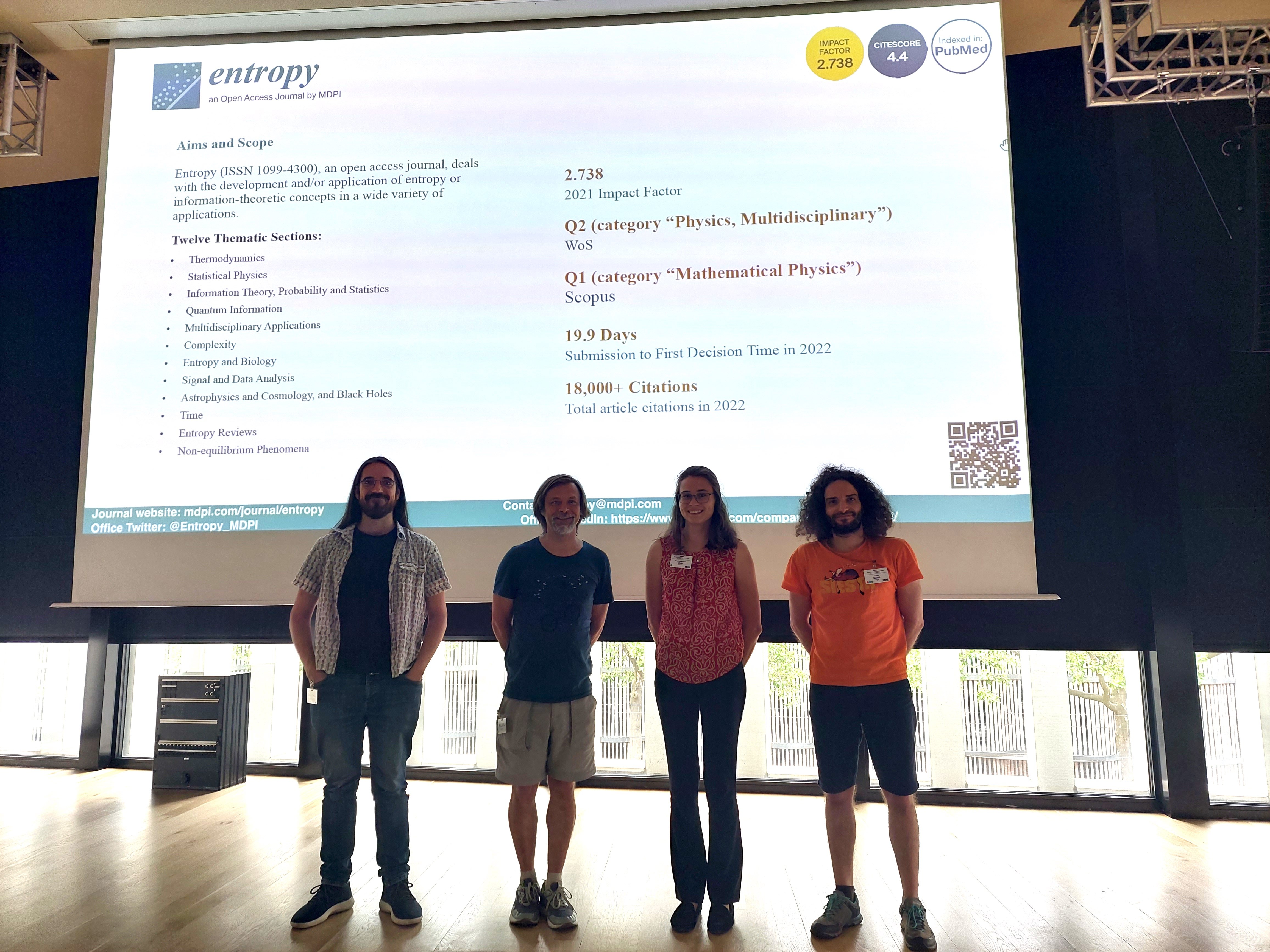
From left to right: Pedro Mediano (workshop organizer), Micahel Wibral (workshop organizer), Maria Pope (award winner) and Abdullah Makkeh (workshop organizer)
31 July 2023
MDPI’s 2022 Best PhD Thesis Awards in Physical Sciences—Winners Announced
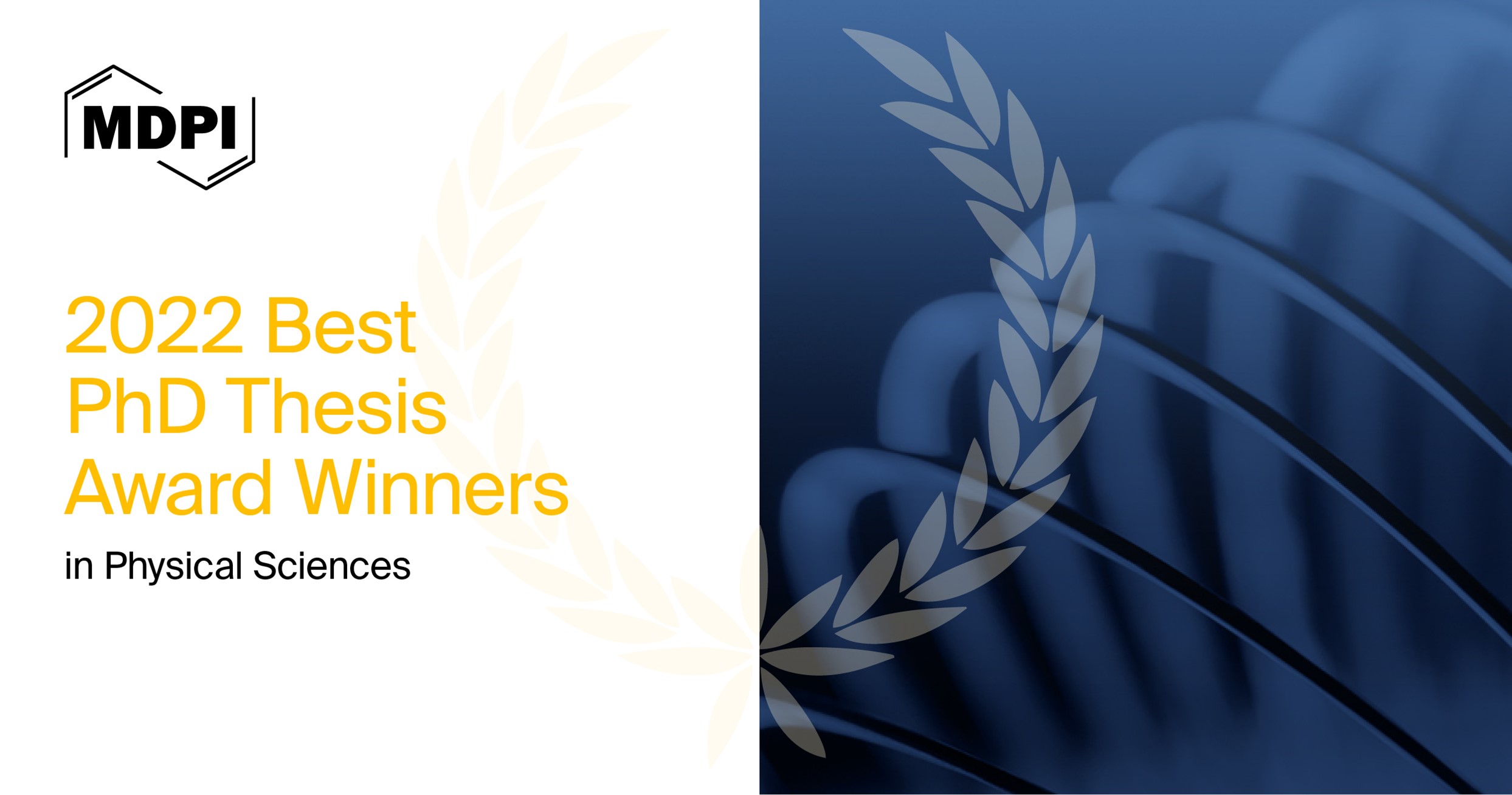
MDPI’s Best PhD Thesis Awards are presented to recognize the young scholars who are judged to have completed the most outstanding PhD thesis in their field of research and to encourage them to continue their outstanding work and make further contributions to their field.
We would like to warmly congratulate the winners of the 2022 Best PhD Thesis Awards and wish them success with their future research endeavors.
- “Probing Physics beyond the Standard Model with Heavy Hadron Decays”
by Francesco Loparco, The University of Bari Aldo Moro, Italy
- “An Innovative Data-Driven Reliability Life Cycle for Complex Systems”
by Gabriele Patrizi, University of Florence, Italy
About MDPI Awards:
In order to reward the academic community, especially young researchers, and enhance communication among scientists, MDPI journals regularly offer various awards to researchers in specific fields. These awards serve as a source of inspiration and recognition, and help promote the influence of talented individuals who have been credited with outstanding achievements and who are making a significant contributions to the advancement of their field.
To see more awards granted by MDPI, please click here.
31 July 2023
MDPI’s 2022 Best Paper Awards in Physical Sciences—Winners Announced
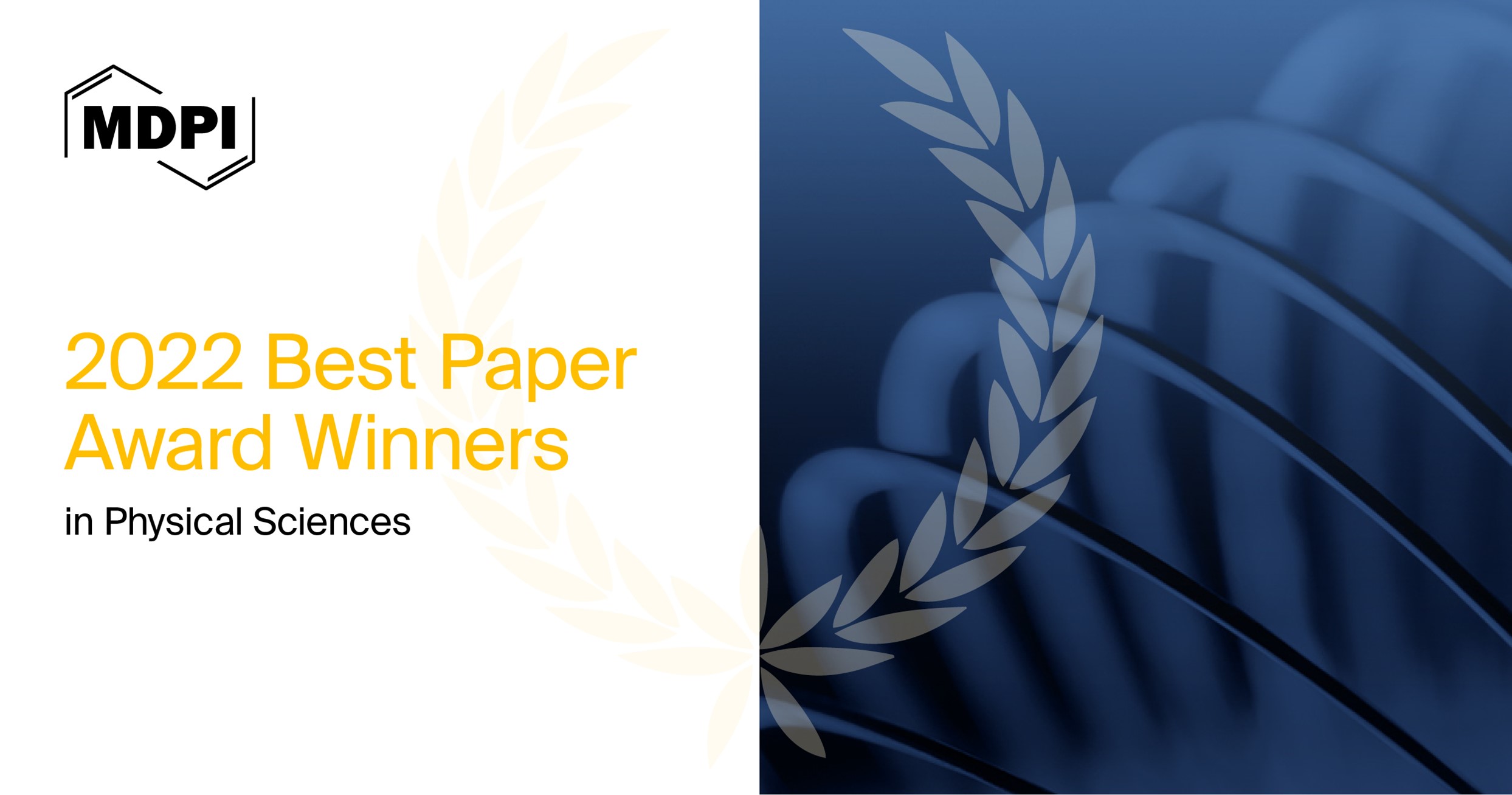
The purpose of our Best Paper Awards is to promote and recognize the most impactful contributions published within MDPI journals.
The editors of each journal carefully selected reviews and research papers through a rigorous judging process based on criteria such as scientific merit, overall impact, and the quality of presentation of the papers published in the journal.
We are honored to present the winners for the year 2022 in physical sciences, who were selected amongst extensive competition. We congratulate the authors for their outstanding scientific publications.
- “Thermodynamics in Ecology—An Introductory Review”
by Søren Nors Nielsen, Felix Müller, Joao Carlos Marques, Simone Bastianoni and Sven Erik Jørgensen
Entropy 2020, 22(8), 820; https://doi.org/10.3390/e22080820
- “The Role of Entropy in the Development of Economics”
by Aleksander Jakimowicz
Entropy 2020, 22(4), 452; https://doi.org/10.3390/e22040452
- “Large Deviations for Continuous Time Random Walks”
by Wanli Wang, Eli Barkai and Stanislav Burov
Entropy 2020, 22(6), 697; https://doi.org/10.3390/e22060697
- “Thermodynamics at Very Long Time and Space Scales”
by Bjarne Andresen and Christopher Essex
Entropy 2020, 22(10), 1090; https://doi.org/10.3390/e22101090
- “Geometric Optimisation of Quantum Thermodynamic Processes”
by Paolo Abiuso, Harry J. D. Miller, Martí Perarnau-Llobet and Matteo Scandi
Entropy 2020, 22(10), 1076; https://doi.org/10.3390/e22101076
- “The Hunt for Environmental Noise in Virgo during the Third Observing Run”
by Maria Concetta Tringali, Irene Fiori, Federico Paoletti, Kamiel Janssens, Christos Karathanasis, Alexis Menéndez-Vázquez, Alba Romero-Rodríguez, Ryosuke Sugimoto, Tatsuki Washimi, Valerio Boschi et al.
Galaxies 2020, 8(4), 82; https://doi.org/10.3390/galaxies8040082
- “Signatures of Lorentz Violation in Continuous Gravitational-Wave Spectra of Ellipsoidal Neutron Stars”
by Rui Xu, Yong Gao and Lijing Shao
Galaxies 2021, 9(1), 12; https://doi.org/10.3390/galaxies9010012
- “Promise of Persistent Multi-Messenger Astronomy with the Blazar OJ 287”
by Mauri J. Valtonen, Lankeswar Dey, Achamveedu Gopakumar, Staszek Zola, S. Komossa, Tapio Pursimo, Jose L. Gomez, Rene Hudec, Helen Jermak and Andrei V. Berdyugin
Galaxies 2022, 10(1), 1; https://doi.org/10.3390/galaxies10010001
- “Two Classes of Gamma-ray Bursts Distinguished within the First Second of Their Prompt Emission”
by Lána Salmon, Lorraine Hanlon and Antonio Martin-Carrillo
Galaxies 2022, 10(4), 78; https://doi.org/10.3390/galaxies10040078
- “Black Holes and Other Clues to the Quantum Structure of Gravity”
by Steven B. Giddings
Galaxies 2021, 9(1), 16; https://doi.org/10.3390/galaxies9010016
- “The Montevideo Interpretation: How the Inclusion of a Quantum Gravitational Notion of Time Solves the Measurement Problem”
by Rodolfo Gambini and Jorge Pullin
Universe 2020, 6(12), 236; https://doi.org/10.3390/universe6120236
- “Closed Timelike Curves, Singularities and Causality: A Survey from Gödel to Chronological Protection”
by Jean-Pierre Luminet
Universe 2021, 7(1), 12; https://doi.org/10.3390/universe7010012
About MDPI Awards:
In order to reward the academic community, especially young researchers, and enhance communication among scientists, MDPI journals regularly offer various awards to researchers in specific fields. These awards serve as a source of inspiration and recognition, and help promote the influence of talented individuals who have been credited with outstanding achievements and who are making a significant contributions to the advancement of their field.
To see more awards granted by MDPI, please click here.
31 July 2023
MDPI’s 2022 Outstanding Reviewer Awards in Physical Sciences—Winners Announced

In order to acknowledge our reviewers, who so generously dedicate their time to reviewing papers and demonstrate diligence, professionalism, and punctuality when reviewing manuscripts, MDPI journals regularly offer outstanding reviewer awards to scholars who participate in the peer review process.
We are proud to recognize the winners of the Outstanding Reviewer Awards for the year 2022 in the physical sciences for their outstanding contributions among extensive competition.
We would like to take this opportunity to congratulate all the winners on their achievements.
- Alexander Zlotnik, Higher School of Economics University, Russia
- Jim W. Kay, University of Glasgow, UK
- Irina Basieva, Linnaeus University, Sweden
- Sergio Luiz E. F. da Silva, 1Politecnico di Torino, Italy; 2Universidade Federal Fluminense, Brazil
- Michael Evans, University of Toronto, Canada
- Giuseppe Brunetti, Polytechnic University of Bari, Italy
- Igor Buzalewicz, Wroclaw University of Science and Technology, Poland
- Øyvind Grøn, Oslo and Akershus University College of Applied Sciences, Norway
- Vittorio De Falco, Scuola Superiore Meridionale, Italy
About MDPI Awards:
In order to reward the academic community, especially young researchers, and enhance communication among scientists, MDPI journals regularly offer various awards to researchers in specific fields. These awards serve as a source of inspiration and recognition, and help promote the influence of talented individuals who have been credited with outstanding achievements and who are making a significant contributions to the advancement of their field.
To see more awards granted by MDPI, please click here.
31 July 2023
MDPI’s 2022 Young Investigator Awards in Physical Sciences—Winners Announced
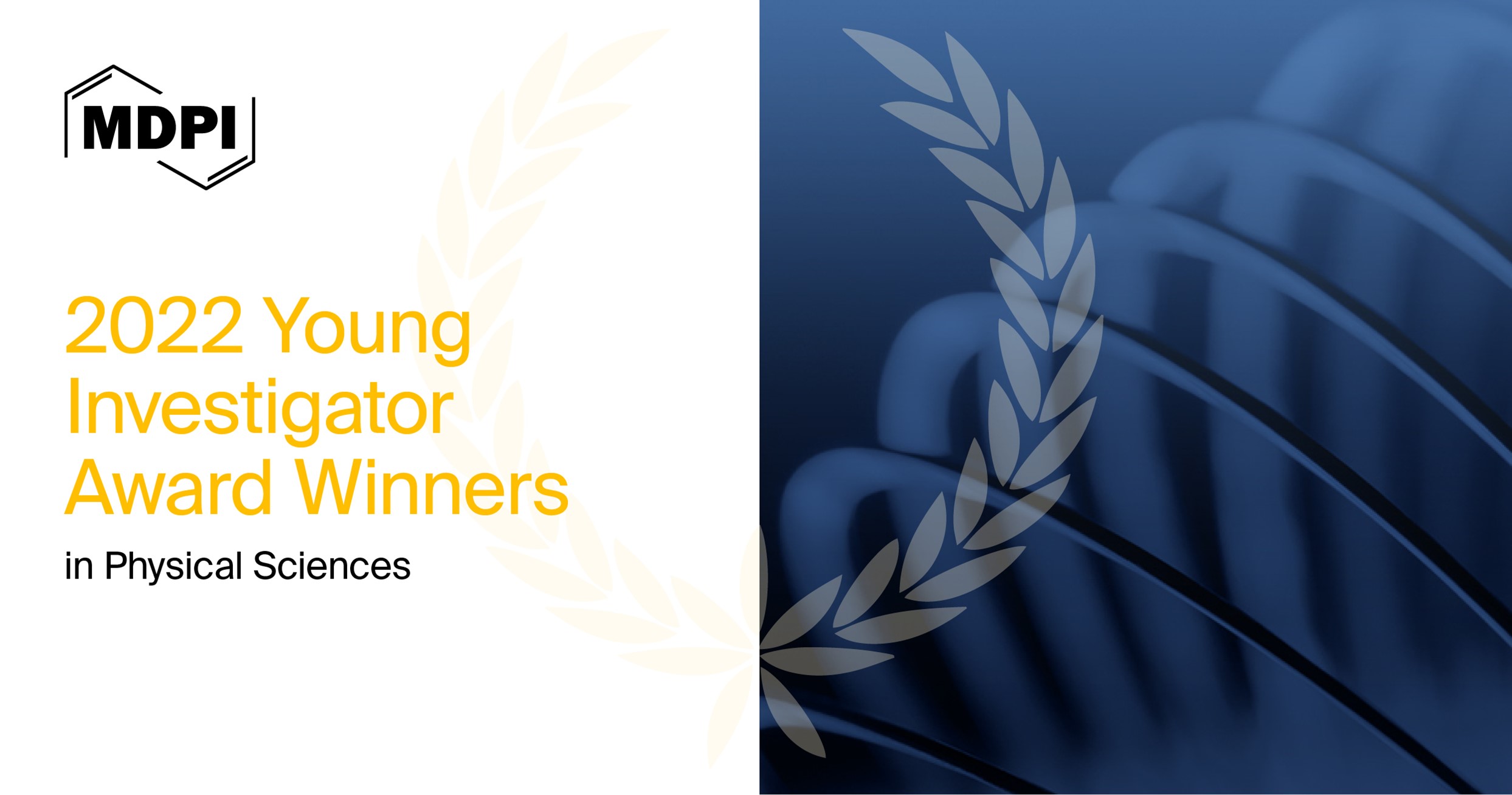
MDPI’s Young Investigator Awards recognize promising junior researchers, acknowledge their contributions, and enhance communication among scientists. We are proud to present the winners for the year 2022 in physical sciences. The winners were selected by the journals’ Award Evaluation Committee.
We warmly congratulate the awarded young investigators for their outstanding contributions.
- Xiao Yuan, Peking University, China
- Chao Zuo, Nanjing University of Science and Technology, China
About MDPI Awards:
In order to reward the academic community, especially young researchers, and enhance communication among scientists, MDPI journals regularly offer various awards to researchers in specific fields. These awards serve as a source of inspiration and recognition, and help promote the influence of talented individuals who have been credited with outstanding achievements and who are making a significant contributions to the advancement of their field.
To see more awards granted by MDPI, please click here.
27 July 2023
MDPI Insights: The CEO’s Letter #2 - Open Peer-Review and IJERPH

Welcome to the MDPI Insights: The CEO's Letter.
In these monthly letters, I will showcase two key aspects of our work at MDPI: our commitment to empowering researchers and our determination to facilitating open scientific exchange.
Opening Thoughts

Open Peer Review Reports
Continuing the topic of openness from my inaugural monthly CEO letter, in these Opening Thoughts, I highlight the growth and importance of open peer-review reports at MDPI. Open peer reports align with the principles of open science, making the publishing process more transparent and facilitating rigorous peer review.
MDPI journals operate an open peer-review option by default, allowing authors to publish review reports and author responses (often referred to as open reports) together with the published paper. Publishing the reviewer reports and author responses together with the article provides greater transparency and trust for readers, as this allows them to track the editorial decision-making process. Open peer-review also encourages reviewers and editors to provide high-quality comments, as these will be made public if the article is accepted for publication.
Start and Growth of Open Peer Review at MDPI
The MDPI journal Life was a pioneer in offering this opportunity to its authors in 2014. The first MDPI article with peer-review reports openly published was a review by the Nobel Laureate Werner Arber, in which the review reports were published as supplementary material. By 2018, open peer-review was available across all MDPI journals. As such, MDPI authors have embraced the open peer-review model, providing a steady increase in the number of MDPI articles. As of 2023, approximately one-third (34.0%) of MDPI articles were published with open review reports.
As at July 2023, the percentage of MDPI articles published with open peer review has increased to 36.2% of the total papers published in 2023 so far, indicating ongoing growth in adoption.
Open peer review continues to play a critical role in the assessment of the peer-review process in Life. For further insights, please see the recent editorial by Dr. Pabulo Henrique Rampelotto, the former Editor-in-Chief of Life, who spearheaded the implementation of the open peer-review process.
Benefits of Open Peer Review
The benefits of open peer review include increased transparency, trust and constructive feedback. To promote open communication further and increase the robustness of the peer-review process, we encourage reviewers to sign their reports so that their name appears on the review report (this process is referred to as open identity). The default option is for reviewers to remain anonymous; however, by signing the reports, reviewers receive direct credit for their contribution to the peer-review process and show their commitment towards open science.
As the leading open access publisher, MDPI remains committed to promoting open peer-review and encourages authors to choose this approach. Our goal is to provide a rigorous and transparent peer-review process that benefits the scientific community, and we believe that open peer-review is a vital step in fostering openness and collaboration in scientific communication.
Impactful Research

MDPI Papers Cited in the News – IJERPH edition
Every month, our corporate marketing team compiles data from Altmetrics to create a list of MDPI papers that have been cited in the news. This list continues to grow as renowned news outlets regularly reference research published by MDPI in their articles.
During 2022, a total of 111,965 MDPI research papers were mentioned in prominent news outlets such as National Geographic, The Washington Post, Forbes, The Guardian, the BBC, CNN, Time, and Harvard Business Review.
Highly Cited Journal Publications
IJERPH, known for publishing impactful research, received the most news mentions among all MDPI journals in 2022, based on Altmetrics data:
- International Journal of Environmental Research and Public Health: 3509 mentions
- Nutrients: 2698 mentions
- International Journal of Molecular Sciences: 1701 mentions
- Journal of Clinical Medicine: 1131 mentions
- Viruses: 1111 mentions
These numbers show the recognition and impact of the articles published in IJERPH. For a more detailed view of the journal’s most cited and viewed papers, you can visit here. In total, IJERPH has garnered over 28,000 mentions in prominent news outlets, and as at July 2023, an impressive count of over 17,000 papers cited 10 times or more. These figures highlight the impactful contribution of IJERPH publications to the scientific community.
Example of Recent Mentions
During May and June 2023, a noteworthy selection of articles from IJERPH was cited in news articles, including:
The Washington Post: “Bringing nature inside can improve your health. Here’s how to do it.”
IJERPH paper: “Physiological Benefits of Viewing Nature: A Systematic Review of Indoor Experiments”
Harvard Business Review: “How to Take Better Breaks at Work, According to Research”
IJERPH paper: “Canine-Assisted Therapy Improves Well-Being in Nurses”
National Geographic: “Lyme disease is spreading fast—but a vaccine may be on the way”
IJERPH paper: “Range Expansion of Tick Disease Vectors in North America: Implications for Spread of Tick-Borne Disease”
Inside MDPI

MDPI Develops an Artificial Intelligence Tool to Enhance the Peer-Review Process
At MDPI, we believe that rigorous peer-review is the corner-stone of high-quality academic publishing. We are grateful to the scholars who generously dedicate their time to peer-review articles submitted to MDPI journals. Their contributions are invaluable to the advancement of science.
Peer-review is a critical part of the publication process, ensuring that MDPI upholds the highest quality standards for the papers we publish. Every manuscript submitted to our journals undergoes a comprehensive peer-review process conducted by subject-matter experts.
To further enhance our peer-review process, our Data Analytics team has developed an Artificial Intelligence (AI) tool designed to support the selection of reviewers. This proprietary tool utilizes Natural Language Processing (NLP), a specially designed AI language model, to extract information from the title and abstract of submitted papers. It then searches our database for similar manuscripts and suggests potential reviewers based on this analysis. Integrated with MDPI's submission system (SuSy), the AI tool cross-references the suggested candidates with our reviewer database to verify their invitation status and availability.
The goal of this tool is to provide better targeted peer-review invitations, reducing the number of emails sent for each paper and increasing the efficiency of our editorial staff.
In the near future, our Data Analytics team plans to deploy similar AI projects to improve other critical aspects of our services, offering an enhanced experience to our authors and readers.
Click here to learn about MDPI’s review process, including procedures, responsibilities, and benefits.
Read more:
Coming Together for Science
The Future of IJERPH

On 5 July 2023, Prof. Dr. Paul B. Tchounwou, the founding Editor-in-Chief of IJERPH, along with five Section Editors in Chief (Prof. Dr. Germán Vicente-Rodríguez, Prof. Dr. Karl Goodkin, Prof. Dr. William A. Toscano, Prof. Dr. Jimmy T. Efird, and Prof. Dr. William Douglas Evans), gathered in Basel to discuss the future of the journal. The meeting provided an opportunity to address the recent decision by The Web of Science to delist IJERPH due to the journal failing the Content Relevance criterion, and propose best strategies that will ensure high scientific rigor as well as a clear scope and aim of IJERPH, going forward.
While the delisting is disappointing for IJERPH, as well as for our authors, academic editors, and the entire scientific community supporting our journal, we see it as an opportunity to reflect and prepare for the future direction of the journal.
Since its launch in 2004, IJERPH’s vision and mission have evolved to be more complete and comprehensive in engaging scientific communities. In light of this, we will refresh the journal’s aims and scope, ensuring they align with the organic expansion of IJERPH. Additionally, we will restructure the journal sections into broader categories, encouraging collaborative research and transdisciplinary approaches for authors. This is designed to foster collaboration and knowledge exchange among diverse fields, contributing to a holistic understanding of health promotion and disease prevention. We are confident that these next steps will enhance the scientific strength and societal impact of our journal.

Journal Achievements
In addition to the productive discussions, we took the time to celebrate some of the remarkable achievements of IJERPH, which I highlight below:
- Founded by Prof. Dr. Paul B. Tchounwou in 2004
- Indexed in PubMed in 2008
- Received its first Impact Factor in 2012
- Published its 5000th paper in 2017
- Over 60,000 papers published as at June 30, 2023
- 131,628,173 paper views in 2018–2022
- Over 28,000 mentions in prominent news outlets
- 17,000 papers cited 10 times or more as at June 30, 2023
- No.1 journal in the 2022 Google Scholar Metrics in the category of Public Health
- Awarded several editions of Young Investigator Awards, Travel Awards, and Outstanding Reviewer Awards since 2018.
These achievements showcase the journal’s significant contributions to the field and its impact on global health. We are proud of the exceptional work accomplished by the IJERPH team and look forward to building upon this success in the years to come.
Closing Thoughts
MDPI’s Impact in Spain

During the past month, I had the opportunity to visit our new office building in Barcelona, where I met with our local colleagues to discuss the ways we serve the scholarly community, particularly in Spain. The multi-functional office plays a vital role in supporting various business needs, including editorial, design, conference management, data analytics, journal relationship management, publishing partnerships, and collaborations with societies.
Spain holds a significant position in MDPI’s global market, ranking as the fourth-largest contributor to the total number of papers published by MDPI as at July 2023, ranking next to Italy, the USA, and China, with Germany completing the top five.
The Numbers
Out of the 1,680,000 total MDPI articles published as at 25 July, almost 80,000 articles are contributed by Spanish authors, representing nearly 40,000 unique authors affiliated with Spanish institutions. Remarkably, over 6,300 of these authors hold editorial board member (EBM) positions within MDPI journals, with 30 of them serving as Editors-in-Chief (EiCs).
Our commitment to working with institutions is very evident in Spain, where we have successfully established over 40 Institutional Open Access Programs (IOAP) with esteemed institutions such as the University of Barcelona, the Autonomous University of Barcelona, Pompeu Fabra University, the University of Navarre, and Complutense University of Madrid.
Over the past five years, we have successfully organized eight in-person conferences in Barcelona, attracting over 1,150 registrations, with two forthcoming events scheduled for 2024. Barcelona's excellent connectivity to international airports makes it easily accessible to participants from around the world. Its welcoming atmosphere provides us with the perfect environment for knowledge-sharing, networking, and contributing to the local economy.
Our growth and presence in Spain are a true testament to the incredible service we provide to the scholarly community and the relationships we foster through responsive and collaborative communication. We look forward to continuing to support Spanish scholars, providing them a valuable and trusted experience with MDPI, the leader in open access publishing.
Testimonials
I close this letter as I did in the first edition, by sharing testimonials from our stakeholders. Here are a few IJERPH testimonials from a Spanish guest editor and an author:
Guest Editor
“I want to thank the kindness, attention and professionalism of the MDPI team throughout the editorial process of the Special Issue. I believe that it is a very professional and quality editorial process.”
- Professor Víctor Arufe-Giráldez, University of A Coruña
Special Issue in International Journal of Environmental Research and Public Health: Physical Activity in Childhood and Adolescence
Special Issue in International Journal of Environmental Research and Public Health: Physical Education: Present and Future
__
Author
“I want to thank the rigor of the revisions made to the manuscripts to improve their quality, the support to the authors for the editor assignment system they have and the follow-up they carry out, for the speed in answering and in carrying out the entire process of the revision, and for doing all this at an affordable price.”
- Dr. María Paz García-Caro, University of Granada
Article in International Journal of Environmental Research and Public Health: Factors Associated with Suicide Attempts and Suicides in the General Population of Andalusia (Spain)
Chief Executive Officer
MDPI AG
17 July 2023
Entropy Best Presentation Award at the 8th Workshop on Economic and Financial Networks—Winner Announced
We are pleased to announce the winner of the Best Presentation Award that Entropy (ISSN: 1099-4300) sponsored at the 8th Workshop on Economic and Financial Networks, held on 10 July 2023, in Vienna, Austria. Congratulations to Zsófi Zádor!
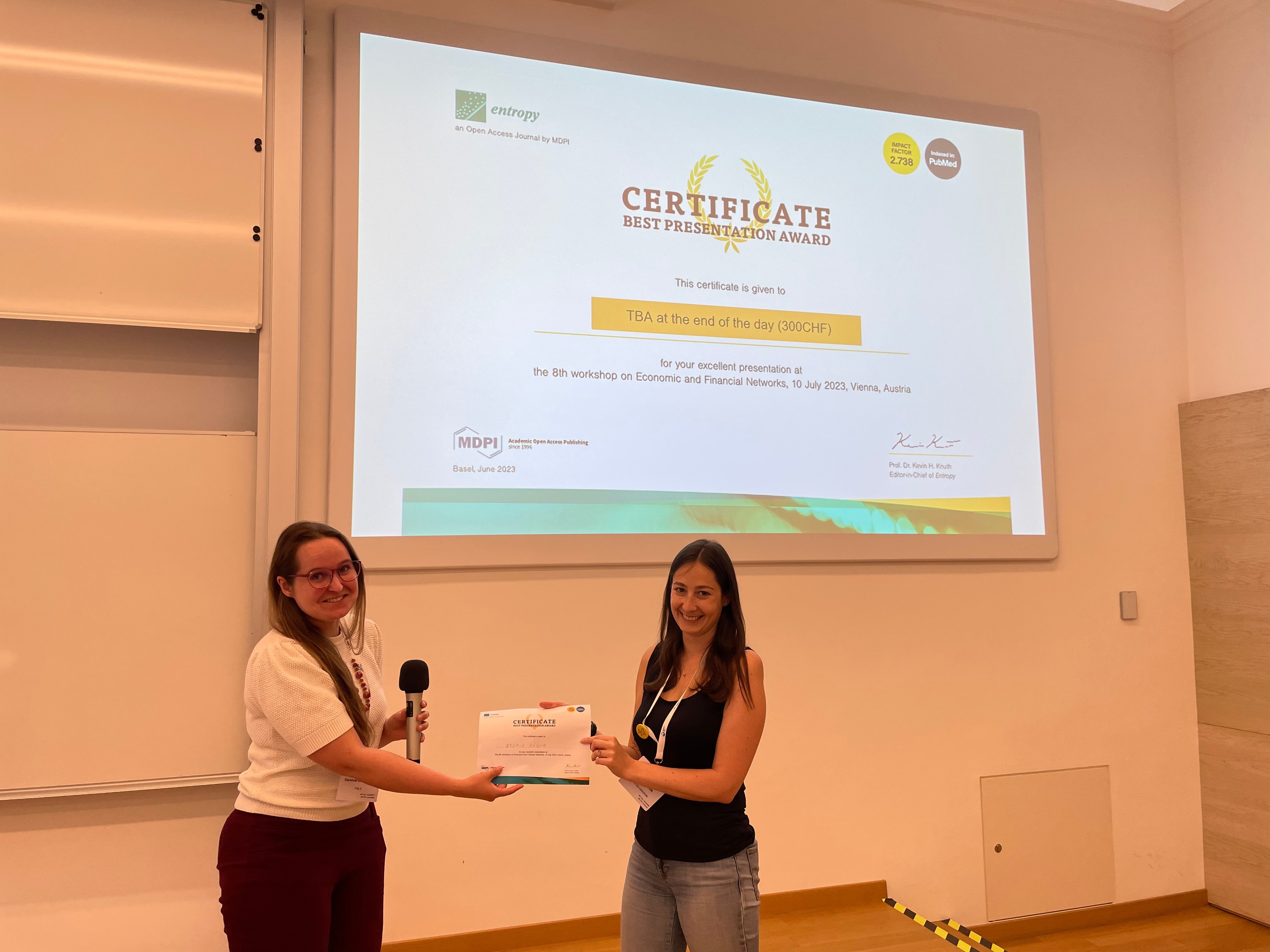
“The Effect of Value Chain Importance on Regional Economic Recovery” by Zsófi Zádor
This talk investigated the link between value chain importance and economic growth for the EU24 regions between 2008 and 2018. It found that relying more on GVCs worsened regional growth during the financial crisis but led to higher growth in the long run. The results contribute to the literature on regional resilience and the public debate on the impact of shocks and the desirability of GVCs. Furthermore, by separately analysing the importance of global and regional value chains, it contributes to the discussion on the effect of regionalisation and provides insights into how the re-configuring of value chains may affect regional growth.
11 July 2023
MDPI’s Newly Launched Journals in June 2023
With the first issue released in June 2023, five new MDPI journals disseminating multi-disciplinary science are due to launch, which will cover the subjects of medicine & pharmacology, biology and physical sciences.
The newly launched journals will be overseen by professional Editorial Board Members and Editors to ensure an accurate and rapid publication, rigorous peer review and broad visibility.
Please feel free to browse and discover more about the new journals below.
| Journal | Founding Editor-in-Chief | Journal topics (selected) |
| Prof. Dr. Jun Ma, Peking University, China| Editorial | view inaugural issue | growth and development; diet and nutrients; school health promotion policies and practices; child health and care; adolescent health and wellbeing | view journal scope | submit an article |
|
| Prof. Dr. Bernd Rehm, Griffith University, Australia | Editorial | view inaugural issue | DNA and gene synthesis; synthetic transcription factors; protein engineering; viral engineering; metabolic engineering | view journal scope | submit an article | |
| Prof. Dr. Varsha Gandhi, University of Texas MD Anderson Cancer Center, USA | Editorial | view inaugural issue | lymphatics; cancers associated with lymphocytes and lymphoblasts; lymphatic tissues; lymphoma; lymphoid leukemia | view journal scope | submit an article | |
| Dr. Bradley Turner, University of Melbourne, Australia | Editorial | view inaugural issue | multiple sclerosis; amyotrophic lateral sclerosis; primary lateral sclerosis; atherosclerosis; systemic sclerosis | view journal scope | submit an article | |
 |
Prof. Dr. Clemens Burda, Case Western Reserve University, USA | Editorial | view inaugural issue | Gamma ray, X-ray, and UV–Vis spectroscopies; NIR/mid-infrared/Raman spectroscopy; microwave and THz spectroscopy; high-resolution gas-phase atomic, molecular, and cluster spectroscopy; MS, NMR, and EPR spectroscopy | view journal scope | submit an article |
We wish to thank everyone who has supported the development of open access publishing. You are welcome to submit an application to the New Journal Committee (newjournal-committee@mdpi.com) if you would like to create more new journals.
5 July 2023
Entropy Best Poster Award at the XXVII Sitges Conference on Statistical Mechanics—Winner Announced
We are pleased to announce the winner of the Best Poster Award, sponsored by Entropy (ISSN: 1099-4300) for the XXVII Sitges Conference on Statistical Mechanics, held from 29 May to 2 June 2023.
“Anomalous relaxation phenomena in trapped colloids: Heating is faster than cooling”
by Miguel Ibáñez, Cai Dieball, Antonio Lasanta, Aljaž Godec and Raúl A. Rica
We have demonstrated, both theoretically and experimentally, that heating a mesoscopic system (consisting of a single colloidal particle trapped in a harmonic potential) is generally faster than cooling it. In our experimental study, we trapped a colloidal particle in an optical potential and investigated instantaneous thermalization processes. The theoretical aspect involved the development of a novel framework, primarily employing techniques from information geometry, enabling us to gain a deeper understanding of the behavior of these mesoscopic systems during heating and cooling. To achieve this, we analyzed the trajectory traced in the space of probability distributions, along with familiar measures such as velocity and length along the curve. This asymmetry becomes particularly pronounced when the system deviates significantly from equilibrium, where intuition seems to break down.
5 July 2023
Meet Us at the Chinese Physical Society Fall Meeting 2023, 17–20 August 2023, Yinchuan, China
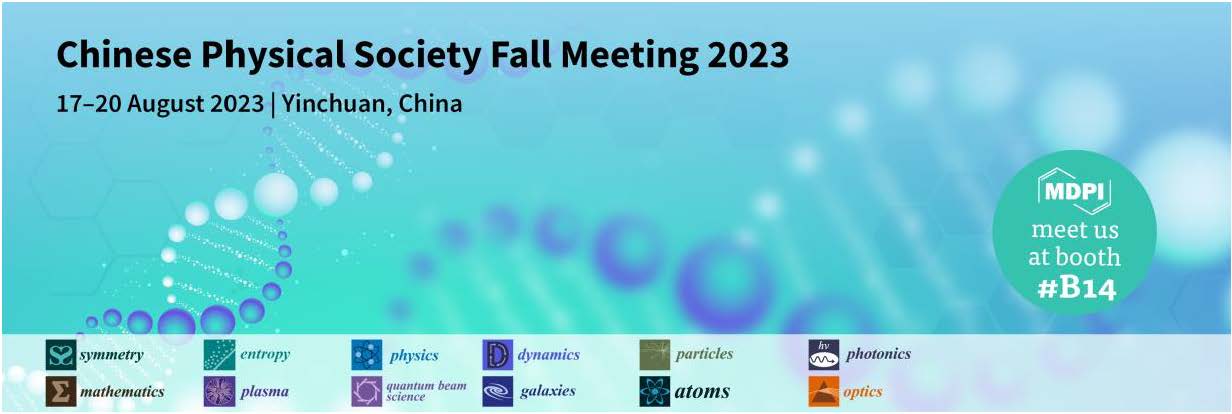
MDPI journals will be attending the Chinese Physical Society Fall Meeting 2023 as exhibitors. This meeting will be held in Yinchuan, China, from 17 to 20 August 2023.
The conference will offer 20 sub-topics, namely: 1. particle physics, field theory and cosmology; 2. nuclear physics and accelerator physics; 3. atomic and molecular physics; 4. light physics; 5. plasma physics; 6. nano and mesoscopic physics; 7. surface and low-dimensional physics; 8. semiconductor physics; 9. strong correlation and superconductivity physics; 10. magnetism; 11. soft condensed matter physics and biophysics; 12. quantum information; 13. computational physics; 14. statistical physics and complex systems; 15. dielectric physics; 16. liquid crystal; 17. ultrafast physics; 18. high energy density physics; 19 topological materials, physics and devices; 20. physics education.
The following MDPI journals will be represented:
- Symmetry;
- Entropy;
- Physics;
- Dynamics;
- Particles;
- Photonics;
- Mathematics;
- Plasma;
- QuBS;
- Galaxies;
- Atoms;
- Optics.
If you are attending this conference, please feel free to start a conversation with us. Our delegates look forward to meeting you in person and answering any questions you may have. For more information about the conference and our booth, please visit the following link: http://meeting.cps-net.org.cn/nxu2023.
3 July 2023
MDPI Insights: The CEO’s Letter #1 - Open Access and Impactful Research

Welcome to the MDPI Insights: The CEO's Letter.
In these monthly letters, I will showcase two key aspects of our work at MDPI: our commitment to empowering researchers and our determination to facilitating open scientific exchange.
Opening Thoughts
The Future is Open, and MDPI is Leading the Way
I strongly believe in a future that embraces openness, where open source, open information, and open access (OA) take center stage. This belief that led me to join MDPI in 2020, and I am honored to have recently been appointed as Chief Executive Officer (CEO). In this capacity, and operating in close liaison with Dr. Lin and MDPI’s senior management, I shall work to build on Dr. Lin’s achievements of the past quarter-century. In this role, I will focus on communication initiatives to promote MDPI's remarkable work and continue to build our company as a trusted leader in OA publishing. For over two decades, MDPI has been at the forefront of reshaping the academic publishing landscape, with OA surpassing subscription-based publishing in 2020. This trajectory is deeply rooted in our history and reflects our unwavering commitment and vision for an open future.
1 Million Published Articles
2023 began with a remarkable achievement for MDPI, as we became the first OA publisher to reach the milestone of 1 million published articles. This represents 2.7 million unique authors who have trusted us with their work, or about a third of all researchers worldwide. As the world's most cited OA publisher, we are proud in sharing these significant milestones.
Our mission remains unchanged: to make science open and accessible to all. We understand the importance of knowledge access, empowering researchers to stay at the forefront of a rapidly changing world. Our diverse range of journals covers a wide spectrum of disciplines, offering cutting-edge insights, trusted tools, and crucial knowledge to address global challenges.
Liberating Science
As the world’s leading OA publisher, MDPI is actively liberating science. We are committed to eliminating the frustrations researchers and the general public face when accessing information, ensuring it is not locked behind paywalls. We firmly believe that everyone has a right to information, and our commitment to open access publishing drives our work.
In this inaugural edition of Insights: The CEO's Letter, I draw inspiration from the upcoming 20th anniversary of the Berlin Declaration on Open Access. Its stated mission reminds us that true impact is achieved when knowledge is widely and readily available to society:
"Our mission of disseminating knowledge is only half complete if the information is not made widely and readily available to society”
Impactful Research

MDPI Publishes Impactful Research: Recognized by Leading Indexing Databases
MDPI journals are indexed in every single top database in the world.
As of June 2023, we have 214 journals indexed within Web of Science, 223 indexed within Scopus, 87 indexed within PubMed and PMC, and 17 indexed within MEDLINE, and these numbers increase every month. We constantly strive to expand the coverage of our journals within leading multi-disciplinary and scope-specific databases, resulting in an incredibly broad range of journals that are indexed within a variety of databases. MDPI has active relationships with approximately 65 well-known databases around the world, and we continue to expand our portfolio every year so that your work can be found, cited, and referenced with ease.
Continued Growth of MDPI Journals
The 2022 Scopus and Web of Science journal citation metrics were officially released in June, and I am pleased to report that 31 MDPI journals received their first CiteScore, taking the total number of journals with a CiteScore to 216. The number of MDPI journals receiving an Impact Factor (IF) also continues to grow with 111 receiving their first, by being covered in the ESCI, bringing our total number of journals with an IF to 208 of which 41 journals received an IF above 4.0. Looking at 2022 CiteScores in the Scopus database, 80% of MDPI journals have a score that ranks them in Q1 or Q2 in at least one subject category.
Publishing impactful science would not be possible without all of our authors, editors and reviewers. Thank you for your contribution and continued support! Together we share the latest scientific insights faster and ensure that your work is accessible to all.
Read more
Inside MDPI

Preprints.org: Clarivate adds the Preprint Citation Index to the Web of Science
At MDPI, we are dedicated to driving the advancement of science. Through our initiative, Preprints.org, researchers can publish their work and gain valuable feedback from the broader research community, ensuring rapid progress in their respective fields. This is particularly crucial during times of health and climate challenges, where timely dissemination of findings is essential.
Increased Visibility for Preprints
I am pleased to share that Clarivate recognizes the significance of preprints and has taken a crucial step to enhance their visibility. Clarivate has added the Preprint Citation Index to the Web of Science, encompassing preprints published not only on Preprints.org but also on other reputable repositories.
Looking ahead, the future of preprints appears promising, bolstered by the recent indexing announcement from the Web of Science. As a result, preprints will receive increased visibility, serving as a valuable resource for staying informed about the latest research developments.
Read more
What are Preprints?
The Pros and Cons of Preprints
Preprints and COVID-19
Preprints—The Future of Open Access Publishing?
Coming Together for Science

The First International Conference on Antioxidants: Sources, Methods, Health Benefits and Industrial Applications
In this edition of ‘Coming Together for Science,’ I am pleased to highlight the First International Conference on Antioxidants organized by our conference team in the beautiful city of Barcelona, Spain. The conference attracted over 130 attendees, who engaged in 42 talks, and 89 poster presentations spread across several sessions.
Working Together
Under the leadership of Prof. Dr. Alessandra Napolitano (Department of Chemical Sciences, University of Naples ‘Federico II’, Naples, Italy) and Prof. Dr. Rosa M. Lamuela Raventos (Department of Nutrition, Food Sciences and Gastronomy, University of Barcelona, Spain) as chairs, and supported by the committee members, 10 invited keynote speakers, poster presenters, and all the attendees, this dedicated group of academics came together to discuss the natural sources, methodologies, health benefits, and industrial applications of antioxidants.
Especially noteworthy is the positive feedback received from attendees, with 94% rating the overall organization of the conference as good or excellent. I particularly love the picture above, capturing the gathering of some of the participants. You can browse through more photos in the event gallery located here.
Managing Events With Sciforum
If you are considering hosting your own academic event, I highly recommend checking out Sciforum, MDPI's event management platform. Sciforum simplifies the entire process, making it easy to host your own event by allowing you to focus on what really matters: Science!
Read more
Closing Thoughts
 Stefan Tochev, Dr. Shu-Kun Lin, Dr. Eric O. Freed, Peter Roth, Wynne Wang, Allison Yang
Stefan Tochev, Dr. Shu-Kun Lin, Dr. Eric O. Freed, Peter Roth, Wynne Wang, Allison Yang
Viruses and Editorial Quality: Acknowledging the Dedication of our Viruses Journal Team
During a June meeting with Dr. Eric O. Freed, the founding and current Editor-in-Chief of our journal Viruses, I was reminded of the exceptional dedication of our editorial board. Meeting with Eric is a pleasure, as he has a strong commitment and clear vision for the journal. Over the course of two days, we gained a deep understanding of the journal’s expectations and focus on strategic growth, editorial board representation, and engagement.
I am pleased to share that Viruses holds a CiteScore of 7.1 (an increase of 7.57% versus the 2021 metric) and an Impact Factor of 4.7. You can view the journal statistics here. Viruses publishes highly cited papers, and is indexed in renowned databases such as Scopus, SCIE (Web of Science), PubMed, and others, and maintains affiliations with prestigious societies. Moreover, the Viruses team has recently announced an exciting upcoming event titled ‘Viruses 2024 – A World of Viruses,’ scheduled to take place in Barcelona, Spain, from 14–16 February 2024.
Testimonials
If you notice my enthusiasm regarding our editorial service, it’s because the surveys and testimonials we receive speak volumes about the experiences of our authors, reviewers, and guest editors who collaborate with MDPI. The purpose of these letters is to highlight the exceptional work that we do and the experiences we create for the scholars – thus, let me end with this testimonial from an author:
“It was a great pleasure to publish in Viruses Special Issue [Emerging Viruses in Aquaculture]. The submission process was easy. Guest editors were very helpful and provided all the guidance and support as needed. The handling of the manuscript by the Editorial Team was very fast, efficient, and professional. The reviewer’s comments were insightful, and the publication processes were remarkably rapid.”
– Ms. Magdalena Stachnik, Państwowy Instytut Weterynaryjny | PIWet
Article in Viruses: Emerging Viral Pathogens in Sturgeon Aquaculture in Poland: Focus on Herpesviruses and Mimivirus Detection
Chief Executive Officer
MDPI AG
28 June 2023
2022 Impact Factors for MDPI Journals
The 2022 citation metrics have been released in the Journal Citation Reports (JCR), and we’re pleased to announce the following results for MDPI journals:

We are thrilled to announce that 90% of our ranked MDPI journals, specifically 86 out of 96 (captured in the table below), are performing above average in Q1 or Q2. This year, Clarivate has expanded its Impact Factor (IF) awards to include journals in the Emerging Sources Citation Index (ESCI) and the Arts and Humanities Citation Index (AHCI), providing greater transparency for the full set of journals indexed in the Web of Science Core Collection. As a result, 111 of MDPI journals have received their first IF in 2023, with 37 journals surpassing an IF of 3.0. In total, 208 MDPI journals have been honored with an IF.
Clarivate explains that by "expanding the coverage but holding to highly selective standards, the [Impact Factor] is now a reliable indicator of trustworthiness, as well as a measure of scholarly impact, at the journal level."
Please visit our blog post where we discuss the release of the latest citation metrics with our Indexing Manager, Dr. Constanze Schelhorn, to find out what's different this time around and how to make use of different metrics available.
| Journal | Impact Factor | Rank Quartile | Category |
| Vaccines | 7.8 | Q1 | Immunology |
| Medicine, Research & Experimental | |||
| Antioxidants | 7.0 | Q1 | Food Science & Technology |
| Biochemistry & Molecular Biology | |||
| Chemistry, Medicinal | |||
| Cells | 6.0 | Q2 | Cell Biology |
| Nutrients | 5.9 | Q1 | Nutrition & Dietetics |
| International Journal of Molecular Sciences | 5.6 | Q1 | Biochemistry & Molecular Biology |
| Q2 | Chemistry, Multidisciplinary | ||
| Journal of Theoretical and Applied Electronic Commerce Research | 5.6 | Q2 | Business |
| Biomolecules | 5.5 | Q1 | Biochemistry & Molecular Biology |
| Biosensors | 5.4 | Q1 | Chemistry, Analytical |
| Instruments & Instrumentation | |||
| Q2 | Nanoscience & Nanotechnology | ||
| Fractal and Fractional | 5.4 | Q1 | Mathematics, Interdisciplinary Applications |
| Marine Drugs | 5.4 | Q1 | Chemistry, Medicinal |
| Pharmacology & Pharmacy | |||
| Pharmaceutics | 5.4 | Q1 | Pharmacology & Pharmacy |
| Nanomaterials | 5.3 | Q1 | Physics, Applied |
| Q2 | Chemistry, Multidisciplinary | ||
| Materials Science, Multidisciplinary | |||
| Nanoscience & Nanotechnology | |||
| Cancers | 5.2 | Q2 | Oncology |
| Foods | 5.2 | Q1 | Food Science & Technology |
| Polymers | 5.0 | Q1 | Polymer Science |
| Remote Sensing | 5.0 | Q1 | Geosciences, Multidisciplinary |
| Q2 | Remote Sensing | ||
| Imaging Science & Photographic Technology | |||
| Environmental Sciences | |||
| Antibiotics | 4.8 | Q1 | Pharmacology & Pharmacy |
| Q2 | Infectious Diseases | ||
| Drones | 4.8 | Q2 | Remote Sensing |
| Journal of Functional Biomaterials | 4.8 | Q2 | Engineering, Biomedical |
| Materials Science, Biomaterials | |||
| Biomedicines | 4.7 | Q1 | Pharmacology & Pharmacy |
| Q2 | Biochemistry & Molecular Biology | ||
| Medicine, Research & Experimental | |||
| Journal of Fungi | 4.7 | Q2 | Mycology |
| Microbiology | |||
| Viruses | 4.7 | Q2 | Virology |
| Bioengineering | 4.6 | Q2 | Engineering, Biomedical |
| Gels | 4.6 | Q1 | Polymer Science |
| Molecules | 4.6 | Q2 | Chemistry, Multidisciplinary |
| Biochemistry & Molecular Biology | |||
| Pharmaceuticals | 4.6 | Q2 | Pharmacology & Pharmacy |
| Chemistry, Medicinal | |||
| Toxics | 4.6 | Q1 | Toxicology |
| Q2 | Environmental Sciences | ||
| Biomimetics | 4.5 | Q1 | Engineering, Multidisciplinary |
| Q2 | Materials Science, Biomaterials | ||
| Microorganisms | 4.5 | Q2 | Microbiology |
| Plants | 4.5 | Q1 | Plant Sciences |
| Biology | 4.2 | Q2 | Biology |
| Chemosensors | 4.2 | Q2 | Instruments & Instrumentation |
| Chemistry, Analytical | |||
| Electrochemistry | |||
| Membranes | 4.2 | Q2 | Engineering, Chemical |
| Materials Science, Multidisciplinary | |||
| Chemistry, Physical | |||
| Polymer Science | |||
| Toxins | 4.2 | Q1 | Toxicology |
| Q2 | Food Science & Technology | ||
| Metabolites | 4.2 | Q2 | Biochemistry & Molecular Biology |
| Batteries | 4.0 | Q2 | Electrochemistry |
| Materials Science, Multidisciplinary | |||
| Q3 | Energy & Fuels | ||
| Catalysts | 3.9 | Q2 | Chemistry, Physical |
| Journal of Clinical Medicine | 3.9 | Q2 | Medicine, General & Internal |
| Land | 3.9 | Q2 | Environmental Studies |
| Sensors | 3.9 | Q2 | Instruments & Instrumentation |
| Chemistry, Analytical | |||
| Engineering, Electrical & Electronic | |||
| Sustainability | 3.9 | Q2 | Environmental Sciences (SCIE) |
| Environmental Studies (SSCI) | |||
| Q3 | Green & Sustainable Science & Technology (SCIE) | ||
| Green & Sustainable Science & Technology (SSCI) | |||
| Buildings | 3.8 | Q2 | Construction & Building Technology |
| Engineering, Civil | |||
| Agronomy | 3.7 | Q1 | Agronomy |
| Q2 | Plant Sciences | ||
| Fermentation | 3.7 | Q2 | Biotechnology & Applied Microbiology |
| Pathogens | 3.7 | Q2 | Microbiology |
| Agriculture | 3.6 | Q1 | Agronomy |
| Diagnostics | 3.6 | Q2 | Medicine, General & Internal |
| Genes | 3.5 | Q2 | Genetics & Heredity |
| Journal of Intelligence | 3.5 | Q2 | Psychology, Multidisciplinary |
| Lubricants | 3.5 | Q2 | Engineering, Mechanical |
| Processes | 3.5 | Q2 | Engineering, Chemical |
| Coatings | 3.4 | Q2 | Materials Science, Coatings & Films |
| Physics, Applied | |||
| Q3 | Materials Science, Multidisciplinary | ||
| ISPRS International Journal of Geo-Information | 3.4 | Q2 | Geography, Physical |
| Q3 | Computer Science, Information Systems | ||
| Remote Sensing | |||
| Materials | 3.4 | Q2 | Metallurgy & Metallurgical Engineering |
| Physics, Applied | |||
| Physics, Condensed Matter | |||
| Q3 | Materials Science, Multidisciplinary | ||
| Chemistry, Physical | |||
| Micromachines | 3.4 | Q2 | Instruments & Instrumentation |
| Physics, Applied | |||
| Chemistry, Analytical | |||
| Q3 | Nanoscience & Nanotechnology | ||
| Water | 3.4 | Q2 | Water Resources |
| Environmental Sciences | |||
| Brain Sciences | 3.3 | Q3 | Neurosciences |
| Energies | 3.2 | Q3 | Energy & Fuels |
| Fire | 3.2 | Q1 | Forestry |
| Q2 | Ecology | ||
| Life | 3.2 | Q2 | Biology |
| Current Issues in Molecular Biology | 3.1 | Q3 | Biochemistry & Molecular Biology |
| Horticulturae | 3.1 | Q1 | Horticulture |
| Animals | 3.0 | Q1 | Agriculture, Dairy & Animal Science |
| Veterinary Sciences | |||
| Insects | 3.0 | Q1 | Entomology |
| Atmosphere | 2.9 | Q3 | Meteorology & Atmospheric Sciences |
| Environmental Sciences | |||
| Electronics | 2.9 | Q2 | Engineering, Electrical & Electronic |
| Physics, Applied | |||
| Q3 | Computer Science, Information Systems | ||
| Forests | 2.9 | Q1 | Forestry |
| Inorganics | 2.9 | Q2 | Chemistry, Inorganic & Nuclear |
| Journal of Marine Science and Engineering | 2.9 | Q1 | Engineering, Marine |
| Q2 | Oceanography | ||
| Engineering, Ocean | |||
| Metals | 2.9 | Q2 | Metallurgy & Metallurgical Engineering |
| Q3 | Materials Science, Multidisciplinary | ||
| Tropical Medicine and Infectious Disease | 2.9 | Q2 | Tropical Medicine |
| Parasitology | |||
| Q3 | Infectious Diseases | ||
| Universe | 2.9 | Q2 | Astronomy & Astrophysics |
| Physics, Particles & Fields | |||
| Healthcare | 2.8 | Q2 | Health Policy & Services (SSCI) |
| Q3 | Health Care Sciences & Services (SCIE) | ||
| Applied Sciences | 2.7 | Q2 | Engineering, Multidisciplinary |
| Physics, Applied | |||
| Q3 | Chemistry, Multidisciplinary | ||
| Materials Science, Multidisciplinary | |||
| Crystals | 2.7 | Q2 | Crystallography |
| Q3 | Materials Science, Multidisciplinary | ||
| Entropy | 2.7 | Q2 | Physics, Multidisciplinary |
| Magnetochemistry | 2.7 | Q2 | Chemistry, Inorganic & Nuclear |
| Q3 | Chemistry, Physical | ||
| Materials Science, Multidisciplinary | |||
| Symmetry | 2.7 | Q2 | Multidisciplinary Sciences |
| Actuators | 2.6 | Q2 | Instruments & Instrumentation |
| Engineering, Mechanical | |||
| Aerospace | 2.6 | Q1 | Engineering, Aerospace |
| Behavioral Sciences | 2.6 | Q2 | Psychology, Multidisciplinary |
| Current Oncology | 2.6 | Q3 | Oncology |
| Machines | 2.6 | Q2 | Engineering, Mechanical |
| Q3 | Engineering, Electrical & Electronic | ||
| Medicina | 2.6 | Q3 | Medicine, General & Internal |
| Separations | 2.6 | Q3 | Chemistry, Analytical |
| Minerals | 2.5 | Q2 | Mining & Mineral Processing |
| Mineralogy | |||
| Geochemistry & Geophysics | |||
| Children | 2.4 | Q2 | Pediatrics |
| Diversity | 2.4 | Q2 | Biodiversity Conservation |
| Q3 | Ecology | ||
| Journal of Cardiovascular Development and Disease | 2.4 | Q3 | Cardiac & Cardiovascular Systems |
| Mathematics | 2.4 | Q1 | Mathematics |
| Photonics | 2.4 | Q3 | Optics |
| Veterinary Sciences | 2.4 | Q1 | Veterinary Sciences |
| Fishes | 2.3 | Q2 | Marine & Freshwater Biology |
| Fisheries | |||
| Axioms | 2.0 | Q2 | Mathematics, Applied |
| Systems | 1.9 | Q2 | Social Sciences, Interdisciplinary |
| Tomography | 1.9 | Q3 | Radiology, Nuclear Medicine & Medical Imaging |
Note: The Journal of Personalized Medicine's Impact Factor was omitted in the original release and will be assigned separately. Please find the data on the journal webpage in due course.
Source: 2022 Journal Impact Factors, Journal Citation Reports TM (Clarivate, 2023)
19 June 2023
Entropy Receives an Increased CiteScore of 4.7
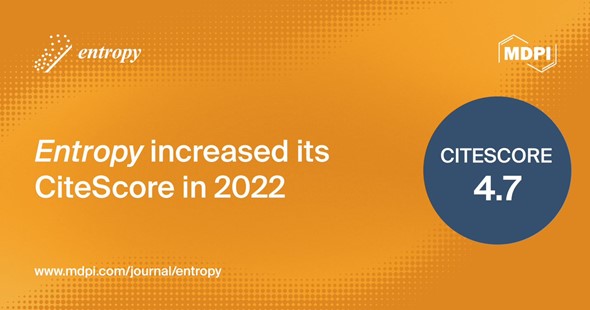
We are pleased to inform you that Entropy (ISSN: 1099-4300) has received an updated CiteScore of 4.7 according to the 2022 CiteScores™ (Elsevier) that was released recently, making an assessment of the scientific influence of journals in the 2019 to 2022 period.
Entropy’s CiteScore ranks as follows:
- Q1 (9 out of 81 journals) in the "Mathematical Physics" category;
- Q1 (16 out of 67 journals) in the "Physics and Astronomy (miscellaneous)" category;
- Q2 (76 out of 240 journals) in the "General Physics and Astronomy" category;
- Q2 (248 out of 738 journals) in the "Electrical and Electronic Engineering" category;
- Q2 (133 out of 379 journals) in the "Information Systems" category.
For more journal statistics, please visit https://www.mdpi.com/journal/entropy/stats.
Excellent performance is inseparable from the support and dedication of all journal editors, reviewers, authors, and readers. We would like to take this opportunity to thank all of you who have contributed to the journal.
5 May 2023
Meet Us at the 2023 IEEE International Symposium on Information Theory (ISIT 2023), 25–30 June 2023, Taipei, Taiwan

MDPI will be attending the 2023 IEEE International Symposium on Information Theory (ISIT 2023) in Taipei, Taiwan, which will take place from 25 to 30 June 2023.
ISIT is the premier international conference series dedicated to the advancement of information theory and related areas. It brings together an international community of researchers and practitioners each year to present and discuss new research results and perspectives on future developments relevant to all areas of information theory, including big data analytics, source and channel coding, communication theory and systems, cryptography and security, detection and estimation, emerging applications, networks, network coding, signal processing, and statistical/machine learning.
The following MDPI journals will be represented:
If you are attending this conference, please feel free to stop by our booth. Our delegates look forward to meeting you in person to answer any questions you may have. For more information about the conference, please visit the following link: https://isit2023.org/.
23 March 2023
Entropy 2022 Outstanding Reviewer Award—Winners Announced
We are pleased to announce the winners of the Entropy 2022 Outstanding Reviewer Award. The Entropy Editorial Board and editorial team would like to gratefully acknowledge the time and energy dedicated by reviewers in checking the manuscripts submitted to Entropy (ISSN: 1099-4300). It is due to their efforts that the high quality of the journal and quick turnaround are maintained.
Name: Prof. Dr. Alexander Zlotnik
Affiliation: Department of Mathematics, Higher School of Economics University, Moscow, Russia
Research interests: numerical methods for PDEs; mathematical gas
dynamics and hydrodynamics
Name: Dr. Jim W. Kay
Affiliation: School of Mathematics and Statistics, University of Glasgow, Glasgow, UK
Research interests: probability; mathematical statistics; statistical inference and modeling; computational statistical inference; Bayesian modeling; discrete information theory; partial information decomposition; machine learning
Name: Dr. Irina Basieva
Affiliation: International Center for Mathematical Modeling in Physics and Cognitive Science, Linnaeus University, Växjö, Sweden
Research interests: quantum mechanics; probability; laser physics; telecommunications; artificial intelligence; cognitive psychology; decision making; rationality
Name: Dr. Sergio Luiz E. F. da Silva
Affiliations: 1. DISAT, Politecnico di Torino, Turin, Italy
2. GISIS, Universidade Federal Fluminense, Niterói, Brazil
Research interests: geophysics; statistical physics; image processing; inverse problems; data analysis
Name: Prof. Dr. Michael Evans
Affiliation: Department of Statistical Sciences, University of Toronto, Toronto, Canada
Research Interests: foundations of statistical inference; measuring statistical evidence; eliciting and checking priors; measuring and controlling bias
The prize for each winner:
- CHF 500;
- A 50% discount on the APC for one paper to be published in Entropy in 2023;
- A certificate.
Entropy Editorial Office
13 March 2023
MDPI’s Newly Launched Journals in December 2022
As a leading open access publisher, MDPI provides scholars with a high-quality and rich academic exchange platform by continuously expanding into new and exciting research areas.
In December 2022, MDPI launched five new journals, covering multiple subjects such as life sciences, biology, medicine and pharmacology, social sciences and humanities. These new journals are being edited by established scholars across the world.
|
Journal |
Founding Editor-in-Chief |
Journal Topics (Selected) |
|
Prof. Dr. Fabio Gresta, University of Messina, Italy| Editorial | view inaugural issue |
grass/forage/turf production; grassland management; pasture monitoring; grazing and livestock; grass agro-ecosystems| view journal scope | submit an article |
|
|
Prof. Dr. Christos G. Athanassiou, University of Thessaly, Greece| Editorial | view inaugural issue |
pesticides; fungicides; herbicides; fertilizers; soil conditioners| view journal scope | submit an article |
|
|
Prof. Dr. Stephen H. Safe, Texas A&M University, USA| Editorial | view inaugural issue |
receptor structure; receptor function; receptor signaling; receptor expression and regulation; receptor interactions with drugs| view journal scope | submit an article |
|
|
Dr. Jean Jacques Vanden Eynde, University of Mons-UMONS, Belgium| Editorial | view inaugural issue |
drug discovery; medicinal chemistry; preclinical and clinical research; marketed drugs; intellectual property and regulatory affairs| view journal scope | submit an article |
|
|
Prof. Dr. Heather Kanuka, University of Alberta, Canada| Editorial | view inaugural issue |
higher education; tertiary education; policy and practice in higher education; educational leadership in higher education; educational administration and management in higher education| view journal scope | submit an article |
If you are interested in creating more open access journals with us to publish cutting-edge research, please send your journal proposal application to newjournal-committee@mdpi.com.
7 March 2023
Displaying Co-Authors’ Email Addresses on the Webpage of Published Papers
MDPI is pleased to announce that we now display the co-authors’ email addresses in addition to the corresponding author’s email address on the webpage of published papers, protected by Captcha. For more information about this change, please visit the journal’s instructions for authors page.
We believe this change will facilitate academic discussions and advance our cause of open science and research. The corresponding authors are responsible for communicating with their co-authors and indicating in our system (https://susy.mdpi.com/) if co-authors would prefer for their email addresses not to be displayed.
7 March 2023
Entropy 2022 Young Investigator Award—Winner Announced
We are pleased to announce that the winner of the Entropy 2022 Young Investigator Award is Dr. Xiao Yuan.
|
|
Dr. Xiao Yuan is currently an Assistant Professor at the Center on Frontiers of Computing Studies, Peking University, China. He received his Bachelor's degree in theoretical physics from Peking University in 2012 and got his PhD in physics from Tsinghua University in 2016. Then, he worked as a postdoc at the University of Science and Technology China in 2017, at Oxford University from 2017 to 2019, and at Stanford University from 2019 to 2020. Dr. Xiao Yuan’s research interests focus on quantum information science, from fundamental quantum information theory to quantum computing and quantum simulation. He is currently working on quantum computing for near-term quantum computers, focusing on the basic theories and the applications for solving practical problems and realizing quantum advantages in the noisy intermediate-scale quantum era. Dr. Xiao Yuan has an outstanding publication record, comprising 76 publications in peer-reviewed international journals and 6 patents. |
As the awardee, Dr. Xiao Yuan will receive an honorarium of CHF 2000, an offer to publish a paper free of charge before 31 December 2023 in Entropy (ISSN: 1099-4300) after peer review, and an electronic certificate.
We would like to thank all the nominees from various fields of study for their participation and all the Award Committee members for their evaluation of the many excellent nominations.
Prof. Dr. Kevin H. Knuth
Editor-in-Chief of Entropy
16 February 2023
Increasing Visibility for Preprints.org – Clarivate adds the Preprint Citation Index to the Web of Science
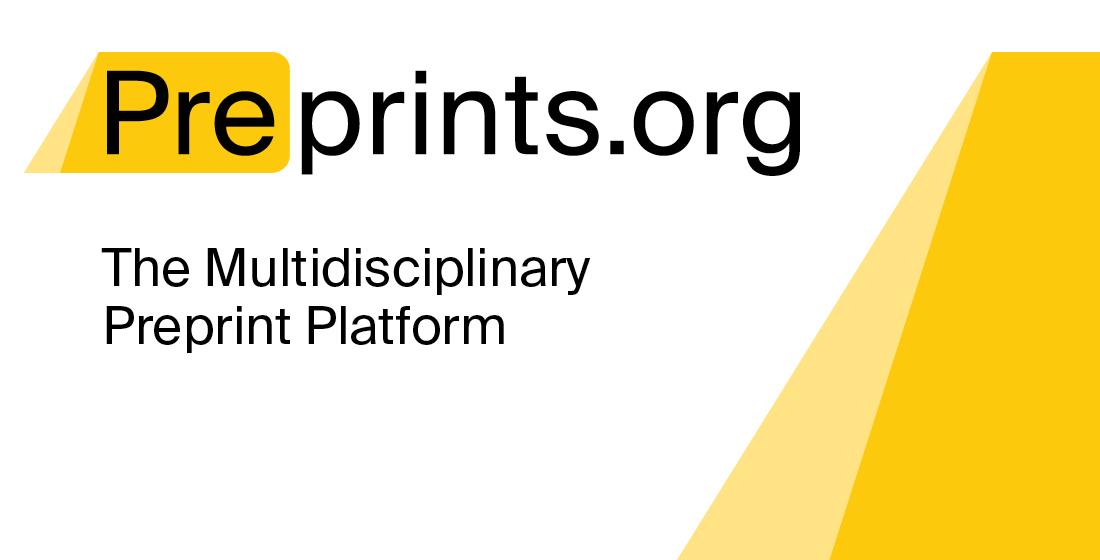
On 9 February 2023, Clarivate, a global leader in providing trusted insights and analytics, added the Preprint Citation Index to the Web of Science platform, streamlining the research process by allowing researchers to locate and link to preprints alongside other trusted content in the database.
The Preprint Citation Index will act as a bridge to connect cutting-edge preprints with peer-reviewed journal articles published within the Web of Science Core Collection. Alerts can be easily set to monitor new research across several repositories and authors will also be able to include preprints on their Web of Science Research Profile to more accurately display their various research outputs.
As of its launch, the Preprint Citation Index will provide nearly two million preprints from various repositories, including MDPI’s own Preprints.org.
MDPI's Preprints Platform – Preprints.org
To advance Open Science and the fast dissemination of research, MDPI offers researchers a free multidisciplinary preprint platform. Preprints.org accepts submissions from all research areas and offers authors high visibility, permanent archiving, article-level Metrics and immediately citable content by assigning a Digital Object Identifier (DOI) to all preprints.
During submission to any MDPI journal, authors have the option to share their research as a preprint. After an initial screening, the manuscript is available online in 48 hours or less. Once online, preprints can be downloaded, shared, commented on, and cited, providing authors maximum visibility.
We invite you to join the ranks of the over 100k researchers using Preprints.org and share your research.
For more information, please visit Preprints.org.
10 February 2023
Entropy Webinar | Entropy Measures to Assess Irregularity and Complexity of Time Series and Multidimensional Data, 9 March 2023
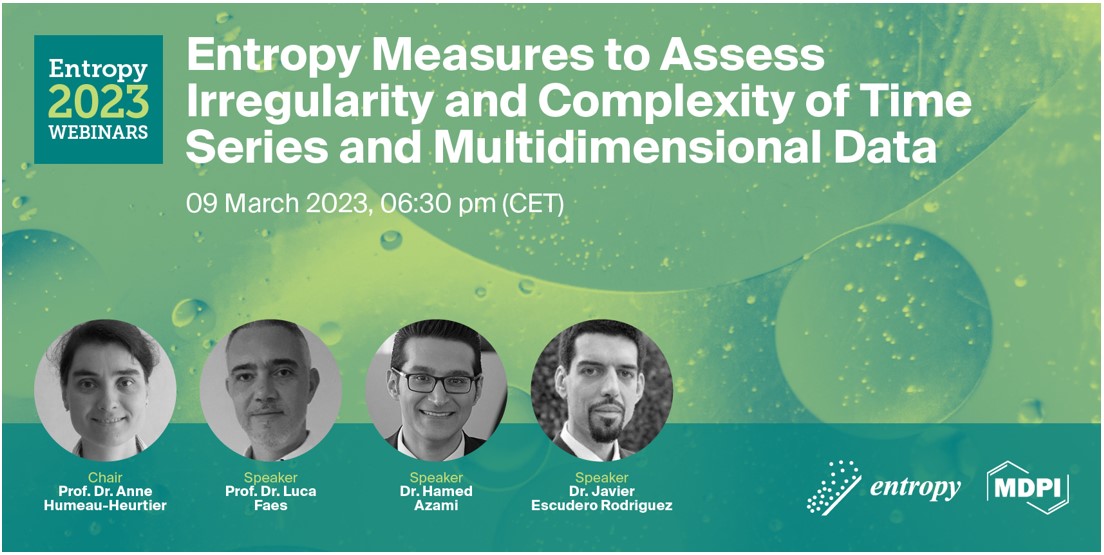
Date: 9 March 2023
Time: 18:30 (CET)
Webinar website: https://entropy-2.sciforum.net/
Webinar ID: 819 5910 7295
Register here:
https://us02web.zoom.us/webinar/register/8516739556759/WN_NOp7pOVsQmS1_dWouqmiLg
Participation fee: none
Language: English
Webinar keywords: irregularity, complexity, entropy, time series, multidimensional data, graphs, multivariate data
Related Special Issue: “Entropy Measures to Assess Irregularity and Complexity of Time Series and Multidimensional Data”
Chair:
Prof. Dr. Anne Humeau-Heurtier
Univ Angers, LARIS, SFR MATHSTIC, F-49000 Angers, France
Speakers:
Prof. Dr. Luca Faes
Department of Engineering, University of Palermo, 90128 Palermo, Italy
Presentation: “Recent Advances in the Information-Theoretic Analysis of Time Series: From Static to Dynamic Measures and From Multivariate Approaches to High-Order Interactions”
Dr. Hamed Azami
Centre for Addiction and Mental Health, Toronto Dementia Research Alliance, University of Toronto, Toronto, ON, Canada
Presentation: “Recent Advances in Entropy Analysis: From One-Dimensional to Multi-Dimensional”
Dr. Javier Escudero Rodriguez
School of Engineering, Institute for Digital Communications (IDCOM), The University of Edinburgh, 8 Thomas Bayes Rd, Edinburgh EH9 3FG, UK
Presentation: “From Multivariate Time Series to Graphs Data and Beyond: Extending Entropy Analysis Techniques to Irregularly Sampled Data”
22 December 2022
Special Issue Mentor Program
We are pleased to announce the launch of a new initiative—the MDPI Special Issue Mentor Program.
This program will enable early career researchers (who must hold a Ph.D. in a related field) to experience editing a Special Issue in MDPI journals, under the mentorship of our experienced Editorial Board Members or other experienced scientists. The mentor program will provide an excellent opportunity for early career scientists to gain editorial experience, and to cultivate their ability to edit scientific research.
The mentee’s responsibilities include:
- Proposing a Special Issue title and assisting the mentor in preparing a summary (around 200–400 words) and 3–10 keywords describing the background, importance, and goal of the Issue;
- Writing a brief promotion plan for the Special Issue;
- Preparing a list of scholars who may be interested in the Issue and personally e-mailing invitations on behalf of Guest Editors;
- Writing an editorial for the online Special Issue together with the mentor.
The mentor’s responsibilities include:
- Conducting a final check before the Special Issue is published online;
- Performing editorial control of the Special Issue and quality control of the publications, both of which must be carried out in a timely manner;
- Providing suggestions to younger scholars if they have any doubts or concerns regarding submissions;
- Organizing video calls with young scholars and the Editorial Office regularly to discuss problems and improvement suggestions for the Special Issue;
- Making and submitting decisions regarding submissions with the assistance of mentees.
Certificates and awards:
After the Special Issue closes, the Editorial Office will provide official certificates for all the mentors and early career researchers.
If you are interested in this opportunity, please send your Special Issue proposal to the Editorial Office of a journal you choose, and we will discuss the process (i.e., mentor collaboration, Special Issue topic feasibility analysis, etc.) in further detail. The full list of MDPI journals is as follows: https://www.mdpi.com/about/journals.
In addition to the new Special Issue Mentor Program, we will continue to welcome all Special Issue proposals focusing on hot research topics.
14 December 2022
Editorial Board Members from Entropy Featured in the 2022 Highly Cited Researchers List Published by Clarivate
Recently, ClarivateTM revealed its 2022 list of Highly Cited ResearchersTM—individuals at universities, research institutes, and commercial organizations.
The scientists who were selected for this year’s list of Highly Cited Researchers have published highly cited papers in the 11-year period from January 2011 to December 2021, with a citation frequency in the top 1% of academic subjects and in the same year of publication in the Web of ScienceTM database. Based on Web of Science citation data, 6,938 researchers from across the globe who have demonstrated a disproportionate level of significant and broad influence in their chosen field or fields over the last decade have been awarded Highly Cited Researcher 2022 designations. The list is truly global, spanning 69 countries or regions and spread across a diverse range of research sciences and social sciences.
According to statistics, seven members of the Editorial Board of Entropy (ISSN: 1099-4300) have been selected for the list of Highly Cited Researchers of Clarivate in 2022. They are being recognized for their high-quality scientific research achievements and outstanding contributions to professional fields. The Entropy journal office sincerely congratulates all elected Editorial Board Members and hopes that they continue to have an academically productive relationship with the journal.
|
Name |
Affiliation |
|
Prof. Dr. Shi Jin |
Southeast University, China |
|
Prof. Dr. Jiayi Ma |
Wuhan University, China |
|
Prof. Dr. H. Vincent Poor |
Princeton University, United States |
|
Prof. Dr. George Em Karniadakis |
Brown University, United States |
|
Prof. Dr. Attila Szolnoki |
Hungarian Academy of Sciences, Hungary |
|
Dr. Kun Zhang |
University of California System, United States |
|
Prof. Dr. T. M. Indra Mahlia |
University of Technology Sydney, Australia |
14 December 2022
"Thanks a Million!" – One Million Articles Published in MDPI Journals
MDPI has just become the first open access (OA) publisher to reach the milestone of one million articles published. That is one million articles freely available to all, to circulate and build upon! We are proud to share this special moment with the global scientific community.
This landmark has been reached thanks to the immeasurable support of more than 600,000 expert reviewers, 66,000 editorial board members and 6700 hard-working colleagues across MDPI’s global offices.
Within more than 25 years of publishing, our journals received 2.1 million manuscripts and generated 4.6 million peer review reports to get to one million papers published.
Reaching the milestone of one million articles published reinforces our mission to remove any existing barriers and to make scientific research accessible to all. Since its inception, MDPI’s goal has been to create reliable processes to make science open. This is a path towards facilitating the dissemination of novel insights in scientific communities.
Regular feedback from authors and reviewers shows that our service is greatly appreciated and needed. At the same time, the feedback helps us identify areas for further improvement.
As it stands, a significant share of published research findings remain closed access. More than half of the content published with the most well-known legacy publishers stays behind a paywall, and that is not including articles published in hybrid OA journals, or made available months or years after publication.
A new policy announced by the US administration in August 2022 requires that, as of January 2026, all US federally funded research be made freely and immediately available after publication. While the new policy does not mandate articles be published under an open access license, it is aligned with the open access movement in removing all barriers to research. Similarly, some of the most advanced research institutions in the world intend to have all funded research articles published in open access by 2025.
MDPI is proud to be the leading agent of the transition to open access.
"Thanks a Million" to all the contributors!
8 December 2022
MDPI Sustainability Foundation: New Look and Nominations for the 2023 Sustainability Awards Now Open

We are pleased to announce that the website of the MDPI Sustainability Foundation has been revamped! For the past couple of months, our UX UI team and front-end developers have been working hard to launch the website in time for the opening of the Sustainability Awards nominations.
The website is not the only thing that has had a remodeling. Indeed, the format of the Emerging Sustainability Leader Award (ESLA) has been updated. ESLA is now a competition open to individual researchers or start-ups founded by researchers under the age of 35. Nominee applications will go through 2 rounds of selection until the final 3 are decided. The finalists will then be invited to give pitch presentations during the Award Ceremony to win either first place (10,000 USD) or runner-up (2 x 5000 USD).
The World Sustainability Award, on the other hand, remains the same: a total prize money of 100,000 USD is up for grabs by senior individual researchers or groups of researchers from the international research community.
Nominations for both the World Sustainability Award and the Emerging Sustainability Leader award are now open! Check out our new website for more information on how to nominate.
25 November 2022
Entropy | Best Paper Award for 2022 International Conference on Communication, Image and Signal Processing (CCISP 2022)—Winner Announced
We are pleased to announce that the Best Paper Award sponsored by Entropy (ISSN: 1099-4300) for the 2022 International Conference on Communication, Image and Signal Processing was granted to Dr. Jiayu Zhang from Sichuan University. Congratulations!
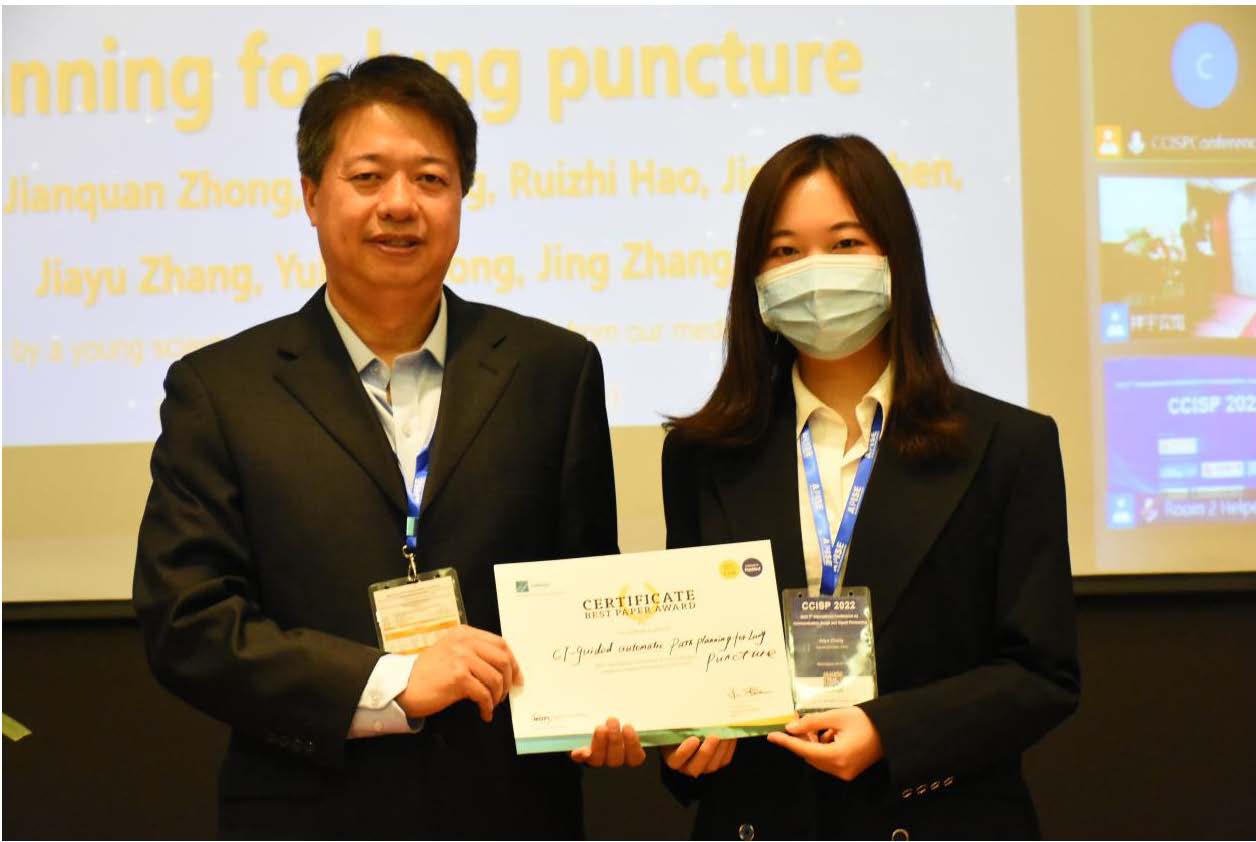
Paper: “C110: CT-Guided Automatic Path Planning for Lung Puncture”
by Jianquan Zhong, Ling Tang, Ruizhi Hao, Jinyang Shen, Jiayu Zhang, Yuhang Gong, and Jing Zhang
An automatic CT image-based path planning method for lung puncture surgery is proposed due to the high failure rate, time consumption, and high radiation dose of the existing percutaneous lung puncture surgery. The method described in this paper implements automatic organ segmentation of chest CT images. It defines six constraining conditions combined with clinical a priori knowledge to find the optimal puncture path using a multi-objective Pareto optimization method. The rationality and validity of the method were validated based on 25 sets of clinical lung mass data. Experimental results show that the optimal paths found by this system all meet the clinician's surgical requirements.
8 November 2022
Entropy Webinar | Advances in Quantum Computing, 30 November 2022
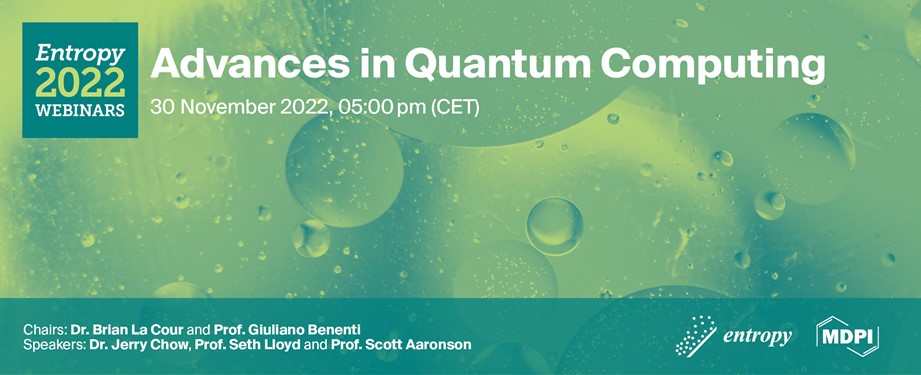
Date: 30 November 2022
Time: 05:00 p.m. (CET)
Webinar ID: 858 2367 1531
Register here: https://us02web.zoom.us/webinar/register/3316663495003/WN_d9a8x1AITxepzbVMaZrB0A
Participation fee: none
Language: English
Webinar keywords: quantum computing; quantum algorithms; quantum machine learning; quantum simulations; quantum advantage; quantum hardware; NISQ devices
Related Special Issue: “Advances in Quantum Computing”
Chairs:
|
|
Dr. Brian La Cour Applied Research Laboratories, The University of Texas at Austin, USA |
|
|
Prof. Giuliano Benenti Department of Science and High Technology, University of Insubria, Italy |
Speakers:
|
|
Dr. Jerry Chow Experimental Quantum Computing, IBM Thomas J. Watson Research Center, USA |
|
|
Prof. Seth Lloyd Department of Mechanical Engineering, Massachusetts Institute of Technology, USA |
|
|
Prof. Scott Aaronson Department of Computer Science, The University of Texas at Austin, USA |
2 November 2022
Entropy Best Presentation Award at the 7th Workshop on Complexity in Economics and Finance—Winner Announced
We are pleased to announce the winner of the Best Presentation Award that Entropy (ISSN: 1099-4300) sponsored at the 7th Workshop on Complexity in Economics and Finance, held on 19 October 2022 in Palma de Mallorca, Spain. Congratulations to Kiyoshi Kanazawa!
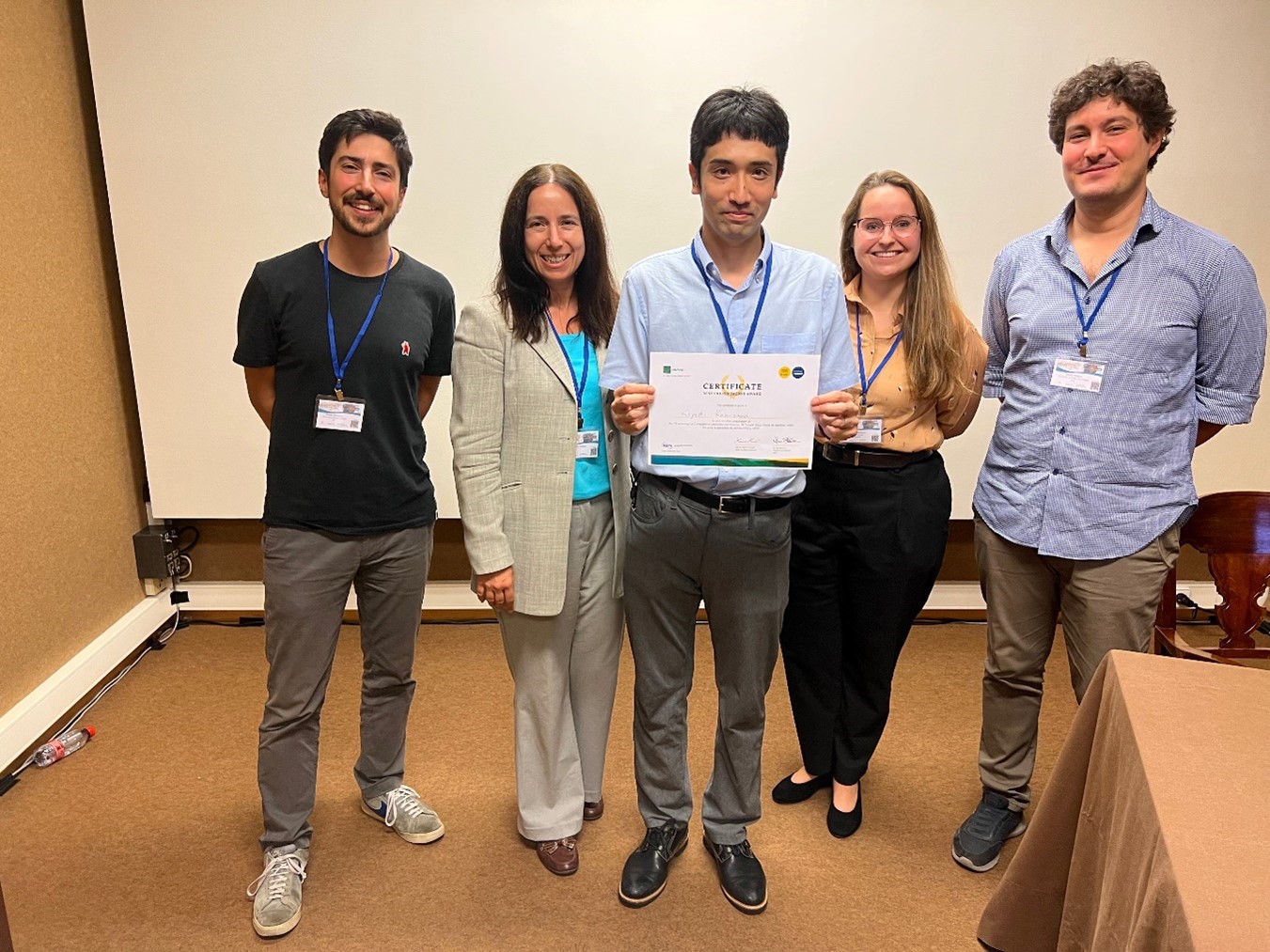
“Statistical analysis of a microscopic financial dataset for the long-range correlation of the order flow” by Kiyoshi Kanazawa
In the financial market, it is an established fact that order flow exhibits persistence: if you observe a buy (sell) order, you will likely observe a buy (sell) order even in the future. This phenomenon, called the long-range correlation (LRC), has been a topic under debate regarding its microscopic origin. One of the promising hypotheses in econophysics is the order-splitting hypothesis: in financial markets, many traders split their large metaorders into a series of small child orders. Because their order signs are kept the same during splitting, the market order sign has a (slight) predictability. This hypothesis was mathematically formulated by Lillo, Mike, and Farmer (LMF) in 2007. Interestingly, the LMF model predicts a quantitative relationship between a microscopic parameter (the power-law exponent of the metaorder-size distribution) and a macroscopic parameter (the power-law exponent for the order-sign autocorrelation function). In this talk, we present our statistical analysis to confirm the LMF prediction using a microscopic Tokyo Stock Exchange dataset. We develop a statistical method to measure the power-law exponents with less statistical bias, and we apply the method to confirm the LMF prediction. A long-standing problem in econophysics has been solved by our detailed data analysis of a microscopic financial dataset.
10 October 2022
Entropy Best Poster Awards for the 14th Italian Quantum Information Science Conference (IQIS 2022)—Winners Announced
We are pleased to announce that the Best Poster Awards, sponsored by Entropy (ISSN: 1099-4300) for the 14th Italian Quantum Information Science Conference (IQIS 2022), were granted to Veronica Panizza (University of Trento) and Giovanni Di Fresco (University of Palermo). Congratulations!
The winning posters are as follows:
“Entanglement Witnessing for Lattice Gauge Theories”
by Veronica Panizza
Abstract: LGTs are at the core of fundamental physics and, recently, substantial theoretical and experimental efforts have gone into simulating LGTs using quantum technologies. In the quantum realm, entanglement plays a crucial role and its detection can be efficiently performed using entanglement witnesses. Yet, entanglement witnessing in LGTs is extremely challenging due to the gauge constraints, that severely limit the operators that can be employed to detect quantum correlations. In this work, we develop the theoretical framework of entanglement witnessing in lattice gauge theories and, by way of illustration, consider bipartite entanglement witnesses in a U(1) LGT (with and without fermionic matter). Our framework, which avoids the costly measurements required, e.g., by full-tomography, opens the way to future theoretical and experimental studies of entanglement in an important class of many-body models.
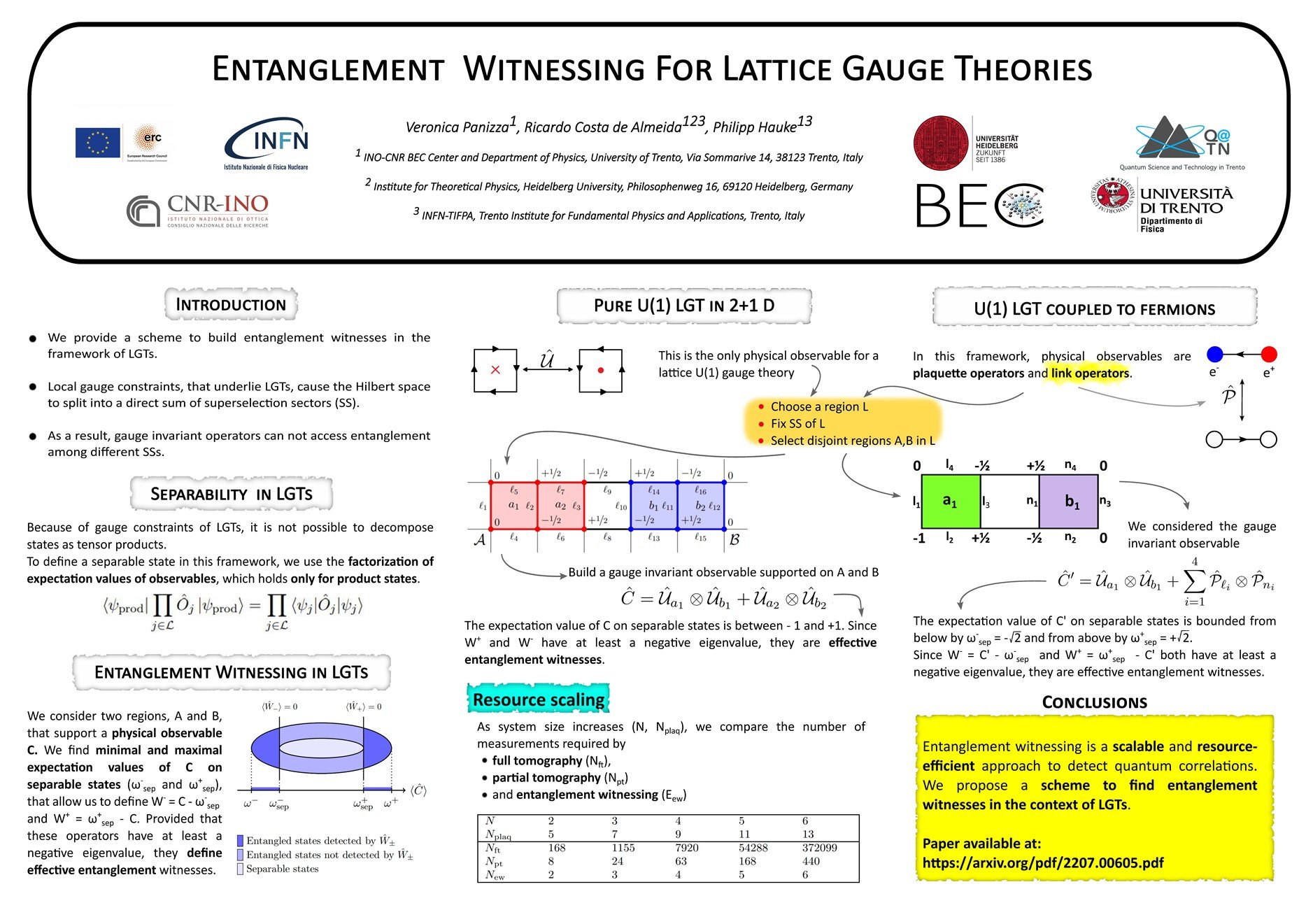
“Criticality and Compatibility in Multi-Parameter Quantum Metrology”
by Giovanni Di Fresco
Abstract: Many-body systems near a quantum phase transition (QPT) exhibit several properties which makes them appealing for metrological purposes. Indeed, it is now well established that the divergences of the quantum Fisher information (QFI) observed near a QPT can be used to increase the precision in the estimation of a parameter. Meanwhile, when it comes to the simultaneous estimation of multiple parameters, the benefits of criticality are much harder to analyze due to possible incompatibilities arising from the Heisenberg uncertainty. This involves the use of quite convoluted quantities, as the Holevo-Cramer-Rao bound, which are generally difficult to evaluate. Here we study the quantumness (R), a scalar index, which provides an asymptotic bound on the compatibility of a metrological scheme. The advantage of this approach is that R can be easily evaluated once the QFI and the mean Uhmlann curvature are known. Moreover, a scaling analysis of R reveals that many-body criticalities generally improve the compatibility in a multi-parameter framework. We also evaluate R in different representative systems, such as Ising chain and XY chain, in which we find this positive criticality effects.
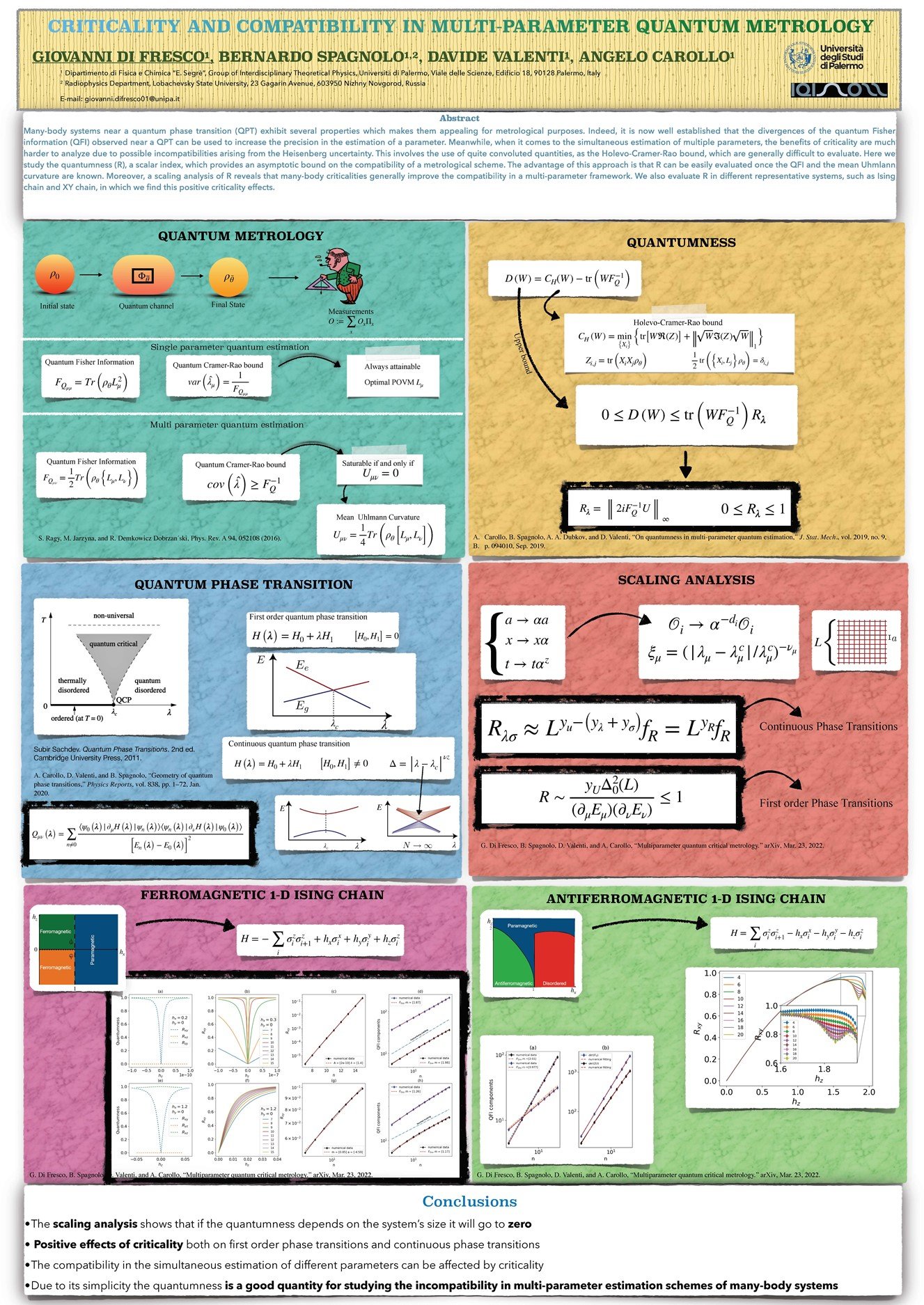
28 September 2022
Peer Review Week 2022 – Research Integrity: Creating and Supporting Trust in Research
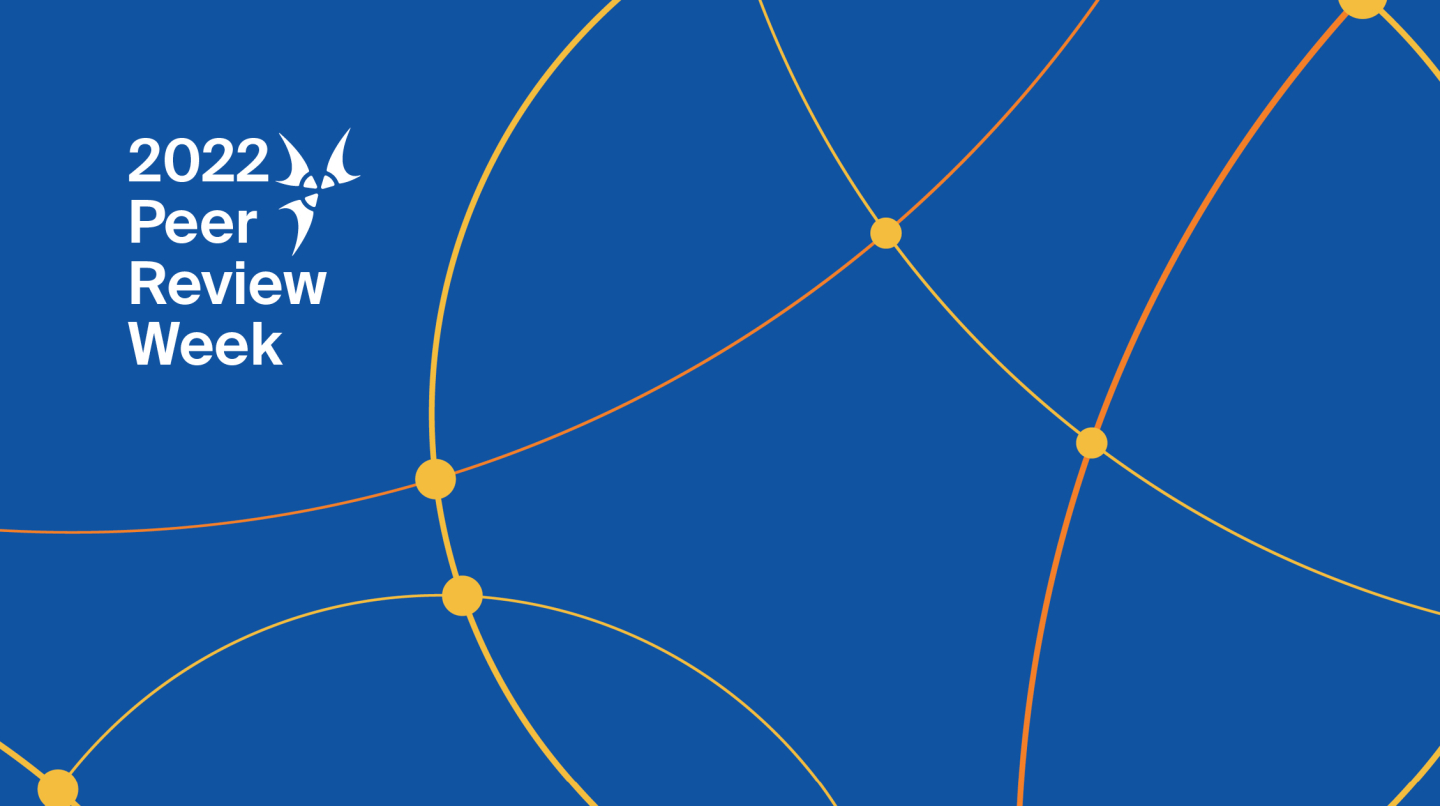
Peer Review Week began 19 September 2022 under the theme of “Research Integrity: Creating and Supporting Trust in Research”. Through various blog articles, podcast, and webinar, we discussed this crucial subject throughout the week, celebrating the essential role peer review plays in maintaining research quality.
To begin, we held a Webinar on the topic. Professor Peter W. Choate and Dr. Emmanuel Obeng-Gyasi joined Dr. Ioana Craciun, one of MDPI’s scientific officers, for an in-depth discussion.
We invite you to view the event recording:
During the week, the MDPI Blog in a series articles highlighted how good Peer Review safeguards research integrity. The following topics were covered:
- Peer Review Week 2022
- Research Integrity
- What We’ve Learned About Peer Review Reports
- 4 Steps to the Perfect Peer Review Report
- How to Write the Perfect Peer Review Report: An Interview
- Inviting Great Peer Reviewers
In a new edition of Insight Faster, an MDPI podcast, we were delighted to talk to the co-chairs of the Peer Review Week committee, Jayashree Rajagopalan (Senior Manager of Global Community Engagement for CACTUS) and Danielle Padula (Head of Marketing and Community Development at Scholastica) to get their take on this year’s event and its related topics.
You can find the Podcast here.
We hope you enjoy the contents!
21 September 2022
Entropy | Top Cited Papers Related to Deep Learning and Machine Learning in 2021
1. “Deep Ensemble of Weighted Viterbi Decoders for Tail-Biting Convolutional Codes”
by Tomer Raviv, Asaf Schwartz and Yair Be’ery
Entropy 2021, 23(1), 93; https://doi.org/10.3390/e23010093
Available online: https://www.mdpi.com/1099-4300/23/1/93
2. “Non Stationary Multi-Armed Bandit: Empirical Evaluation of a New Concept Drift-Aware Algorithm”
by Emanuele Cavenaghi, Gabriele Sottocornola, Fabio Stella and Markus Zanker
Entropy 2021, 23(3), 380; https://doi.org/10.3390/e23030380
Available online: https://www.mdpi.com/1099-4300/23/3/380
3. “Getting Ahead of the Arms Race: Hothousing the Coevolution of VirusTotal with a Packer”
by Héctor D. Menéndez, David Clark and Earl T. Barr
Entropy 2021, 23(4), 395; https://doi.org/10.3390/e23040395
Available online: https://www.mdpi.com/1099-4300/23/4/395
4. “Federated Quantum Machine Learning”
by Samuel Yen-Chi Chen and Shinjae Yoo
Entropy 2021, 23(4), 460; https://doi.org/10.3390/e23040460
Available online: https://www.mdpi.com/1099-4300/23/4/460
5. “A Review on Machine Learning Approaches for Network Malicious Behavior Detection in Emerging Technologies”
by Mahdi Rabbani, Yongli Wang, Reza Khoshkangini, Hamed Jelodar, Ruxin Zhao, Sajjad Bagheri Baba Ahmadi and Seyedvalyallah Ayobi
Entropy 2021, 23(5), 529; https://doi.org/10.3390/e23050529
Available online: https://www.mdpi.com/1099-4300/23/5/529
6. “A Hybrid Analysis-Based Approach to Android Malware Family Classification”
by Chao Ding, Nurbol Luktarhan, Bei Lu and Wenhui Zhang
Entropy 2021, 23(8), 1009; https://doi.org/10.3390/e23081009
Available online: https://www.mdpi.com/1099-4300/23/8/1009
7. “Solving Schrödinger Bridges via Maximum Likelihood”
by Francisco Vargas, Pierre Thodoroff, Austen Lamacraft and Neil Lawrence
Entropy 2021, 23(9), 1134; https://doi.org/10.3390/e23091134
Available online: https://www.mdpi.com/1099-4300/23/9/1134
8. “Deep Task-Based Quantization”
by Nir Shlezinger and Yonina C. Eldar
Entropy 2021, 23(1), 104; https://doi.org/10.3390/e23010104
Available online: https://www.mdpi.com/1099-4300/23/1/104
9. “Automatic ECG Classification Using Continuous Wavelet Transform and Convolutional Neural Network”
by Tao Wang, Changhua Lu, Yining Sun, Mei Yang, Chun Liu and Chunsheng Ou
Entropy 2021, 23(1), 119; https://doi.org/10.3390/e23010119
Available online: https://www.mdpi.com/1099-4300/23/1/119
10. “A New Deep Dual Temporal Domain Adaptation Method for Online Detection of Bearings Early Fault”
by Wentao Mao, Bin Sun and Liyun Wang
Entropy 2021, 23(2), 162; https://doi.org/10.3390/e23020162
Available online: https://www.mdpi.com/1099-4300/23/2/162
11. “An Efficient DenseNet-Based Deep Learning Model for Malware Detection”
by Jeyaprakash Hemalatha, S. Abijah Roseline, Subbiah Geetha, Seifedine Kadry and Robertas Damaševičius
Entropy 2021, 23(3), 344; https://doi.org/10.3390/e23030344
Available online: https://www.mdpi.com/1099-4300/23/3/344
12. “A Hybrid Method Based on Extreme Learning Machine and Wavelet Transform Denoising for Stock Prediction”
by Dingming Wu, Xiaolong Wang and Shaocong Wu
Entropy 2021, 23(4), 440; https://doi.org/10.3390/e23040440
Available online: https://www.mdpi.com/1099-4300/23/4/440
13. “Deep Learning Methods for Heart Sounds Classification: A Systematic Review”
by Wei Chen, Qiang Sun, Xiaomin Chen, Gangcai Xie, Huiqun Wu and Chen Xu
Entropy 2021, 23(6), 667; https://doi.org/10.3390/e23060667
Available online: https://www.mdpi.com/1099-4300/23/6/667
14. “Deep Learning for Walking Behaviour Detection in Elderly People Using Smart Footwear”
by Rocío Aznar-Gimeno, Gorka Labata-Lezaun, Ana Adell-Lamora, David Abadía-Gallego, Rafael del-Hoyo-Alonso and Carlos González-Muñoz
Entropy 2021, 23(6), 777; https://doi.org/10.3390/e23060777
Available online: https://www.mdpi.com/1099-4300/23/6/777
15. “Compression Helps Deep Learning in Image Classification”
by En-Hui Yang, Hossam Amer and Yanbing Jiang
Entropy 2021, 23(7), 881; https://doi.org/10.3390/e23070881
Available online: https://www.mdpi.com/1099-4300/23/7/881
16. “Differentiable PAC–Bayes Objectives with Partially Aggregated Neural Networks”
by Felix Biggs and Benjamin Guedj
Entropy 2021, 23(10), 1280; https://doi.org/10.3390/e23101280
Available online: https://www.mdpi.com/1099-4300/23/10/1280
17. “A Lightweight YOLOv4-Based Forestry Pest Detection Method Using Coordinate Attention and Feature Fusion”
by Mingfeng Zha, Wenbin Qian, Wenlong Yi and Jing Hua
Entropy 2021, 23(12), 1587; https://doi.org/10.3390/e23121587
Available online: https://www.mdpi.com/1099-4300/23/12/1587
20 September 2022
Meet Us at the Conference on Complex Systems (CCS2022), Palma de Mallorca, Spain, 17–21 October 2022
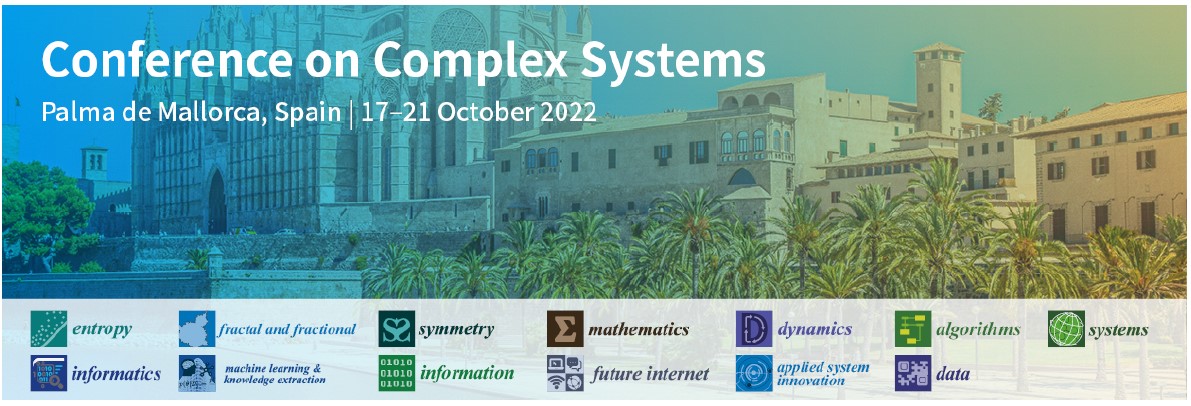
MDPI will be attending the Conference on Complex Systems (CCS2022) in Palma de Mallorca, Spain, which will take place from 17 to 21 October 2022. The CCS is the largest and most important annual meeting of the international complex systems community. It comes under the auspices of the Complex Systems Society. This edition, organized by IFISC, takes place after previous events held in Lyon, Singapore, Thessaloniki, and Cancun.
The following MDPI journals will be represented:
- Entropy;
- Fractal and Fractional;
- Symmetry;
- Mathematics;
- Dynamics;
- Algorithms;
- Systems;
- Informatics;
- MAKE;
- Information;
- Future Internet;
- Applied System Innovation;
- Data.
If you are attending this conference, please feel free to stop by our booth. Our delegates look forward to meeting you in person to answer any questions you may have. For more information about the conference, please visit the following link: https://www.ccs2022.org/.
1 September 2022
Entropy | Best ECR Presentation Award for CNS*2022 Workshop on Methods of Information Theory in Computational Neuroscience—Winner Announced
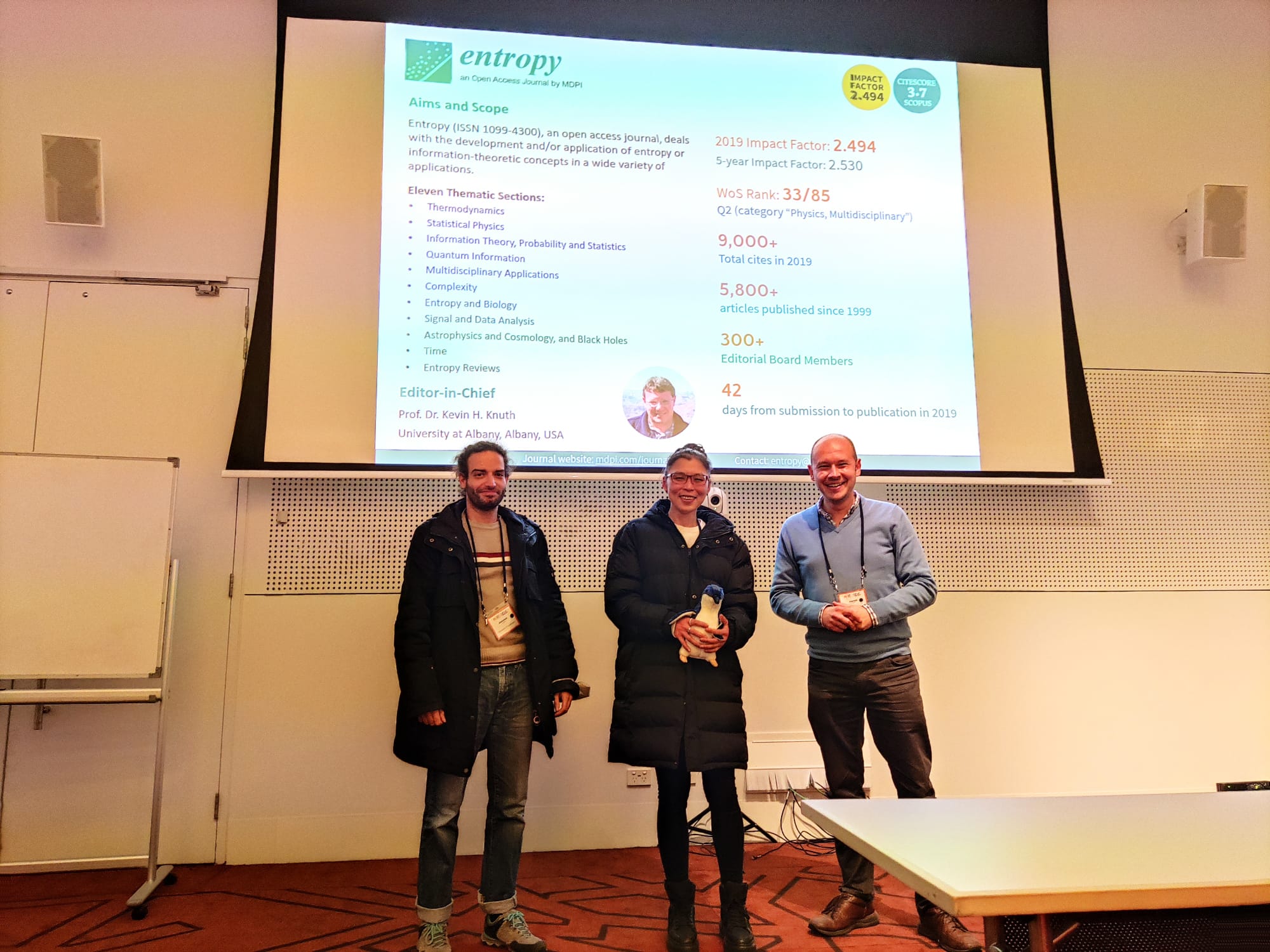
We are pleased to announce the Best ECR (Early Career Researcher) Presentation Award, sponsored by Entropy (ISSN: 1099-4300) for CNS*2022 Workshop on Methods of Information Theory in Computational Neuroscience, which was granted to Dr. Demi Gao at the University of Melbourne. Congratulations!
“Towards Personalised Cochlear Implants: Quantifying Hearing Performance Using Information Theory”
Abstract:
Despite the development and success of cochlear implants over several decades, wide inter-subject variability in speech perception is reported. This suggests that cochlear implant user-dependent factors limit speech perception at the individual level. Clinical studies have demonstrated the importance of the number, placement, and insertion depths of electrodes on speech recognition abilities. However, these do not account for all inter-subject variability and to what extent these factors affect speech recognition abilities has not been studied. We unified information theoretic method and machine learning technique to quantitatively study the extent to which key factors limit the hearing performance with cochlear implants. The approach provides insights into personalised strategies for improving speech recognition outcomes.
10 August 2022
Entropy | Best Poster Awards from the 41st International Conference on Bayesian and Maximum Entropy Methods in Science and Engineering (MaxEnt2022)—Winners Announced
We are pleased to announce the winners of the two poster awards sponsored by Entropy (ISSN: 1099-4300) from MaxEnt 2022—the 41st International Conference on Bayesian and Maximum Entropy Methods in Science and Engineering, which took place in Paris (France) from 18 to 22 July 2022.
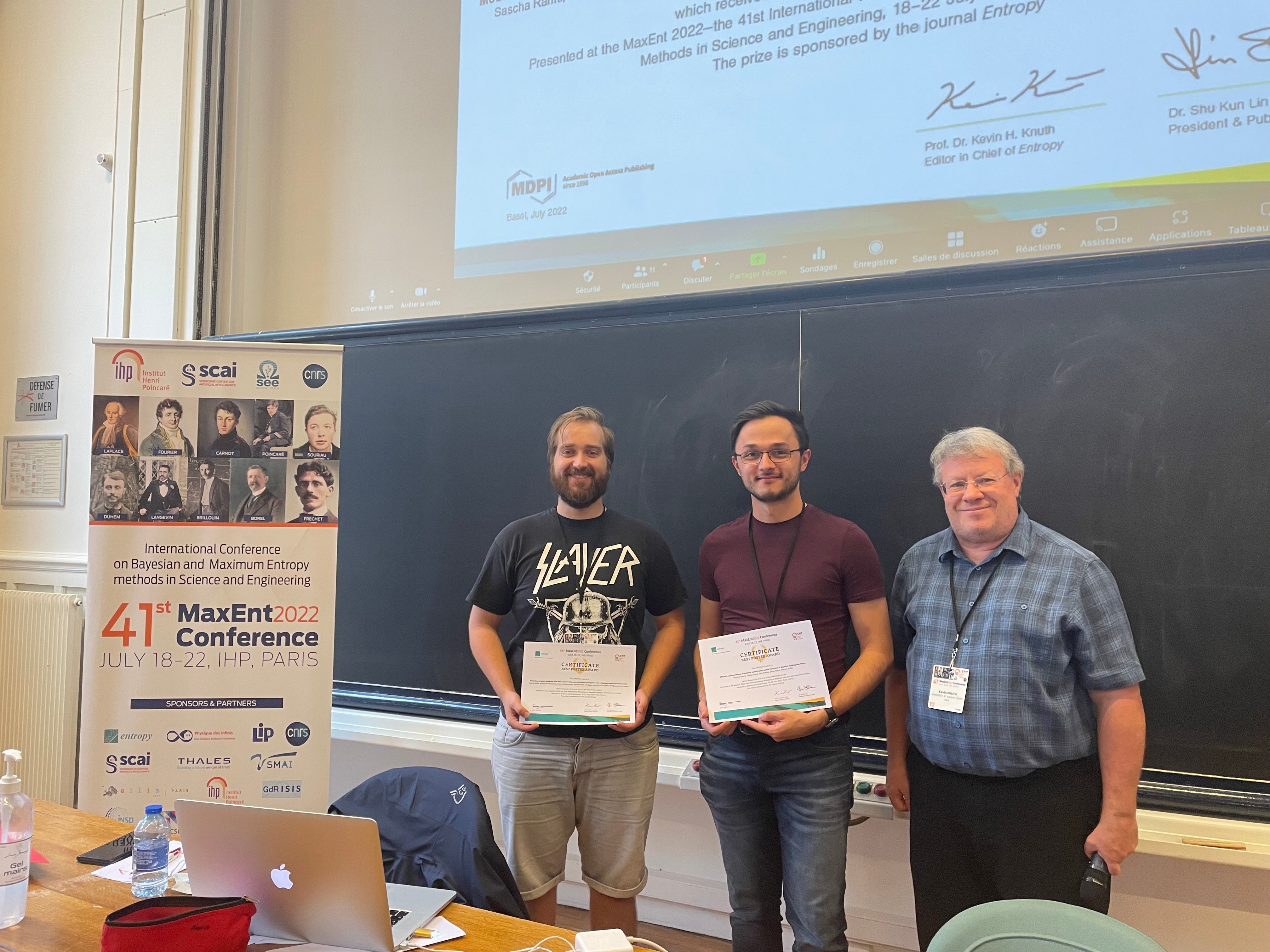
1st prize
“Efficient representations of spatially variant point spread functions in Bayesian imaging algorithms”
by Vincent Eberle, Philipp Frank, Julia Stadler, Silvan Streit, Torsten Enßlin
Bayesian imaging algorithms are becoming increasingly important in, e.g., astronomy, medicine, and biology. Given that many of these algorithms compute iterative solutions to high-dimensional inverse problems, the efficiency and accuracy of the instrument response representation are of high importance for the imaging process. For this reason, point spread functions, which make up a large fraction of the response functions of telescopes and microscopes, are usually assumed to be spatially invariant in a given field of view and can thus be represented by convolution. For many instruments, this assumption does not hold and degrades the accuracy of the instrument representation. We discuss the application of butterfly transforms, which are linear neural network structures whose size scales with the number of data points subquadratically. Butterfly transforms are efficient by design since they are inspired by the structure of the Cooley–Tukey Fast Fourier transform algorithm. We combine them into butterfly networks in several ways, compare the different architectures with respect to their performance, and identify a representation that is suitable for the efficient representation of a synthetic spatially variant point spread function with up to a 1% error.
2nd prize
“Modelling of aortic dissection with Beta random fields and uncertainty propagation with a Bayesian variational auto-encoder”
by Sascha Ranftl, Malte Rolf-Pissarczyk, GloriaWolkerstorfer, Antonio Pepe, Jan Egger, Gerhard A. Holzapfel, Wolfgang von der Linden
In this work, we create a stochastic constitutive model for arterial tissue mechanics and utilize deep learning surrogates in order to facilitate the ensuing propagation of uncertainties to the Cauchy stress fields resulting from tissue response to a mechanical load. In particular, "aortic dissection" is a dangerous disease that is linked to the stochastic and spatially heterogeneous degradation of the elastin fibers in aortic tissue. Here, this degradation is modeled as a "Beta" random field, i.e., a random field for which every marginal follows a Beta distribution, through a suitable combination of auxiliary Gaussian random fields. Based on this, the Cauchy stress fields in the tissue are computed using a finite element method in response to a mechanical load. Due to the stochasticity of the constitutive model in the input parameters, it is necessary to propagate these uncertainties to the computed mechanical Cauchy stress fields in order to make the simulations interpretable. The prohibitive computational effort of this latter step makes uncertainty propagation with direct sampling infeasible, instead requiring a surrogate model to be learned from a small number of samples from the finite element simulation. The structure of the input data, i.e., "Beta" random field realizations of the tissue's fibers degradation, and the output data, i.e., resulting mechanical Cauchy stress fields, define a problem similar to image-to-image (I2I) regression. This I2I problem structure suggests a convolutional neural network as a surrogate that is well-suited for learning the relationship between the spatial correlations. Here, we chose a Bayesian Variational Auto-Encoder (B-VAE) architecture. After training with Stein Variational Gradient Descent, the B-VAE can subsequently predict approximate Cauchy stress field samples from "Beta" random field samples several orders of magnitude faster, and with non-parametric Variational Inference, it can estimate the PDF of the predicted mechanical Cauchy stress fields. The study is presented within the framework of a rigorous Bayesian analysis. The results quantify the precision of such biomechanical simulations, and biologically relevant implications such as tissue rupture probabilities can be quantified.
Reference: Ranftl, S., Rolf-Pissarczyk, M., Wolkerstorfer, G., Pepe, A., Egger, J., von der Linden, W, & Holzapfel, G.A. (2022). “Stochastic Modeling of Inhomogeneities in the Aortic Wall and Uncertainty Quantification using a Bayesian Encoder-Decoder Surrogate”. ArXiv: abs/2202.10244
3 August 2022
MDPI’s 2021 Outstanding Reviewer Awards in “Physical Sciences”—Winners Announced
In order to acknowledge our reviewers, who so generously dedicate their time to reviewing papers and demonstrate diligence, professionalism, and timeliness when reviewing manuscripts, MDPI journals regularly offer outstanding reviewer awards to scholars who participate in the peer-review process.
We are proud to recognize this year’s winners in the “Physical Sciences” category for their outstanding contributions among extensive competition by presenting them with an Outstanding Reviewer Award.
We would like to take this opportunity to congratulate all of the winners on their achievement. MDPI will continue to provide support and recognition to the academic community.
- Jim W. Kay, University of Glasgow, UK;
- Christophe Chesneau, University of Caen, France;
- Esteban Tlelo-Cuautle, Instituto Nacional de Astrofísica, Óptica y Electrónica (INAOE), Mexico;
- Dennis Dieks, Utrecht University, The Netherlands;
- Claudio Cremaschini, Silesian University in Opava, Czech Republic.
- Carlos A. F. Marques, University of Aveiro, Portugal;
- Tatiana Latychevskaia, Paul Scherrer Institute, Switzerland.
- Amit Kashi, Ariel University, Israel;
- Dominik Elsaesser, Technical University of Dortmund, Germany;
- Isaac Tutusaus, Instituto de Ciencias del Espacio, Spain;
- Jose A.R. Cembranos, Universidad Complutense de Madrid, Spain;
- Kazuharu Bamba, Fukushima University, Japan;
- Przemyslaw Malkiewicz, National Centre for Nuclear Research, Poland;
- Szymon Piotr Harabasz, Technical University of Darmstadt, Germany;
- Theocharis Kosmas, University of Ioannina, Greece;
- Viktor Toth, Perimeter Institute for Theoretical Physics, Canada;
- Vitor De Souza, Universidade de São Paulodisabled, Brazil.
3 August 2022
MDPI’s 2021 Travel Awards in “Physical Sciences”—Winners Announced
We are proud to recognize the winners of MDPI’s 2021 Travel Awards in the “Physical Sciences” category for their outstanding presentations and to present them with the prize.
MDPI journals regularly offer travel awards to encourage talented junior scientists to present their latest research at academic conferences in specific fields, which helps to increase their influence.
The winners mentioned below were carefully selected by the journal editors based on an outline of their research and the work to be presented at an academic conference.
We would like to warmly congratulate the winners of this year’s Travel Awards and wish them the greatest success with their future research endeavors. MDPI will continue to enhance communication among scientists.
- Mahdis Ghodrati, Yangzhou University, China;
- Sandra Etoka, University of Manchester, UK.
- Adriana Dias, University of London, UK.
- Aleksandrs Leitis, École Polytechnique Fédérale de Lausanne, Switzerland;
- Elena Losero, École Polytechnique Fédérale de Lausanne, Switzerland;
- Zhifeng Zhang, University of Pennsylvania, USA.
3 August 2022
MDPI’s 2021 Best Paper Awards in “Physical Sciences”—Winners Announced
The purpose of our Best Paper Awards is to promote and recognize the most impactful contributions published within MDPI journals.
The editors of each journal carefully selected reviews and research papers through a rigorous judging process based on criteria such as the scientific merit, overall impact, and the quality of presentation of the papers published in the journal last year.
We are honored to present the winners in the “Physical Sciences” category, who were selected amongst extensive competition, and congratulate the authors for their outstanding scientific publications.
MDPI will continue to provide support and recognition to the academic community.
- “Classical (Local and Contextual) Probability Model for Bohm–Bell Type Experiments: No-Signaling as Independence of Random Variables”
By Andrei Khrennikov and Alexander Alodjants
Entropy 2019, 21(2), 157; doi 10.3390/e21020157 - “Nonlinear Information Bottleneck”
By Artemy Kolchinsky, Brendan D. Tracey and David H. Wolpert
Entropy 2019, 21(12), 1181; doi 10.3390/e21121181 - “Dynamic Maximum Entropy Reduction”
By Václav Klika, Michal Pavelka, Petr Vágner and Miroslav Grmela
Entropy 2019, 21(7), 715; doi 10.3390/e21070715 - “Topological Information Data Analysis”
By Pierre Baudot, Monica Tapia, Daniel Bennequin and Jean-Marc Goaillard
Entropy 2019, 21(9), 869; doi 10.3390/e21090869
- “Nonsingular Black Holes in ƒ (R) Theories”
By Gonzalo J. Olmo and Diego Rubiera-Garcia
Universe 2015, 1(2), 173-185; doi 10.3390/universe1020173 - “Is It No Longer Necessary to Test Cosmologies with Type Ia Supernovae?”
By Ram Gopal Vishwakarma and Jayant V. Narlikar
Universe 2018, 4(6), 73; doi 10.3390/universe4060073 - “A Universe that Does Not Know the Time”
By João Magueijo and Lee Smolin
Universe 2019, 5(3), 84 ; doi 10.3390/universe5030084 - “Seeing Black Holes: From the Computer to the Telescope”
By Jean-Pierre Luminet
Universe 2018, 4(8), 86; doi 10.3390/universe4080086
22 July 2022
Entropy | Best Poster Awards from Quantum Information and Probability: From Foundations to Engineering (QIP22)—Winners Announced
We are pleased to announce the winners of the two poster awards sponsored by Entropy (ISSN: 1099-4300) from Quantum Information and Probability: from Foundations to Engineering (QIP22), which took place in Växö (Sweden) from 14 to 18 June 2022.
1st prize
"Delayed Choice and Bohmian Trajectories Investigated with Entangled Photons in a Double Slit"
by Jan Dziewior
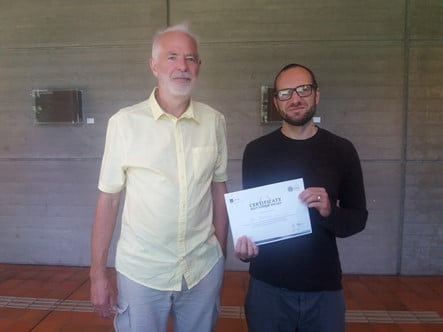
Bohmian mechanics, a hidden-variable interpretation of quantum mechanics, ascribes reality to the positions and momenta of quantum particles at the cost of a non-local ontology. Thus, contrary to standard quantum mechanics, it allows one to conceive of definite particle trajectories while being fully compatible with the standard theory in all empirical predictions. Nevertheless, the plausibility of the Bohmian picture was called into question by a double-slit Gedankenexperiment conducted by Englert et al. [1], which initiated a lively controversy. While most of the proponents of Bohmian mechanics agreed with the predictions of Englert et al., their conclusions have been criticized. Here, the experimental realization of this Gedankenexperiment is presented. The conditions for the occurrence of so-called “surrealistic” trajectories are realized by using a pair of entangled photons, where one of the photons is sent into an optical double-slit interferometer. The average trajectories are recorded using a method inspired by weak measurements [2,3]. By avoiding the measurement of the second photon as long as the trajectories of the first one are measured, it is possible to realize a delayed choice scenario, fully illustrating the contrasting inferences of standard and Bohmian quantum mechanics.
[1] Englert, B., Scully, M., Sussmann G., Walther, H., Surrealistic Bohm Trajectories, Zeitschrift fur Naturforschung A, 47 1175-1186 (1992).
[2] Wiseman, H. M., Grounding Bohmian mechanics in weak values and bayesianism, New J. Phys. 9 165 (2007).
[3] Mahler, D. et al., Experimental nonlocal and surreal Bohmian trajectories, Science Advances, 2 2 (2016).
2nd prize
“Inconsistency of linear dynamics and Born's rule”
by Lotte Mertens
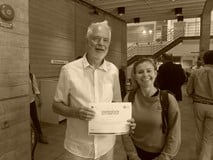
Modern experiments conducted using nanoscale devices come ever closer to bridging the divide between the quantum and classical realms, bringing experimental tests of objective collapse theories that propose alterations to Schrödinger’s equation within reach. Such objective collapse theories aim to explain the emergence of classical dynamics in the thermodynamic limit and hence resolve the inconsistency that exists within the axioms of quantum mechanics when assuming measurements can be described by quantum mechanics as well. Here, we show that requiring the emergence of Born’s rule for relative frequencies of measurement outcomes without imposing them as part of any axiom implies that such objective collapse theories cannot be linear. Previous suggestions regarding the proof of the emergence of Born’s rule in classes of problems that include linear objective collapse theories are analyzed and shown to include hidden assumptions.
11 July 2022
Entropy | Selected Papers from the 2021 “Editor’s Choice Articles” in the Section “Thermodynamics”
We are pleased to invite you to read papers from the “Editor’s Choice Articles” in 2021. We have carefully curated a list of high-quality articles from the Section “Thermodynamics” below:
- “Medium Entropy Reduction and Instability in Stochastic Systems with Distributed Delay”
by Loos, S.A.M. et al.
Entropy 2021, 23(6), 696; https://doi.org/10.3390/e23060696
Available online: https://www.mdpi.com/1099-4300/23/6/696
- “Stirling Refrigerating Machine Modeling Using Schmidt and Finite Physical Dimensions Thermodynamic Models: A Comparison with Experiments”
by Dobre, C. et al.
Entropy 2021, 23(3), 368; https://doi.org/10.3390/e23030368
Available online: https://www.mdpi.com/1099-4300/23/3/368
- “Josephson Currents and Gap Enhancement in Graph Arrays of Superconductive Islands”
by Lucci, M. et al.
Entropy 2021, 23(7), 811; https://doi.org/10.3390/e23070811
Available online: https://www.mdpi.com/1099-4300/23/7/811
- “The Carnot Cycle, Reversibility and Entropy”
by Sands, D.
Entropy 2021, 23(7), 810; https://doi.org/10.3390/e23070810
Available online: https://www.mdpi.com/1099-4300/23/7/810
- “Information Thermodynamics and Reducibility of Large Gene Networks”
by Sarkar, S. et al.
Entropy 2021, 23(1), 63; https://doi.org/10.3390/e23010063
Available online: https://www.mdpi.com/1099-4300/23/1/63
- “A Thermodynamic Approach to Measuring Entropy in a Few-Electron Nanodevice”
by Pyurbeeva, E. et al.
Entropy 2021, 23(6), 640; https://doi.org/10.3390/e23060640
Available online: https://www.mdpi.com/1099-4300/23/6/640
We would like to take this opportunity to thank all the research groups that submitted these exceptional papers for their contributions to Entropy (ISSN: 1099-4300). We would appreciate it if you would circulate this document among your colleagues or through your network.
If you would like to learn more about the contributions published in the “Editor’s Choice Articles”, please click on the following link: https://www.mdpi.com/journal/entropy/editors_choice.
11 July 2022
Entropy | Selected Papers from 2021 “Editor’s Choice Articles” in the Section “Statistical Physics”
It is our pleasure to invite you to read the selected papers from the “Editor’s Choice Articles” in 2021. The papers from the Section “Statistical Physics” are listed below:
- “Causality and Information Transfer Between the Solar Wind and the Magnetosphere–Ionosphere System”
by Manshour, P. et al.
Entropy 2021, 23(4), 390; https://doi.org/10.3390/e23040390
Available online: https://www.mdpi.com/1099-4300/23/4/390
- “Coupling between Blood Pressure and Subarachnoid Space Width Oscillations during Slow Breathing”
by Gruszecka, A. et al.
Entropy 2021, 23(1), 113; https://doi.org/10.3390/e23010113
Available online: https://www.mdpi.com/1099-4300/23/1/113
- “Dynamics of Ion Channels via Non-Hermitian Quantum Mechanics”
by Gulden, T. et al.
Entropy 2021, 23(1), 125; https://doi.org/10.3390/e23010125
Available online: https://www.mdpi.com/1099-4300/23/1/125
- “Gradient Profile Estimation Using Exponential Cubic Spline Smoothing in a Bayesian Framework”
by De Silva, K. et al.
Entropy 2021, 23(6), 674; https://doi.org/10.3390/e23060674
Available online: https://www.mdpi.com/1099-4300/23/6/674
- “Spectral Properties of Effective Dynamics from Conditional Expectations”
by Nüske, F. et al.
Entropy 2021, 23(2), 134; https://doi.org/10.3390/e23020134
Available online: https://www.mdpi.com/1099-4300/23/2/134
- “Ground-State Properties and Phase Separation of Binary Mixtures in Mesoscopic Ring Lattices”
by Penna, V. et al.
Entropy 2021, 23(7), 821; https://doi.org/10.3390/e23070821
Available online: https://www.mdpi.com/1099-4300/23/7/821
- “A Semi-Deterministic Random Walk with Resetting”
by Villarroel, J. et al.
Entropy 2021, 23(7), 825; https://doi.org/10.3390/e23070825
Available online: https://www.mdpi.com/1099-4300/23/7/825
We would like to take this opportunity to thank all the research groups that submitted these exceptional papers for their contributions to Entropy (ISSN: 1099-4300). We would greatly appreciate it if you could circulate this document among your colleagues or through your network.
If you would like to learn more about the contributions published in the “Editor’s Choice Articles”, please click on the following link: https://www.mdpi.com/journal/entropy/editors_choice.
11 July 2022
Entropy | Selected Papers from 2021 “Editor’s Choice Articles” in the Section “Signal and Data Analysis”
It is our pleasure to invite you to read the selected papers from the “Editor’s Choice Articles” in 2021. The papers from the Section “Signal and Data Analysis” are listed below:
- “Deep Task-Based Quantization”
by Shlezinger, N. et al.
Entropy 2021, 23(1), 104; https://doi.org/10.3390/e23010104
Available online: https://www.mdpi.com/1099-4300/23/1/104
- “Phase Transitions in Transfer Learning for High-Dimensional Perceptrons”
by Dhifallah, O. et al.
Entropy 2021, 23(4), 400; https://doi.org/10.3390/e23040400
Available online: https://www.mdpi.com/1099-4300/23/4/400
- “Novel Features for Binary Time Series Based on Branch Length Similarity Entropy”
by Lee, S.-H. et al.
Entropy 2021, 23(4), 480; https://doi.org/10.3390/e23040480
Available online: https://www.mdpi.com/1099-4300/23/4/480
- “Field Theoretical Approach for Signal Detection in Nearly Continuous Positive Spectra II: Tensorial Data”
by Lahoche, V. et al.
Entropy 2021, 23(7), 795; https://doi.org/10.3390/e23070795
Available online: https://www.mdpi.com/1099-4300/23/7/795
We would like to take this opportunity to thank all the research groups that submitted these exceptional papers for their contributions to Entropy (ISSN: 1099-4300). We would greatly appreciate it if you could circulate this document among your colleagues or through your network.
If you would like to learn more about the contributions published in the “Editor’s Choice Articles”, please click on the following link: https://www.mdpi.com/journal/entropy/editors_choice.
11 July 2022
Entropy | Selected Papers from 2021 “Editor’s Choice Articles” in the Section “Quantum Information”
It is our pleasure to invite you to read the selected papers from the “Editor’s Choice Articles” in 2021. The papers from the Section “Quantum Information” are listed below:
- “Switching and Swapping of Quantum Information: Entropy and Entanglement Level”
by Sawerwain, M. et al.
Entropy 2021, 23(6), 717; https://doi.org/10.3390/e23060717
Available online: https://www.mdpi.com/1099-4300/23/6/717
- “Beyond Causal Explanation: Einstein’s Principle Not Reichenbach’s”
by Silberstein, M. et al.
Entropy 2021, 23(1), 114; https://doi.org/10.3390/e23010114
Available online: https://www.mdpi.com/1099-4300/23/1/114
- “The Phase Space Model of Nonrelativistic Quantum Mechanics”
by Tosiek, J. et al.
Entropy 2021, 23(5), 581; https://doi.org/10.3390/e23050581
Available online: https://www.mdpi.com/1099-4300/23/5/581
- “The Principle of Covariance and the Hamiltonian Formulation of General Relativity”
by Tessarotto, M. et al.
Entropy 2021, 23(2), 215; https://doi.org/10.3390/e23020215
Available online: https://www.mdpi.com/1099-4300/23/2/215
- “On the Classical Capacity of General Quantum Gaussian Measurement”
by Holevo, A.
Entropy 2021, 23(3), 377; https://doi.org/10.3390/e23030377
Available online: https://www.mdpi.com/1099-4300/23/3/377
- “Advances in Atomtronics”
by Pepino, R.A.
Entropy 2021, 23(5), 534; https://doi.org/10.3390/e23050534
Available online: https://www.mdpi.com/1099-4300/23/5/534
- “Entanglement and Non-Locality in Quantum Protocols with Identical Particles”
by Benatti, F. et al.
Entropy 2021, 23(4), 479; https://doi.org/10.3390/e23040479
Available online: https://www.mdpi.com/1099-4300/23/4/479
- “Lapsing Quickly into Fatalism: Bell on Backward Causation”
by Norsen, T. et al.
Entropy 2021, 23(2), 251; https://doi.org/10.3390/e23020251
Available online: https://www.mdpi.com/1099-4300/23/2/251
- “Quantum Speed Limit and Divisibility of the Dynamical Map”
by Teittinen, J. et al.
Entropy 2021, 23(3), 331; https://doi.org/10.3390/e23030331
Available online: https://www.mdpi.com/1099-4300/23/3/331
- “Federated Quantum Machine Learning”
by Chen, S. Y.-C. et al.
Entropy 2021, 23(4), 460; https://doi.org/10.3390/e23040460
Available online: https://www.mdpi.com/1099-4300/23/4/460
- “Unveiling Operator Growth Using Spin Correlation Functions”
by Carrega, M. et al.
Entropy 2021, 23(5), 587; https://doi.org/10.3390/e23050587
Available online: https://www.mdpi.com/1099-4300/23/5/587
We would like to take this opportunity to thank all the research groups that submitted these exceptional papers for their contributions to Entropy (ISSN: 1099-4300). We would greatly appreciate it if you could circulate this document among your colleagues or through your network.
If you would like to learn more about the contributions published in the “Editor’s Choice Articles”, please click on the following link: https://www.mdpi.com/journal/entropy/editors_choice.
11 July 2022
Entropy | Selected Papers from 2021 “Editor’s Choice Articles” in the Section “Non-equilibrium Phenomena”
It is our pleasure to invite you to read the selected papers from the “Editor’s Choice Articles” in 2021. The papers from the Section “Non-equilibrium Phenomena” are listed below:
- “Characterization of a Two-Photon Quantum Battery: Initial Conditions, Stability and Work Extraction”
by Delmonte, A. et al.
Entropy 2021, 23(5), 612; https://doi.org/10.3390/e23050612
Available online: https://www.mdpi.com/1099-4300/23/5/612
- “Stochastic Thermodynamics of a Piezoelectric Energy Harvester Model”
by Costanzo, L. et al.
Entropy 2021, 23(6), 677; https://doi.org/10.3390/e23060677
Available online: https://www.mdpi.com/1099-4300/23/6/677
We would like to take this opportunity to thank all the research groups that submitted these exceptional papers for their contributions to Entropy (ISSN: 1099-4300). We would greatly appreciate it if you could circulate this document among your colleagues or through your network.
If you would like to learn more about the contributions published in the “Editor’s Choice Articles”, please click on the following link: https://www.mdpi.com/journal/entropy/editors_choice.
11 July 2022
Entropy | Selected Papers from 2021 “Editor’s Choice Articles” in the Section “Multidisciplinary Applications”
It is our pleasure to invite you to read the selected papers from the “Editor’s Choice Articles” in 2021. The papers from the Section “Multidisciplinary Applications” are listed below:
- “Crowded Trades, Market Clustering, and Price Instability”
by van Kralingen, M. et al.
Entropy 2021, 23(3), 336; https://doi.org/10.3390/e23030336
Available online: https://www.mdpi.com/1099-4300/23/3/336
- “High-Entropy Alloys for Advanced Nuclear Applications”
by Pickering, E.J. et al.
Entropy 2021, 23(1), 98; https://doi.org/10.3390/e23010098
Available online: https://www.mdpi.com/1099-4300/23/1/98
- “Disentangling the Information in Species Interaction Networks”
by Stock, M. et al.
Entropy 2021, 23(6), 703; https://doi.org/10.3390/e23060703
Available online: https://www.mdpi.com/1099-4300/23/6/703
- “The Effect of a Hidden Source on the Estimation of Connectivity Networks from Multivariate Time Series”
by Koutlis, C. et al.
Entropy 2021, 23(2), 208; https://doi.org/10.3390/e23020208
Available online: https://www.mdpi.com/1099-4300/23/2/208
- “Intelligent Online Monitoring of Rolling Bearing: Diagnosis and Prognosis”
by Hotait, H. et al.
Entropy 2021, 23(7), 791; https://doi.org/10.3390/e23070791
Available online: https://www.mdpi.com/1099-4300/23/7/791
- “A Maximum Entropy Model of Bounded Rational Decision-Making with Prior Beliefs and Market Feedback”
by Evans, B.P. et al.
Entropy 2021, 23(6), 669; https://doi.org/10.3390/e23060669
Available online: https://www.mdpi.com/1099-4300/23/6/669
- “The Impact of Linear Filter Preprocessing in the Interpretation of Permutation Entropy”
by Dávalos, A. et al.
Entropy 2021, 23(7), 787; https://doi.org/10.3390/e23070787
Available online: https://www.mdpi.com/1099-4300/23/7/787
- “Selection of Embedding Dimension and Delay Time in Phase Space Reconstruction via Symbolic Dynamics”
by Matilla-García, M. et al.
Entropy 2021, 23(2), 221; https://doi.org/10.3390/e23020221
Available online: https://www.mdpi.com/1099-4300/23/2/221
- “On-Road Detection of Driver Fatigue and Drowsiness during Medium-Distance Journeys”
by Salvati, L. et al.
Entropy 2021, 23(2), 135; https://doi.org/10.3390/e23020135
Available online: https://www.mdpi.com/1099-4300/23/2/135
- “The Role of Entropy in Construct Specification Equations (CSE) to Improve the Validity of Memory Tests”
by Melin, J. et al.
Entropy 2021, 23(2), 212; https://doi.org/10.3390/e23020212
Available online: https://www.mdpi.com/1099-4300/23/2/212
We would like to take this opportunity to thank all the research groups that submitted these exceptional papers for their contributions to Entropy (ISSN: 1099-4300). We would greatly appreciate it if you could circulate this document among your colleagues or through your network.
If you would like to learn more about the contributions published in the “Editor’s Choice Articles”, please click on the following link: https://www.mdpi.com/journal/entropy/editors_choice.
11 July 2022
Entropy | Selected Papers from 2021 “Editor’s Choice Articles” in the Section “Information Theory, Probability and Statistics”
It is our pleasure to invite you to read the selected papers from the “Editor’s Choice Articles” in 2021. The papers from the Section “Information Theory, Probability and Statistics” are listed below:
- “Computing Accurate Probabilistic Estimates of One-D Entropy from Equiprobable Random Samples”
by Gupta, H.V. et al.
Entropy 2021, 23(6), 740; https://doi.org/10.3390/e23060740
Available online: https://www.mdpi.com/1099-4300/23/6/740
- “Information Theory for Agents in Artificial Intelligence, Psychology, and Economics”
by Harré, M.S.
Entropy 2021, 23(3), 310; https://doi.org/10.3390/e23030310
Available online: https://www.mdpi.com/1099-4300/23/3/310
- “Accuracy-Risk Trade-Off Due to Social Learning in Crowd-Sourced Financial Predictions”
by Adjodah, D. et al.
Entropy 2021, 23(7), 801; https://doi.org/10.3390/e23070801
Available online: https://www.mdpi.com/1099-4300/23/7/801
- “Information and Self-Organization II: Steady State and Phase Transition”
by Haken, H. et al.
Entropy 2021, 23(6), 707; https://doi.org/10.3390/e23060707
Available online: https://www.mdpi.com/1099-4300/23/6/707
- “Information Geometric Theory in the Prediction of Abrupt Changes in System Dynamics”
by Guel-Cortez, A.-J. et al.
Entropy 2021, 23(6), 694; https://doi.org/10.3390/e23060694
Available online: https://www.mdpi.com/1099-4300/23/6/694
- “Mechanism Integrated Information”
by Barbosa, L.S. et al.
Entropy 2021, 23(3), 362; https://doi.org/10.3390/e23030362
Available online: https://www.mdpi.com/1099-4300/23/3/362
- “On Representations of Divergence Measures and Related Quantities in Exponential Families”
by Bedbur, S. et al.
Entropy 2021, 23(6), 726; https://doi.org/10.3390/e23060726
Available online: https://www.mdpi.com/1099-4300/23/6/726
- “Ordinal Pattern Dependence in the Context of Long-Range Dependence”
by Nüßgen, I. et al.
Entropy 2021, 23(6), 670; https://doi.org/10.3390/e23060670
Available online: https://www.mdpi.com/1099-4300/23/6/670
- “Robust Universal Inference”
by Painsky, A. et al.
Entropy 2021, 23(6), 773; https://doi.org/10.3390/e23060773
Available online: https://www.mdpi.com/1099-4300/23/6/773
- “Information Structures for Causally Explainable Decisions”
by Cox, L.A., Jr. et al.
Entropy 2021, 23(5), 601; https://doi.org/10.3390/e23050601
Available online: https://www.mdpi.com/1099-4300/23/5/601
- “Data-Driven Analysis of Nonlinear Heterogeneous Reactions through Sparse Modeling and Bayesian Statistical Approaches”
by Ito, M. et al.
Entropy 2021, 23(7), 824; https://doi.org/10.3390/e23070824
Available online: https://www.mdpi.com/1099-4300/23/7/824
- “Distance-Based Estimation Methods for Models for Discrete and Mixed-Scale Data”
by Sofikitou, E.M. et al.
Entropy 2021, 23(1), 107; https://doi.org/10.3390/e23010107
Available online: https://www.mdpi.com/1099-4300/23/1/107
- “Trade-offs between Error Exponents and Excess-Rate Exponents of Typical Slepian–Wolf Codes”
by Tamir, R. et al.
Entropy 2021, 23(3), 265; https://doi.org/10.3390/e23030265
Available online: https://www.mdpi.com/1099-4300/23/3/265
- “On a Variational Definition for the Jensen–Shannon Symmetrization of Distances Based on the Information Radius”
by Nielsen, F.
Entropy 2021, 23(4), 464; https://doi.org/10.3390/e23040464
Available online: https://www.mdpi.com/1099-4300/23/4/464
- “Signal Fluctuations and the Information Transmission Rates in Binary Communication Channels”
by Pregowska, A.
Entropy 2021, 23(1), 92; https://doi.org/10.3390/e23010092
Available online: https://www.mdpi.com/1099-4300/23/1/92
- “Error Exponents and α-Mutual Information”
by Verdú, S.
Entropy 2021, 23(2), 199; https://doi.org/10.3390/e23020199
Available online: https://www.mdpi.com/1099-4300/23/2/199
- “Unifying Large- and Small-Scale Theories of Coordination”
by Kelso, J.A.S.
Entropy 2021, 23(5), 537; https://doi.org/10.3390/e23050537
Available online: https://www.mdpi.com/1099-4300/23/5/537
We would like to take this opportunity to thank all the research groups that submitted these exceptional papers for their contributions to Entropy (ISSN: 1099-4300). We would greatly appreciate it if you could circulate this document among your colleagues or through your network.
If you would like to learn more about the contributions published in the “Editor’s Choice Articles”, please click on the following link: https://www.mdpi.com/journal/entropy/editors_choice.
11 July 2022
Entropy | Selected Paper from 2021 “Editor’s Choice Articles” in the Section “Entropy Reviews”
It is our pleasure to invite you to read the selected papers from the “Editor’s Choice Articles” in 2021. The paper from the Section “Entropy Reviews” is as follows:
- “The Entropy Universe”
by Ribeiro, M. et al.
Entropy 2021, 23(2), 222; https://doi.org/10.3390/e23020222
Available online: https://www.mdpi.com/1099-4300/23/2/222
We would like to take this opportunity to thank all the research groups that submitted exceptional papers for their contributions to Entropy (ISSN: 1099-4300). We would greatly appreciate it if you could circulate this document among your colleagues or through your network.
If you would like to learn more about the contributions published in the “Editor’s Choice Articles”, please click on the following link: https://www.mdpi.com/journal/entropy/editors_choice.
11 July 2022
Entropy | Selected Papers from 2021 “Editor’s Choice Articles” in the Section “Entropy and Biology”
It is our pleasure to invite you to read the selected papers from the “Editor’s Choice Articles” in 2021. The papers from the Section “Entropy and Biology” are listed below:
- “Critical Comparison of MaxCal and Other Stochastic Modeling Approaches in Analysis of Gene Networks”
by Firman, T. et al.
Entropy 2021, 23(3), 357; https://doi.org/10.3390/e23030357
Available online: https://www.mdpi.com/1099-4300/23/3/357
- “Psychomotor Predictive Processing”
by Fox, S.
Entropy 2021, 23(7), 806; https://doi.org/10.3390/e23070806
Available online: https://www.mdpi.com/1099-4300/23/7/806
We would like to take this opportunity to thank all the research groups that submitted these exceptional papers for their contributions to Entropy (ISSN: 1099-4300). We would greatly appreciate it if you could circulate this document among your colleagues or through your network.
If you would like to learn more about the contributions published in the “Editor’s Choice Articles”, please click on the following link: https://www.mdpi.com/journal/entropy/editors_choice.
11 July 2022
Entropy | Selected Papers from “Editor’s Choice Articles” in 2021
It is our pleasure to invite you to read the selected papers from the “Editor’s Choice Articles” in 2021. The papers outside the Sections are listed below:
- “Shall I Work with Them? A Knowledge Graph-Based Approach for Predicting Future Research Collaborations”
by Kanakaris, N. et al.
Entropy 2021, 23(6), 664; https://doi.org/10.3390/e23060664
Available online: https://www.mdpi.com/1099-4300/23/6/664
- “α-Geodesical Skew Divergence”
by Kimura, M. et al.
Entropy 2021, 23(5), 528; https://doi.org/10.3390/e23050528
Available online: https://www.mdpi.com/1099-4300/23/5/528
- “Spectral Ranking of Causal Influence in Complex Systems”
by Zalmijn, E. et al.
Entropy 2021, 23(3), 369; https://doi.org/10.3390/e23030369
Available online: https://www.mdpi.com/1099-4300/23/3/369
- “Interpretable Multi-Head Self-Attention Architecture for Sarcasm Detection in Social Media”
by Akula, R. et al.
Entropy 2021, 23(4), 394; https://doi.org/10.3390/e23040394
Available online: https://www.mdpi.com/1099-4300/23/4/394
- “A Geometric Perspective on Information Plane Analysis”
by Basirat, M. et al.
Entropy 2021, 23(6), 711; https://doi.org/10.3390/e23060711
Available online: https://www.mdpi.com/1099-4300/23/6/711
- “On Using the BMCSL Equation of State to Renormalize the Onsager Theory Approach to Modeling Hard Prolate Spheroidal Liquid Crystal Mixtures”
by Ohadi, D. et al.
Entropy 2021, 23(7), 846; https://doi.org/10.3390/e23070846
Available online: https://www.mdpi.com/1099-4300/23/7/846
We would like to take this opportunity to thank all the research groups that submitted these exceptional papers for their contributions to Entropy (ISSN: 1099-4300). We would greatly appreciate it if you could circulate this document among your colleagues or through your network.
If you would like to learn more about the contributions published in the “Editor’s Choice Articles”, please click on the following link: https://www.mdpi.com/journal/entropy/editors_choice.
11 July 2022
Entropy | Selected Papers from the 2021 “Editor’s Choice Articles” in the Section “Complexity”
It is our pleasure to invite you to read the selected papers from the “Editor’s Choice Articles” in 2021. The papers from the Section “Complexity” are listed below:
- “EEG Fractal Analysis Reflects Brain Impairment after Stroke”
by Rubega, M. et al.
Entropy 2021, 23(5), 592; https://doi.org/10.3390/e23050592
Available online: https://www.mdpi.com/1099-4300/23/5/592
- “Applications of Distributed-Order Fractional Operators: A Review”
by Ding, W. et al.
Entropy 2021, 23(1), 110; https://doi.org/10.3390/e23010110
Available online: https://www.mdpi.com/1099-4300/23/1/110
- “Socio-Economic Impact of the Covid-19 Pandemic in the U.S.”
by Barlow, J. et al.
Entropy 2021, 23(6), 673; https://doi.org/10.3390/e23060673
Available online: https://www.mdpi.com/1099-4300/23/6/673
- “Why Do Big Data and Machine Learning Entail the Fractional Dynamics?”
by Niu, H. et al.
Entropy 2021, 23(3), 297; https://doi.org/10.3390/e23030297
Available online: https://www.mdpi.com/1099-4300/23/3/297
- “Global Sensitivity Analysis Based on Entropy: From Differential Entropy to Alternative Measures”
by Kala, Z.
Entropy 2021, 23(6), 778; https://doi.org/10.3390/e23060778
Available online: https://www.mdpi.com/1099-4300/23/6/778
- “Menzerath’s Law in the Syntax of Languages Compared with Random Sentences”
by Tanaka-Ishii, K.
Entropy 2021, 23(6), 661; https://doi.org/10.3390/e23060661
Available online: https://www.mdpi.com/1099-4300/23/6/661
- “Low-Frequency Seismic Noise Properties in the Japanese Islands”
by Lyubushin, A.
Entropy 2021, 23(4), 474; https://doi.org/10.3390/e23040474
Available online: https://www.mdpi.com/1099-4300/23/4/474
We would like to take this opportunity to thank all the research groups that submitted these exceptional papers for their contributions to Entropy (ISSN: 1099-4300). We would greatly appreciate it if you could circulate this document among your colleagues or through your network.
If you would like to learn more about the contributions published in the “Editor’s Choice Articles”, please click on the following link: https://www.mdpi.com/journal/entropy/editors_choice.
28 June 2022
2021 Impact Factors - Released
The 2021 citation metrics have been released in the Journal Citation Reports (JCR), and we’re pleased to announce the following results for MDPI journals:

| Journal | Impact Factor | Rank | Category |
| Antioxidants | 7.675 | Q1 | Food Science & Technology |
| Biochemistry & Molecular Biology | |||
| Chemistry, Medicinal | |||
| Cells | 7.666 | Q2 | Cell Biology |
| Nutrients | 6.706 | Q1 | Nutrition & Dietetics |
| Cancers | 6.575 | Q1 | Oncology |
| Pharmaceutics | 6.525 | Q1 | Pharmacology & Pharmacy |
| International Journal of Molecular Sciences | 6.208 | Q1 | Biochemistry & Molecular Biology |
| Q2 | Chemistry, Multidisciplinary | ||
| Marine Drugs | 6.085 | Q1 | Chemistry, Medicinal |
| Pharmacology & Pharmacy | |||
| Biomolecules | 6.064 | Q2 | Biochemistry & Molecular Biology |
| Batteries * | 5.938 | Q2 | Electrochemistry |
| Energy & Fuels | |||
| Materials Science, Multidisciplinary | |||
| Viruses | 5.818 | Q2 | Virology |
| Biosensors | 5.743 | Q1 | Chemistry, Analytical |
| Instruments & Instrumentation | |||
| Q2 | Nanoscience & Nanotechnology | ||
| Journal of Fungi | 5.724 | Q1 | Mycology |
| Q2 | Microbiology | ||
| Nanomaterials | 5.719 | Q1 | Physics, Applied |
| Q2 | Chemistry, Multidisciplinary | ||
| Materials Science, Multidisciplinary | |||
| Nanoscience & Nanotechnology | |||
| Metabolites | 5.581 | Q2 | Biochemistry & Molecular Biology |
| Foods | 5.561 | Q1 | Food Science & Technology |
| Drones * | 5.532 | Q2 | Remote Sensing |
| Remote Sensing | 5.349 | Q1 | Geosciences, Multidisciplinary |
| Imaging Science & Photographic Technology | |||
| Q2 | Remote Sensing | ||
| Environmental Sciences | |||
| Journal of Theoretical and Applied Electronic Commerce Research | 5.318 | Q2 | Business |
| Antibiotics | 5.222 | Q1 | Pharmacology & Pharmacy |
| Q2 | Infectious Diseases | ||
| Pharmaceuticals | 5.215 | Q1 | Pharmacology & Pharmacy |
| Q2 | Chemistry, Medicinal | ||
| Biology | 5.168 | Q1 | Biology |
| Fermentation | 5.123 | Q2 | Biotechnology & Applied Microbiology |
| Toxins | 5.075 | Q1 | Toxicology |
| Q2 | Food Science & Technology | ||
| Bioengineering * | 5.046 | Q2 | Engineering, Biomedical |
| Polymers | 4.967 | Q1 | Polymer Science |
| Journal of Clinical Medicine | 4.964 | Q2 | Medicine, General & Internal |
| Vaccines | 4.961 | Q2 | Immunology |
| Medicine, Research & Experimental | |||
| Molecules | 4.927 | Q2 | Chemistry, Multidisciplinary |
| Biochemistry & Molecular Biology | |||
| Microorganisms | 4.926 | Q2 | Microbiology |
| Journal of Functional Biomaterials * | 4.901 | Q2 | Engineering, Biomedical |
| Materials Science, Biomaterials | |||
| Biomedicines | 4.757 | Q2 | Medicine, Research & Experimental |
| Pharmacology & Pharmacy | |||
| Biochemistry & Molecular Biology | |||
| Plants | 4.658 | Q1 | Plant Sciences |
| International Journal of Environmental Research and Public Health | 4.614 | Q1 | Public, Environmental & Occupational Health (SSCI) |
| Q2 | Public, Environmental & Occupational Health (SCIE) | ||
| Environmental Sciences (SCIE) | |||
| Membranes | 4.562 | Q1 | Polymer Science |
| Q2 | Engineering, Chemical | ||
| Materials Science, Multidisciplinary | |||
| Chemistry, Physical | |||
| Pathogens | 4.531 | Q2 | Microbiology |
| Catalysts | 4.501 | Q2 | Chemistry, Physical |
| Toxics | 4.472 | Q2 | Toxicology |
| Environmental Sciences | |||
| Gels | 4.432 | Q1 | Polymer Science |
| Journal of Cardiovascular Development and Disease | 4.415 | Q2 | Cardiac & Cardiovascular Systems |
| Chemosensors | 4.229 | Q1 | Instruments & Instrumentation |
| Q2 | Chemistry, Analytical | ||
| Q3 | Electrochemistry | ||
| Genes | 4.141 | Q2 | Genetics & Heredity |
| Diagnostics | 3.992 | Q2 | Medicine, General & Internal |
| Agronomy | 3.949 | Q1 | Agronomy |
| Plant Sciences | |||
| Land | 3.905 | Q2 | Environmental Studies |
| Sustainability | 3.889 | Q2 | Environmental Sciences (SCIE) |
| Environmental Studies (SSCI) | |||
| Q3 | Green & Sustainable Science & Technology (SCIE) | ||
| Q4 | Green & Sustainable Science & Technology (SSCI) | ||
| Sensors | 3.847 | Q2 | Instruments & Instrumentation |
| Chemistry, Analytical | |||
| Engineering, Electrical & Electronic | |||
| Materials | 3.748 | Q1 | Metallurgy & Metallurgical Engineering |
| Q2 | Physics, Applied | ||
| Physics, Condensed Matter | |||
| Q3 | Materials Science, Multidisciplinary | ||
| Chemistry, Physical | |||
| Biomimetics * | 3.743 | Q2 | Engineering, Multidisciplinary |
| Q3 | Materials Science, Biomaterials | ||
| Tropical Medicine and Infectious Disease * | 3.711 | Q1 | Tropical Medicine |
| Q2 | Parasitology | ||
| Q3 | Infectious Diseases | ||
| Lubricants * | 3.584 | Q2 | Engineering, Mechanical |
| Fractal and Fractional | 3.577 | Q1 | Mathematics, Interdisciplinary Applications |
| Water | 3.530 | Q2 | Water Resources |
| Q3 | Environmental Sciences | ||
| Micromachines | 3.523 | Q2 | Instruments & Instrumentation |
| Physics, Applied | |||
| Chemistry, Analytical | |||
| Q3 | Nanoscience & Nanotechnology | ||
| Journal of Personalized Medicine | 3.508 | Q2 | Medicine, General & Internal |
| Health Care Sciences & Services | |||
| Agriculture | 3.408 | Q1 | Agronomy |
| Processes | 3.352 | Q2 | Engineering, Chemical |
| Separations | 3.344 | Q2 | Chemistry, Analytical |
| Magnetochemistry | 3.336 | Q2 | Chemistry, Inorganic & Nuclear |
| Q3 | Chemistry, Physical | ||
| Materials Science, Multidisciplinary | |||
| Brain Sciences | 3.333 | Q3 | Neurosciences |
| Buildings | 3.324 | Q2 | Construction & Building Technology |
| Engineering, Civil | |||
| Forests | 3.282 | Q1 | Forestry |
| Energies | 3.252 | Q3 | Energy & Fuels |
| Life | 3.251 | Q2 | Biology |
| Coatings | 3.236 | Q2 | Materials Science, Coatings & Films |
| Physics, Applied | |||
| Q3 | Materials Science, Multidisciplinary | ||
| Animals | 3.231 | Q1 | Agriculture, Dairy & Animal Science |
| Veterinary Sciences | |||
| Journal of Intelligence * | 3.176 | Q2 | Psychology, Multidisciplinary |
| Fishes | 3.170 | Q1 | Marine & Freshwater Biology |
| Q2 | Fisheries | ||
| Healthcare | 3.160 | Q2 | Health Policy & Services (SSCI) |
| Health Care Sciences & Services (SCIE) | |||
| Inorganics * | 3.149 | Q2 | Chemistry, Inorganic & Nuclear |
| Insects | 3.139 | Q1 | Entomology |
| Atmosphere | 3.110 | Q3 | Meteorology & Atmospheric Sciences |
| Environmental Sciences | |||
| Current Oncology | 3.109 | Q3 | Oncology |
| ISPRS International Journal of Geo-Information | 3.099 | Q2 | Geography, Physical |
| Q3 | Computer Science, Information Systems | ||
| Remote Sensing | |||
| Diversity | 3.029 | Q2 | Biodiversity Conservation |
| Ecology | |||
| Tomography | 3.000 | Q3 | Radiology, Nuclear Medicine & Medical Imaging |
| Current Issues in Molecular Biology | 2.976 | Q3 | Biochemistry & Molecular Biology |
| Medicina | 2.948 | Q3 | Medicine, General & Internal |
| Symmetry | 2.940 | Q2 | Multidisciplinary Sciences |
| Horticulturae | 2.923 | Q1 | Horticulture |
| Machines | 2.899 | Q2 | Engineering, Mechanical |
| Engineering, Electrical & Electronic | |||
| Systems * | 2.895 | Q2 | Social Sciences, Interdisciplinary |
| Applied Sciences | 2.838 | Q2 | Engineering, Multidisciplinary |
| Physics, Applied | |||
| Q3 | Chemistry, Multidisciplinary | ||
| Materials Science, Multidisciplinary | |||
| Children | 2.835 | Q2 | Pediatrics |
| Minerals | 2.818 | Q2 | Mining & Mineral Processing |
| Mineralogy | |||
| Geochemistry & Geophysics | |||
| Universe | 2.813 | Q2 | Astronomy & Astrophysics |
| Q3 | Physics, Particles & Fields | ||
| Journal of Marine Science and Engineering | 2.744 | Q1 | Engineering, Marine |
| Q2 | Oceanography | ||
| Engineering, Ocean | |||
| Entropy | 2.738 | Q2 | Physics, Multidisciplinary |
| Fire * | 2.726 | Q2 | Forestry |
| Q3 | Ecology | ||
| Metals | 2.695 | Q2 | Metallurgy & Metallurgical Engineering |
| Q3 | Materials Science, Multidisciplinary | ||
| Electronics | 2.690 | Q3 | Engineering, Electrical & Electronic |
| Computer Science, Information Systems | |||
| Physics, Applied | |||
| Crystals | 2.670 | Q2 | Crystallography |
| Q3 | Materials Science, Multidisciplinary | ||
| Aerospace | 2.660 | Q1 | Engineering, Aerospace |
| Mathematics | 2.592 | Q1 | Mathematics |
| Photonics | 2.536 | Q3 | Optics |
| Actuators | 2.523 | Q2 | Instruments & Instrumentation |
| Q3 | Engineering, Mechanical | ||
| Veterinary Sciences | 2.518 | Q2 | Veterinary Sciences |
| Behavioral Sciences * | 2.286 | Q3 | Psychology, Multidisciplinary |
| Axioms * | 1.824 | Q2 | Mathematics, Applied |
For more information on Impact Factors and what it means to index academic journals, please visit our related blog posts.
* Journals given their first Impact Factor in 2022
Source: 2021 Journal Impact Factors, Journal Citation Reports TM (Clarivate, 2022)
9 June 2022
2021 CiteScores - Released
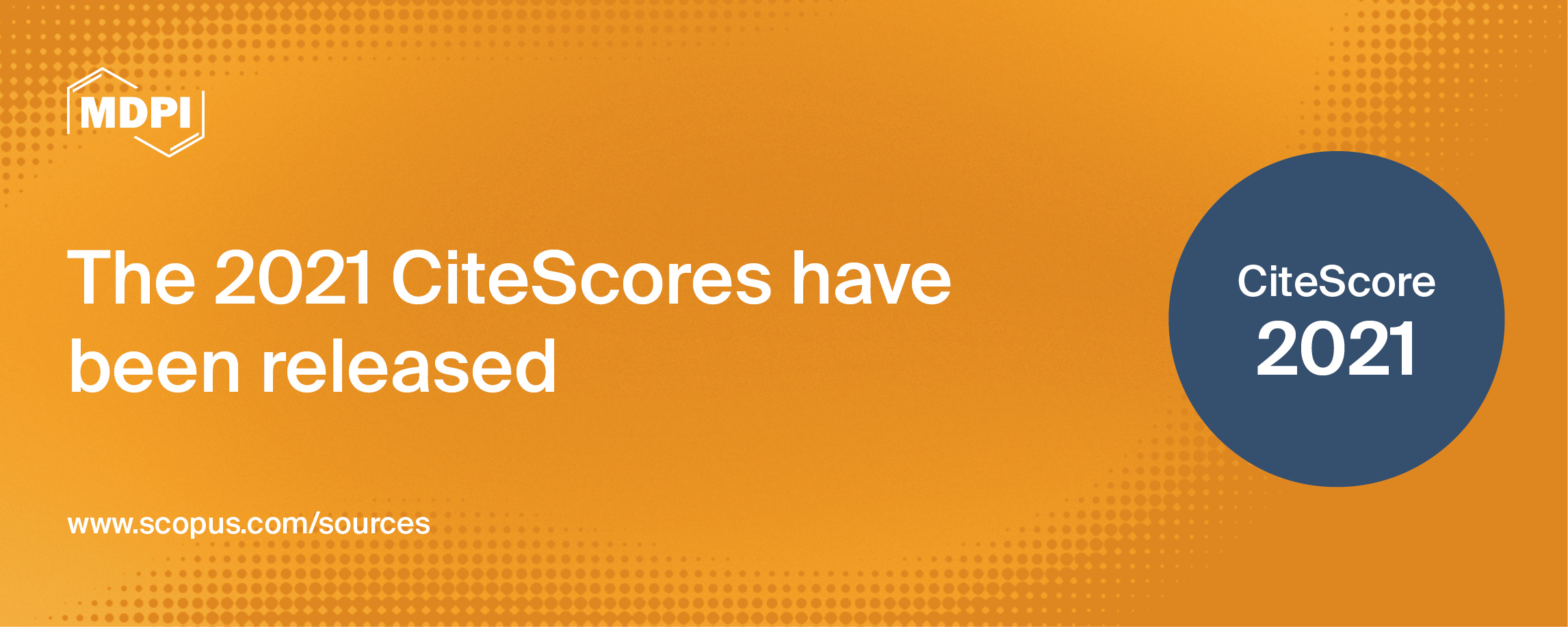
The 2021 citation metrics have been officially released in Scopus!
We are pleased to announce that 182 MDPI journals are included, of which:
● 21 journals received their first CiteScore.
● 85% of journals increased their CiteScore from 2020.
● 155 journals (85%) ranked above average, in at least one category.
The following 65 MDPI journals (36%) ranked among the top 25% of journals, in at least one category:
|
Journal |
CiteScore |
Quartile |
Category |
|
10.1 |
Q1 |
Genetics |
|
|
10.0 |
Q1 |
Biomedical Engineering |
|
|
8.1 |
Q1 |
Pharmacology, Toxicology and Pharmaceutics (miscellaneous) |
|
|
7.9 |
Q1 |
Electrical and Electronic Engineering |
|
|
7.9 |
Q1 |
Nutrition and Dietetics |
|
|
7.4 |
Q1 |
General Earth and Planetary Sciences |
|
|
7.2 |
Q1 |
Computer Science Applications |
|
|
6.9 |
Q1 |
Inorganic Chemistry |
|
|
6.9 |
Q1 |
Computer Networks and Communications |
|
|
6.7 |
Q1 |
General Biochemistry, Genetics and Molecular Biology |
|
|
6.6 |
Q1 |
General Chemical Engineering |
|
|
6.6 |
Q1 |
Health, Toxicology and Mutagenesis |
|
|
6.6 |
Q1 |
Infectious Diseases |
|
|
6.5 |
Q1 |
Food Science |
|
|
6.5 |
Q1 |
Civil and Structural Engineering |
|
|
6.4 |
Q1 |
Nature and Landscape Conservation |
|
|
6.4 |
Q1 |
Instrumentation |
|
|
6.1 |
Q1 |
Management Information Systems |
|
|
5.9 |
Q1 |
Chemistry (miscellaneous) |
|
|
5.7 |
Q1 |
Polymers and Plastics |
|
|
5.6 |
Q1 |
Engineering (miscellaneous) |
|
|
5.5 |
Q1 |
General Environmental Science |
|
|
5.5 |
Q1 |
Urban Studies |
|
|
5.4 |
Q2 |
Computer Networks and Communications |
|
|
5.3 |
Q1 |
Food Science |
|
|
5.3 |
Q1 |
Plant Science |
|
|
5.2 |
Q1 |
Ecology, Evolution, Behavior and Systematics |
|
|
5.2 |
Q1 |
General Engineering |
|
|
Journal of Open Innovation: Technology, Market, and Complexity |
5.1 |
Q1 |
Development |
|
5.0 |
Q1 |
Chemistry (miscellaneous) |
|
|
5.0 |
Q1 |
Control and Optimization |
|
|
5.0 |
Q1 |
Geography, Planning and Development |
|
|
5.0 |
Q1 |
Geography, Planning and Development |
|
|
4.9 |
Q1 |
Forestry |
|
|
4.9 |
Q1 |
Control and Optimization |
|
|
4.9 |
Q1 |
Soil Science |
|
|
4.8 |
Q1 |
General Earth and Planetary Sciences |
|
|
4.8 |
Q1 |
Mechanical Engineering |
|
|
4.8 |
Q1 |
Public Health, Environmental and Occupational Health |
|
|
4.8 |
Q1 |
Geography, Planning and Development |
|
|
International Journal of Environmental Research and Public Health |
4.5 |
Q1 |
Public Health, Environmental and Occupational Health |
|
4.5 |
Q1 |
Physical Therapy, Sports Therapy and Rehabilitation |
|
|
4.4 |
Q1 |
Mathematical Physics |
|
|
4.4 |
Q1 |
General Medicine |
|
|
4.3 |
Q1 |
General Mathematics |
|
|
4.2 |
Q1 |
Surgery |
|
|
4.1 |
Q1 |
Health Professions (miscellaneous) |
|
|
4.1 |
Q1 |
Plant Science |
|
|
4.0 |
Q1 |
General Engineering |
|
|
4.0 |
Q1 |
Forestry |
|
|
4.0 |
Q1 |
Education |
|
|
3.9 |
Q1 |
General Pharmacology, Toxicology and Pharmaceutics |
|
|
3.9 |
Q1 |
Applied Mathematics |
|
|
3.8 |
Q1 |
Development |
|
|
3.8 |
Q1 |
Architecture |
|
|
3.8 |
Q1 |
Metals and Alloys |
|
|
3.5 |
Q1 |
Communication |
|
|
3.4 |
Q1 |
General Social Sciences |
|
|
2.9 |
Q1 |
General Mathematics |
|
|
2.8 |
Q1 |
Analysis |
|
|
2.7 |
Q1 |
General Veterinary |
|
|
2.6 |
Q1 |
Algebra and Number Theory |
|
|
1.8 |
Q1 |
Conservation |
|
|
1.0 |
Q1 |
Religious Studies |
|
|
0.9 |
Q1 |
Philosophy |
Source: 2021 CiteScores™ (Elsevier)
9 June 2022
Entropy Receives Increased CiteScore of 4.4
We are pleased to announce that Entropy (ISSN: 1099-4300) has received an increased CiteScore of 4.4 in the latest released 2021 CiteScore™ values, published by Elsevier in June 2022. Entropy now ranks 10/77 (Q1) in “Mathematical Physics”, 17/63 (Q2) in “Physics and Astronomy”, 235/708 (Q2) in “Electrical and Electronic Engineering”, and 117/353 (Q2) in “Information Systems”. For full details of the current CiteScore release, please see the journal's Source profile: https://www.scopus.com/sourceid/13715.
We would like to extend our sincerest gratitude to all the authors, reviewers, and editors who have contributed to the journal and enabled this next big step.
26 May 2022
Entropy 2022 Young Investigator Award—Open for Nomination
We are pleased to announce that Entropy (ISSN: 1099-4300) is now inviting nominations for the Entropy 2022 Young Investigator Award. This prize will be given to one young investigator in recognition of their excellence in the field of entropy and information theory. All nominations will be assessed by an Award Evaluation Committee led by the Editor-in-Chief, Prof. Dr. Kevin H. Knuth.
The prize:
- CHF 2000;
- Option to publish one paper free of charge in Entropy after peer review before the end of December 2023;
- A certificate.
Eligibility and requirements:
- Must have a PhD degree;
- Must be below 40 years of age by 31 December 2022;
- Must have produced ground-breaking research and made a significant contribution to the advancement of entropy and information theory;
- Must be nominated by senior scientists.
List of documents for nomination:
- Detailed curriculum vitae, including an updated publication list and a list of the researcher’s own research grants;
- Birth certificate or other proof of age;
- Scanned copy of doctorate certificate;
- Signed nomination letters from two established senior scientists.
Schedule:
Nomination deadline: 28 September 2022
Winner announcement: 23 November 2022
How to submit nominations?
The nominations must be submitted online
(https://www.mdpi.com/journal/entropy/awards/submit/1703).
Entropy Editorial Office
25 May 2022
Entropy | Invitation to Read Selected Papers from “Editor’s Choice Articles”
We are pleased to announce the launch of a project entitled "Editor's Choice Articles" in Entropy (ISSN: 1099-4300). The list of high-quality and interesting papers that were specifically recommended by our Editorial Board Members can be found at the following link: https://www.mdpi.com/journal/entropy/editors_choice. We have selected 16 of these papers to display here. The paper list is as follows:
- “High-Entropy Alloys for Advanced Nuclear Applications”
Ed J. Pickering, Alexander W. Carruthers, Paul J. Barron, Simon C. Middleburgh, David E. J. Armstrong and Amy S. Gandy
Available online: https://www.mdpi.com/1099-4300/23/1/98
- “Applications of Distributed-Order Fractional Operators: A Review”
Wei Ding, Sansit Patnaik, Sai Sidhardh and Fabio Semperlotti
Available online: https://www.mdpi.com/1099-4300/23/1/110
- “The Entropy Universe”
Maria Ribeiro, Teresa Henriques, Luísa Castro, André Souto, Luís Antunes, Cristina Costa-Santos and Andreia Teixeira
Available online: https://www.mdpi.com/1099-4300/23/2/222
- “Deep Task-Based Quantization”
Nir Shlezinger and Yonina C. Eldar
Available online: https://www.mdpi.com/1099-4300/23/1/104
- “Global Sensitivity Analysis Based on Entropy: From Differential Entropy to Alternative Measures”
Zdeněk Kala
Available online: https://www.mdpi.com/1099-4300/23/6/778
- “Information Theory for Agents in Artificial Intelligence, Psychology, and Economics”
Michael S. Harré
Available online: https://www.mdpi.com/1099-4300/23/3/310
- “Mechanism Integrated Information”
Leonardo S. Barbosa, William Marshall, Larissa Albantakis and Giulio Tononi
Available online: https://www.mdpi.com/1099-4300/23/3/362
- “Information Geometric Theory in the Prediction of Abrupt Changes in System Dynamics”
Adrian-Josue Guel-Cortez and Eun-jin Kim
Available online: https://www.mdpi.com/1099-4300/23/6/694
- “The Principle of Covariance and the Hamiltonian Formulation of General Relativity”
Massimo Tessarotto and Claudio Cremaschini
Available online: https://www.mdpi.com/1099-4300/23/2/215
- “Information Structures for Causally Explainable Decisions”
Louis Anthony Cox, Jr.
Available online: https://www.mdpi.com/1099-4300/23/5/601
- “Ordinal Pattern Dependence in the Context of Long-Range Dependence”
Ines Nüßgen and Alexander Schnurr
Available online: https://www.mdpi.com/1099-4300/23/6/670
- “Information and Self-Organization II: Steady State and Phase Transition”
Hermann Haken and Juval Portugali
Available online: https://www.mdpi.com/1099-4300/23/6/707
- “Causality and Information Transfer Between the Solar Wind and the Magnetosphere–Ionosphere System”
Pouya Manshour, Georgios Balasis, Giuseppe Consolini, Constantinos Papadimitriou and Milan Paluš
Available online: https://www.mdpi.com/1099-4300/23/4/390
- “Why Do Big Data and Machine Learning Entail the Fractional Dynamics?”
Haoyu Niu, YangQuan Chen and Bruce J. West
Available online: https://www.mdpi.com/1099-4300/23/3/297
- “Beyond Causal Explanation: Einstein’s Principle Not Reichenbach’s”
Michael Silberstein, William Mark Stuckey and Timothy McDevitt
Available online: https://www.mdpi.com/1099-4300/23/1/114
- “Coupling between Blood Pressure and Subarachnoid Space Width Oscillations during Slow Breathing”
Agnieszka Gruszecka, Magdalena K. Nuckowska, Monika Waskow, Jacek Kot, Pawel J. Winklewski, Wojciech Guminski, Andrzej F. Frydrychowski, Jerzy Wtorek, Adam Bujnowski, Piotr Lass, Tomislav Stankovski and Marcin Gruszecki
Available online: https://www.mdpi.com/1099-4300/23/1/113
We would like to take this opportunity to thank all the research groups that submitted these exceptional papers for their contributions to Entropy. We would appreciate it if you would circulate this document among your colleagues or through your network.
If you want to learn more about the contributions published in “Editor’s Choice Articles”, please visit the following link: https://www.mdpi.com/journal/entropy/editors_choice.
31 March 2022
Entropy Best ECR Presentation Awards at the CNS*2021 Online Workshop on Methods of Information Theory in Computational Neuroscience—Winners Announced
We are pleased to announce the two winners of the Best ECR Presentation Awards sponsored by Entropy (ISSN: 1099-4300) for the CNS*2021 Online Workshop on Methods of Information Theory in Computational Neuroscience held on 6 and 7 July 2021. Congratulations to the winners, Dr. Fleur Zeldenrust and Mr. Lucas Rudelt.
“Estimating Information Transfer In Vitro: Results from Barrel Cortex” by Fleur Zeldenrust
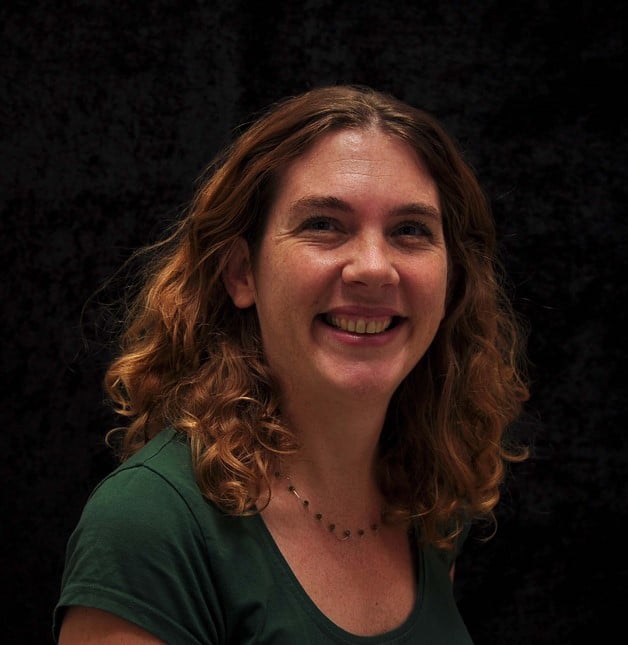
Understanding the relation between (sensory) stimuli and the activity of neurons (i.e., ‘the neural code’) lies at the heart of understanding the computational properties of the brain. However, quantifying the information between a stimulus and a spike train has proven to be challenging due to the limited life span of a cell in an in vitro setup. In 2017, in this workshop, I presented a new in vitro method to measure how much information a single neuron transfers from the input it receives to its output spike train. This method has the advantage that it is fast (~10 minutes) compared with traditional methods. This decrease in recording time is obtained by generating an input by an artificial neural network that responds to a randomly appearing and disappearing ‘sensory stimulus’: the hidden state. The low entropy of this hidden state allows for a fast estimate of transferred information. Using this method, we have now recorded over 850 trials in almost 300 inhibitory and excitatory neurons of the barrel cortex, using different pharmacological modulations (including dopamine, acetylcholine, and serotonin receptor agonists). Here, I presented the first conclusions of this large database of recordings and showed how this method can be extended to dynamic clamp and the effects this has on modeled neurons.
"Embedding Optimization Reveals Long-Lasting History Dependence in Neural Spiking Activity" by Lucas Rudelt

Information processing can leave distinct footprints on the statistics of neural spiking. For example, efficient coding minimizes statistical dependencies on spiking history, while temporal integration of information may require the maintenance of information over various timescales. To investigate these footprints, I presented an approach that quantifies history dependence within the spiking of a single neuron, using mutual information between the entire past and current spiking. Applying this approach to extracellular spike recordings, we found that both the strength and the timescale of history dependence showed striking differences between different neural systems. In conjunction with recent highly parallel spike recording techniques, this approach could yield valuable insights into how information processing is organized in the brain.
30 March 2022
Entropy 2022 Best Paper Award—Winners Announced
We are pleased to announce the winners of the 2022 Best Paper Award, which was sponsored by MDPI and Entropy (ISSN: 1099-4300). Each winner (corresponding author) will receive CHF 500 and the opportunity to publish a paper free of charge in Entropy in 2022.
The winners, comprising one review article and four research articles, are:
Review article:
- “Thermodynamics in Ecology—An Introductory Review”
by Søren Nors Nielsen, Felix Müller, Joao Carlos Marques, Simone Bastianoni and Sven Erik Jørgensen
Entropy 2020, 22(8), 820; https://doi.org/10.3390/e22080820
Research articles:
- “The Role of Entropy in the Development of Economics”
by Aleksander Jakimowicz
Entropy 2020, 22(4), 452; https://doi.org/10.3390/e22040452
- “Large Deviations for Continuous Time Random Walks”
by Wanli Wang, Eli Barkai and Stanislav Burov
Entropy 2020, 22(6), 697; https://doi.org/10.3390/e22060697
- “Thermodynamics at Very Long Time and Space Scales”
by Bjarne Andresen and Christopher Essex
Entropy 2020, 22(10), 1090; https://doi.org/10.3390/e22101090
- “Geometric Optimisation of Quantum Thermodynamic Processes”
by Paolo Abiuso, Harry J. D. Miller, Martí Perarnau-Llobet and Matteo Scandi
Entropy 2020, 22(10), 1076; https://doi.org/10.3390/e22101076
We congratulate the winners on their accomplishments, and we would also like to take this opportunity to thank the research groups of the above papers for their contributions to Entropy, as well as the Award Committee for their efforts in the evaluation process.
For more information about the Entropy awards, please visit the following link: https://www.mdpi.com/journal/entropy/awards.
9 March 2022
Entropy | Special Issue Mentor Program
We are pleased to announce the launch of a new initiative, the Special Issue Mentor Program.
This program intends to provide an opportunity for early-career scientists to enhance their editing, networking, and organizational skills and to work closely with our journal to gain more editorial experience.
Early-career scientists are being asked to propose ideas for new Entropy Special Issues. Early-career scientists would act as Guest Editors under the mentorship of an experienced scientist. This mentor could be a member of the Editorial Board of Entropy, or from other well-established research institutes or laboratories.
Early career scientists would have the following responsibilities:
- Providing a CV, including a list of publications;
- Proposing a Special Issue title and a short introduction;
- Writing a brief promotion plan for the Special Issue;
- Writing an editorial for the online Special Issue;
- Reviewing and making decisions for submissions under the mentorship of our Editorial Board Members.
Mentor’s Responsibilities:
- Conducting a final check before the Special Issue is published online;
- Co-editing the Special Issue with younger scholars and performing quality control of the publications in the SI;
- Providing suggestions to younger scholars if they have doubts or concerns regarding submissions;
- Organizing video calls with young scholars and the office regularly to discuss problems and improvement suggestions for the Special Issue.
Certificates and Awards:
When the Special Issue is closed, the Editorial Office will provide official certificates for all the mentors. Younger scholars will be prioritized as candidates for Entropy Young Investigator Awards in future editions.
If you are interested in this opportunity, please send your Special Issue proposal to the Entropy Editorial Office (entropy@mdpi.com), and we will discuss the process (i.e., mentor collaboration, Special Issue topic feasibility analysis, etc.) in further detail.
In addition to the new Special Issue Mentor Program, Entropy continues to welcome all Special Issue proposals based on hot research topics as usual.
Entropy Editorial Office
2 March 2022
Entropy 2021 Outstanding Reviewer Award—Winners Announced
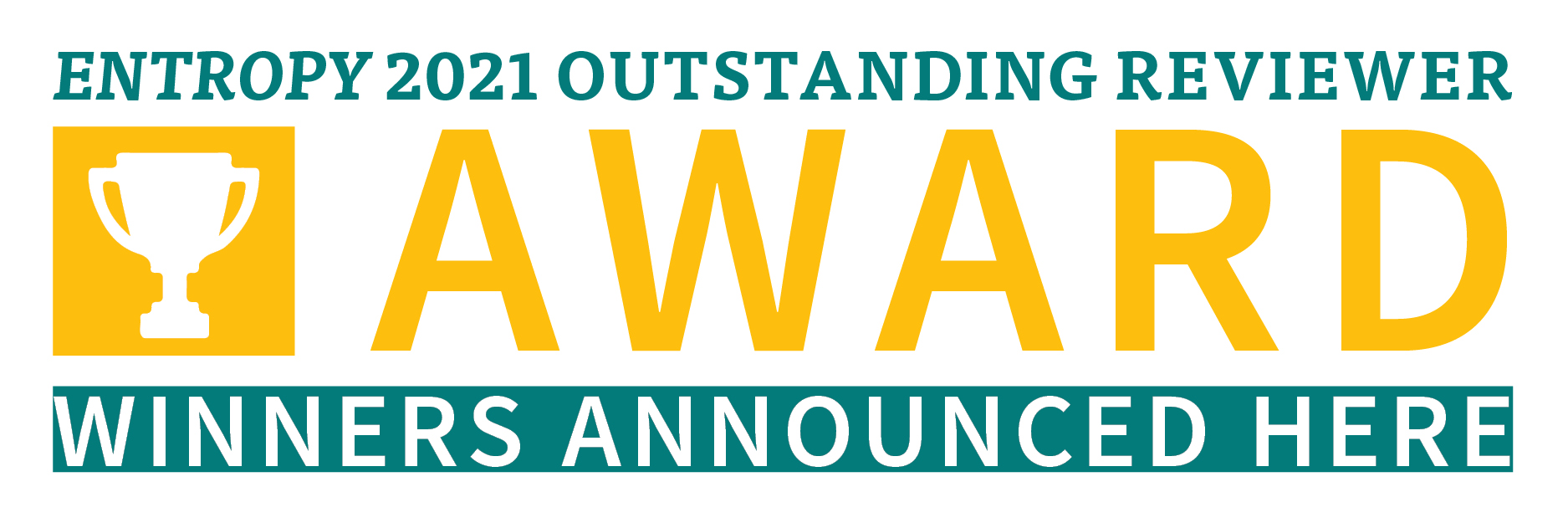
We are pleased to announce the winners of the 2021 Outstanding Reviewer Awards, sponsored by MDPI and Entropy (ISSN: 1099-4300). The awards have been granted to five outstanding scholars in recognition of their excellent contributions to their reviewer process. These scholars have been awarded a prize of CHF 500 as well as a 50% discount towards the publication fee of one paper in 2022.
The award winners are:
Name: Jim W. Kay
Affiliation: School of Mathematics and Statistics, University of Glasgow, Glasgow G12 8QQ, UK
Name: Christophe Chesneau
Affiliation: Department of Mathematics, University of Caen, 14000 Caen, France
Name: Esteban Tlelo-Cuautle
Affiliation: Instituto Nacional de Astrofísica, Óptica y Electrónica (INAOE), Puebla 72840, México
Name: Dr. Dennis Dieks
Affiliation: Freudenthal Instituut History and Philosophy of Science, Utrecht University, 3584 CC Utrecht, Netherlands
Name: Claudio Cremaschini
Affiliation: Research Center for Theoretical Physics and Astrophysics, Institute of Physics, Silesian University in Opava, Bezrucovo nám.13, CZ-74601 Opava, Czech Republic
The selection process was incredibly difficult due to the high number of exceptional candidates. We appreciate every reviewer’s work in facilitating the review process and controlling the quality of manuscripts.
For more information about the Entropy awards, please see the following link: https://www.mdpi.com/journal/entropy/awards.
22 November 2021
722 MDPI Editorial Board Members Receiving "2021 Highly Cited Researchers" Distinction
It is our great honor to congratulate the Editorial Board Members and Editors in MDPI's journals who have been distinguished as 2021 Highly Cited Researchers by Clarivate, according to Web of Science data. We herewith express our gratitude for the immense impact the named researchers continue to make on scientific progress and on our journals' development.
Clarivate's annual list of Highly Cited ResearchersTM identifies the most highly cited scientists for the past decade. Their impactful papers are among the top 1 per cent in the citation distribution of one or more of 22 fields analyzed in the "Essential Science Indicators", distinguishing them as hugely influential among their peers.
| Abate, Antonio Abatzoglou, John T. Abbaszadeh, Mostafa Acharya, U. Rajendra Acharya, Viral V. Agarwal, Ravi P. Ahn, Myung-Ju Airoldi, Laura Ali, Imran Allakhverdiev, Suleyman I. Aluko, Rotimi E. Anasori, Babak Andersson, Dan I. Andes, David Anker, Stefan D. Apergis, Nicholas Ariga, Katsuhiko Arqub, Omar Abu Aschner, Michael Assaraf, Yehuda G. Astruc, Didier Atala, Anthony Atanasov, Atanas G. Atangana, Abdon Bahram, Mohammad Bakris, George L. Balandin, Alexander A. Baleanu, Dumitru Balsamo, Gianpaolo Bando, Yoshio Banks, William A. Bansal-Travers, Maansi Barba, Francisco J. Barros, Lillian Basit, Abdul W. Baskonus, Haci Mehmet Bassetti, Matteo Battino, Maurizio Bell, Jordana T. Bellomo, Nicola Benediktsson, Jon Atli Benelli, Giovanni Benjakul, Soottawat Bhatnagar, Amit Biddle, Stuart J. H. Biondi, Antonio Biondi-Zoccai, Giuseppe Bjarnsholt, Thomas Blaabjerg, Frede Blaschke, Thomas Blay, Jean-Yves Blumwald, Eduardo Blunt, John W. Boffetta, Paolo Bogers, Marcel Bonomo, Robert A. Bowman, David M.J.S. Boyer, Cyrille Brestic, Marian Brevik, Eric C. Buhalis, Dimitrios Burdick, Jason A. Byrd, John C. Cabeza, Luisa F. Cai, Xingjuan Cai, Jianchao Calhoun, Vince D. Calin, George Cao, Jinde Cao, Guozhong Carvalho, Andre F. Castellanos-Gomez, Andres Cerqueira, Miguel Ângelo Parente Ribeiro Chang, Jo-Shu Chang, Chih-Hao Chastin, Sebastien Chau, Kwok-wing Chemat, Farid Chen, Xiaobo Chen, YangQuan Chen, Jianmin Chen, Chaoji Chen, Min Chen, Qi Chen, Jun Chen, Xi Chen, Peng Chen, Yulin Chen, Bo Chen, Chen Chen, Zhi-Gang Chen, Wei-Hsin Chen, Gang Chen, Yongsheng Chen, Xiang Chen, Yimin Chen, Runsheng Chen, Lidong Chen, Shaowei Chen, Qian Chen, Yu Chen, Shuangming Chiclana, Francisco Cho, Sun Young Choi, Wonyong Chowdhary, Anuradha Choyke, Peter L. Cichocki, Andrzej Corella, Dolores Corma, Avelino Cortes, Javier Cortes, Jorge Costanza, Robert Crommie, Michael F. Cui, Yi Cui, Haiying Cui, Qinghua Cummings, Kenneth Michael Dai, Shifeng Dai, Sheng Daiber, Andreas Davis, Steven J. Dawson, Ted M. de la Fuente-Nunez, Cesar Decker, Eric Andrew Dekel, Avishai Demaria, Marco Deng, Yong Deng, Xiangzheng DePinho, Ronald A. Desneux, Nicolas Dimopoulos, Meletios-Athanasios Ding, Aijun Dionysiou, Dionysios D. Dokmeci, Mehmet Remzi Dolgui, Alexandre Dong, Fan Dou, Shi Xue Dou, Letian Du, Qian Du, Bo Dube, Shanta Rishi Dufresne, Alain Dummer, Reinhard Dupont, Didier Edwards, David Elaissari, Abdelhamid Elhoseny, Mohamed Ellahi, Rahmat Ellis, Erle C. ElMasry, Gamal Esteller, Manel Estévez, Mario Fabbro, Doriano Facchetti, Antonio Fan, Zhanxi Fang, Chuanglin Fasano, Alessio Fečkan, Michal Felser, Claudia Feng, Liangzhu Fensholt, Rasmus Ferdinandy, Péter Fernandez-Lafuente, Roberto Ferreira, Isabel C. F. R. Filippi, Massimo Fisher, Helen Fortino, Giancarlo Fosso Wamba, Samuel Franceschi, Claudio Fujita, Hamido Fujita, Masayuki Gai, Francesco Gaisford, Simon Galanakis, Charis M. Galluzzi, Lorenzo Galvano, Fabio Gan, Ren-You Gan, Lihua Gandomi, Amir H. Gao, Bin Gao, Feng Gao, Minrui Gao, Huijun Gao, Wei Gao, Huile Garbe, Claus Garcia, Hermenegildo Gasbarrini, Antonio Gasco, Laura Gautret, Philippe Geng, Yong Gerdts, Gunnar Geschwind, Daniel H. Ghadimi, Noradin Ghaffari, Roozbeh Ghamisi, Pedram Giampieri, Francesca Glick, Bernard R. Gnant, Michael Goel, Ajay Gogotsi, Yury Goldewijk, Kees Klein Gong, Jinlong Gong, Yongji Govindan, Kannan Granato, Daniel Grancini, Giulia Green, Douglas R. Grosso, Giuseppe Gu, Ke Guan, Cao Guastella, Adam J. Guerrero, Josep M. Gui, Guan Guizani, Mohsen Guo, Zaiping Gupta, Rangan Gutzmer, Ralf Haase, Dagmar Habibi-Yangjeh, Aziz Hagemann, Stefan Hagger, Martin Hamblin, Michael R. Hammoudeh, Shawkat Han, Heesup Hanes, Justin Harrison, Roy M. Hartung, Hans-Peter Hasanuzzaman, Mirza He, Jr-Hau He, Hongwen He, Jiaqing He, Debiao Henseler, Jörg Herrera, Francisco Herrera-Viedma, Enrique Hetz, Claudio Ho Kim, Jung Holmes, Elaine Hossain, Ekram Hsueh, Po-Ren Hu, Xiaosong Hu, Wenbin Huang, Jianping Huang, Hongwei Huang, Yu Huang, Jianying Huang, Peng Huang, Baibiao Huang, Shaoming Hubacek, Klaus |
Iqbal, Hafiz M. N. |
Saad, Fred |
The full list of 2021 Highly Cited Researchers can be accessed at the following webpage in the Web of ScienceTM https://recognition.webofscience.com/awards/highly-cited/2021/.
--- Highly Cited Researchers (HCR) is a Clarivate product.
18 November 2021
Entropy | Best Paper Award for the 1st International Conference on Novelties in Intelligent Digital Systems (NIDS2021)—Winner Announced
We are pleased to announce that the Best Paper Award, sponsored by Entropy (ISSN 1099-4300; website: https://www.mdpi.com/journal/entropy), for the 1st International Conference on Novelties in Intelligent Digital Systems (NIDS2021) was granted to the work by Anton Anikin, Oleg Sychev, and Mikhail Denisov (Volgograd State Technical University, Volgograd, Russia). Congratulations!
Title: “Ontology Reasoning for Explanatory Feedback Generation to Teach how Algorithms Work”
Summary: Intelligent tutoring systems are becoming increasingly common in assisting students but are often aimed at isolated subject domain tasks without creating a scaffolding system from lower- to higher-level cognitive skills, with low-level skills often neglected. We designed and developed an intelligent tutoring system, CompPrehension, aimed at the comprehension level of Bloom's taxonomy. The system features plug-in-based architecture, adding new subject domains and learning strategies. It uses formal models and software reasoners to solve the problems, judge the answers, and generate explanatory feedback for the broken domain rules and follow-up questions to stimulate the students' thinking. We developed two subject domain models: an Expressions domain for teaching the expression order of evaluation and a Control Flow Statements domain for code-tracing tasks. Developing algorithms using control structures and understanding their building blocks are essential skills in mastering programming, while ontologies and software reasoning offers a promising method for developing intelligent tutoring systems in well-defined domains (such as programming languages and algorithms). It can also be used for many kinds of teaching tasks. In this work, we used a formal model consisting of production rules for Apache Jena reasoner as a basis for developing a constraint-based tutor for introductory programming domain. The tutor can determine fault reasons for any incorrect answer that a student can enter. The problem the student should solve is building an execution trace for the given algorithm. The problem is a closed-ended question that requires arranging given actions in the (unique) correct order; some actions can be used several times, while others can be omitted. Using formal reasoning to check domain constraints allowed us to provide explanatory feedback for all kinds of errors subject-domain tasks that students can make.
The chief novelty of our research is that the developed models are capable of automatic problem classification, determining the knowledge required to solve them and, thus, the pedagogical conditions to use the problem without human participation. More than 100 undergraduate first-year Computer Science students took part in evaluating the system. The results in both subject domains show medium but statistically significant learning gains after using the system for a few days; students with worse previous knowledge gained more. In the Control Flow Statements domain, the number of completed questions correlates positively with the post-test grades and learning gains. The students' survey showed a slightly positive perception of the system.
17 November 2021
Entropy | Best Presentation Award of the XLVII Congress of Polish Physicists 2021—Winner Announced
We are pleased to announce that the Best Presentation Award of the XLVII Congress of Polish Physicists 2021, sponsored by Entropy (ISSN: 1099-4300), has been granted to Dr. David Ziemkiewicz from Bydgoszcz University of Science and Technology. Congratulations!
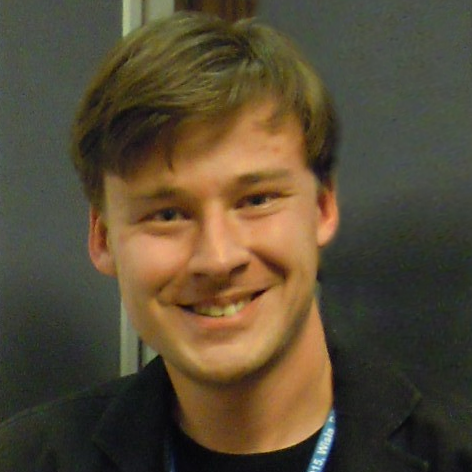
Title: “Chaotic Dynamics of the Clock Mechanism”
For centuries, the mechanical pendulum clock has been one of the primary means of measuring time. Its central part is a damped pendulum, kept in motion by the exciting force, the nature of which depends on the type of clock mechanism. The mechanism supplies energy to the pendulum and is simultaneously regulated by it; it is a special case of a self-excited oscillator, and the current feedback makes the dynamics of the system non-linear and often chaotic, with a fractal attractor. In the history of clock development, most attempts to improve the precision of timing have been based on reducing the influence of non-linear effects by minimizing the interaction between the pendulum and the mechanism—so that it is a good approximation of a mathematical free pendulum. A completely different approach was proposed in 1722 by John Harrison. In its construction, the pendulum is in constant contact with the mechanism and vibrates with a very large amplitude. Thanks to modern numerical methods, it is possible to perform a detailed analysis of this type of system (D. Ziemkiewicz, Phys. Rev. E 2021, 103, 062208). It can be shown that under appropriate conditions (correctly identified by Harrison), one can obtain an error of indications at the level of a few seconds per year, which is an unattainable value for other types of mechanical clocks.
16 November 2021
Topical Advisory Panel Established to Support Editorial Board
Academic editors play a crucial role in leading our journals and ensuring that each article undergoes a robust and timely peer-review. With the launch of Topics this year and addition of Topic Editors to our family of academic editors, we decided it would be a good time to restructure our academic boards, thus providing more clarity and support for each role. MDPI is pleased to announce the launch of a new position—Topical Advisory Panel Member, that will replace the previous position of Topics Board Member. The Topical Advisory Panel will be comprised of early career researchers eager to gain experience in editorial work.
The main responsibility of the new members of the Topical Advisory Panel is to regularly provide support to Guest Editors, Topic Editors, and Section Board Members. The responsibilities of the Topical Advisory Panel are available here: https://www.mdpi.com/editors.
Each year, the members’ performances are evaluated, and outstanding members are promoted to the Editorial Board by the Editor-in-Chief.
To qualify as a Topical Advisory Panel Member, applicants must:
- Have expertise and experience in the field related to the journal;
- Have received a Ph.D. in the last 10 years, approximately;
- Have at least 6-8 published papers in the last 5 years as first author or corresponding author;
- Currently hold an independent research position in academia or a government institute.
If you are interested in this role, please contact the editorial office by email.
We look forward to hearing from you soon.
15 November 2021
Entropy Young Scientist Award for CCS2021-Satellite on Econophysics 2021—Winner Announced
We are pleased to announce that the Young Scientist Award, sponsored by Entropy for CCS2021-Satellite on Econophysics 2021, was granted to Dr. Jeremy D. Turiel, from University College London. Congratulations!
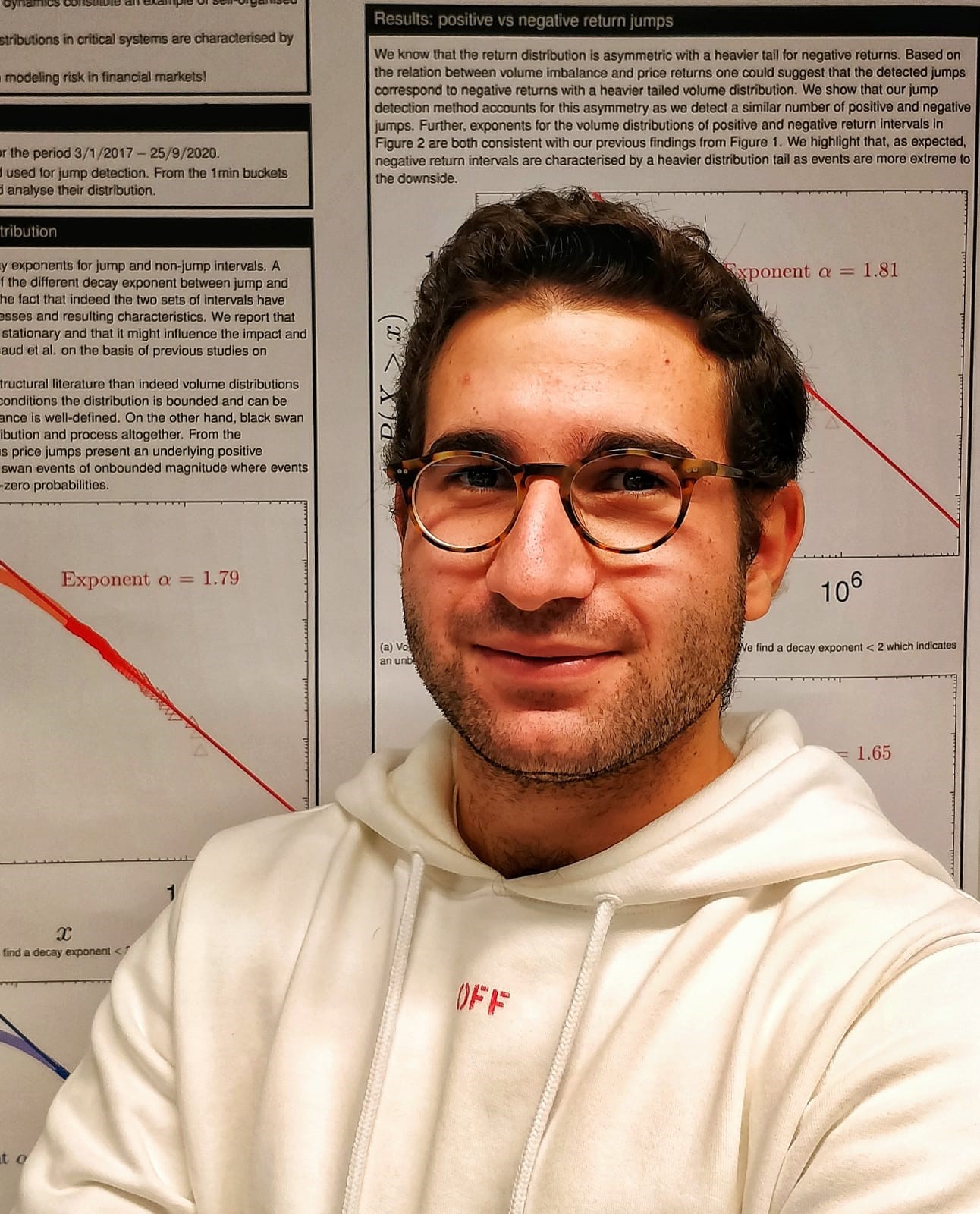
“Self-Organised Criticality in High-Frequency Finance: The Case of Flash Crashes”
With the rise of computing and artificial intelligence, advanced modeling and forecasting has been applied to High-Frequency markets. A crucial element of solid production modeling though relies on the investigation of data distributions and how they relate to modeling assumptions. In this work, we investigate volume distributions during anomalous price events and show how their tail exponents <2 indicate a diverging second moment of the distribution, i.e., variance. We then tie the dynamics of flash crashes to self-organised criticality. The findings are of great relevance for regulators and market makers as they advocate for rigorous heavy-tailed modeling of risks and changes in regulation to avoid simultaneous liquidity withdrawals and hard risk constraints which lead to synchronisation and critical events.
25 October 2021
Open Access Week 2021 | It Matters How We Open Knowledge: Building Structural Equity, 25–31 October

Founded in 1996, MDPI was one of the first fully Open Access publisher. Over 25 years MDPI has grown to become the largest Open Access publisher globally, publishing over 160,000 articles across more than 350 journals in 2020. At the core, MDPI was founded in response to a pressing need of fast publication and inclusion. The scholar was set at the centre of the publication process for the first time. Acting as a service provider, rather than a product provider, MDPI exists to help scientists achive their objective to disseminate research results. At MDPI, we believe scientists deserve a better service from the publishing world.
The International Open Access Week (Open Access Week), founded by the SPARC (the Scholarly Publishing and Academic Resources Coalition) Alliance and student partners in 2008, has been successfully running for 13 years. As an advocate and pioneer of open access publishing, MDPI actively responds to the call of International Open Access Week. This year’s theme of “It Matters How We Open Knowledge: Building Structural Equity” highlights the Recommendation’s call for equitable participation from all authors and readers.
For the last 25 years, MDPI has been committed to disseminating open research. Here is a video showing MDPI’s Commitment to Equity, Inclusion and Diversity for More than 25 Years.
International Open Access Week is an important opportunity to catalyze new conversations, create connections across and between communities that can facilitate this co-design, and advance progress in the building of more equitable foundations for opening knowledge—discussions and actions that need to be continued, year in and year out. MDPI has always aimed to provide professional and efficient publishing services to scholars around the world.
Our mission is to make scientific research accessible to everyone; this year, we interview and hold discussions with open science ambassadors on how to build an equal and inclusive environment for open science. Academic editors help us collaborate with more institutions to advocate for open access ideas.
Besides this, our scientific community is a key driver of our success and MDPI’s remarkable growth. Despite the pandemic, we have prepared online conferences and workshops to gather scholars from different communities.
The Basel Sustainable Publishing online forum provides an equal opportunity for stakeholders and researchers from multi-cultural environments to exchange ideas and eliminate barriers to participation.
Conference date: 25 October 2021, online
Conference website: https://bspf2021.sciforum.net/
Main topics: MDPI discusses the current dilemma of open access science from various perspectives such as governments, libraries, and publishers, and related measures on how to change the status quo of discrimination from a global perspective.
We aim to support equality, inclusion, diversity, and accessibility in scholarly communications. We collaborate with universities and key laboratories and have scholarly communications with researchers, teachers, and students on open access workshops.

- 25 October 2021
Energies journal and Institute of Mechanics, Chinese Academy of Sciences
- 28 October 2021
Machines journal and State Key Laboratory of Traction Power, Southwest Jiaotong University
- 29 October 2021
Processes journal and Beijing Institute of Technology
- 29 October 2021
Coatings journal and Wuhan University of Technology
MDPI is committed to providing open access and high-quality publishing services for scholars and promoting rapid dissemination of academic achievements. We hope to promote the practices and policies of open access publishing and diversify the dissemination of academic achievements.
5 October 2021
Nobel Prize in Physics 2021 Jointly Awarded to Three Scientists for Shedding Light on Anthropogenic Climate Change and Other Complex Phenomena
The Nobel Prize in Physics 2021 was awarded to Syukuro Manabe, Klaus Hasselmann and Giorgio Parisi. One half of the prize was awarded jointly to Professor Manabe and Professor Hasselmann for the physical modelling of Earth’s climate, quantifying variability and reliably predicting global warming, according to the Nobel Prize committee, while the other half of the prize went to Professor Parisi for the discovery of the interplay of disorder and fluctuations in physical systems from atomic to planetary scales. The three physicists contributed to the understanding of chaotic and apparently random phenomena.
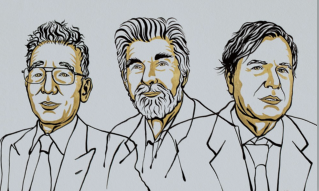
Manabe, Hasselmann, Parisi (from left to right) © Nobel Media
"The discoveries being recognised this year demonstrate that our knowledge about the climate rests on a solid scientific foundation, based on a rigorous analysis of observations. This year’s Laureates have all contributed to us gaining deeper insight into the properties and evolution of complex physical systems", said Thors Hans Hansson, chair of the Nobel Committee for Physics.
Manabe and Hasselman laid the foundations for the climate models used by scientists today. They were among the first to distinguish between climate phenomena on the one hand and random occurrences of the weather on the other hand, and to assess the impact of human activities on the climate from the beginning of the 20th century.
Parisi's novel studies involved identifying hidden patterns in disordered complex materials called spin glasses, a special type of metal alloy in which iron atoms, for example, are randomly mixed into a grid of copper atoms. He constructed a mathematical description of the apparently random behavior of spins. His findings not only impacted physics, but also mathematics, biology, neuroscience and machine learning, because these felds include problems which are related to so-called geometrical frustration.
We send our congratulations to the Nobel Laureates, especially to Giorgio Parisi, who was a one-time author in Entropy (with Juan J. Ruiz-Lorenzo et al.): “Spin Glasses in a Field Show a Phase Transition Varying the Distance among Real Replicas (and How to Exploit It to Find the Critical Line in a Field)”.
23 September 2021
2020 MDPI Top Reviewer Award—Winners Announced
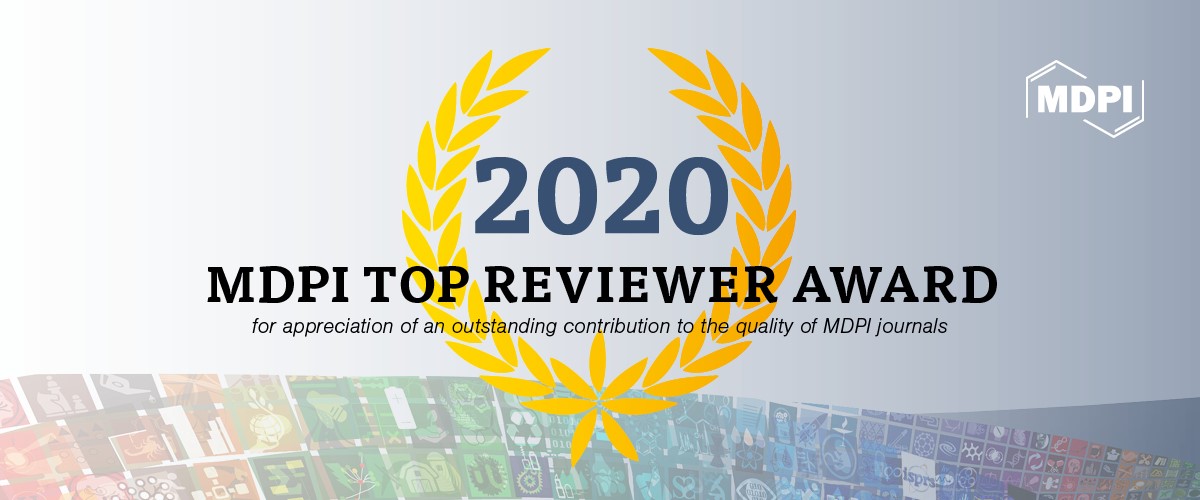
Rigorous peer-review is the cornerstone of high-quality academic publishing. Over 369,916 scholars served as reviewers for MDPI journals in 2020. We are extremely appreciative of all those who made a contribution to the editorial process in this capacity. At the beginning of every year, journal editorial offices publish a list of all reviewers’ names to express our gratitude. In addition, this year, the MDPI Top Reviewer Award was announced, to recognize the very best reviewers for their expertise and dedication, and their high-quality, and timely review reports. We are pleased to announce the following winners of the 2020 MDPI Top Reviewer Award:
- Adriana Burlea-Schiopoiu;
- Alban Kuriqi;
- Álvaro González-Vila;
- Alessandro Alaimo;
- Alexey Beskopylny;
- Alexander Yu Churyumov;
- Alberto Fernández-Isabel;
- Andrea Mastinu;
- Antonios N. Papadopoulos;
- Anton Rassõlkin;
- Antonio Humberto Hamad Minervino;
- Arkadiusz Matwijczuk;
- Artur Słomka;
- Baojie He;
- Bartłomiej Potaniec;
- Bojan Đurin;
- Camilo Arturo Rodriguez Diaz;
- Carmelo Maria Musarella;
- Chiachung Chen;
- Chiman Kwan;
- Cristian Busu;
- Danil Pimenov;
- Dan-Cristian Dabija;
- Delfín Ortega-Sánchez;
- Demetrio Antonio Zema;
- Denis Butusov;
- Elena Lucchi;
- Gaurab Dutta;
- Livia Anastasiu;
- M. R. Safaei.
For more information about how to become a reviewer of MDPI journals, please see: www.mdpi.com/reviewers.
22 September 2021
MDPI Joins SDG Publishers Compact

UN's 17 Sustainable Development Goals (SDGs) are the blueprint to achieve a better and more sustainable future for all. In 2020 the SDG Publishers Compact was launched, aimed to inspire publishers and accelerate progress to achieve the 17 goals by 2030. Members of the programme are committed to support the publication of materials that will promote and inspire actions towards SDGs.
MDPI is an eager advocate of SDGs and has already been supporting the programme by creating Special Issues and publishing a series of books on SDGs prior to joining the Compact in 2021. MDPI's Sustainability Foundation initiated the World Sustainability Awards in 2016. We fully support UN's goals to promote sustainable actions that make the world a better place for all and, as part of its commitment, we will focus our actions on SDG10: Reduced Inequalities whilst promoting all 17 SDGs. For more details, please visit the programme’s website: https://www.un.org/sustainabledevelopment/sdg-publishers-compact/.
Joining this initiative was a unanimous decision. MDPI has in its core values the dissemination of science for all, breaking the wall between research access and under-represented members of the scientific community and the general population. To support this initiative further and continue to support under-represented scientists, MDPI will take a series of actions that will be announced once ready.
The first action MDPI takes is to nominate Dr. Liliane Auwerter as the coordinator of the programme. Dr. Auwerter studied Environmental Process Technology (UTFPR, Brazil), obtained her MSc degree in Water and Environmental Engineering (University of Surrey, UK) and in 2020 completed her PhD in self-healing low-friction materials for water transport (Imperial College London, UK), always focusing on diverse scientific projects that would potentially bring sustainability to industrial processes. As a student in Brazil, she engaged in volunteering activities focused on environmental education and took part in the Millennial Development Goals meetings held at the university.
For more information, please contact:
Dr. Liliane Auwerter
Scientific Officer
liliane.auwerter@mdpi.com
22 September 2021
Welcoming New Editorial Board Members of Entropy
We are pleased to announce that the following 17 recognized scholars have recently joined the Editorial Board of Entropy (ISSN: 1099-4300):
|
Prof. Dr. Chang-Pu Sun Dr. Stavros C. Farantos Dr. Shu-Chuan Chu Dr. Danny JJ Wang Prof. Dr. Janos Kertesz Dr. Nicolas B. Garnier Prof. Dr. Eduard Jorswieck Dr. Daniel Polani Dr. Bilal M. Ayyub |
Prof. Dr. Cataldo Godano Dr. Yonghao Zhao Dr. Bilal M. Ayyub Prof. Dr. Cataldo Godano Prof. Dr. Wray Buntine Dr. David Geoffrey Green Prof. Dr. Nigel Wilding Prof. Dr. Adam Gadomski
|
Further details about the Editorial Board can be found at: https://www.mdpi.com/journal/entropy/editors.
17 September 2021
Entropy | Video Exhibition—Open for Submission
Entropy has launched a new project—Video Exhibition—for authors that have papers published in Entropy. Authors can apply to exhibit a video abstract to briefly introduce their published research. That will help the paper make a bigger impact, potentially attract more citations, and further establish authors’ reputation.
Website Link: https://www.mdpi.com/journal/entropy/exhibition.
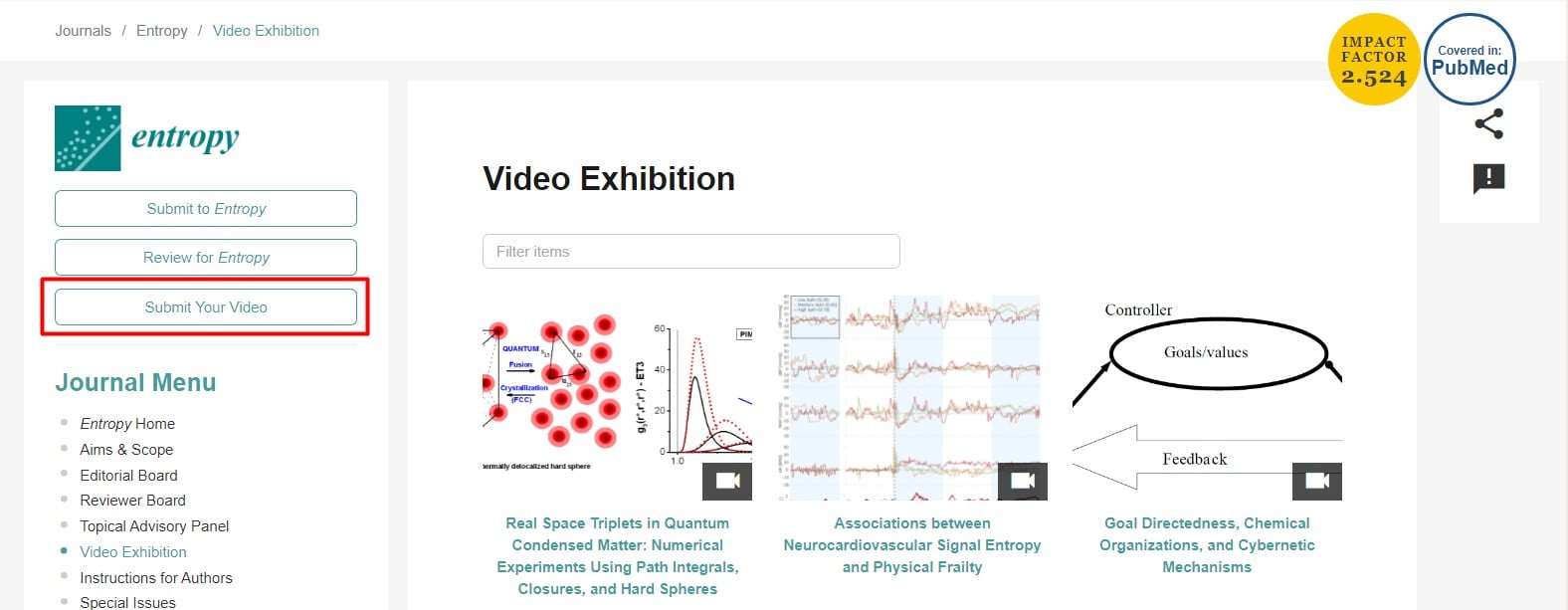
To submit the video abstract, please click “Submit Your Video” on the website. Below is an introduction of the Video Abstract (VA):
A video abstract is an increasingly popular way of getting others to engage with published research, increasing the visibility of articles. It can be 2–5 minutes long, summing up what has been accomplished and documented in your paper and, crucially, why it is important for the community. One can use video abstracts to illustrate concepts explained in the article, to introduce viewers to the equipment and tools that have been used in the research, and engage with the audience in a more informal manner. It could be a video recorded by using the "record slide" function in PowerPoint, and then saved as one of the following file types: MPEG-4 Video (*.mp4), WMV,AVI,MOV,3GP,or MPEG, depending on which is the most convenient for you.
Below are some basic technical guidelines and requirements for the video abstract:
- Maximum size: 200 MB;
- Title (it will be displayed to the public);
- Cover image (jgeg, png): minimum size: 250px*166px;
- Copyright holder: Please state who owns the copyright of your items.
If you are interested in the exhibition, please do not hesitate to share your video abstract with us. Alternatively, you could send the video abstract to entropy-marketing@mdpi.com and we will put it online.
3 August 2021
Announcement on Japanese Consumption Tax (JCT)
This serves to announce to our valued authors based in Japan that value-added tax, or consumption tax will now be imposed on article processing fees and other service fees for all papers submitted, or resubmitted (assigned new paper IDs), effective from 15 August 2021. The change is in accordance with the Japanese "Act for Partial Revision of the Income Tax Act and Other Acts" (Act No. 9 of 2015), which includes a revision of consumption taxation on cross-border supplies of services such as digital content distribution.
For additional information from the National Tax Agency please see here ("Cross-border supplies of electronic services").
Contact: Setsuko Nishihara, MDPI Tokyo
14 July 2021
Entropy | Best Poster Award at the 11th Polish Symposium on Physics in Economy and Social Sciences (FENS2021)
We are pleased to announce the winner of the “Best Poster Award” sponsored by Entropy for the 11th Polish Symposium on Physics in Economy and Social Sciences (FENS2021) held on 1–3 July 2021.
- “Multibranch Multifractality and the Phase Transitions in the Trading Activity”
by Jaroslaw Klamut, Ryszard Kutner, Tomasz Gubiec and Zbigniew R. Struzik
Empirical time series of inter-event or waiting times were investigated using a modified multifractal detrended fluctuation analysis operating on fluctuations of mean detrended dynamics. At the core of the extended multifractal analysis was the non-monotonic behavior of the generalized Hurst exponent h(q)—the fundamental exponent in the study of multifractals. The consequence of this behavior is the non-monotonic behavior of the coarse Hölder exponent α(q) leading to the multi-branchedness of the spectrum of dimensions. The Legendre–Fenchel transform was used instead of the routinely used canonical Legendre (single-branched) contact transform. The thermodynamic consequences of the multi-branched multifractality were revealed. The results were presented for the high-frequency data of the Polish stock market (Warsaw Stock Exchange) for intertrade times for KGHM—one of the most liquid stocks contained therein.
7 July 2021
Entropy Receives Updated Impact Factor of 2.524
We are pleased to report that the 2020 Impact Factor of Entropy increased to 2.524 in the recent release of the Journal Citation Reports®, representing the 6th consecutive year of continuous growth. Entropy now ranks 37/85 (Q2) in the “Physics, Multidisciplinary” category.
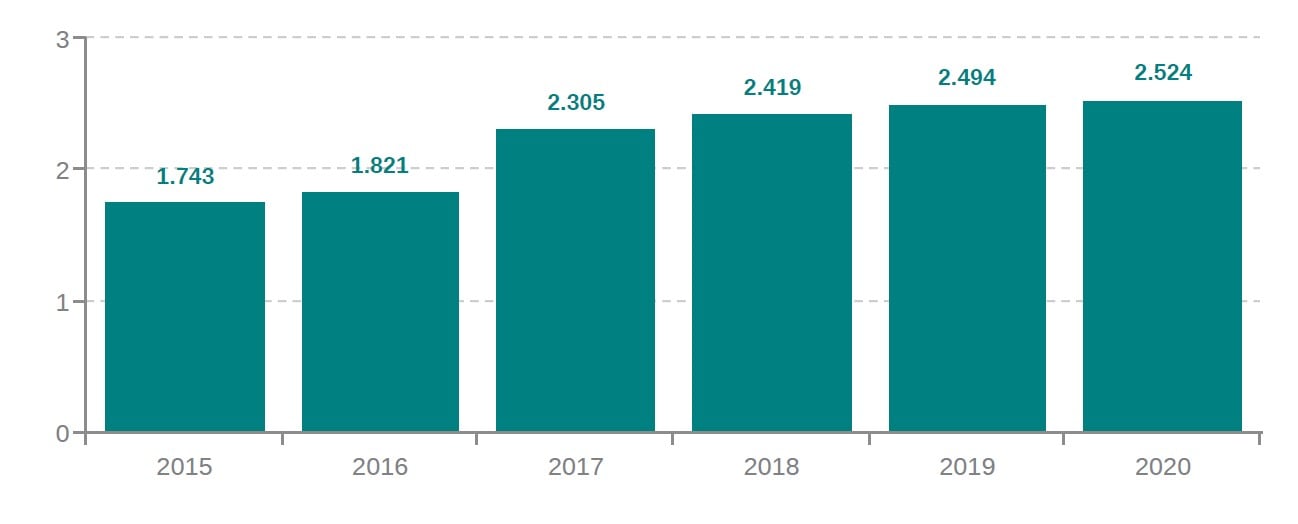
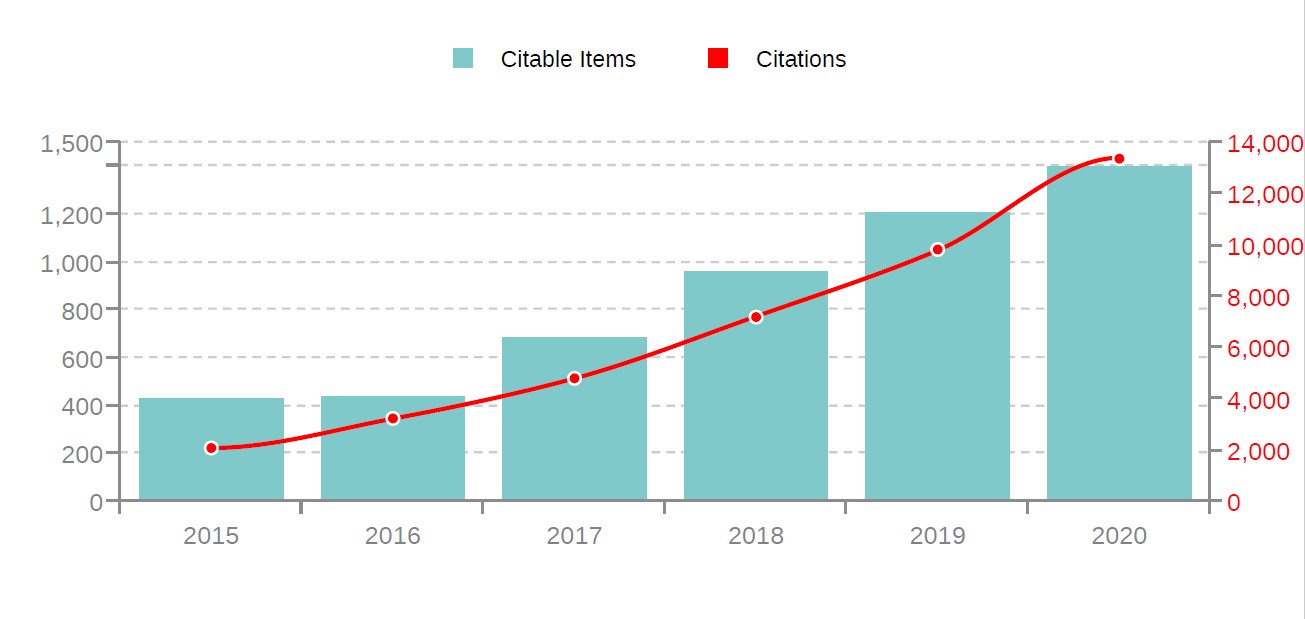
Source: Data according to Journal Citation Reports®, 2020 release, a Clarivate Analytics product.
30 June 2021
2020 Impact Factors - Released
The 2020 citation metrics have been officially released in the Journal Citation Reports (JCR)!
We are pleased to announce that 85 MDPI journals are included, of which:
- 10 journals received their first impact factor
- 96% of journals increased their impact factor from 2019
- 32 journals (38%) ranked among the top 25% of journals, in at least one category
| Journal | Impact Factor | Rank | Category |
| Cancers | 6.639 | Q1 | • Oncology |
| Cells | 6.600 | Q2 | • Cell Biology |
| Pharmaceutics | 6.321 | Q1 | • Pharmacology & Pharmacy |
| Antioxidants | 6.313 | Q1 | • Food Science & Technology |
| • Biochemistry & Molecular Biology | |||
| • Chemistry, Medicinal | |||
| Biomedicines | 6.081 | Q1 | • Medicine, Research & Experimental |
| • Pharmacology & Pharmacy | |||
| • Biochemistry & Molecular Biology | |||
| International Journal of Molecular Sciences | 5.924 | Q1 | • Biochemistry & Molecular Biology |
| Q2 | • Chemistry, Multidisciplinary | ||
| Pharmaceuticals | 5.863 | Q1 | • Pharmacology & Pharmacy |
| • Chemistry, Medicinal | |||
| Journal of Fungi | 5.816 | Q1 | • Mycology |
| • Microbiology | |||
| Nutrients | 5.719 | Q1 | • Nutrition & Dietetics |
| Biosensors | 5.519 | Q1 | • Chemistry, Analytical |
| • Instruments & Instrumentation | |||
| Q2 | • Nanoscience & Nanotechnology | ||
| Marine Drugs | 5.118 | Q1 | • Chemistry, Medicinal |
| • Pharmacology & Pharmacy | |||
| Biology | 5.079 | Q1 | • Biology |
| Nanomaterials | 5.076 | Q1 | • Physics, Applied |
| Q2 | • Chemistry, Multidisciplinary | ||
| • Materials Science, Multidisciplinary | |||
| • Nanoscience & Nanotechnology | |||
| Viruses | 5.048 | Q2 | • Virology |
| Journal of Personalized Medicine | 4.945 | Q1 | • Medicine, General & Internal |
| • Health Care Sciences & Services | |||
| Metabolites | 4.932 | Q2 | • Biochemistry & Molecular Biology |
| Biomolecules | 4.879 | Q2 | • Biochemistry & Molecular Biology |
| Remote Sensing | 4.848 | Q1 | • Geosciences, Multidisciplinary |
| Q2 | • Remote Sensing | ||
| • Imaging Science & Photographic Technology | |||
| • Environmental Sciences | |||
| Gels * | 4.702 | Q1 | • Polymer Science |
| Antibiotics | 4.639 | Q2 | • Infectious Diseases |
| • Pharmacology & Pharmacy | |||
| Toxins | 4.546 | Q1 | • Toxicology |
| • Food Science & Technology | |||
| Vaccines | 4.422 | Q2 | • Immunology |
| • Medicine, Research & Experimental | |||
| Molecules | 4.412 | Q2 | • Chemistry, Multidisciplinary |
| • Biochemistry & Molecular Biology | |||
| Foods | 4.350 | Q2 | • Food Science & Technology |
| Polymers | 4.329 | Q1 | • Polymer Science |
| Journal of Clinical Medicine | 4.242 | Q1 | • Medicine, General & Internal |
| Toxics | 4.146 | Q2 | • Toxicology |
| • Environmental Sciences | |||
| Catalysts | 4.146 | Q2 | • Chemistry, Physical |
| Microorganisms | 4.128 | Q2 | • Microbiology |
| Membranes | 4.106 | Q1 | • Polymer Science |
| Q2 | • Engineering, Chemical | ||
| • Materials Science, Multidisciplinary | |||
| • Chemistry, Physical | |||
| Genes | 4.096 | Q2 | • Genetics & Heredity |
| Fermentation * | 3.975 | Q2 | • Biotechnology & Applied Microbiology |
| Journal of Cardiovascular Development and Disease * | 3.948 | Q2 | • Cardiac & Cardiovascular Systems |
| Plants | 3.935 | Q1 | • Plant Sciences |
| Life | 3.817 | Q2 | • Biology |
| Diagnostics | 3.706 | Q2 | • Medicine, General & Internal |
| Current Oncology | 3.677 | Q3 | • Oncology |
| Materials | 3.623 | Q1 | • Metallurgy & Metallurgical Engineering |
| Q2 | • Materials Science, Multidisciplinary | ||
| • Chemistry, Physical | |||
| • Physics, Applied | |||
| • Physics, Condensed Matter | |||
| Sensors | 3.576 | Q1 | • Instruments & Instrumentation |
| Q2 | • Chemistry, Analytical | ||
| • Engineering, Electrical & Electronic | |||
| Pathogens | 3.492 | Q2 | • Microbiology |
| Agronomy | 3.417 | Q1 | • Agronomy |
| • Plant Sciences | |||
| Chemosensors | 3.398 | Q2 | • Instruments & Instrumentation |
| • Chemistry, Analytical | |||
| Q3 | • Electrochemistry | ||
| Land | 3.398 | Q2 | • Environmental Studies |
| Brain Sciences | 3.394 | Q3 | • Neurosciences |
| International Journal of Environmental Research and Public Health | 3.390 | Q1 | • Public, Environmental & Occupational Health (SSCI) |
| Q2 | • Public, Environmental & Occupational Health (SCIE) | ||
| • Environmental Sciences (SCIE) | |||
| Tomography | 3.358 | Q2 | • Radiology, Nuclear Medicine & Medical Imaging |
| Fractal and Fractional * | 3.313 | Q1 | • Mathematics, Interdisciplinary Applications |
| Sustainability | 3.251 | Q2 | • Environmental Sciences (SCIE) |
| • Environmental Studies (SSCI) | |||
| Q3 | • Green & Sustainable Science & Technology (SCIE) | ||
| • Green & Sustainable Science & Technology (SSCI) | |||
| Water | 3.103 | Q2 | • Water Resources |
| • Environmental Sciences | |||
| Journal of Theoretical and Applied Electronic Commerce Research | 3.049 | Q3 | • Business |
| Energies | 3.004 | Q3 | • Energy & Fuels |
| Agriculture | 2.925 | Q1 | • Agronomy |
| ISPRS International Journal of Geo-Information | 2.899 | Q2 | • Geography, Physical |
| • Computer Science, Information Systems | |||
| Q3 | • Remote Sensing | ||
| Micromachines | 2.891 | Q2 | • Instruments & Instrumentation |
| • Physics, Applied | |||
| Q3 | • Chemistry, Analytical | ||
| • Nanoscience & Nanotechnology | |||
| Coatings | 2.881 | Q2 | • Materials Science, Coatings & Films |
| • Physics, Applied | |||
| Q3 | • Materials Science, Multidisciplinary | ||
| Children | 2.863 | Q2 | • Pediatrics |
| Processes | 2.847 | Q3 | • Engineering, Chemical |
| Separations | 2.777 | Q3 | • Chemistry, Analytical |
| Insects | 2.769 | Q1 | • Entomology |
| Animals | 2.752 | Q1 | • Agriculture, Dairy & Animal Science |
| • Veterinary Sciences | |||
| Symmetry | 2.713 | Q2 | • Multidisciplinary Sciences |
| Atmosphere | 2.686 | Q3 | • Meteorology & Atmospheric Sciences |
| • Environmental Sciences | |||
| Applied Sciences | 2.679 | Q2 | • Engineering, Multidisciplinary |
| • Physics, Applied | |||
| Q3 | • Chemistry, Multidisciplinary | ||
| • Materials Science, Multidisciplinary | |||
| Photonics | 2.676 | Q2 | • Optics |
| Buildings * | 2.648 | Q2 | • Construction & Building Technology |
| • Engineering, Civil | |||
| Healthcare | 2.645 | Q2 | • Health Policy & Services (SSCI) |
| Q3 | • Health Care Sciences & Services (SCIE) | ||
| Minerals | 2.644 | Q2 | • Mining & Mineral Processing |
| • Mineralogy | |||
| • Geochemistry & Geophysics | |||
| Forests | 2.634 | Q1 | • Forestry |
| Crystals | 2.589 | Q2 | • Crystallography |
| Q3 | • Materials Science, Multidisciplinary | ||
| Entropy | 2.524 | Q2 | • Physics, Multidisciplinary |
| Diversity | 2.465 | Q2 | • Biodiversity Conservation |
| Q3 | • Ecology | ||
| Journal of Marine Science and Engineering | 2.458 | Q2 | • Oceanography |
| • Engineering, Marine | |||
| • Engineering, Ocean | |||
| Medicina | 2.430 | Q2 | • Medicine, General & Internal |
| Machines * | 2.428 | Q2 | • Engineering, Mechanical |
| Q3 | • Engineering, Electrical & Electronic | ||
| Electronics | 2.397 | Q3 | • Engineering, Electrical & Electronic |
| • Computer Science, Information Systems | |||
| • Physics, Applied | |||
| Fishes * | 2.385 | Q2 | • Fisheries |
| • Marine & Freshwater Biology | |||
| Metals | 2.351 | Q2 | • Metallurgy & Metallurgical Engineering |
| Q3 | • Materials Science, Multidisciplinary | ||
| Horticulturae * | 2.331 | Q1 | • Horticulture |
| Veterinary Sciences * | 2.304 | Q1 | • Veterinary Sciences |
| Universe | 2.278 | Q3 | • Physics, Particles & Fields |
| • Astronomy & Astrophysics | |||
| Mathematics | 2.258 | Q1 | • Mathematics |
| Magnetochemistry | 2.193 | Q3 | • Chemistry, Inorganic & Nuclear |
| • Chemistry, Physical | |||
| • Materials Science, Multidisciplinary | |||
| Current Issues in Molecular Biology | 2.081 | Q4 | • Biochemistry & Molecular Biology |
| Actuators | 1.994 | Q3 | • Instruments & Instrumentation |
| • Engineering, Mechanical | |||
| Aerospace * | 1.659 | Q2 | • Engineering, Aerospace |
* Journals given their first Impact Factor in 2021
Source: 2020 Journal Impact Factors, Journal Citation Reports ® (Clarivate, 2021)
25 June 2021
Entropy Receives Updated CiteScore of 4.0
We are pleased to announce that Entropy received an increased CiteScore of 4.0 in the latest released 2020 CiteScore™ values, published by Elsevier in June 2021. Entropy now ranks 8/67 (Q1) in “Mathematical Physics”, 15/58 (Q2) in “Physics and Astronomy”, 228/693 (Q2) in “Electrical and Electronic Engineering”, and 110/329 (Q2) in “Information Systems”. For full details of the current CiteScore release, please see the journal's Source profile: https://www.scopus.com/sourceid/13715.
We would like to extend our sincerest gratitude to all of the authors, reviewers, and editors who have contributed to the journal and enabled this next big step!
26 May 2021
Entropy| Outstanding Paper Award at the 4th Workshop Quantum Contextuality in Quantum Mechanics and Beyond (QCQMB)—Winner Announced
We are pleased to announce that the Outstanding Paper Award, sponsored by Entropy (https://www.mdpi.com/journal/entropy), for the 4th Workshop Quantum Contextuality in Quantum Mechanics and Beyond (QCQMB) was granted to Daphne Wang at University College London. Congratulations!
- “In Search of True Contextuality in Natural Language” by Daphne Wang (joint work with Mehrnoosh Sadrzadeh, Samson Abramsky and Victor Cervantes)
Motivated by ideas of Firth and Harris, computational linguists argue that if two words often occur in the same context, they have similar meanings. Despite the successes of this idea in disambiguation tasks in NLP [1], the systematic existence of ambiguity in natural language and its shades and nuances are not challenges faced head on. Contextuality and its degrees are well studied topics in Quantum Mechanics. Here, the mathematical framework of Contextuality-by-Default (CbD) has become a useful tool when dealing with systems that are signalling and will also be convenient for natural language. Our line of research comes closest to the concept combination examples of [2]. However, as shown in [3], neither of the 23 examples of [2] are truly contextual. In our work, we did find combinations that are truly contextual for the first time. These are from a dataset of rank-2 cyclic (verb, noun) phrases constructed from [4,5], and the probabilities are tabulated from occurrences in corpora (BNC and uKWaC). More general types of systems were considered too, initially using the sheaf-theoretic approach to contextuality, but we showed that none of them are truly contextual. For our rank-2 cyclic dataset, we made use of the degrees of signalling and direct influence from M-Contextuality to find quantitative empirical evidence that the context affects ambiguous senses and meanings of nouns and verbs differently. So far, contextuality has not been found in more general systems, although nothing seems to preclude the existence of contextual examples in certain types of models.
[1] H. Schutze. Automatic Word Sense Discrimination. Computational Linguistics, 24(1): 97-123, 199
[2] P. D. Bruza, K. Kitto, B. J. Ramm, L. Sitbon. A Probabilistic Framework for Analysing the Compositionality of Conceptual Combinations. Journal of Mathematical Psychology, 67: 26-38, 2015.
[3] E. Dzhafarov, R. Zhang, V. Cervantes, J. Kujala. On Contextuality in Behavioral Data. Philosophical Transactions of the Royal Society A: Mathematical, Physical and Engineering Sciences, 374, 08 2015.
[4] M Pickering, S. Frisson. Processing Ambiguous Verbs: Evidence from Eye Movements, Journal of Experimental Psychology: Learning, Memory, and Cognition, 27:556--73, 2001.
[5] M.K. Tanenhaus, J.M. Leiman, M.S. Seidenberg. Evidence for Multiple Stages in the Processing of Ambiguous Words in Syntactic Contexts, Journal of Verbal Learning and Verbal Behavior, 18(4):427-440, 1979.
25 May 2021
Entropy | Best Presentation Award for 6th Quantum Information in Spain (ICE6) Conference—Winner Announced
We are pleased to announce that the Best Presentation Award sponsored by Entropy for 6th Quantum Information in Spain (ICE6) conference was granted to Dr. Ignacio Gimeno at University of Zaragoza. Congratulations!
- “Broad-Band Spectroscopy of Electronuclear Spin Qudits Based on Vanadyl Porphyrin Molecules” by Dr. Ignacio Gimeno
The possibility of encoding more than a qubit in vanadyl porphyrin molecules hosting a S = 1/2 electronic spin coupled to a I = 7/2 nuclear spin has been explored. A complete study of the spin Hamiltonian and its parameters, as well as the spin dynamics, has been performed via a combination of electron paramagnetic resonance, heat capacity, magnetization and on-chip magnetic spectroscopy experiments performed on single crystals, observing low temperature spin coherence times of micro-seconds and spin relaxation times longer than a second. For sufficiently strong magnetic fields (B > 0.1 T, corresponding to resonance frequencies of 9–10 GHz), these properties make vanadyl porphyrin molecules suitable qubit realizations. The presence of multiple equispaced nuclear spin levels, then, merely provides eight alternatives to define the ‘1’ and ‘0’ basis states. For lower magnetic fields (B < 0.1 T) and lower frequencies (< 2 GHz), spectroscopic signatures of a sizeable electronuclear entanglement arise. This effect generates a larger set of allowed transitions between different electronuclear spin states and removes their degeneracies. Under these conditions, it can be shown that each molecule fulfils the conditions to act as a universal 4-qubit processor or, equivalently, as a d = 16 qudit. These findings widen the catalogue of chemically designed systems that are able to implement non-trivial quantum functionalities, such as quantum simulations and, especially, quantum error correction, at the molecular level.
21 May 2021
Entropy | Welcome to Read Selected Papers from “Editor’s Choice Articles”
We are pleased to announce the launch of a project entitled "Editor's Choice Articles" in Entropy. Please click here to find a list of high-quality and interesting papers that have been specifically recommended by our Editorial Board Members. Among which, we have selected 16 papers to display here. The following is the paper list.
We would like to take this opportunity to thank all the research groups of the exceptional papers for their contributions to Entropy. Finally, we would appreciate it if you would circulate this document among your colleagues or through your network.
20 May 2021
Entropy | Best Contribution Award for 2021 International Workshop “Open Quantum Dynamics and Thermodynamics”—Winner announced
We are pleased to announce that the Best Contribution Award sponsored by Entropy for 2021 International Workshop Open Quantum Dynamics and Thermodynamics was granted to Dr. Martí Perarnau-Llobet at University of Geneva. Congratulations!
“Optimal Finite-Time Carnot Cycle” by Marti Perarnau-Llobet

We considered the optimization of a finite-time Carnot engine characterized by small dissipations. We bound the power with a simple inequality and showed that the optimal strategy is to perform small cycles around a given working point, which can be thus chosen optimally. Remarkably, this optimal point is independent of the figure of merit combining power and efficiency that is being maximized. Furthermore, for a general class of dynamics, the power output becomes proportional to the heat capacity of the working substance. Since the heat capacity can scale supra-extensively with the number of constituents of the engine, this enables us to design optimal many-body Carnot engines, reaching maximum efficiency at finite power per constituent in the thermodynamic limit.
30 April 2021
Prof. Dr. Geert Verdoolaege Appointed Section Editor-in-Chief of “Multidisciplinary Applications” in Entropy
We are very pleased to announce that Prof. Dr. Geert Verdoolaege has been appointed as Section Editor-in-Chief of the “Multidisciplinary Applications” Section in Entropy (ISSN 1099-4300).
Prof. Dr. Geert Verdoolaege is an Associate Professor in the Department of Applied Physics at Ghent University, where he leads the Research Unit Nuclear Fusion. He teaches the courses Plasma Physics and Continuum Mechanics for physics engineering and physics students, and he is involved in fusion education in Europe through international master and PhD programs. He serves as an expert in the topical groups on Transport and Confinement and on Diagnostics of the International Tokamak Physics Activity (ITPA), as well as in the scientific committees of various plasma physics and mathematics conferences.
His current research activities comprise development and application of advanced data analysis techniques for nuclear fusion experiments, using Bayesian probability theory, machine learning and information geometry. Applications include fusion scaling laws, probabilistic modeling of magnetohydrodynamic instabilities and fusion diagnostics, and predictive maintenance.
We warmly welcome Prof. Dr. Geert Verdoolaege in taking up his role as Section Editor-in-Chief, and we look forward to Entropy achieving many milestones under his leadership.
For further information on the journal Section, please visit:
https://www.mdpi.com/journal/entropy/sections/multidisciplinary_applications

Name: Prof. Dr. Geert Verdoolaege
Email: geert.verdoolaege@ugent.be
Affiliation: Research Unit Nuclear Fusion, Department of Applied Physics, Ghent University, Sint-Pietersnieuwstraat 41, B-9000 Ghent, Belgium
Interests: probability theory; Bayesian inference; machine learning; information geometry; differential geometry; nuclear fusion; plasma physics; continuum mechanics; statistical mechanics
Homepage: nuclearfusion.ugent.be
28 April 2021
Book Builder—Compile a Customized E-Book from Your Favorite MDPI Open Access Content
MDPI Books recently released Book Builder, a new online tool to conveniently arrange, design and produce an eBook from any content published in MDPI journals. Book Builder offers two functions: on the one hand (1) Selections, available to every registered user of MDPI; on the other hand (2) Special Issue Reprints, which can be used exclusively by Guest Editors of Special Issues.
Selections
In just a matter of a few clicks, all users are now able to assemble books from MDPI articles and receive instantaneous feedback in the form of a fully produced and compiled book (PDF), which can be downloaded or ordered as print copy. Selections can include any paper published with MDPI, picking and combining content from different journals and special issues.
This way, the user may for example choose to compile an ebook focusing around a particular topic, or assemble articles from a group of others.
We invite you to make yourself familiar with the new tool! The Book Builder can be found here: https://www.mdpi.com/books/book_builder.
Special Issue Reprints
The Book Builder allows Guest Editors of MDPI journals to create a reprint from a successfully completed Special Issue or Topical Collection in book format. If you are a Guest Editor for an MDPI journal, you can use the new tool to create an PDF document which includes all articles published in the Special Issue as well as a book cover and table of contents.
For Special Issues containing a minimum of 5 articles, the Guest Editor can request its publication on the MDPI Book platform. Published reprints are assigned an ISBN and DOI.
In addition to the PDF copy of the Reprint Book, as a token of our gratitude, MDPI offers every Guest Editor one (1) complimentary print copy (via print-on-demand). All contributors benefit from a discount on orders of any additional print copies, to share with colleagues or libraries or others.
In line with our organization's values, MDPI Books publishes all content in open access, promoting the exchange of ideas and knowledge in a globalized world. MDPI Books encompasses all the benefits of open access—high availability and visibility, as well as wide and rapid dissemination. MDPI Books are distributed under the terms and conditions of the Creative Commons Attribution License, meaning as an author you retain the copyright for your work. In addition, with MDPI Books you can complement the digital version of your work with a high-quality printed counterpart.
If you are interested in editing a book volume or series, or have a monograph manuscript to be considered for publication, please submit your proposal online and look at our Information for Authors.
Contact: Laura Wagner, MDPI Books Manager (email)
15 April 2021
MDPI Celebrates Company Milestone With 25th Anniversary Page
"We exist to help scientists achieve their own objectives"

In June of this year, MDPI will celebrate the 25th anniversary of its foundation. To mark this significant milestone, we have created a 25th Anniversary page on our website that evokes the development of our company over the past quarter-century.
MDPI has been a pioneer of Open Access publishing ever since the concept was first created.
In a wide-ranging interview, our CEO Delia Mihaila reflects on the company’s 25th anniversary and its contribution to the world of scientific publishing.
Delia considers how MDPI has evolved since starting life in 1996 as a visionary ‘project’ run out of an apartment in Basel, Switzerland, by Dr. Shu-Kun Lin. A chemist who was passionate about the long-term preservation of rare chemical sample, Dr. Lin was determined to help scholars publish their findings as quickly as possible and make their research results available to as wide a readership as possible worldwide. That determination remains unchanged 25 years later.
Today, MDPI is an international organization with over 4,000 employees based on three continents and in ten countries, and ranks among the world's top four academic publishers.
MDPI's mission is to accelerate access to new scientific research, delivering insight faster for researchers worldwide. Read more here about the company's remarkable success story and what the Open Access publishing model can offer the global scientific community.
10 March 2021
Journal Selector: Helping to Find the Right MDPI Journal for Your Article
At MDPI, we strive to make your online publication process seamless and efficient. To achieve this, our team is continuously developing tools and features to make the user experience useful and convenient.
As the number of academic papers continues to grow, so does the need to analyze and work with them on a large scale. This prompted us to design a new feature aimed at helping researchers find journals that are relevant to their publication by matching their abstract topic. In this regard, we designed a similarity model that automatically identifies the most suitable academic journals for your paper.
We are pleased to introduce Journal Selector, a new feature that measures similarity in academic contexts. By simply entering the title and/or abstract into our Journal Selector, the author will see a list of the most related scientific journals published by MDPI. This method helps authors select the correct journals for their papers, highlighting the time of publication and citability.
The methodology is known as representation learning, where words are represented as vectors in hyperspace. Representation helps us differentiate between different concepts within articles, and in turn, helps us identify similarities between them.
We used an advanced machine learning model to better capture the semantic meanings of words. This helps the algorithm make better predictions by leveraging scientific text representation. In turn, this ensures high precision, helping authors decide which journal they should submit their paper to.
The goal is to support authors to publish their work in the most suitable journal for their research, as fast as possible, accelerating their career progress.
Contact: Andrea Perlato, Head of Data Analytics, MDPI (email)
26 February 2021
The Spanish Society of Biomedical Engineering (SEIB) is Now an Affiliated Society Member of Sensors and Entropy
In November 2020, the Spanish Society of Biomedical Engineering (SEIB) became affiliated to Sensors and Entropy. As part of this collaboration, all members of SEIB enjoy a discount on the article processing charges (APC) when submitting articles to the journals.
The Spanish Society of Biomedical Engineering (SEIB) is a non-profit organization representing the biomedical engineering community in Spain. Its mission is to improve the health, wealth, and wellbeing of Spanish citizens through the application of biomedical engineering (BME).

SEIB is a professional organization whose functions are highly relevant to the scope of Sensors and Entropy. We look forward to collaborating with SEIB and publishing state-of-the-art research from its members in this field.
29 January 2021
Entropy 2020 Outstanding Reviewer Awards Winners
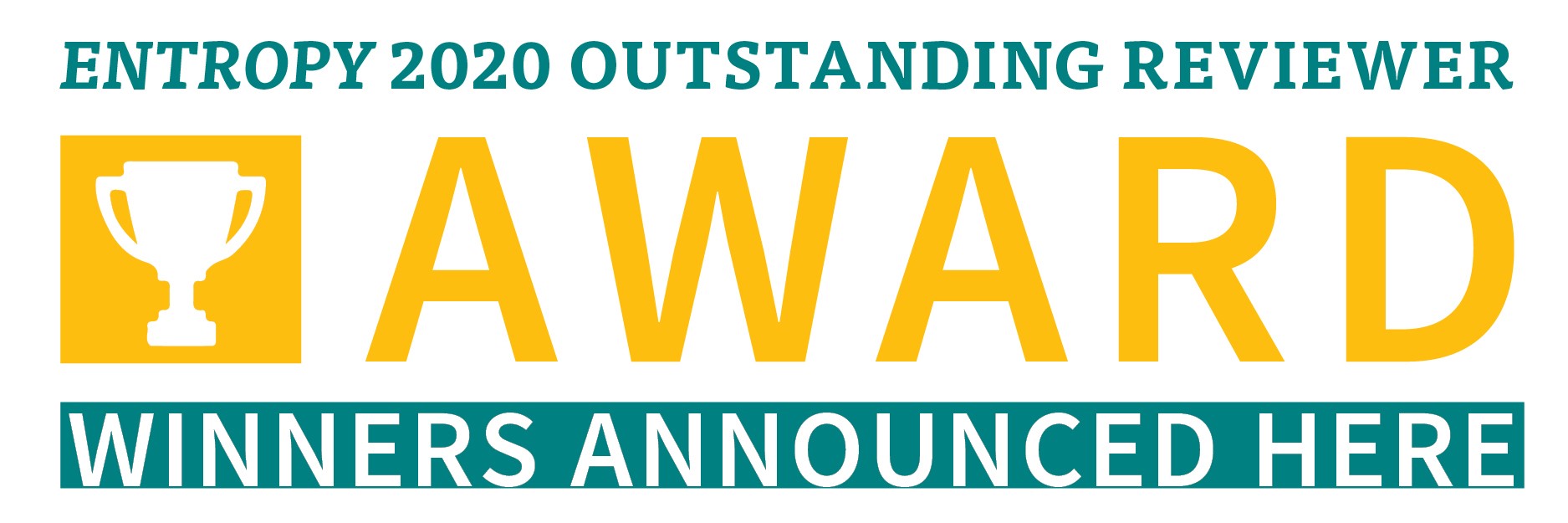
We are pleased to announce the winners of the 2020 Outstanding Reviewer Awards, sponsored by MDPI and Entropy. The awards were granted to five outstanding scholars who have great review experience. The prize will be 500 CHF plus a 50% discount on the publication fee of one paper in 2021.
The awards winners are:
Dr. Domenico Ciuonzo
Department of Electrical Engineering and Information Technologies, University of Naples Federico II, Naples, Italy
Dr. Soheil Keshmiri
The Thomas N. Sato BioMEC-X Laboratories, Advanced Telecommunications Research Institute International, Kyoto, Japan
Dr. Chih-Yuan Tseng
Computational Group, Sinoveda Canda Inc, Edmonton, Canada
Prof. Dr. Dragana Bajic
Faculty of Technical Sciences, Department of Communications and Signal Processing, University of Novi Sad, Belgrade, Serbia
Dr. Victor Hugo Rangel-Hernandez
Mechanical Engineering Department, University of Guanajuato, Salamanca, Mexico
It was difficult to select the five winnners, as there are lots of reviewers helping us check the manuscripts. We do appreciate every reviewer’s work, which facilitates the review process and controls the quality of manuscripts.
For more information about Entropy awards, please see the following link: https://www.mdpi.com/journal/entropy/awards.
25 December 2020
Entropy 2020–2021 Travel Award Winners
We are pleased to announce the winners of the 2020–2021 Travel Awards, sponsored by MDPI and Entropy. The awards were granted to two outstanding young researchers working in the thematic areas:
Astrophysics, Cosmology, and Black Holes
|
Noel Castro Segura is a PhD student at the University of Southampton. The goal of his research is to shed light on some of the fundamental problems related to accretion physics and binary evolution. In particular, his main focus is on how outflows affect these systems. He is planning to present his work "Accretion disk winds in black-hole LMXRB: The missing link" at the Vasto Accretion Meeting (30 May–5 June 2021, Vasto, Italy). The award consists of 800 Swiss francs, to be used to attend this conference. |
|
Quantum Information
|
Igor A. Khramtsov is a PhD student at the Moscow Institute of Physics and Technology, whose research interest involves color centers in diamond, silicon carbide, and other wide-bandgap semiconductors; color center electroluminescence; single-photon sources and detectors; nanophotonics; optical interconnects; integrated germanium photodetectors; and silicon nanophotonics. He is planning to present his work “Towards efficient electrical triggering of single-photon emission from SiV centers in diamond” at SPIE Photonics West (6–11 March 2021 San Francisco, CA, USA). The award consists of 800 Swiss francs, to be used to attend this conference. |
|
Selecting the two winners was a difficult decision, as we received many high-quality applications from around the world. We thank all applicants as we look forward to receiving more applications for the Entropy 2022 Travel Awards.
For more information about Entropy awards, please see the following link: https://www.mdpi.com/journal/entropy/awards
15 December 2020
MDPI adopts C4DISC principles to improve diversity and inclusion in scholarly communications
MDPI is proud to adopt the principles of the Coalition for Diversity & Inclusion in Scholarly Communications (C4DISC) to support building equity, inclusion, diversity, and accessibility in scholarly communications.
The C4DISC represents organizations and individuals working in scholarly communications and is focused on addressing issues of diversity and inclusion within the publishing industry.
MDPI’s Managing Editors encourage the Editors-in-Chief and Associate Editors to appoint diverse expert Editorial Boards. This is also reflective in our multi-national and inclusive workplace. We are proud to create equal opportunities without regard to gender, ethnicity, geographic location, sexual orientation, age, disability, political beliefs, religion, or socio-economic status. There is no place for discrimination in our workplace and editors of MDPI journals are to uphold these principles in high regard.
Representatives from C4DISC meet monthly, and have started to implement initiatives to shed light and improve on the lack of diversity in scholarly communications. Some of the initiatives include developing a joint statement of principles; conducting market research; providing training resources, best practices, toolkits, and documentation for our collective memberships; and establishing outreach programs, curricula, events, and publications.
The Coalition is committed to:
- eliminating barriers to participation, extending equitable opportunities across all stakeholders, and ensuring that our practices and policies promote equitable treatment and do not allow, condone, or result in discrimination;
- creating and maintaining an environment that respects diverse traditions, heritages, and experiences;
- promoting diversity in all staff, volunteers, and audiences, including full participation in programs, policy formulation, and decision-making;
- raising awareness about career opportunities in our industries to groups who are currently underrepresented in the workforce;
- supporting our members in achieving diversity and inclusion within their organizations.
14 December 2020
Article Layout and Templates Revised for Future Volumes
At MDPI we have slightly revised the layout for articles to be published in the 2021 Volume, starting at the end of December 2020. As of today, the article templates available for download on ‘Instructions for Authors’ pages have been updated.
The most noticeable change can be found on the first page of the article, where a left-hand column has been created to include the following front matter elements: (i) the recommended citation style for the article, (ii) the publishing history, (iii) as well as the Creative Commons Attribution license used (iv) a standard note regarding affiliations. At the same time, the extra spacing on the left means the authors’ affiliations are now more clearly set apart than before. Other front matter key elements such as journal logo, article type, article title, authors, abstract and keywords remain unchanged.
The blank column on the left runs through all pages in an article; as a result, the main text is slightly more condensed, which improve reader friendliness for smaller screens. Small figures/tables are aligned on the left with standard indenture, while large figures/tables are centered and covering the full width of the page. The revised layout was applied in the article pictured below, to serve as an example:

1) Information is displayed in the left information bar.

2) In the main text, there is a blank column on the left.

3) Small tables/figures are aligned on the left, large tables/figures are centered.
11 December 2020
2020 "Highly Cited Researchers" on MDPI Journal's Editorial Boards
We are pleased to acknowledge that many academic editors who have made an impact on MDPI journals as editorial board members, editors-in-chief, or section editors, are recognized as 2020 Highly Cited Researchers by Clarivate.
Highly Cited Researchers highlights the top 1% of researchers, by citations, in one or more of the 22 fields used in Clarivate Analytics Essential Science Indicators. We offer our congratulations to 279 academic editors of MDPI journals who were recognized as the most influential scholars in their fields in 2020.
Adams, Dave Agarwal, Ravi P. Ahn, Choon Ki Ahn, Myung-Ju Albrecht, Randy A. Andersson, Dan I. Anker, Stefan D. Apergis, Nicholas Ariga, Katsuhiko Artaxo, Paulo Balsamo, Gianpaolo Barba, Francisco J. Benediktsson, Jon Atli Benelli, Giovanni Bhatnagar, Amit Bialystok, Ellen Blaabjerg, Frede Blay, Jean-Yves Bogers, Marcel Bolton, Declan J. Boyer, Cyrille Brocca, Luca Bruix, Jordi Buhalis, Dimitrios Burdick, Jason A. Byrd, John C. Cabeza, Luisa F. Cabrerizo-Lorite, Francisco Javier Cai, Jianchao Calhoun, Vince D. Cantu, Robert C. Cerqueira, Miguel Chang, Jo-Shu Chau, Kwok-wing Chemat, Farid Chen, Jianmin Chen, Jun Chen, Min Chen, Shaowei Chen, Wei Chen, Wei-Hsin Chen, Xiaofeng Chen, Yangkang Chen, Zhi-Gang Chiclana, Francisco Corella, Dolores Cortes, Javier Cortes, Jorge Cummings, Kenneth Michael Dai, Shifeng Decker, Eric A. DePinho, Ronald A. Dimopoulos, Meletios-Athanasios Dincer, Ibrahim Du, Yihong Dupont, Didier Edwards, David Ellahi, Rahmat Ellis, Erle C. ElMasry, Gamal Esteller, Manel Estruch, Ramón Fang, Chuanglin Fasano, Alessio Fernandez-Lafuente, Roberto Ferreira, Isabel Fortino, Giancarlo Galluzzi, Lorenzo Galvano, Fabio Gandomi, Amir H. Gandomi, Amir H. Gao, Bin Gao, Feng Gao, Wei Garbe, Claus García, Hermenegildo Geschwind, Daniel H. Giampieri, Francesca Giralt, Sergio A. Glanz, Karen Goldewijk, Kees Klein Gössling, Stefan Govindan, Kannan Granato, Daniel Grosso, Giuseppe Grosso, Giuseppe Guerrero, Josep M. Haase, Dagmar Hagger, Martin S. Hamblin, Michael R. Han, Heesup Jankovic, Joseph Janotti, Anderson |
Jiang, Hai-Long Kalaji, Hazem M. Kalantar-Zadeh, Kourosh Kaner, Richard B. Karimi, Hamid Reza Kataoka, Kazunori Keesstra, Saskia Kepp, Oliver Kerminen, Veli-Matti Keyzers, Robert A. Khademhosseini, Ali Khan, Nafees A. Kim, Ki-Hyun Klemeš, Jiří Jaromír Klenk, Hans-Peter Konopleva, Marina Y. Krammer, Florian Krebs, Frederik C. Kroemer, Guido Kudo, Masatoshi Kurths, Juergen Kurzrock, Razelle Kuznetsov, Nikolay V. Kyrpides, Nikos C. La Vecchia, Carlo Lai, Yuekun Lam, James Lancellotti, Patrizio Lee, Sangmoon Leung, Victor C. M. Li, Jinghong Li, Yurui Lindahl, José M. Merigó Lip, Gregory Y. H. Loh, Xian Jun Long, Hualou Lund, Henrik Luo, Jingshan Luque, Rafael Lyons, Timothy W. Ma, Jun Ma, Wen-Xiu Ma, Yanming Maeda, Keisuke Makarova, Kira Mantovani, Alberto Martín-Belloso, Olga Martinoia, Enrico Marzband, Mousa Masclaux-Daubresse, Celine Masson, Patrick Mateos, María Victoria Mathiesen, Brian Vad Matyjaszewski, Krzysztof McArthur, Grant A. McCauley, Darren Medlock, Jolyon M. Melero, Ignacio Mezzetti, Bruno Miroshnichenko, Andrey E. Moran, Daniel Mueller, Lukas A. Mueller-Roeber, Bernd Naushad, Mu Nemeroff, Charles B. Nieto, Juan J. O'Donnell, Colm Ogino, Shuji Olabi, Abdul-Ghani O'Regan, Donal Orsini, Nicola Oswald, Isabelle P. Ozcan, Aydogan Pahl-Wostl, Claudia Pang, Huan Payne, James E. Peng, Shushi Perc, Matjaz Perez-Alvarez, Jose Angel Piquero, Alex R. Ploss, Alexander Postolache, Mihai Pradhan, Biswajeet Prinsep, Michele R. Qian, Dong Qu, Xiaogang Reiter, Russel J. Riahi, Keywan Richter, Andreas Rignot, Eric Robert, Caroline Ros, Emilio Rosell, Rafael |
Rosen, Marc A. |
The full list of 2020 Highly Cited Researchers can be accessed on https://recognition.webofsciencegroup.com/awards/highly-cited/2020/
--- Highly Cited Researchers (HCR) is a Clarivate product.
7 December 2020
Entropy (ISSN 1099-4300) Now in PubMed and PubMed Central
Citations of papers published in the journal Entropy (ISSN 1099-4300) are now indexed and can be searched for in PubMed starting from Vol. 20 (2018). Further, the full-text versions of these papers are archived in PubMed Central.
PubMed comprises more than 25 million citations of biomedical literature from MEDLINE, life science journals in PubMed Central, and online books. It is a free resource developed and maintained by the National Center for Biotechnology Information (NCBI) at the National Library of Medicine (NLM).
22 October 2020
Prof. Dr. Lamberto Rondoni Appointed Editor-in-Chief of the Section “Non-Equilibrium Phenomena” in Entropy
We are pleased to announce that Prof. Dr. Lamberto Rondoni has been appointed as the Editor-in-Chief of the new section “Non-Equilibrium Phenomena” in Entropy.

Lamberto Rondoni is a full Professor of Mathematical Physics at the Politecnico di Torino in Italy and holds secondary appointments at Università di Torino and INFN (Italian Institute for Nuclear Physics). He works in statistical physics, particularly on the subjects of fluctuations at the nanoscale and general non-equilibrium systems. Statistical mechanics aims at describing the physical properties of a macroscopic system on the basis of the behavior of its microscopic constituents [1]. The most developed part of statistical physics concerns equilibrium situations, but the majority of assumptions employed for systems at equilibrium have limited application for out of equilibrium phenomena, and dedicated tools are required. Recent efforts led by a number of scientists including Lamberto Rondoni have unveiled exciting new and rigorous results, which are collectively known as fluctuation relations [2–5]. These represent one of the few general, accurate descriptions achieved so far in non-equilibrium systems, covering a wide variety of phenomena and observables. Furthermore, these developments have led to numerous results concerning the response of the widest class of systems to perturbations. Currently, research in this field is of particular interest in bio- and nanosciences and technology, as well as in soft sciences (socio-economic, media and communications, etc.) in which the notion of proper equilibrium cannot be established and in which stationary states are characterized by large fluctuations.
We warmly welcome Prof. Dr. Lamberto Rondoni as the Editor-in-Chief of the section “Non-Equilibrium Phenomena”, and we look forward to Entropy achieving many milestones under his leadership. For further information on the journal section, please click:
https://www.mdpi.com/journal/entropy/sections/non-equilibrium_phenomena
References
- Chandler, D.W. Introduction to Modern Statistical Mechanics; Oxford University Press: Oxford, UK, 1987.
- Evans, D.J.; Searles, D.J. The fluctuation theorem. Adv. Phys. 2002, 51, 1529–1585.
- Gallavotti, G.; Cohen, E.G.D. Dynamical ensembles in nonequilibrium statistical mechanics. Phys. Rev. Lett. 1995, 74, 2694–2697.
- Jarzynski, C. Nonequilibrium equality for free energy differences. Phys. Rev. Lett. 1997, 78, 2690–2693.
- Marconi, U.M.B.; Puglisi, A.; Rondoni, L.; Vulpiani, A. Fluctuation-dissipation: Response theory in statistical physics. Phys. Rep. 2008, 461, 111–195.
29 September 2020
Entropy Best Poster Award at 45th Conference of the Middle European Cooperation in Statistical Physics (MECO45)
We are pleased to announce the winner of the Best Poster Award, sponsored by Entropy for 45th Conference of the Middle European Cooperation in Statistical Physics (MECO45), held on 14–16 September 2020.
“Phase transitions in three-dimensional random anisotropy Heisenberg model: two case studies” by Maxym Dudka, Yurij Holovatch and Juan J. Ruiz-Lorenzo
The poster created by Maxym Dudka, Yurij Holovatch (Institute for Condensed Matter Physics, Lviv, Ukraine) and Juan J. Ruiz-Lorenzo (Extremadura University, Badajoz, Spain) concerns the study of ordering in random anisotropy magnets. Such magnets constitute a wide class of magnetic systems, with structural disorder described by a random anisotropy model that was introduced in the early 1970s by Harris, Plischke and Zuckermann. Despite extensive studies, the problem of the nature of a low-temperature phase of random anisotropy systems remains a very intriguing issue. While, for large values of local anisotropy strength, the majority of studies predict spin-glass, there is much discussion about ordering for small and moderate values of such strength. It appears that the answer to this question depends also on the local axis distribution. Analytical and numerical approaches predict an absence of the ferromagnetic order for uniform continuous distribution while preserving long-range order for discrete distribution, except in the numerical study, where second-order phase transition to long-range order was claimed for both kinds of distributions with the same correlation length critical exponent. We study phase transitions in the three-dimensional random anisotropy model with three-component order parameter by means of extensive Monte Carlo simulations, using the parallel tempering method for two different random anisotropy axis distributions and two different values of local anisotropy strength for each disorder distribution case. We observe clear signatures of the second order phase transition (paramagnetic–ferromagnetic) for both distributions, although extracted critical exponents support different collective behaviors for different random anisotropy axis distributions. Moreover, while we find strong evidence of universality for the case of the discrete disorder distribution, results for the uniform case do not present universality, showing the dependence of the critical exponents on the disorder strength, as well as on the lattice size, therefore questioning the nature of low-temperature state in the thermodynamic limit. The work was initiated within the FP7-PEOPLE, IRSES project SPIDER. Maxym Dudka acknowledges the financial support of the Polish National Agency for Academic Exchange (NAWA) on the final stage of the project.
22 September 2020
Entropy 2020–2021 Travel Awards—Deadline Extension
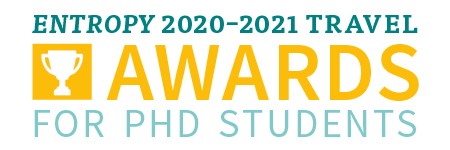
Entropy is offering three travel awards to sponsor PhD students to attend a relevant conference of their choice in 2020 or 2021. The three thematic areas for the three travel awards are:
Quantum Information
Entropy and Biology
Astrophysics, Cosmology, and Black Holes
The deadline for the Entropy 2020–2021 Travel Awards has been extended! You can apply for one of the awards by 1 November 2020. The winners will be announced on the Entropy website by 30 November 2020. For full details and how to apply, please click here.
Please note that applicants should select only one Entropy Travel Award when applying. Applicants selecting more than one award will automatically be disqualified from all awards. The chosen travel award should match the field and thematic area of their research and planned presentation.
11 August 2020
Entropy Best ECR Presentation Awards at CNS*2020 Online Workshop on Methods of Information Theory in Computational Neuroscience
We are pleased to announce the two winners of the Best ECR Presentation Awards sponsored by Entropy for the CNS*2020 Online Workshop on Methods of Information Theory in Computational Neuroscience held on 21–22 July 2020.
“A Differentiable Measure of Pointwise Shared Information” by Abdullah Makkeh
Partial information decomposition (PID) of the multivariate mutual information describes the distinct ways in which a set of source variables contains information about a target variable. The groundbreaking work of Williams and Beer has shown that this decomposition cannot be determined from classic information theory without making additional assumptions, and several candidate measures have been proposed, often drawing on principles from related fields such as decision theory. None of these measures is differentiable with respect to the underlying probability mass function. Here, we present a novel measure that draws only on the principle linking the local mutual information to exclusion of probability mass. This principle is foundational to the original definition of the mutual information by Fano. We reuse this principle to define a measure of shared information based on the shared exclusion of probability mass by the realizations of source variables. Our measure is differentiable and well defined for individual realizations of the random variables. Thus, it lends itself, for example, to local learning in artificial neural networks. We show that the measure can be interpreted as local mutual information with the help of an auxiliary variable. We also show that it has a meaningful Möbius inversion on a redundancy lattice and obeys a target chain rule. We provide an operational interpretation of the measure based on the decisions that an agent should take if only given the shared information.
“Multi-Target Information Decomposition and Applications to Integrated Information Theory” by Pedro Mediano
The partial information decomposition (PID) framework allows us to decompose the information that multiple source variables have about a single target variable. In its 10 years of existence, PID has spawned numerous theoretical and practical tools to help us understand and analyze information processing in complex systems. However, the asymmetric role of sources and targets in PID hinders its application in certain contexts, like studying information sharing in multiple processes evolving jointly over time. In this work, we developed a novel extension of the PID framework to the multi-target setting, which lends itself more naturally to the analysis of multivariate dynamical systems. This new decomposition is tightly linked with integrated information theory and gives us new analysis tools as well as a richer understanding of information processing in multivariate dynamical systems. Link: https://arxiv.org/abs/1909.02297.
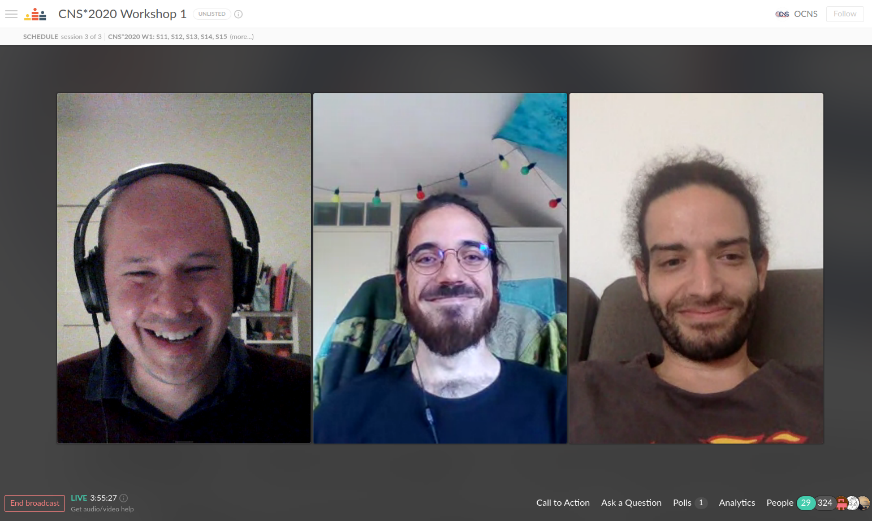
9 July 2020
Open Access Agreement Between Jisc Collections and MDPI
We are delighted to announce the establishment of our Open Access agreement with Jisc Collections, which will allow UK institutions to benefit from access to article processing charge (APC) discounts and streamlined payment workflows.
All institutions participating in the agreement will also gain access to the MDPI online submission system where they can find full article metadata and pricing information for easy identification and additional transparency.
Eligible authors affiliated with the participating institutions are prompted to choose the corresponding Institutional Open Access Program (IOAP) when they submit an article via our online submission system.
About Jisc
Jisc's vision is for the UK to be the most digitally advanced education and research nation in the world. At its heart is the super-fast national research and education network, Janet, with built-in cyber security protection. Jisc also provides technology solutions for its members (colleges, universities and research centres) and customers (public sector bodies), helps members save time and money by negotiating sector-wide deals and provides advice and practical assistance on digital technology. Jisc is funded by the UK higher and further education and research funding bodies and member institutions.
For more information, contact helen.dobson@jisc.ac.uk.
About MDPI
MDPI is a publisher of fully peer-reviewed, Open Access journals with a focus on thorough and rapid editorial processing. Its aim is to ensure that high-quality research is verified and made available to the research community as quickly as possible. MDPI stands at the forefront of the Open Access movement, having launched its first online journal Molecules in 1996. Today, MDPI is a leader in Open Access publishing with over 250 journals across all research disciplines, and all content published under a Creative Commons Attribution License (CC BY).
For any questions about this agreement, please contact the MDPI IOAP team at ioap@mdpi.com.
29 June 2020
Updated Impact Factors Released in the Journal Citation Reports (Clarivate)
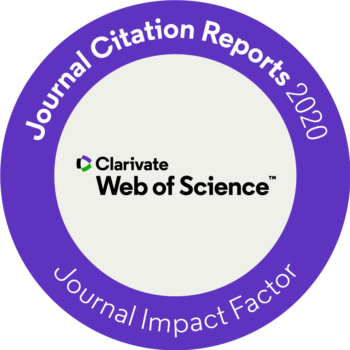
The updated citation metrics have been released in the Journal Citation Reports (JCR), published by Clarivate. The recent release of the JCR includes seventy-one MDPI titles. Out of these, 18 titles are newcomers, receiving a first Journal Impact Factor which is based on citation activity in 2019: Actuators, Agriculture, Biology, Biomedicines, Biosensors, Chemosensors, Children, Healthcare, Journal of Fungi, Journal of Personalized Medicine (JPM), Land, Life, Magnetochemistry, Membranes, Pharmaceuticals, Photonics, Separations and Toxics.
- Out of the previously listed journals, a total of 72 percent boast an increased Impact Factor.
- 25 journals are ranked among the top 25% of journals in at least one of the categories they are ranked for.
- Articles published in 2019 in MDPI journals account for approximately 17 percent of of articles published in gold Open Access journals covered in the Science Citation Index Expanded (SCIE) and Social Sciences Citation Index (SSCI).
First Impact Factors
| Journal | Impact Factor | Rank | Category | Details |
| Actuators | 1.957 | 31/64 (Q2) | • Instruments & Instrumentation | Link |
| Agriculture | 2.072 | 25/91 (Q2) | • Agronomy | Link |
| Biology | 3.796 | 19/93 (Q1) | • Biology | Link |
| Biomedicines | 4.717 | 30/138 (Q1) 36/270 (Q1) |
• Medicine, Research & Experimental • Pharmacology & Pharmacy |
Link |
| Biosensors | 3.240 | 24/86 (Q2) | • Chemistry, Analytical | Link |
| Chemosensors | 3.108 | 16/64 (Q1) 27/86 (Q2) 13/27 (Q2) |
• Instruments & Instrumentation • Chemistry, Analytical • Electrochemistry |
Link |
| Children | 2.078 | 50/128 (Q2) | • Pediatrics | Link |
| Healthcare | 1.916 | 62/102 (Q3) 45/87 (Q3) |
• Health Care Sciences & Services (SCIE) • Health Policy & Services (SSCI) |
Link |
| Journal of Fungi | 4.621 | 5/29 (Q1) 31/135 (Q1) |
• Mycology • Microbiology |
Link |
| Journal of Personalized Medicine | 4.433 | 24/165 (Q1) 10/102 (Q1) |
• Medicine, General & Internal • Health Care Sciences & Services |
Link |
| Land | 2.429 | 58/123 (Q2) | • Environmental Studies (SSCI) | Link |
| Life | 2.991 | 26/93 (Q2) 109/267 (Q2) |
• Biology • Microbiology |
Link |
| Magnetochemistry | 1.947 | 22/45 (Q2) 109/159 (Q3) 201/314 (Q3) |
• Chemistry, Inorganic & Nuclear • Chemistry, Physical • Materials Science, Multidisciplinary |
Link |
| Membranes | 3.094 | 53/143 (Q2) 129/314 (Q2) 23/89 (Q2) |
• Engineering, Chemical • Materials Science, Multidisciplinary • Polymer Science |
Link |
| Pharmaceuticals | 4.286 | 49/270 (Q1) | • Pharmacology & Pharmacy | Link |
| Photonics | 2.140 | 48/97 (Q2) | • Optics | Link |
| Separations | 1.900 | 53/86 (Q3) | • Chemistry, Analytical | Link |
| Toxics | 3.271 | 32/92 (Q2) 92/265 (Q2) |
• Toxicology • Environmental Sciences |
Link |
Updated Impact Factors
| Journal | Impact Factor | Rank | Category | Details |
| Agronomy | 2.603 | 18/91 (Q1) 65/234 (Q2) |
• Agronomy • Plant Sciences |
Link |
| Animals | 2.323 | 10/63 (Q1) 14/142 (Q1) |
• Agriculture, Dairy & Animal Science • Veterinary Sciences |
Link |
| Antibiotics | 3.893 | 23/93 (Q1) 64/270 (Q1) |
• Infectious Diseases • Pharmacology & Pharmacy |
Link |
| Antioxidants | 5.014 | 10/139 (Q1) 56/297 (Q1) 7/61 (Q1) |
• Food Science & Technology • Biochemistry & Molecular Biology • Chemistry, Medicinal |
Link |
| Applied Sciences | 2.474 | 161/314 (Q3) 32/91 (Q2) 88/177 (Q2) 62/154 (Q2) |
• Materials Science, Multidisciplinary • Engineering, Multidisciplinary • Chemistry, Multidisciplinary • Physics, Applied |
Link |
| Atmosphere | 2.397 | 48/93 (Q3) | • Meteorology & Atmospheric Sciences | Link |
| Biomolecules | 4.082 | 98/297 (Q2) | • Biochemistry & Molecular Biology | Link |
| Brain Sciences | 3.332 | 113/271 (Q2) | • Neurosciences | Link |
| Cancers | 6.126 | 37/244 (Q1) | • Oncology | Link |
| Catalysts | 3.520 | 65/159 (Q2) | • Chemistry, Physical | Link |
| Cells | 4.366 | 70/195 (Q2) | • Cell Biology | Link |
| Coatings | 2.436 | 10/21 (Q2) | • Materials Science, Coatings & Films | Link |
| Crystals | 2.404 | 10/26 (Q2) 165/314 (Q3) |
• Crystallography • Materials Science, Multidisciplinary |
Link |
| Diagnostics | 3.110 | 39/165 (Q1) | • Medicine, General & Internal | Link |
| Diversity | 1.402 | 119/168 (Q3) | • Ecology | Link |
| Electronics | 2.412 | 125/266 (Q2) | • Engineering, Electrical & Electronic | Link |
| Energies | 2.702 | 63/112 (Q3) | • Energy & Fuels | Link |
| Entropy | 2.494 | 33/85 (Q2) | • Physics, Multidisciplinary | Link |
| Foods | 4.092 | 27/139 (Q1) | • Food Science & Technology | Link |
| Forests | 2.221 | 17/68 (Q1) | • Forestry | Link |
| Genes | 3.759 | 53/177 (Q2) | • Genetics & Heredity | Link |
| Insects | 2.220 | 18/101 (Q1) | • Entomology | Link |
| International Journal of Environmental Research and Public Health (IJERPH) | 2.849 | 58/193 (Q2) 32/170 (Q1) 105/265 (Q2) |
• Public, Environmental & Occupational Health (SCIE) • Public, Environmental & Occupational Health (SSCI) • Environmental Sciences (SCIE) |
Link |
| International Journal of Molecular Sciences (IJMS) | 4.556 | 74/297 (Q1) 48/177 (Q2) |
• Biochemistry & Molecular Biology • Chemistry, Multidisciplinary |
Link |
| ISPRS International Journal of Geo-Information (IJGI) | 2.239 | 31/50 (Q3) 18/30 (Q3) |
• Geography, Physical • Remote Sensing |
Link |
| Journal of Clinical Medicine | 3.303 | 36/165 (Q1) | • Medicine, General & Internal | Link |
| Journal of Marine Science and Engineering | 2.033 | 31/66 (Q2) | • Oceanography | Link |
| Marine Drugs | 4.073 | 16/61 (Q2) | • Chemistry, Medicinal | Link |
| Materials | 3.057 | 132/314 (Q2) | • Materials Science, Multidisciplinary | Link |
| Mathematics | 1.747 | 28/324 (Q1) | • Mathematics | Link |
| Medicina | 1.205 | 107/165 (Q3) | • Medicine, General & Internal | Link |
| Metabolites | 4.097 | 95/297 (Q2) | • Biochemistry & Molecular Biology | Link |
| Metals | 2.117 | 18/79 (Q1) 185/314 (Q3) |
• Metallurgy & Metallurgical Engineering • Materials Science, Multidisciplinary |
Link |
| Micromachines | 2.523 | 56/92 (Q3) 23/64 (Q2) |
• Nanoscience & Nanotechnology • Instruments & Instrumentation |
Link |
| Microorganisms | 4.152 | 37/135 (Q2) | • Microbiology | Link |
| Minerals | 2.380 | 6/21 (Q2) 11/30 (Q2) |
• Mining & Mineral Processing • Mineralogy |
Link |
| Molecules | 3.267 | 70/177 (Q2) 141/297 (Q2) |
• Chemistry, Multidisciplinary • Biochemistry & Molecular Biology |
Link |
| Nanomaterials | 4.324 | 89/314 (Q2) 42/103 (Q2) |
• Materials Science, Multidisciplinary • Nanoscience & Nanotechnology |
Link |
| Nutrients | 4.546 | 17/89 (Q1) | • Nutrition & Dietetics | Link |
| Pathogens | 3.018 | 65/135 (Q2) | • Microbiology | Link |
| Pharmaceutics | 4.421 | 44/270 (Q1) | • Pharmacology & Pharmacy | Link |
| Plants | 2.762 | 58/234 (Q1) | • Plant Sciences | Link |
| Polymers | 3.426 | 16/89 (Q1) | • Polymer Science | Link |
| Processes | 2.753 | 59/143 (Q2) | • Engineering, Chemical | Link |
| Remote Sensing | 4.509 | 9/30 (Q2) | • Remote Sensing | Link |
| Sensors | 3.275 | 22/86 (Q2) 77/266 (Q2) 15/64 (Q1) |
• Chemistry, Analytical • Engineering, Electrical & Electronic • Instruments & Instrumentation |
Link |
| Sustainability | 2.576 | 120/265 (Q2) 26/41 (Q3) 53/123 (Q2) 6/8 (Q3) |
• Environmental Sciences (SCIE) • Green & Sustainable Science & Technology (SCIE) • Environmental Studies (SSCI) • Green & Sustainable Science & Technology (SSCI) |
Link |
| Symmetry | 2.645 | 29/71 (Q2) | • Multidisciplinary Sciences | Link |
| Toxins | 3.531 | 21/92 (Q1) 34/139 (Q1) |
• Toxicology • Food Science & Technology |
Link |
| Universe | 1.752 | 18/29 (Q3) 42/68 (Q3) |
• Physics, Particles & Fields • Astronomy & Astrophysics |
Link |
| Vaccines | 4.086 | 57/158 (Q2) 50/138 (Q2) |
• Immunology • Medicine, Research & Experimental |
Link |
| Viruses | 3.816 | 12/37 (Q2) | • Virology | Link |
| Water | 2.544 | 31/94 (Q2) | • Water Resources | Link |
Source: Clarivate 2020, InCites Journal Citation Reports®.
13 May 2020
COVID-19 Academic Resources Center

Since 1996, MDPI has been committed to supporting the research community by providing the latest research freely available and making relevant and useful research available as quickly as possible. The world is current experiencing a pandemic of COVID-19, and researchers are working extremely hard to understand it and find a cure.
The values MDPI holds strongly are particularly important at the moment, and we will continue to publish relevant, peer-reviewed research as quickly as possible in open access format. This means that it will immediately be available for researchers, health professionals, and the general public to read, distribute, and reuse. We believe that scientific advancements will be crucial to overcoming this pandemic, and will do everything we can to support researchers working looking for solutions.
COVID-19 Academic Resources Center contains a variety of information related to COVID-19 available from MDPI, including journal articles, special issues, and preprints, among others.
For more information, please visit: https://www.mdpi.com/covid-19
9 April 2020
Free Open Platforms to Support Academics During the COVID-19 Pandemic

As a leading Open Access publisher, MDPI is committed to fostering open scientific exchange in all forms across all disciplines. Due to the outbreak of COVID-19, many researchers have to stay at home and many academic conferences have been cancelled or postponed. In light of these changes, MDPI has adopted numerous initiatives that may help accelerate scientific exchange and provide support to the academics during this period.
Scholarly Community—Encyclopedia
Encyclopedia is an online reference created and curated by active scholars. It aims to highlight the latest research results as well as providing benchmark information for researchers and the general public interested in accurate and advanced knowledge on specific topics.
Comprehensive and Free Literature Database—Scilit
Scilit is a comprehensive, free database for scientists that uses a new method to collate data and index scientific material. Our crawlers extract the latest data from CrossRef and PubMed on a daily basis. This means that newly published articles are immediately added to Scilit.
Display Academic Achievements—SciProfiles
SciProfiles is an innovative social network for researchers and scholars that is developed by MDPI. In line with our broad mission, the purpose of SciProfiles is to accelerate discovery and innovation by facilitating immediate access to research results and providing opportunities for academic networking.
Organize and Participate in Conferences Online—Sciforum
Sciforum is an event planning platform that supports open science by offering the opportunity to host and participate in academic conferences. It provides an environment for scholarly exchange, discussion of topics of current interest, building of networks, and establishing collaborations.
Post Early Versions of Research Outputs—Preprints
Preprints is a platform dedicated to making early versions of research outputs permanently available and citable. We post original research articles and comprehensive reviews, and papers can be updated by authors at any time. Content on Preprints is not peer-reviewed, and feedback can be received from readers.
***
MDPI remains committed to open science and open data and has signed a statement, along with more than thirty scholarly publishers, showing our intention to facilitate sharing of new research findings as early on as possible. The initiative sees publishers collectively removing barriers to new research, in the face of a global healthcare crisis.
25 March 2020
MDPI Comment on the COVID-19 Virus
The world is currently suffering from a global pandemic of the corona virus COVID-19. MDPI expresses its sympathies for all of those affected by the virus and stands in solidarity with medical staff and researchers treating patients and searching for scientific solutions.
MDPI has previously published papers covering corona viruses in addition to new papers on the current outbreak, see all papers here. In particular, Viruses has published a number of Special Issues and papers on the topic (see here, here, and here) as well as a forthcoming Special Issue.
Alongside journal articles, MDPI has been a strong supporter of preprints, which are increasingly being used to rapidly disseminate the latest research, and we run the preprint server Preprints.org. Our database of research articles, Scilit, is free to use and covers all publishers including preprint servers. New papers are often in search results within hours of publication and users can set up alerts for new papers.
Our main priority during this period has been the health and safety of staff, and we continue to allow staff to work at home and closely monitor the situation in all locations in which we work. Despite the restrictions, we continue to provide a full publication service and, by close collaboration with our editorial boards and making use our in-house teams, ensure that there are no unnecessary delays in publishing vital research. Fast and open publication has always been at the core of MDPI values and is now more important than ever.
We hope that a solution to the current situation will emerge soon. In the meantime, we will do our best to continue communicating vital research in all fields.
18 March 2020
MDPI Co-Signed Position Statement on Transformative Agreements
The advantages of the open access model of scientific publishing are being increasingly recognized in the scientific community. It allows new scientific evidence to be accessed from the moment of publication for free by anyone around the globe, boosting the impact of new research. In response, many funders, libraries and universities have been adopting new principles to accelerate the transition to open access.
Recently, “transformative agreements” have been negotiated between traditional publishers and various institutions. While increasing the number of open access papers, these agreements lack binding commitments to a full transition to open access, their conditions vary across different regions, and access is still limited for many users.
MDPI is a co-signatory of the recent position statement raising concerns about potential downsides of transformative agreements and how they may delay a full transition to open access. The statement highlights that these models “risk perpetuating current limitations on access, transparency and market competitiveness, while simultaneously facilitating excessive charges on the public purse”.
As a pioneering open access journal publisher, MDPI is the first to promote the importance of science being made available to everyone. Our peer-reviewed journals, covering diverse academic disciplines, are fully accessible to the public free of charge under a Creative Commons Attribution License (CC BY). This is why, along with other open access publishers, MDPI is a proud signatory of the position paper and is committed to contributing to the replacement of weak transitional agreements with “agreements with publishers that are already fully committed to open science and who offer full, immediate and transparent Open Access”.
Read the position paper here
18 March 2020
Entropy: Announcement of 2019 Best Paper Award Winners
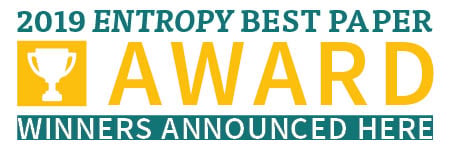
On behalf of the Editor-in-Chief, Prof. Dr. Kevin H. Knuth, we are pleased to announce the winners of the Entropy Best Paper Award for 2019.
The winning nominations were selected by the Evaluation Committee, chaired by the Editor-in-Chief and supported by 13 Editorial Board Members. The three top-voted papers, in no particular order, have won the 2019 Entropy Best Paper Award:
Levitated Nanoparticles for Microscopic Thermodynamics—A Review
Jan Gieseler and James Millen
Entropy 2018, 20(5), 326; https://doi.org/10.3390/e20050326
Available online: https://www.mdpi.com/1099-4300/20/5/326
Transductive Feature Selection Using Clustering-Based Sample Entropy for Temperature Prediction in Weather Forecasting
Zahra Karevan and Johan A.K. Suykens
Entropy 2018, 20(4), 264; https://doi.org/10.3390/e20040264
Available online: https://www.mdpi.com/1099-4300/20/4/264
Pointwise Partial Information Decomposition Using the Specificity and Ambiguity Lattices
Conor Finn and Joseph T. Lizier
Entropy 2018, 20(4), 297; https://doi.org/10.3390/e20040297
Available online: https://www.mdpi.com/1099-4300/20/4/297
The editorial team would like to congratulate the winners of the 2019 Entropy Best Paper Award and thank the authors for having chosen Entropy to publish their work.
16 March 2020
Encyclopedia Outstanding Contributor Awards 2020 - Open for Application
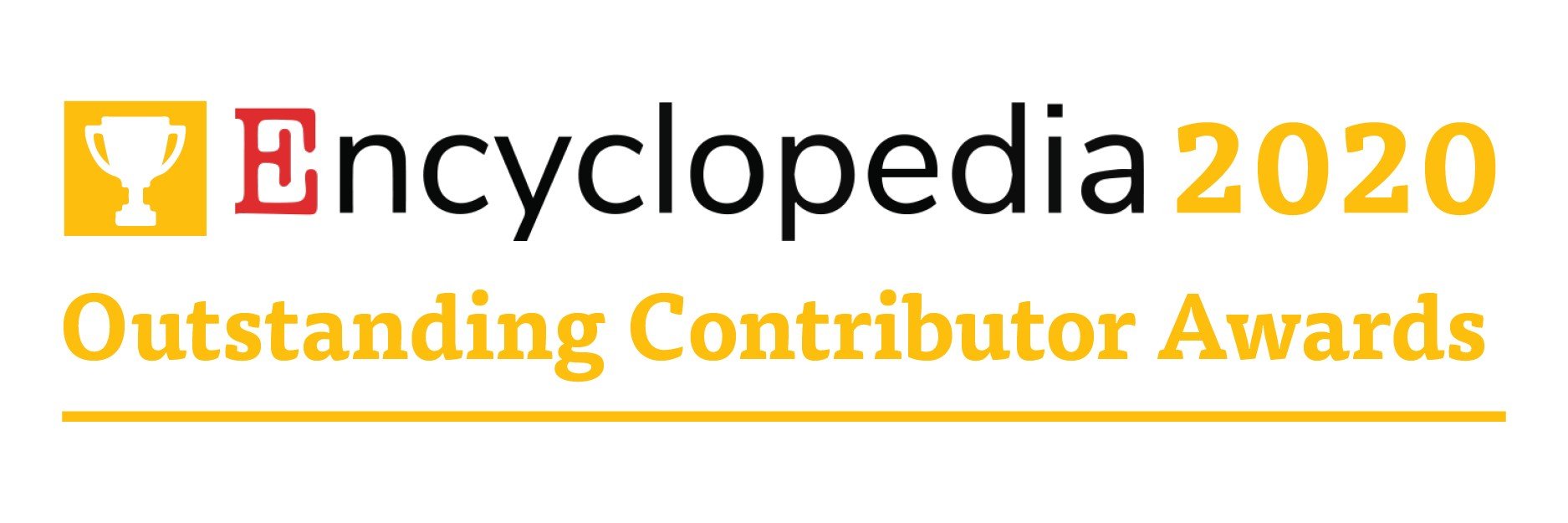
We are pleased to announce that Encyclopedia will be awarding five Outstanding Contributor Awards for researchers in 2020. The nominations and applications will be assessed by an Evaluation Committee consisting of senior scholars from the Encyclopedia Editorial Board.
Prize for Winners
- An official certificate;
- A cash award of 500 CHF or an MDPI discount voucher of 800 CHF.
Application Deadline
31 December, 2020 (Please send your application email with a list of all entries you contributed to our office before the deadline: office@encyclopedia.pub)
Candidate Requirements
- Have a Ph.D. degree;
- Have more than three qualified entries published in Encyclopedia in 2020.
Evaluation Standards
- Number of entries published in Encyclopedia in 2020;
- Quality of entries online (including length, figure quality, and novelty);
- Impact of entries (including the number of likes, discussion contents, views, and downloads).
If you are a researcher and have not yet contribute entries to Encyclopedia, please do not miss this chance to highlight your research results.
14 January 2020
Entropy Best Presentation Award at 5th International Electronic Conference on Entropy and Its Applications (ECEA-5)
We are pleased to announce the winner of the Best Presentation Award that Entropy sponsored at the 5th International Electronic Conference on Entropy and Its Applications (ECEA-5), held from 18 to 30 November 2019.
“Spin Waves and Skyrmions in Magneto-Ferroelectric Superlattices: Theory and Simulation” by Hung T. Diep, Ildus F. Sharafullin
In this paper, we present the effects of Dzyaloshinskii–Moriya (DM) magnetoelectric coupling between ferroelectric and magnetic layers in a superlattice formed by alternate magnetic and ferroelectric films. Magnetic films are films consisting of a simple cubic lattice with Heisenberg spins interacting with each other via an exchange, J, and a DM interaction with the ferroelectric interface. Electrical polarizations of ±1 are assigned at simple cubic lattice sites in the ferroelectric films. We determined the ground-state (GS) spin configuration in the magnetic film. In zero field, the GS is periodically noncollinear (helical structure), and in an applied field H, perpendicular to the layers, it shows the existence of skyrmions at the interface. Using the Green’s function method, we studied the spin waves (SW) excited in a monolayer and also in a bilayer sandwiched between ferroelectric films in zero field. We show that the DM interaction strongly affects the long-wavelength SW mode. We also calculated the magnetization at low temperatures. Monte Carlo simulations were then used to calculate various physical quantities at finite temperatures, such as the critical temperature, the layer magnetization, and the layer polarization, as functions of magnetoelectric DM coupling and the applied magnetic field. Phase transition to the disordered phase was studied.
14 January 2020
Entropy Reaches 5000 Articles Milestone
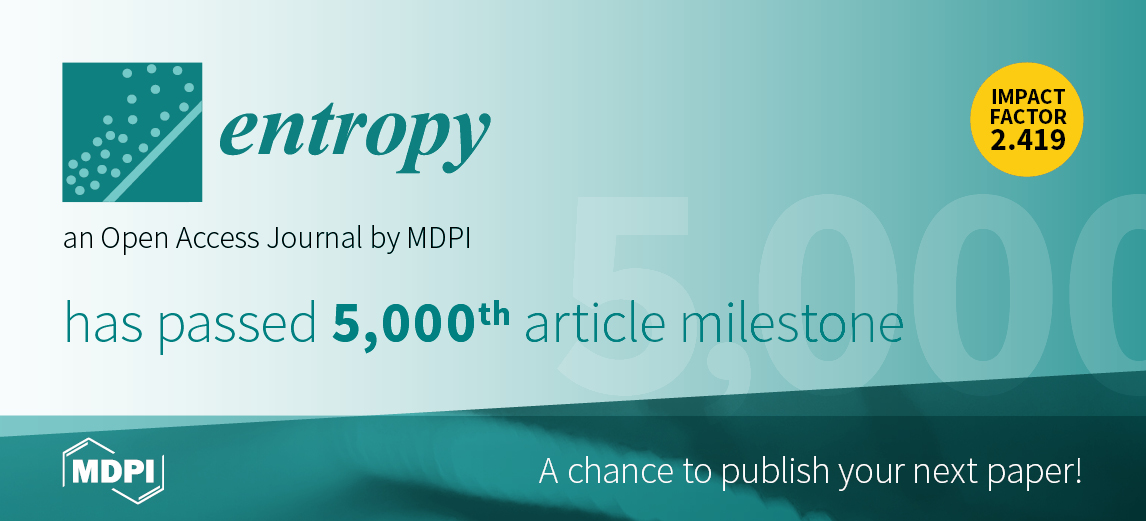
We are pleased to announce that Entropy has passed the milestone of 5000 papers since its inception in 1999. Entropy (ISSN 1099-4300) is an open-access journal of entropy and information studies, published monthly online by MDPI. It is now covered in the Science Citation Index Expanded (Web of Science) and Scopus, with a 2018 Impact Factor of 2.419, which corresponds to rank 28/81 (Q2) in the JCR category “Physics, Multidisciplinary”.
Our sincere thanks go to the Editor-in-Chief of Entropy, Prof. Dr. Kevin H. Knuth, and all the Editorial Board members, as well as Guest Editors of Special Issues, who have ensured the continued success of the journal through their hard work and diligence. In addition, we also acknowledge the many valuable publications from our authors and important contributions of our dedicated reviewers. We wish to thank you all for your support, and hope to receive more quality submissions from you in the future.
19 December 2019
Entropy Best Presentation Award at the Complexity, Criticality and Computation Symposium (C3-2019)
We are pleased to announce the winner of the presentation award that Entropy sponsored at the Complexity, Criticality and Computation Symposium (C3-2019) held at the University of Sydney (Camperdown, Australia) on 2–5 December 2019.
"Fishy Business: Noise-Induced Schooling in Fish" by Richard Morris
I reported on our work concerning the dynamics of collective alignment in groups of the cichlid fish, Etroplus suratensis. Focusing on small-to-intermediate sized groups (10 < N < 100), we demonstrate that schooling (highly polarised and coherent motion) is noise-induced, arising from the intrinsic stochasticity associated with finite numbers of interacting fish. The fewer the fish, the greater the (multiplicative) noise and therefore the likelihood of alignment. Such rare empirical evidence tightly constrains the possible underlying interactions that govern fish alignment, suggesting that E. suratensis either spontaneously change their direction or copy the direction of other fish, without any local averaging (the otherwise canonical mechanism of collective alignment). The work highlights the importance of stochasticity in behavioural inference: rather than simply obscuring otherwise deterministic dynamics, noise can be fundamental to the characterisation of emergent collective behaviours.
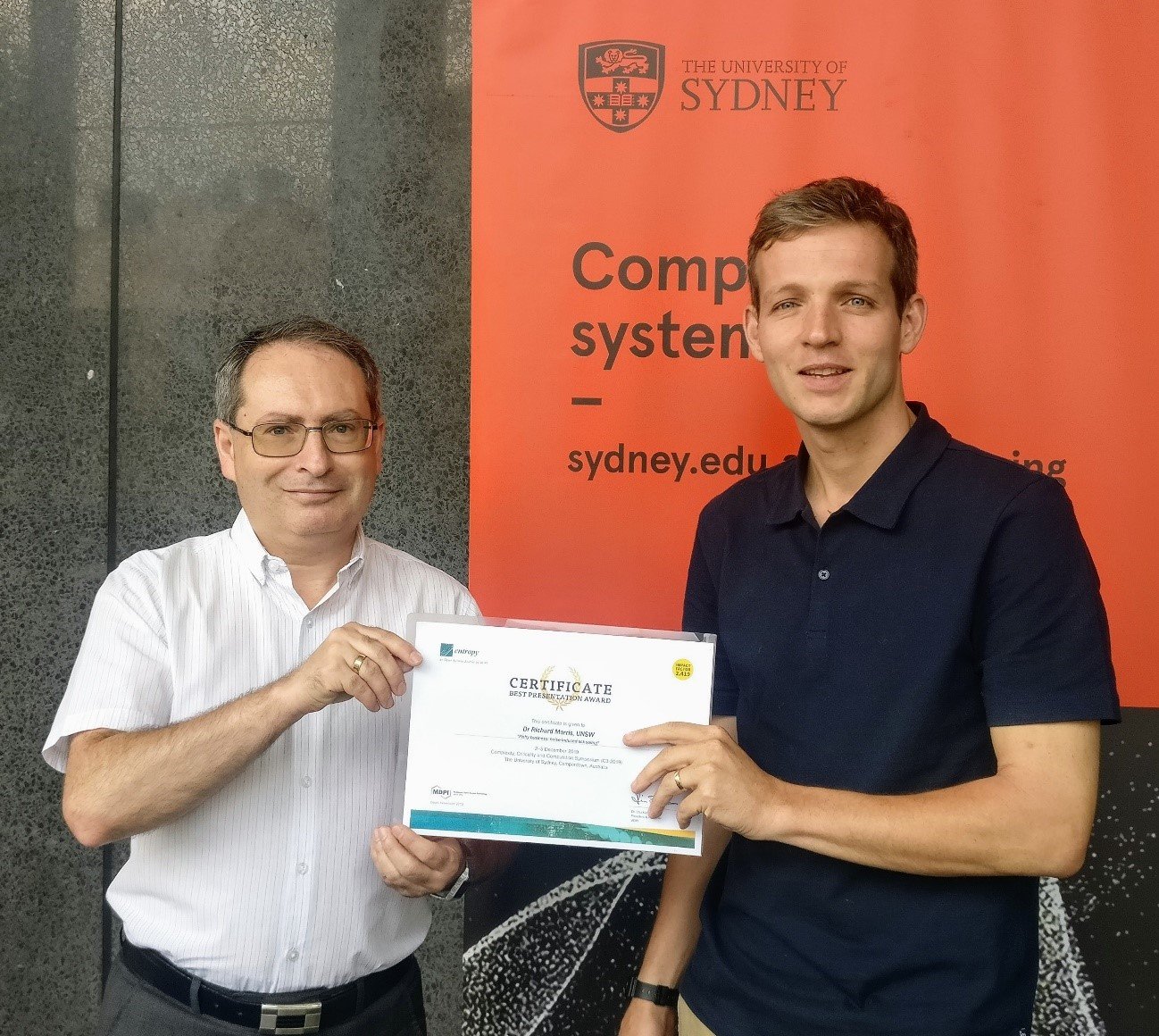
18 December 2019
Meet Us at TMS 2020 in San Diego, CA, USA, 23–27 February 2020
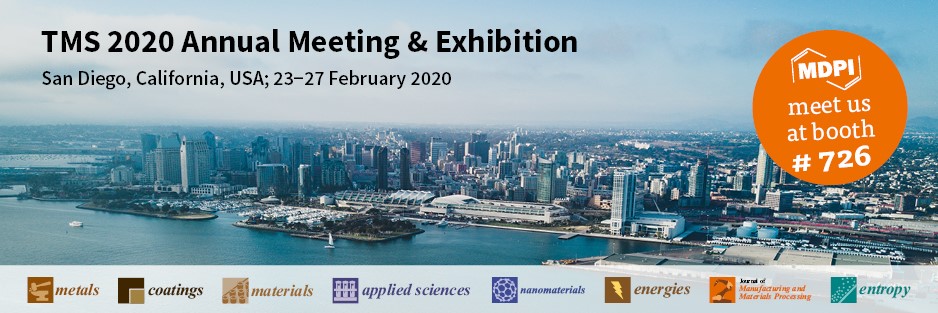
MDPI will be attending the 149th TMS 2020 on minerals, metals, and materials in San Diego, CA, USA, 23–27 February 2020. An Editorial Board Member meeting of Metals will take place during this event. We warmly welcome you join and share your publishing experience with us.
TMS2020 will present more than 85 symposia planned by all five TMS technical divisions and covering a broad range of topics related to minerals, metals, and materials science and engineering. The event will draw more than 4000 attendees and feature four full days of technical programming.
The following MDPI journals will be represented:
Journal of Manufacturing and Materials Processing
If you are also attending this conference, please feel free to stop by our booth (Booth #726). Our delegates look forward to meeting you in person to answer any questions you may have. For more information about the conference, please visit: https://www.tms.org/TMS2020.
29 November 2019
Entropy Reaches 5000 Articles Milestone
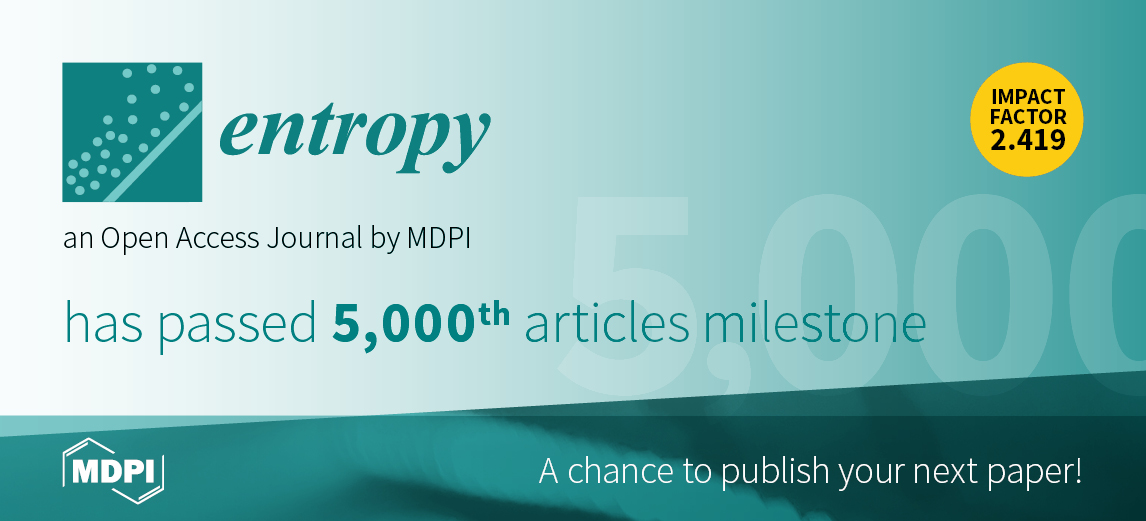
We are pleased to announce that Entropy has passed the milestone of 5000 papers since its inception in 1999. Entropy (ISSN 1099-4300) is an open-access journal of entropy and information studies, published monthly online by MDPI. It is now covered in the Science Citation Index Expanded (Web of Science) and Scopus, with a 2018 Impact Factor of 2.419, which corresponds to rank 28/81 (Q2) in the JCR category “Physics, Multidisciplinary”.
Our sincere thanks go to the Editor-in-Chief of Entropy, Prof. Dr. Kevin H. Knuth, and all the Editorial Board members, as well as Guest Editors of Special Issues, who have ensured the continued success of the journal through their hard work and diligence. In addition, we also acknowledge the many valuable publications from our authors and important contributions of our dedicated reviewers. We wish to thank you all for your support, and hope to receive more quality submissions from you in the future.
11 October 2019
Introducing SciProfiles, an Academic Social Network
MDPI is pleased to announce the release of SciProfiles, its social network platform for researchers and scholars.
The purpose of SciProfiles is aligned with MDPI’s broad mission to accelerate discovery and innovation by facilitating immediate access to research results and to serve scholars and communities by providing opportunities for academic networking.
SciProfiles also ambitions to serve as a sustainable, transparent and community-driven research evaluation system aligned with the DORA principles (https://sfdora.org/). Through their scientific profiles, academics can highlight their contribution to research communities, and measure their impact on their field, beyond publication numbers and impact factors. SciProfiles is currently a beta version and will enrich to give researchers the possibility to highlight all of their contributions to science and their scientific communities as authors, reviewers, editors, conference organizers, conference panelists, conference keynote speakers, or even as lecturers or student mentors at their University.
The classic components of popular community social networks, including follower/following, classical metrics, endorsements and recommendations (https://www.mdpi.com/about/announcements/1690), comments (https://www.mdpi.com/about/announcements/1397) are or will be very soon highlighted in SciProfiles as open science contributions.
To help increase the impact and visibility of articles and their authors to an appropriate audience, the platform offers a NewsFeed that includes recommendations of relevant content based on interests, publication history, saved searches or colleagues’ recommendations.
SciProfiles’ avatars are now being integrated on several MDPI platforms, meaning that you will directly access researchers’ profiles from any of the MDPI platforms:
MDPI's journal publishing website: www.mdpi.com
MDPI's conference hosting and management website: www.sciforum.net
MDPI's pre-print website : www.preprints.org
MDPI's knowledge sharing website : www.encyclopedia.pub
MDPI's books store: www.mdpi.com/books
MDPI's literature database : www.scilit.net
SciProfiles aims to serve scientific communities at large. It can be embedded into third-party websites and also welcomes integration of data from third-parties.
Dr. Shu-Kun Lin: https://sciprofiles.com/profile/2
Dr. Franck Vazquez: https://sciprofiles.com/profile/FranckVazquez
Dr. Martyn Rittman: https://sciprofiles.com/profile/martynrittman
2 October 2019
Winners of the 2019 MDPI Writing Prize
We are delighted to announce the winners of the 2019 MDPI Writing Prize. Entrants were asked to write on the theme "Judging research: How should research and researchers be evaluated and rewarded?" We received a large number of excellent essays from PhD students and postdocs, and the process of shortlisting and choosing winners was not an easy one. The winners demonstrated excellent writing skills alongside interesting and thought-provoking ideas.
As last year, we will begin the process of collating all entries into a book that will be available in open access format. Alongside promoting good writing skills, we see the prize as a way to promote the voices of early career researchers within broader debates and policy discussions.
Congratulations to all of the participants and especially the winners. The winners are:
1st Prize (500 CHF):
Albin Nilsson (National Centre for Nuclear Research, Warsaw, Poland)
[Read here]
2nd Prize (250 CHF):
Qi Zhang (Shandong University, Jinan, China)
[Read here]
Igor Ogashawara (Indiana University, Indianapolis, US)
[Read here]
3rd Prize (100 CHF):
Margaret Sivapragasam (Universiti Teknologi Petronas, Perak, Malaysia)
[Read here]
Arvind Sharma (The University of Queensland, Gatton, Australia)
[Read here]
Jose Flores-Guerrero (University Medical Center Groningen, Groningen, The Netherlands)
[Read here]
The MDPI Writing Prize is an annual award supported by MDPI Author Services, which provides services including language editing, reformatting, plagiarism checks, and image editing.
1 October 2019
Recruiting Editors for Entropy
Entropy is recruiting Editorial Board members for the following six sections:
- Astrophysics, Cosmology, and Black Holes Section;
- Entropy Reviews Section;
- Entropy and Biology Section;
- Signal and Data Analysis Section;
- Multidisciplinary Applications Section;
- Time Section.
The journal is looking to expand the Editorial Board and cover areas that are less well-represented by the current team. If you are interested to serve as an Academic Editor on the editorial board, or have potential candidates to recommend, please reach out to us by 31 December 2019.
Entropy (IF 2.419; ISSN 1099-4300) is an international, peer-reviewed, open-access journal of entropy and information studies. It is fully covered by the leading indexing and abstracting services, including Scopus and SCIE (Web of Science).
As an Editorial Board member, you have the following responsibilities:
- To make decisions on whether a manuscript can be accepted, or not, based on the reports we collect;
- Reviewing a couple of manuscripts per year;
- Editing a Special Issue on a topic related to your research interests when it is convenient for you;
- Recommending timely topics or appropriate conferences;
- Promoting Enrtopy and increasing its visibility at related academic conferences.
To apply or request further information, please contact the Entropy Editorial
Office (entropy@mdpi.com). We look forward to hearing from you soon.
20 September 2019
MDPI Now Gives Scholars the Possibility to Endorse and Recommend Articles

MDPI is pleased to announce the release of a new functionality giving the possibility for researchers and scholars to endorse, and formally recommend articles to their colleagues.
MDPI was an early signatory of the San Francisco Declaration on Research Assessment (https://sfdora.org/read/) which calls for improvement in how quality and impact of scholarly research outputs are evaluated, especially in moving beyond journal-based citation metrics (journal Impact Factor, Scopus Citescore, etc.).
MDPI supports the establishment of article-level impact metrics, including citations, views, downloads, and Altmetric scores. These measures serve as an impact indicator for research articles on a case–by-case basis, assessing paper on its own merit. However, these metrics are also subjective and can give a biased picture of the article impact: they do not directly reflect the quality or the intrinsic scientific value of the article.
In our view, community engagement with publications based on community-driven metrics can help to overcome this limitation. We have therefore launched an option for scholars to endorse articles, indicating their own assessment of its content and making a recommendation to their community. This follows our implementation of the open source Hypothesis commenting tool, which has been available for all articles published by MDPI for over a year (https://www.mdpi.com/about/announcements/1397). Both endorsement and commenting are available for all previously published and forthcoming MDPI articles.
In addition to potentially serving as a sustainable solution to article assessment, endorsements will help scientific communities to identify the most relevant articles, independently of the journal in which it was published.
The code for the endorsing functionality, which relies on DOIs and ORCIDs, will be made available on GitHub with an open source license.
Dr. Shu-Kun Lin, President and Founder
Dr. Franck Vazquez, Chief Scientific Officer
Dr. Martyn Rittman, Publishing Director
11 September 2019
Create an Entry in Encyclopedia to Get a 100 CHF Voucher in Publishing in MDPI Journals
Encyclopedia is a free online reference created and curated by active scholars. It aims to highlight the latest research results as well as provide a comprehensive record of scientific development. If you have any suggestions or questions, please feel free to contact us via office@encyclopedia.pub.

15 August 2019
Entropy Best Poster Awards at the 39th Workshop on Bayesian Methods and Maximum Entropy Methods in Science and Engineering (MaxEnt 2019)
We are pleased to announce the winners of the two poster awards sponsored by Entropy at the 39th Workshop on Bayesian Methods and Maximum Entropy Methods in Science and Engineering (MaxEnt 2019) held in Garching/Munich (Germany) on 30 June to 5 July 2019.
1st prize (300 CHF, certificate)
"Nested Sampling for Atomic Physics Data: The Nested_Fit Program" by Martino Trassinelli
Nested_fit is a general-purpose data analysis code [1] written in Fortran and Python. It is based on the nested sampling algorithm with the implementation of the lawn mower robot method for finding new live points. The program has been especially designed for the analysis of atomic spectra where different numbers of peaks and line shapes have to be determined. For a given dataset and chosen model, the program provides the Bayesian evidence method for the comparison of different hypotheses/models and the different parameter probability distributions. To give a concrete illustration of applications, we consider a spectrum of examples: i) determination of the potential presence of non-resolved satellite peaks in a high-resolution X-ray spectrum of pionic atoms [2] and in a photoemission spectrum of gold nanodots [3], ii) the analysis of very low-statistics spectra in a high-resolution X-ray spectrum of He-like uranium (see figure) [1] and in a photoemission spectrum of carbon nanodots [4]. In cases where the number of components cannot be clearly identified, as for the He-like U case, we show how the main component position can nevertheless be determined from the probability distributions relative to the single models.
[1] M. Trassinelli. Nucl. Instrum. Methods B 2017, 408, 301.
[2] M. Trassinelli et al. Phys. Lett. B 2016, 759, 583–588.
[3] A. Lévy et al. submitted to Langmuir.
[4] I. Papagiannouli et al. J. Phys. Chem. C 2018, 122, 14889.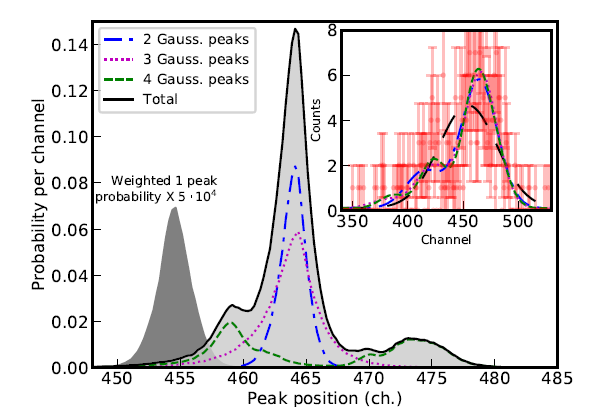
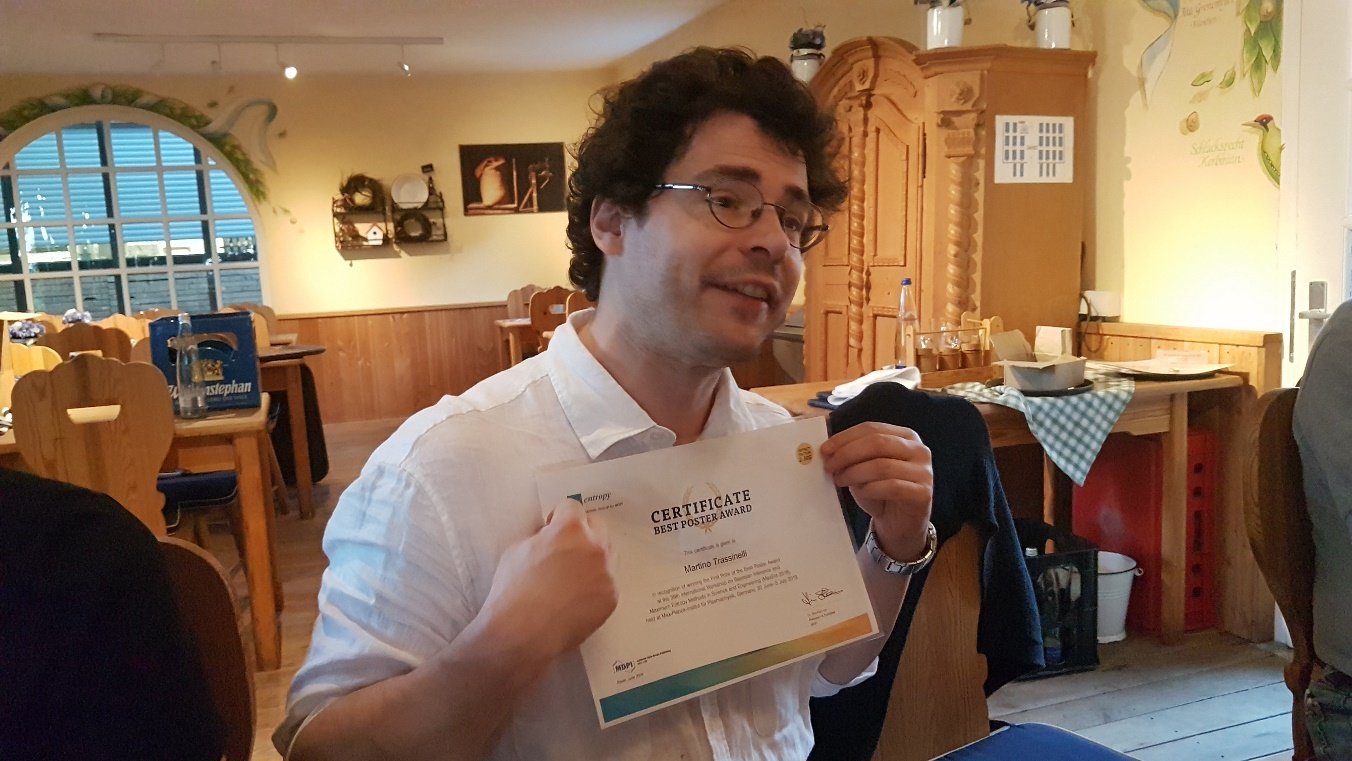
2nd prize (200 CHF, certificate)
“A Sequential Marginal Likelihood Approximation Using Stochastic Gradients” by Scott Cameron
Existing algorithms such as nested sampling and annealed importance sampling are able to produce accurate estimates of the marginal likelihood of a model, but tend to scale poorly to large datasets. This is because these algorithms need to recalculate the log-likelihood for each iteration by summing over the whole dataset. Efficient scaling to large datasets requires that algorithms only visit small subsets (mini-batches) of data on each iteration. To this end, we estimated the marginal likelihood via a sequential decomposition into a product of predictive distributions $p(y_n|y_{<n})$. Predictive distributions could be approximated efficiently through Bayesian updating using stochastic gradient Hamiltonian Monte Carlo, which approximates likelihood gradients using mini-batches. Since each datapoint typically contains little information compared to the whole dataset, the convergence to each successive posterior only requires a short burn-in phase. This approach can be viewed as a special case of sequential Monte Carlo (SMC) with a single particle, but it differs from typical SMC methods in that it uses stochastic gradients. We illustrate how this approach scales favorably to large datasets using some simple models.
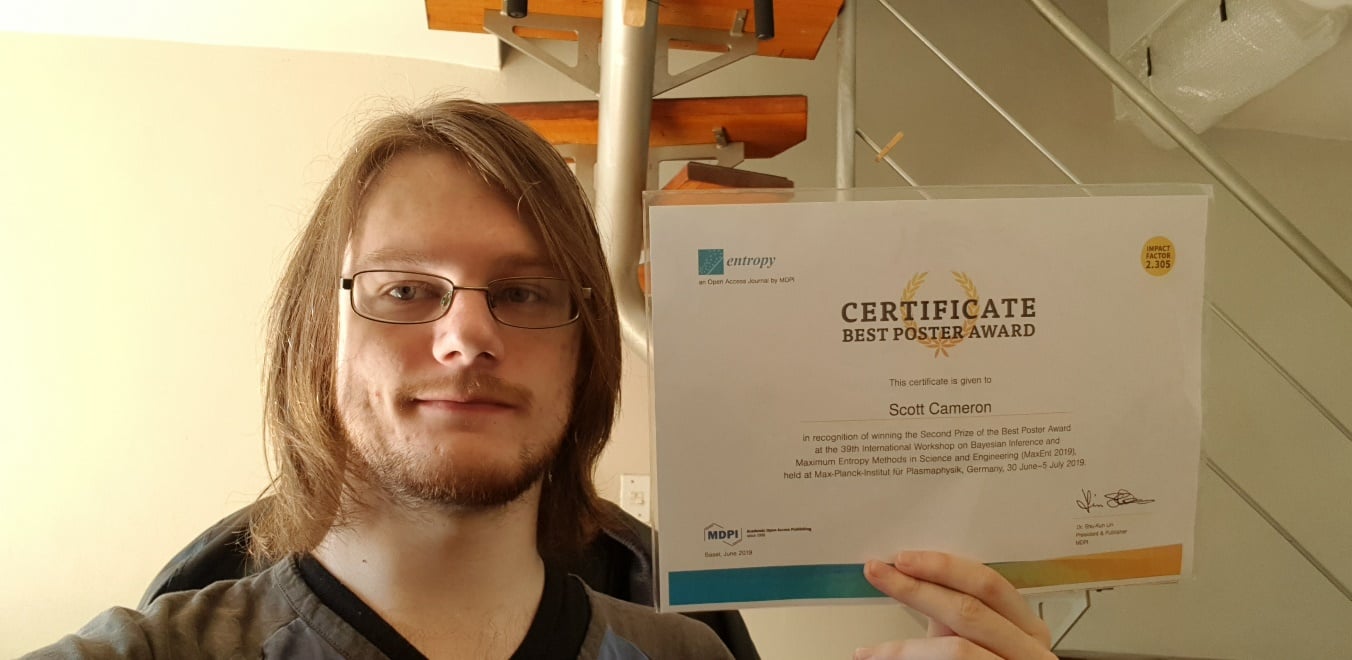
8 August 2019
Entropy Best Presentation Award at the International ICTP School "Complex Quantum Systems Out of Equilibrium in Many-Body Physics and Beyond"
We are pleased to announce the winner of the best presentation award that Entropy sponsored at the International ICTP School “Complex Quantum Systems Out of Equilibrium in Many-Body Physics and Beyond” in 27–31 May 2019, Yerevan, Armenia.
"The Large Nf Limit of 3D QEDs and Complex Fixed Points" by Hrachya Khachatryan
Quantum Electro-Dynamics (QED) in 2+1 dimensions is a paradigmatic example of a Quantum Field Theory with a strongly coupled infrared behaviour. We study QEDs with an even number Nf of bosonic or fermionic flavors, allowing for interactions respecting at least U(Nf/2)^2 global symmetry. Using large Nf techniques, we argue that in both the bosonic and in fermionic cases, there are four interacting fixed points: two with U(Nf/2)^2 symmetry, and two with U(Nf) symmetry. NLO corrections in 1/Nf suggest that upon lowering the number of flavors all these fixed points merge and annihilate pairwise into the complex plane or exchange their stability properties. The relevance of our studies to the phenomenon of chiral symmetry breaking is discussed.
6 August 2019
Preprints Reaches 10,000 Posted Articles Milestone
We are pleased to announce that Preprints has passed the milestone of 10,000 posted preprints. We are delighted to have reached this after just over three years of operation. Our congratulations and thanks go to our authors and advisory board who have supported growth of the platform and been crucial to its operation.
You can find further details at https://www.preprints.org/announcement/show/37.
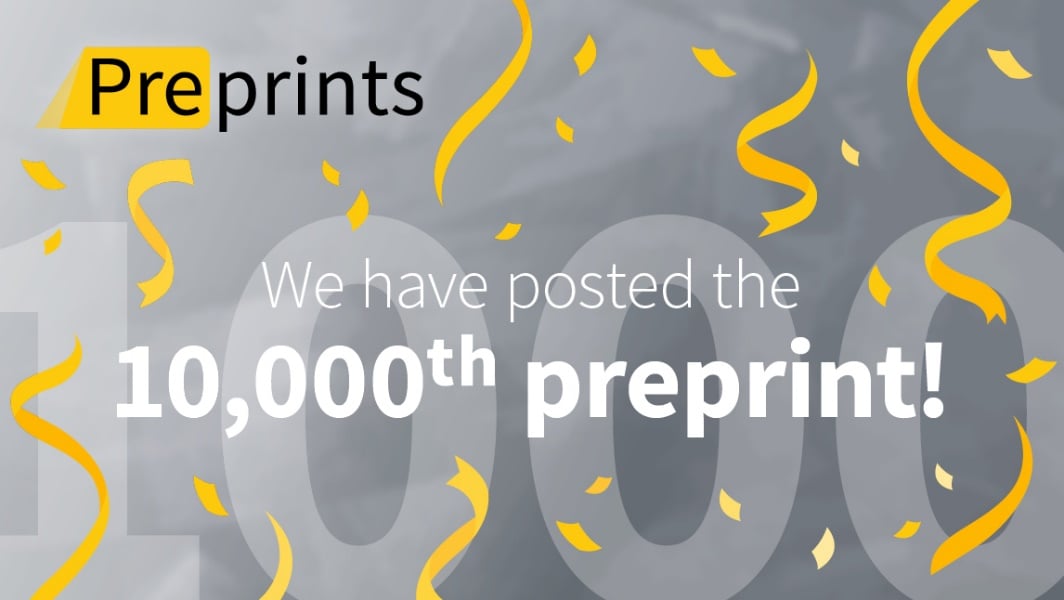
2 August 2019
DeepGreen Partnering with Publishers and Universities in Distributing Open Access Content to Institutional Repositories
Last week, the DeepGreen initiative in Germany started into an advanced test phase with the publishing partners S. Karger AG, SAGE Publishing, MDPI, Frontiers and De Gruyter, as well as 27 universities from all over Germany, from Hamburg University of Applied Sciences to University of Konstanz.
DeepGreen aims at lowering the barriers for open access publishing by automatically delivering metadata and full text publications from participating publishers to authorized repositories at German universities.
In preparation for a later live operation, the advanced test phase serves to gain experience with extensive data deliveries from publishers and also handling different repository software (including OPUS4, DSpace, EPrints, MyCoRe). DeepGreen thereby acts as a sophisticated platform, receiving articles published by authors affiliated with German universities and depositing these articles to respective university repositories, based on the affiliation metadata. For more information about DeepGreen: https://deepgreen.kobv.de
Karger AG has been a close cooperation partner of the DeepGreen consortium since 2016. S. Karger has more than 80 subscription-based and around 20 open access journals covering a wide spectrum in health science. DeepGreen will assign S. Karger articles to authorized institutions on the legal basis of German alliance and national licenses.
SAGE Publishing was founded by Sara Miller McCune in 1965 to support the dissemination of usable knowledge and educate a global community. SAGE publishes more than 1,000 journals and over 600 new books each year, spanning a wide range of subject areas. Our growing selection of library products includes archives, data, case studies and video. SAGE remains majority owned by our founder and after her lifetime will become owned by a charitable trust that secures the company’s continued independence. Principal offices are located in Los Angeles, London, New Delhi, Singapore, Washington DC and Melbourne. SAGE Publishing has been a close cooperation partner of DeepGreen since 2016.
MDPI is a scientific open access publisher and has been a partner of DeepGreen since 2017. MDPI comprises 205 peer-reviewed journals of various disciplines. All articles are published under a CC-BY license and are freely available without embargo period.
Frontiers is a scientific open access publisher with 61 journals of over 600 academic disciplines. All articles are peer-reviewed and published freely available under CC-BY license.
De Gruyter is an academic publisher with more than 700 subscription-based and open access journals of 29 disciplines. Articles provided by De Gruyter will be assigned to institutions with German alliance and national licenses.
There is promising communication with other publishers.
DeepGreen is funded by the German Research Foundation (DFG) and the consortium comprises six institutions: the Cooperative Library Network Berlin-Brandenburg, Bavarian State Library, Bavarian Library Network, University Library of the Technische Universität Berlin, University Library of Erlangen-Nuremberg and the Helmholtz Open Science Coordination Office at the GFZ German Research Centre for Geosciences.
If you would like to know in more detail which institutions take part in the advanced test phase of DeepGreen, you can find more information here.
30 July 2019
Entropy Best Presentation Award at CNS*2019 Workshop on Methods of Information Theory in Computational Neuroscience
We are pleased to announce the winner of the best presentation award that Entropy sponsored at the CNS*2019 Workshop on Methods of Information Theory in Computational Neuroscience in Barcelona, Spain, on 16–17 July 2019.
“Adaptability and Efficiency in Neural Coding” by Wiktor Mlynarski and Ann Hermundstad
The ability to dynamically adapt to changes in the environment is one of the defining features of sensory systems. In this work, together with my collaborator Ann Hermundstad of Janelia Research Campus, we developed a normative framework to analyze information processing in adaptive sensory systems. We showed that sensory codes optimized for performing task-relevant computations can be different from codes optimized for adapting to changes in the stimulus distributions that underlie these computations. These differences manifest in the speed of adaptation, the accuracy of the code during periods of adaptation, and the accuracy in the adapted state. Our results provide a unifying perspective on adaptation across a range of sensory systems, environments, and sensory tasks.
17 July 2019
First Basel Sustainable Publishing Forum
The University of Basel and the MDPI Sustainability Foundation are organizing the First Basel Sustainable Publishing Forum on 9th September 2019.
The aim of this event is to provide background and perspectives on Plan S to Learned Societies, which have to make well-informed decisions to transition their journals to Open Access (OA).
The BSPF will bring together several representatives of Learned societies, Plan S architects as well as representatives from various publishers and publishing platforms. After getting the big picture from cOAlition S, panel discussions will allow to better understand the diverse challenges that Learned societies are facing to transition their journals to OA as well as to identify sustainable, implementable and scalable solutions for successful Open Access transition.
For program details and registration, please follow the link below:
https://sciforum.net/conference/SustainableSolutionsToOpenAccess
8 July 2019
Entropy Best Poster Award at Quantum ThermoDynamics Conference (QTD)
We are pleased to announce the winner of the best poster award that Entropy sponsored at the Quantum ThermoDynamics Conference (QTD) in Espoo, Finland, on 23–28 June, 2019.
“Signature of the Transition to a Bound State in Thermoelectric Quantum Transport” by É. Jussiau, M. Hasegawa, and R.S. Whitney
We are studying a quantum dot coupled to two semiconducting reservoirs when the dot level and the electrochemical potential are both close to a band edge in the reservoirs. We have modelled this with an exactly solvable Hamiltonian without interactions (the Fano–Anderson model). The model is known to show an abrupt transition for a broad class of band structures as the dot–reservoir coupling is increased into the strong-coupling regime. This transition involves an infinite-lifetime bound state appearing in the band gap. We determined a signature of this transition in the continuum states of the model, visible as a discontinuous behavior of the dot’s transmission function. This can result in steady-state DC electric and thermoelectric responses having a very strong dependence on coupling close to critical coupling. We show examples where the electrical and thermal conductances and the thermoelectric power factor exhibit huge peaks at critical coupling, while the thermoelectric figure of merit grows as the coupling approaches the critical coupling, with a small dip when reaching it.
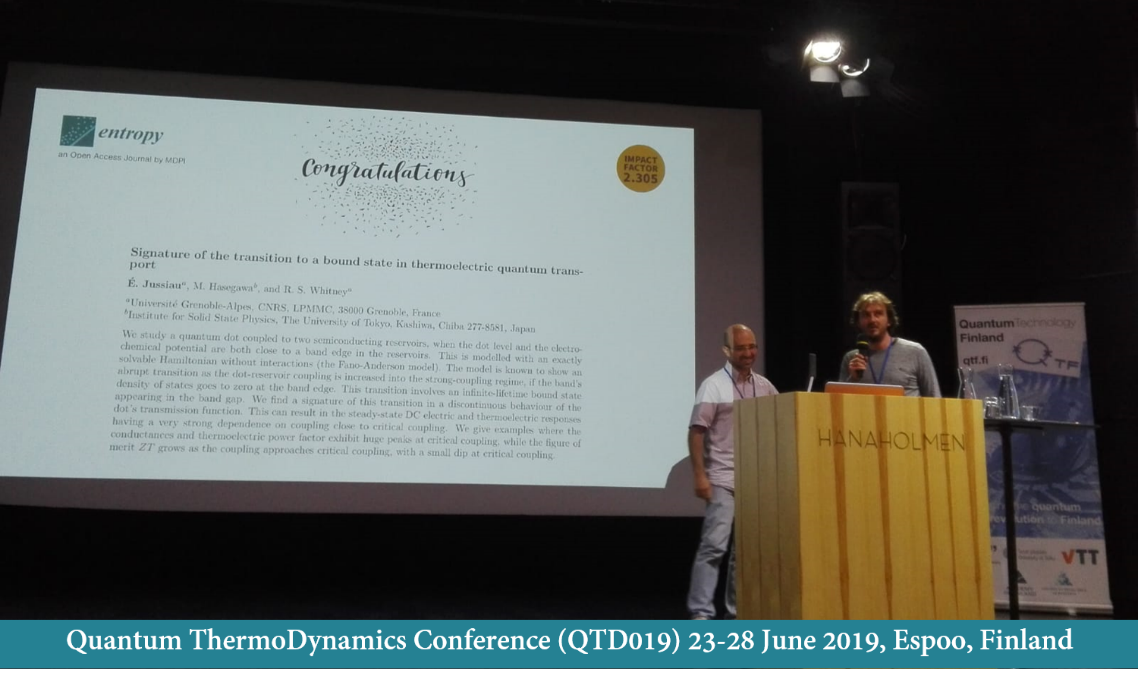
26 June 2019
Entropy Best Poster Awards at Quantum Information Revolution: Impact to Foundations (QIRIF)
We are pleased to announce the winners of the two poster awards that Entropy sponsored at the Quantum Information Revolution: Impact to Foundations (QIRIF) in Växö (Sweden) on 10–13 June, 2019. The Editor-in-Chief of Entropy, Prof. Dr. Kevin H. Knuth (University at Albany, NY, USA), granted the certificate to the winners.
1st prize (350 CHF, certificate)
"Local Observer-Independent Facts is a weaker assumption than Local Causality" by Anibal Utreras-Alarcon
We study the set of correlations that satisfy the assumptions of freedom of choice, locality (defined as parameter independence) and observer-independent facts. The set of these assumptions was previously shown to be in contradiction with the prediction of quantum theory by Caslav Brukner (Brukner, Entropy 20, 350 (2018)). We found that these correlations are not only different from quantum correlations, but also from those that are characterized by a local hidden-variables model. Indeed, the set of local observer-independent facts correlations is a superset of the set of the local hidden-variables model.
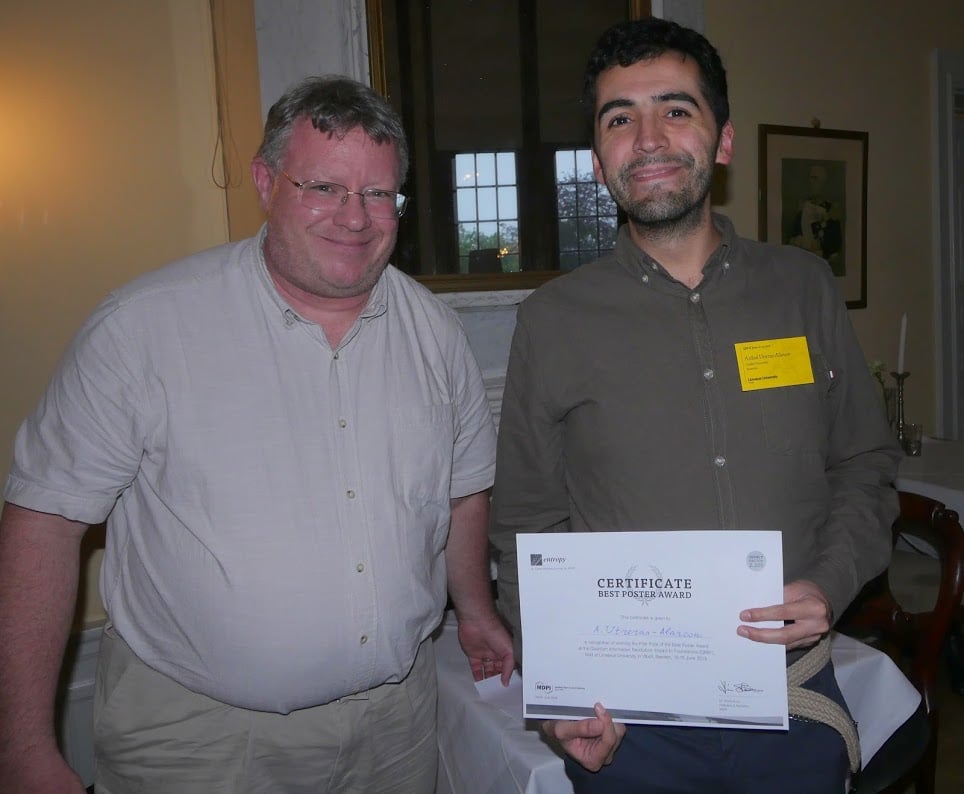
2nd prize (150 CHF, certificate)
"Using the Quantum Zeno Effect to Create Phase Contrast in Electron Microscopy" by Pieter Kruit
The concept of interaction-free measurements as proposed by Elitzur and Vaidman [1] for photons, should also work with electrons [2]. When built into a transmission electron microscope [3], this may lead to imaging modes with reduced damage. In our scheme, the electron wave is split by an amplitude splitter in a large component (the reference beam) that passes through a hole in the specimen and a small component (the sample beam) that passes through the sample. After the passage, both beams are cycled back to the amplitude splitter and the process is repeated. If the sample has no effect on the beam, the amplitude in the sample beam slowly builds up until it has the full intensity after m cycles. If the sample does have an influence, either on the amplitude or on the phase, the intensity transfer is disturbed by the quantum Zeno effect, and the intensity stays in the reference beam. Using the model explained in [4], the signals in the reference beam (R) and the sample beam (S) can be calculated as a function of the phase change in the specimen. To get an impression of what kind of images our method would produce, we simulate electron microscopy images of proteins and show “iso-phase lines” or “iso-phase areas” while only causing damage around these lines or in these areas.
[1] Elitzur, A.C.; Vaidman, L. Found. Phys. 1993, 23, 987–997.
[2] Putnam, W.; Yanik, M. Phys. Rev. A 2009, 80, 040902.
[3] Kruit, P.; R.G. Hobbs; C.-S. Kim; Y. Yang; V.R. Manfrinato; J. Hammer; S. Thomas; P. Weber; B. Klopfer; C. Kohstall; T. Juffmann; M.A. Kasevich; P. Hommelhoff; K.K. Berggren. Ultramicroscopy 2016, doi:10.1016/j.ultramic.2016.03.004.
[4] Thomas, S.; Kohstall, C.; Kruit, P.; Hommelhoff, P. Phys. Rev. A 2014, 90, 053840.
[5] The authors acknowledge funding from the Gordon and Betty Moore Foundation and the Netherlands Organization for Scientific Research (NWO).
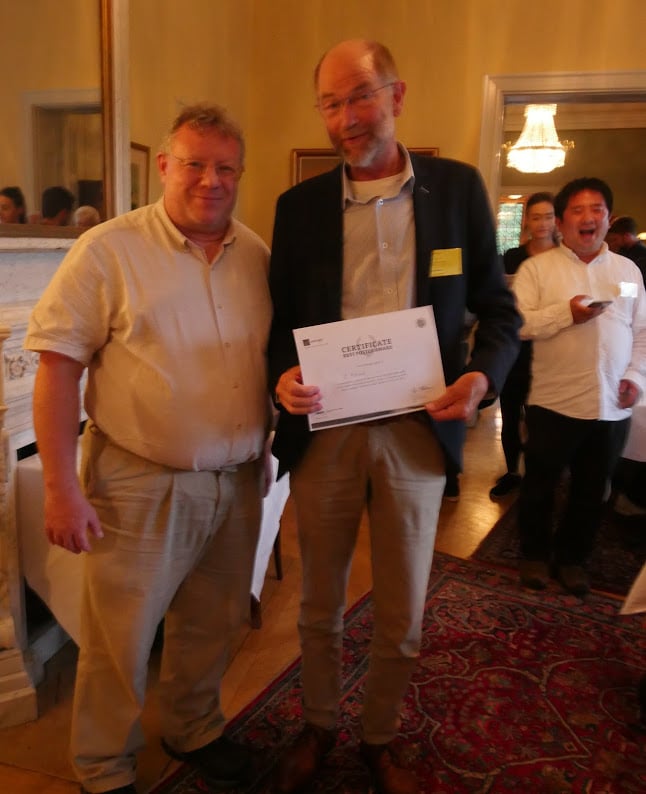
26 June 2019
Announcing the Winners of Two ISIT2019 Student Travel Grants
We are pleased to announce the winners of the ISIT2019 EU-based Student Travel Grants, sponsored by Entropy. The awards have been granted to the following two young researchers:
Massimiliano Rossi, PhD student at the University of Verona
Paper Title: Greedy Additive Approximation Algorithms for Minimum-Entropy Coupling Problem
Session: New Developments in Renyi Entropy
Location: Sorbonne, Level 5
Presentation Time: Tuesday, 09 July, 15:10–15:30
Shahar Stein Ioushua, Ph.D. candidate at Tel Aviv University.
Paper Title: Counting Graphs with a Given Degree Sequence: An Information-Theoretic Perspective
Session: Information Theory Methods in Graph Theory
Location: Saint Victor, Level 3
Presentation Time: Wednesday, 10 July, 10:50–11:10
20 June 2019
Entropy Receiving 2018 Updated Impact Factor of 2.419
We are pleased to inform that Entropy received an updated Journal Impact Factor of 2.419 in the recent release of the Journal Citation Reports®. The journal's 5-Year Impact Factor is 2.505. Entropy now ranks 28/81 (Q2) in 'Physics, Multidisciplinary'.
Evolution of Impact Factor, Citations and Publications for Entropy:
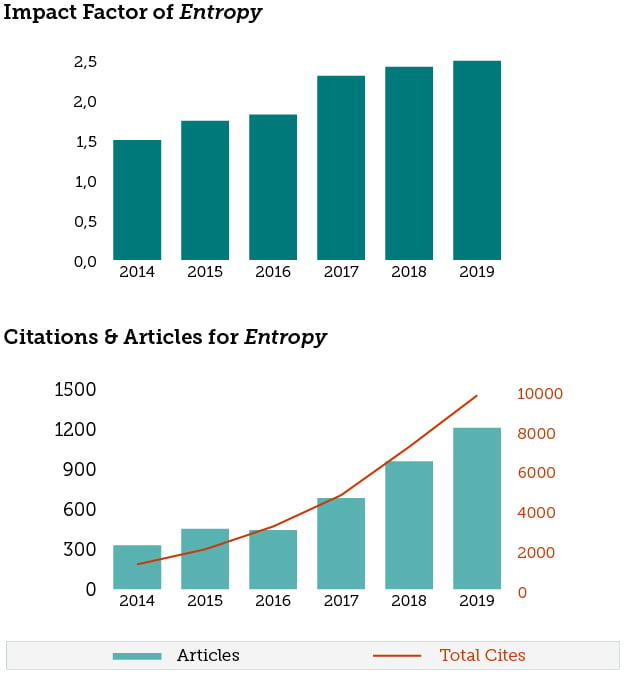
Source: data according to Journal Citation Reports®, 2018 release, a Clarivate Analytics product; and Scopus journal metrics.
18 June 2019
Meet Us at GR22 and Amaldi13 in Valencia, Spain, 7–12 July 2019
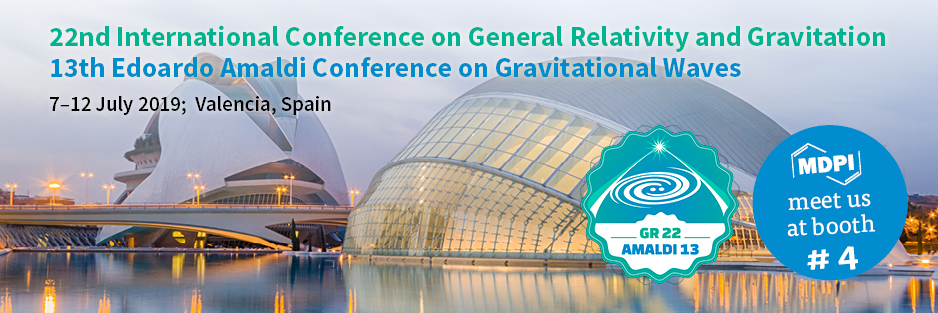
We will be attending the GR22 and Amaldi13 event to be held in Valencia, Spain, 7–12 July 2019.
GR22 is the latest in the series of triennial international conferences held under the auspices of the International Society on General Relativity and Gravitation. This conference series constitutes the principal international meetings for scientists working in all areas of relativity and gravitation. The Amaldi conferences are held under the auspices of the Gravitational Wave International Committee. Since 1997, they have been held every two years and are regarded as the most important international conference for the gravitational wave detection community.
In Valencia, GR22 and Amaldi13 are organized as a joint event. The organization is coordinated by Drs. José Antonio Font and José Navarro-Salas from the University of Valencia (UV)/Instituto de Física Corpuscular (UV-CSIC), on behalf of a large national committee. Organizational support is provided by the Fundación Universidad Empresa UV - ADEIT.
The following MDPI journals will be represented:
Universe
Galaxies
Symmetry
Entropy
If you are also attending this conference, please feel free to stop by our booth (Booth #4). Our delegates look forward to meeting you in person to answer any questions you may have. For more information about the conference, please visit https://www.gr22amaldi13.com/.
11 April 2019
2019 Entropy Travel Award Winners Announced
We are pleased to announce the winners of the 2019 Travel Awards, sponsored by MDPI and Entropy. The awards were granted to three outstanding young researchers working in the thematic areas:
Information Theory
Zahra Baghali Khanian is a PhD student at ICFO Barcelona and UAB Barcelona. She works on quantum Shannon theory and applications in quantum information. She is planning to present her works “Distributed Compression of Correlated Classical-Quantum Sources: The Price of Ignorance” and “Entanglement-Assisted Quantum Data Compression” at the 2019 IEEE International Symposium on Information Theory (ISIT2019, 7–12 July 2019, Paris, France). The award consists of 800 Swiss Francs to be used to attend this conference.
Statistical Theory
Lorenzo Caprini is a PhD student at Gran Sasso Science Institute (GSSI), whose research is focused on the study of active matter systems. He is planning to present his work “Activity-Induced Delocalization and Freezing in Self-Propelled Systems” at the 27th International Conference on Statistical Physics (StatPhys 27, 8–12 July 2019, Buenos Aires, Argentina). The award consists of 800 Swiss Francs to be used to attend this conference.
Thermodynamics
Julian Gonzalez Ayala is a post-doctoral fellow at the University of Salamanca, whose research interest involves general properties of thermodynamics systems, optimization and stability of operation regimes, thermal fluctuations, multi-objective optimization, optimization of hybrid power plants, and entropy analysis of complex systems and self-organized critical systems. He is planning to present his work “Thermodynamic Self-Improvement in the Stability of a Low Dissipative Refrigerator Engine” at the 15th Joint European Thermodynamics Conference (JETC2019, 21–24 May 2019, Barcelona, Spain). The award consists of 800 Swiss Francs to be used to attend this conference.
Selecting the three winners was a difficult decision, as we received many high-quality applications from around the world. We thank all applicants. We look forward to receiving more applications for the Entropy 2020 Travel Awards which will be open for applications from September 2019.
For more information about Entropy awards, please check: https://www.mdpi.com/journal/entropy/awards
20 March 2019
Fostering Open Access Publishing Worldwide: New IOAP Participants in February and March 2019
We are pleased to welcome more universities from Poland, Italy, Germany, Brazil and other parts of the world to MDPI's Institutional Open Access Program (IOAP). A warm welcome to the institutions listed below, who have joined the Program in February and March this year.
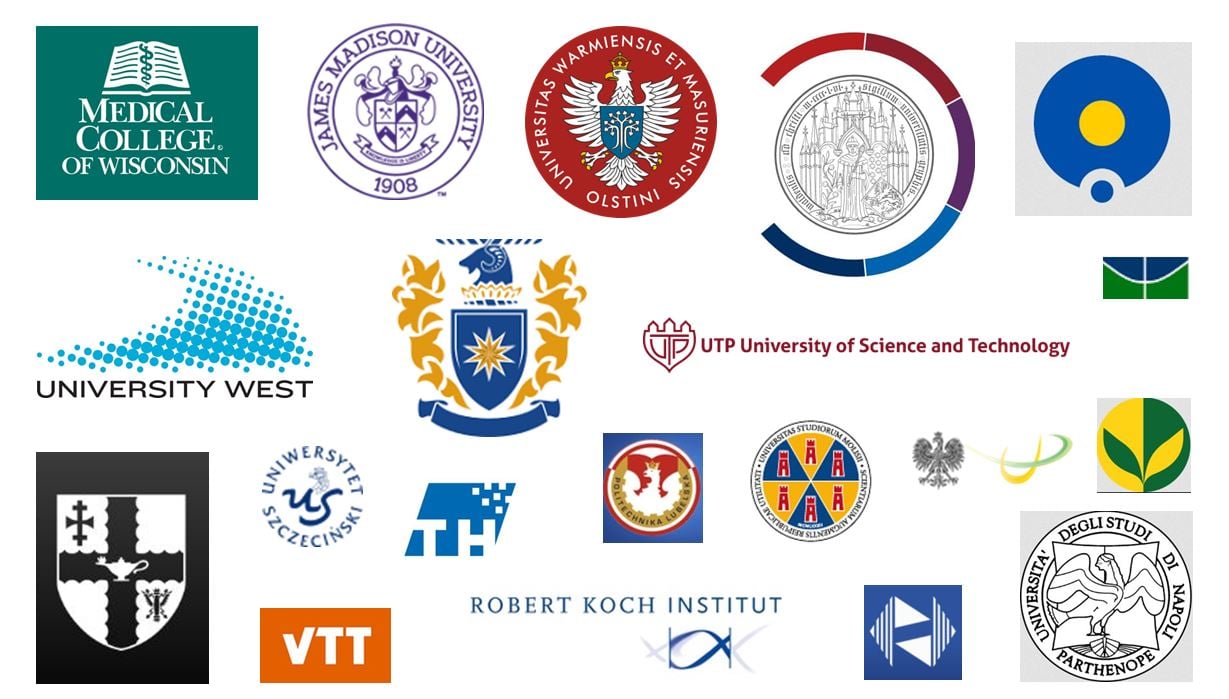
Authors affiliated with these institutions can now enjoy a discount on the APC for papers accepted for publication in any MDPI journal. If you would like to learn more about our program, please visit: https://www.mdpi.com/about/ioap or email us at ioap@mdpi.com.
15 March 2019
Meet Us at the 2019 IEEE International Symposium on Information Theory in Paris, France, 7–12 July 2019

MDPI will be attending the 2019 IEEE International Symposium on Information Theory (ISIT 2019), to be held in Paris, France, 7–12 July 2019.
ISIT is the premier international conference dedicated to the advancement of information theory and related areas. Each year, it brings together an international community of researchers and practitioners in the field of information theory to present and discuss new research results and perspectives on future developments relevant to all areas of information theory, including big data analytics, source and channel coding, communication theory and systems, cryptography and security, detection and estimation, emerging applications, networks, network coding/information theory, signal processing, and statistical/machine learning.
The following ten MDPI journals will be represented:
Entropy
Information
Future Internet
Algorithms
Journal of Sensor and Actuator Networks
Computers
Big Data and Cognitive Computing
Axioms
Data
Cryptography
If you are also attending this conference, please feel free to stop by our stand. Our delegates look forward to meeting you in person to answer any questions you may have. For more information about the conference, please visit: https://2019.ieee-isit.org/.
5 March 2019
MDPI Joins Jisc’s Publications Router Service
We are delighted to announce our participation in Jisc’s Publication Router project, as of March 2019.
Publications Router is a Jisc service that automatically sends notifications about research articles to institutions' systems such as their repositories or CRISs, since May 2015. Through this agreement, MDPI will provide Jisc with daily feeds and information regarding published articles, which will be gathered by their system and delivered to institutions also registered to this service. Nearly all of our articles are published within 15 days of acceptance, so institutions will receive them quite promptly.
The feed will include the full text of the published version of record, with no embargo, so the articles can be exposed immediately for public view. They are accompanied by rich metadata, including confirmation of the immediate CC BY licence, minimising the need for any manual intervention or checking.
For more information about Publications Router, you may contact Jisc’s central helpdesk at help@jisc.ac.uk. For any queries about MDPI’s institutional agreements and collaborations, you may get in touch with MDPI’s Institutional Engagement team at ioap@mdpi.com, which would be very happy to hear from further UK institutions.
1 February 2019
2018 MDPI Top Reviewer Award—Winners Announced
Rigorous peer-review is the cornerstone of high quality academic publishing. Over 97,000 scholars served as reviewers for MDPI journals in 2018. We are extremely appreciative of all those who made a contribution to the editorial process in this capacity. At the beginning of every year, journal editorial offices publish a list all reviewers’ names to express our gratitude. In addition, this year the “MDPI Top Reviewer Awards” are announced, to recognize the very best reviewers for their expertise, dedication, high quality, and timely review reports. We are pleased to announce the following winners of the 2018 MDPI Top Reviewer Awards:
- Ali Behnood
- Andrea Pezzuolo
- Angela Gorgoglione
- Anna D'Auria
- Antonio D'Andrea
- Azhar Abbas
- Bogdan Zagajewski
- Chunhui Chen
- Dominika Głąbska
- Dominika Guzek
- Dragan Pamucar
- Francisco J. G. Silva
- Frank Li
- Gianluca Serafini
- Gyorgy Szekely
- Haozhi Pan
- Helvi Heinonen-Tanski
- José Manuel Gómez-Soberón
- Kathy Lewis
- Klara Kosova
- Luis N. López De Lacalle
- M. Z. Naser
- Malwina Tytła
- Masoume Amirkhani
- Matteo Ghidelli
- Moretti Laura
- Petra Schneider
- Roberto Cerchione
- Spyros Papaefthymiou
- Ştefan Cristian Gherghina
24 January 2019
JAMS Journals: A Low-Cost Publishing Platform
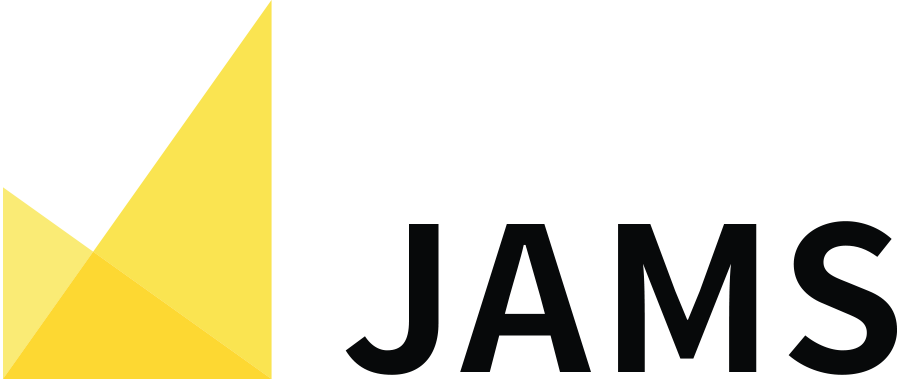
Since 2010, MDPI has run its own online submission system. More recently, we have made the software, with accompanying publishing services, available to other publishers as JAMS (Journal and Article Management System). We are now delighted to announce the launch of JAMS Journals, a standardized platform for operating open access journals at low cost.
JAMS Journals provides a comprehensive service, including a shared submission website, journal websites hosted at a URL provided by the publisher, and a full production service. There is a small setup fee and the cost for each published paper is just a few hundred Swiss francs.
The platform demonstrates that running an open access journal can be straightforward and affordable. The JAMS Journals platform is suitable for
- small publishers or groups of scholars looking to launch their own journal;
- existing publishers or societies seeking to explore open access options;
- publishers looking to convert an existing subscription journal to open access.
JAMS journals launches with two journals from Canadian-based publisher Etcetera Publications:
- Canadian Journal of Pesticides & Pest Management (http://www.cjppm.ca)
- Nanotechnology in Agriculture, Food & Environment (http://www.nanoafe.ca)
Dr AJ Al-Rajab (President of Etcetera Publications) comments:
“In the past few months, we were working on our project to launch new open access scientific journals in the field of agricultural and environmental sciences. We decided to go with JAMS for this venture because of the high quality of their services, reasonable prices, professionalism and easy communication. Our portfolio is expected to grow rapidly during 2019 to include more titles covering different areas in agriculture and environment. MDPI earned already our complete satisfaction and we are looking for a long term cooperation.”
Alongside the new platform, we continue to provide flexible, tailored journal management solutions for existing publishers. For any questions or to request a quotation, contact Dr. Constanze Schelhorn (constanze.schelhorn@mdpi.com).
24 January 2019
Popularity of Preprints Continues to Grow

2018 was a great year for preprints, with increasing numbers of authors looking to make their papers available online before peer review. Along with other preprint servers, our platform Preprints.org saw an increase in the uptake from authors, and more than double the number of announced papers compared to 2017. In fact, we recently passed two important milestones: 8000 preprints online and 30,000 authors.
We believe that the whole research community has the opportunity to benefit from work being available online as early as possible. We thank and congratulate our authors for supporting us to make this goal a reality.
In 2019, we will be looking carefully at how to provide better value for authors, maintain efficiency while growing in size, and make sure we remain well-connected with the research community.
If you want to participate, you can consider screening preprints or joining our advisory board. And, of course, posting your own work.
14 January 2019
Entropy: 2018 Best Paper Award Winners Selected
The editorial team would like to congratulate the winners of the 2018 Entropy Best Paper Awards. The winner nominations were made by a selection committee, which was chaired by the Editor-in-Chief and supported by twelve Editorial Board Members. The two top-voted papers, in no particular order, have won the 2018 Entropy Best Paper Award (in no particular order):
Critical Behavior in Physics and Probabilistic Formal Languages
Henry W. Lin and Max Tegmark
Entropy 2017, 19(7), 299; doi:10.3390/e19070299.
Available online: https://www.mdpi.com/1099-4300/19/7/299
Download PDF here.
Multiscale Information Decomposition:
Exact Computation for Multivariate Gaussian Processes
Luca Faes, Daniele Marinazzo, and Sebastiano Stramaglia
Entropy 2017, 19(8), 408; doi:10.3390/e19080408
Available online: https://www.mdpi.com/1099-4300/19/8/408
Download PDF here.
We congratulate the authors and we thank them for having chosen Entropy to publish their work.
9 January 2019
Open Access Agreement between the Austrian Academic Library Consortium (KEMÖ), the Austrian Science Fund (FWF), and MDPI

We are delighted to announce the establishment of our national Open Access agreement with the Austrian Academic Library Consortium (KEMÖ) and the Austrian Science Fund (FWF). Through this national agreement, the Austrian institutions listed below as well as FWF will cover the Article Processing Charges (APC) of manuscripts published by eligible corresponding or funded authors in MDPI journals as long as central funds are available.
All participating institutions have gained access to the MDPI online submission system where they can find full article metadata and pricing information as well as Funder and Grant ID details for easy identification and additional transparency. At the same time eligible authors are benefited from an APC discount which comes at no cost for the institutions.
Eligible corresponding authors affiliated with the participating institutions are prompted to choose the corresponding Institutional Open Access Program (IOAP) when they submit an article via our online submission system. The program will be selected automatically if authors submit their papers using their institutional email address. To claim their discount, FWF funded authors should choose the particular funder and add their Grant ID upon online submission of their manuscript. The institutions will then crosscheck the information and confirm the APC funding.
Eligible authors that have their APC covered by their institution or funder are advised to include the following sentence in their acknowledgments: "Open Access Funding by the [name of the institution/funder]".
The full text of the agreement is openly available online at: http://doi.org/10.5281/zenodo.2536007
For any questions about the agreement, please contact the KEMÖ Consortium at emedien@obvsg.at, FWF at Katharina.Rieck@fwf.ac.at, or the MDPI IOAP team at ioap@mdpi.com.
The Austrian institutions participating in this agreement are:
- Austrian Science Fund (FWF)
- University for Continuing Education Krems
- University of Applied Sciences BFI Vienna
- University of Applied Sciences Upper Austria
- University of Applied Sciences Technikum Wien
- Vorarlberg University of Applied Sciences
- International Institute for Applied Systems Analysis (IIASA)
- Institute of Science and Technology Austria
- MCI Management Center Innsbruck
- University of Graz
- University of Linz
- University of Salzburg
- Graz University of Technology
- TU Wien
- University of Veterinary Medicine Vienna
- University of Vienna
This is our first collective agreement with a national library consortium, while the individual institutions around the world participating in our IOAP are now more than 500 - see details here: https://www.mdpi.com/about/ioap. We would be mostly interested in discussing about possible collaborations with other consortia, funders, and institutions in our mutual efforts to accelerate Open Access.
2 January 2019
Encyclopedia—the Scholarly Community Encyclopedia

We are pleased to announce the new platform Encyclopedia, which is an online reference created and curated by active scholars. It aims to highlight the latest research results as well as providing benchmark information for researchers and the general public interested in accurate and advanced knowledge on specific topics.
We encourage authors of review articles to quote and adapt the content of their published papers to create Encyclopedia entries. You can create completely new entries on topics in which you have knowledge and expertise. There is no limit on the topics or research fields. All of science and the humanities are included. Each entry will be published directly after submission.
We also have prepared a DOI application function in Encyclopedia. Once a DOI application is approved, the entry website will announce the DOI number and a pdf version with DOI information will be automatically created.
We look forward to your contributions and hope you will make use of this service. Find more about the service at: https://encyclopedia.pub/
30 November 2018
Entropy Journal Travel Awards 2019: Open for Applications
Entropy is currently accepting applications and nominations for three Travel Awards to sponsor postdoctoral fellows or PhD students to attend a relevant conference of their choice in 2019. For more information about the awards and how to apply, click here.
The three thematic areas for the three Travel Awards are:
Information Theory
Statistical Mechanics
Thermodynamics
Applicants can choose only one Travel Award to apply for. Applicants applying to more than one award will be disqualified from all awards.
Please apply the award here by 28 February 2019. The winner will be announced by 31 March 2019.
30 October 2018
Institutional Open Access Agreement between Bill and Melinda Gates Foundation and MDPI

We are delighted to announce that the Bill and Melinda Gates Foundation (BMGF) is now a participant of our Institutional Open Access Program (IOAP). Authors funded by the BMGF can enjoy discounts on the APC, while the funder covers the costs of eligible articles centrally. BMGF also has access to the MDPI online submission system where they can find full article metadata and pricing information as well as Grant ID details for easy identification and additional transparency.
We hope that funded authors find the programme beneficial and we are happy to offer our IOAP to other funders that need a streamlined workflow of compliance checking and APC coverage.
To claim their discount, BMGF funded authors should choose the particular funder and add their Grant ID upon online submission of their manuscript.
For any questions about the BMGF agreement, please contact the funder at support@chronos-oa.com or the MDPI IOAP team at ioap@mdpi.com.
24 October 2018
Call for Expression of Interest in Hosting the Entropy Conference
The Entropy Steering Committee seeks Expressions of Interest (EoI) from universities/organizations/individual scholars to host an edition of the Entropy Conference Series. There is no restriction in the geographic areas considered.
What is Entropy?
Entropy is a conference series dedicated to bring together scientists and leaders from different areas to discuss important recent developments and ideas of cutting-edge research related to Entropy.
The First Entropy conference was held in 2018 in Barcelona, Spain. This conference brought researchers with an inter-disciplinary nature of contributions from both theoretical and applied perspectives of Entropy, that ranged from Physics to Information theory. You can find a brief summary of the first edition here.
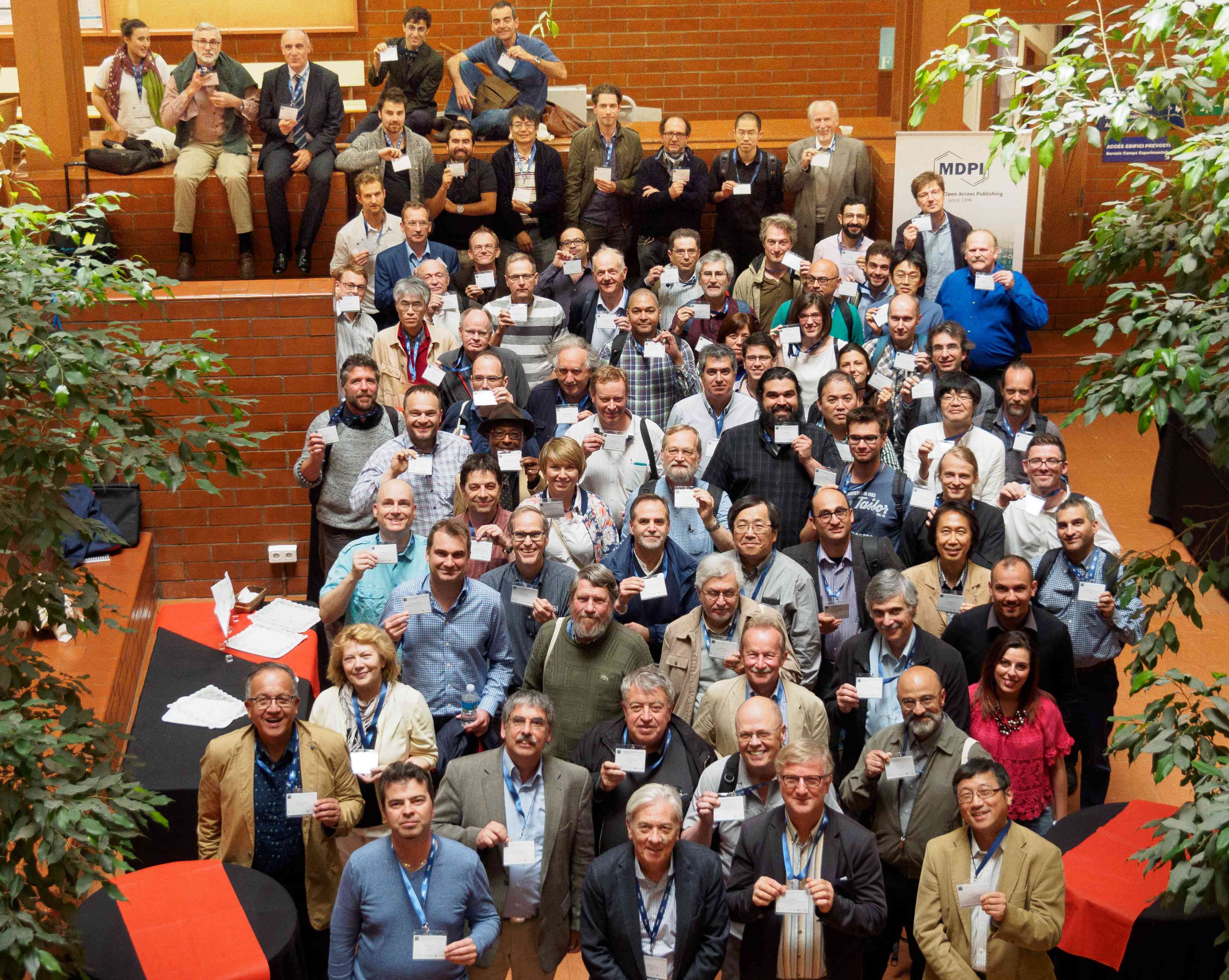
The Selection Committee looks forward to receiving your EoI. Please feel free to forward this call for EoI to other interested parties.
Please note that the follow-on editions will not be restrained to the topics discussed in previous editions and, therefore, new and different topics within the Entropy field are sought.
Important Dates
The Entropy conference is organized every two years. The Entropy Steering Committee is accepting EoIs to organize editions from 2020 onwards.
Facts
Bidders must have the facility to organize and host a three-day symposium of roughly 150–200 participants including:
- Easy access to the symposium venue and the capability to offer a wide range of services, such as catering, WLAN and internet services, organization of social events.
- Ability to cover all costs with registration fees and sponsoring.
When necessary, and based on the input provided by the local host, MDPI will provide administrative support and will manage the website on Sciforum. MDPI will help to edit the abstracts and prepare the conference book. MDPI will help to design the logos and banners for the conference website, flyers, posters, roll-ups, lanyards, conference bags, etc. following the style of previous Entropy edition. MDPI will promote the new conference edition on relevant MDPI journals and any other relevant communication channels.
Expression of Interest Instructions
- EoI must be submitted to EoI@mdpi.com by 30 November 2018
- The length of the application should not exceed two A4 pages and should include:
- Name(s) of the bidder(s), contact details and a short biography
- Name of the planned venue (city and infrastructure)
- Proposed dates for the conference
- Proposed topics for the conference
2 October 2018
MDPI Welcomes Plan S
Recently, it was announced that a group of European funders supported 10 principles that will help to expand open access, known as Plan S. MDPI warmly welcomes this move as a step towards achieving more open and accessible communication of research across all disciplines. Some aspects remain to be clarified, however the details given so far match the aims and values that MDPI has held over the past two decades.

We believe that open access publishers should be active participants in discussions around Plan S, particularly regarding potential new business models and practical aspects of implementation. MDPI supports APCs as a transparent unit of payment for article publishing, however we are committed to exploring other measures and recently signed the Jussieu Call. Sustainability is a key value for MDPI, and future funding models should have at their heart the sustainability of knowledge and research dissemination. Plan S provides an opportunity for funders and publishers to directly discuss funding of open access journals in ways that are beneficial to all parties involved.
21 September 2018
Meet Us at the 2018 IEEE Information Theory Workshop in Guangzhou, China, 25–29 November 2018

Our editors will be attending the 2018 IEEE Information Theory Workshop (ITW 2018), to be held in Guangzhou, China, on 25–29 November 2018.
ITW 2018 solicits and welcomes original contributions on the frontiers of information theory, coding theory and their applications, as well as the frontiers with other fields of study such as data science, biology and signal processing. The conference structure consists of a daily plenary seminar followed by two parallel paper sessions throughout the day.
The following four MDPI journals will be represented:
Entropy
Information
Challenges
Cryptography
31 August 2018
Entropy Best Early Career Researcher Presentation Award Winners
The editorial team of Entropy would like to congratulate the winners of the two Best Early Career Researcher Presentation Awards that Entropy sponsored at the Workshop on Methods of Information Theory in Computational Neuroscience in Seattle (USA) on 17–18 July 2018. Dr. Joseph Lizier (The University of Sydney), the Editorial Board Member of Entropy and Chair of the Workshop, granted the certificate to the winners:
Dr. Siwei Wang (Hebrew University of Jerusalem) for her work “Closing the gap from structure to function with information theoretic design principles”;
Dr. Rainer Engelken (Columbia University) for his work “How input spike trains and recurrent dynamics shape the entropy of cortical circuits”.
Congratulations to both of them!
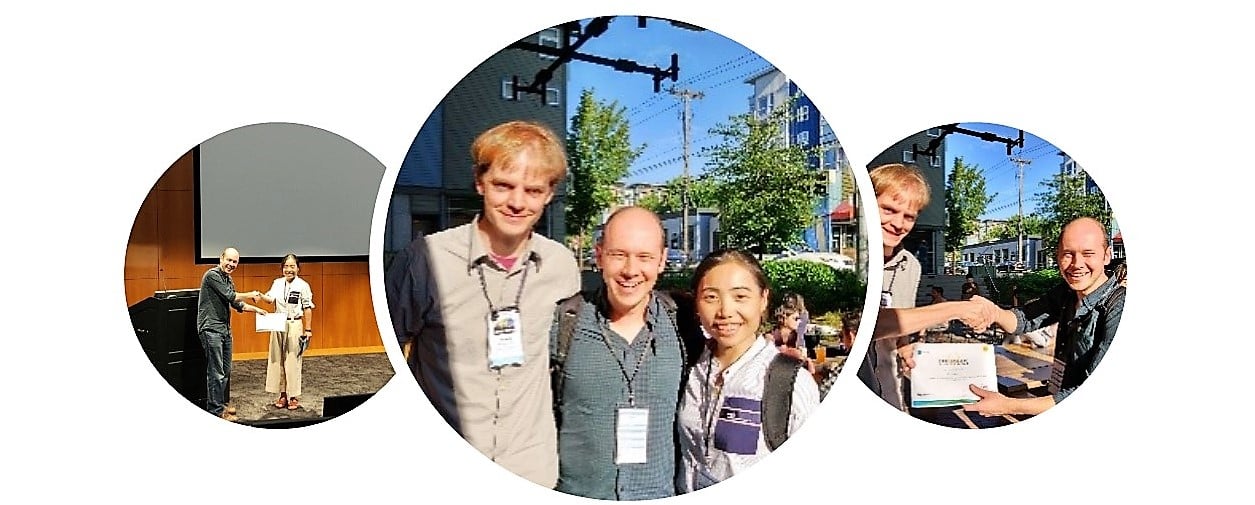
30 August 2018
MDPI establishes Open Access agreement with Qatar National Library

We are happy to announce the establishment of an Open Access (OA) agreement with Qatar National Library (QNL). QNL is committed to supporting and helping Qatar authors publish OA at no cost. Through this national agreement, QNL will cover the Article Processing Charges (APC) of manuscripts published by Qatar-based corresponding authors in MDPI journals.
Eligible corresponding authors affiliated with Qatar research centers and universities are prompted to choose QNL as part of our Institutional Open Access Program (IOAP) when they submit an article via our online submission system. The program will be selected automatically if authors submit their papers using their institutional email and/or a computer registered with the institution’s IP range. QNL will then crosscheck the information and confirm the APC funding.
Qatar authors that have their APC covered by QNL are advised to include the following sentence in their acknowledgments: "The publication of this article was funded by Qatar National Library".
For more information, please visit Open Access at QNL or email the QNL Open Access team at openaccess@qnl.qa.
31 July 2018
Winner of the Entropy Best Paper Award at MaxEnt 2018—Sascha Ranftl
The editorial team of Entropy is happy to announce the winner of the Best Paper Award at the Max Ent 2018 conference, held in British Library, London, UK on 2–6 July 2018. The most outstanding paper was selected by an evaluation committee chaired by Prof. Emma McCoy.
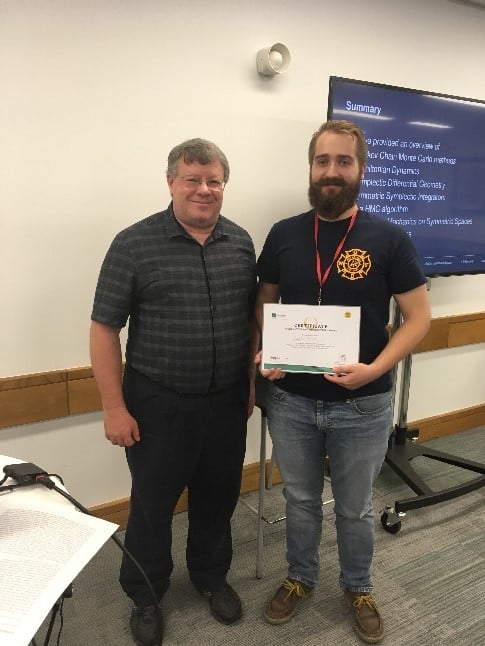
The Editor-in-Chief of Entropy, Prof. Dr. Kevin H. Knuth (University at Albany, NY, USA), granted the certificate to the winner Mr. Sascha Ranftl (Graz University of Technology, Austria), whose work was titled “Bayesian Analysis of Femtosecond Pump-Probe Photoelectron-Photoion Coincidence Spectra”.
The awarded paper sheds light on the statistics of coincidence measurements, where a single electron is assigned to a single ion, both originating from the same ionization event. In combination with ultrafast lasers, this technique allows to understand the dynamics of molecules in the regime of femtoseconds. By employing Bayesian probability theory to deal with false coincidences, which an experimentalist cannot distinguish from true coincidences, the authors find significant impact on the analysis of the experimental data, and the interpretation of the underlying physical processes therefore.
Sascha Ranftl recently completed his Master’s Thesis, in the role of an experimentalist, in the femtosecond laser lab under the supervision of Prof. Markus Koch (Institute of Experimental Physics) and now enrolled in a PhD at the Institute of Theoretical and Computational Physics under the supervision of Prof. Wolfgang von der Linden. His current research interest concerns applications of Bayesian inference in the field of biomedical engineering, particularly computational biomechanics and the modelling and simulation of the life-threatening disease “aortic dissection”.
27 July 2018
Entropy Best Poster Awards at Linnaeus Conference: Towards Ultimate Quantum Theory (UQT)
We are pleased to announce the winners of the two poster awards that Entropy sponsored at the Linnaeus Conference: Towards Ultimate Quantum Theory (UQT) in Växö (Sweden) on 11–14 June, 2018.
1st prize (350 CHF, certificate)
“A quest for an epistemic reset in higher dimensional space” by R.C.-Z. Quehenberger
Suggests a unified world view by means of a five-dimensional geometry that renders Kaluza-Klein’s theories—as confirmed by Louis de Broglie in 1927—visually accessible. Moreover, this unification between the GRT-cosmology and QM derived from the 3D representation of the Penrose Kites and darts tiling provides fundamental structures used in quantum information, as well as in Kepler’s planetary motions as comprised in the Poincaré homology sphere as a model for the universe.
2nd prize (150 CHF, certificate)
“Quantum Field with Time as a Dynamical Variable” by H.Y. Yau
Proposes that the properties of a zero-spin bosonic field can be reconciled by allowing matter to vibrate in time. These temporal vibrations are introduced to restore symmetry between time and space in the matter field. The system, with vibrations of matter in time, obeys the Klein–Gordon equation and the Schrödinger equation. The observable energy is quantized under the constraint that a particle's mass is on shell. There is only a probability of observing a particle at a given location. In addition, the spacetime outside a particle with oscillation in time satisfies the Schwarzschild field solution.
25 July 2018
Meet Us at the 2018 Quantum Technology International Conference in Paris, France, September 5–7, 2018

MDPI will be attending the 2018 Quantum Technology International Conference (QTech 2018), to be held in Paris, France, 5–7 September 2018.
The objective of the QTech conference is to present the latest developments of quantum technologies in the domains of quantum communication, computation, simulation, sensors and metrology, and their implementation using various platforms from atoms and ions to solid states, superconducting circuits and optics.
The following eight MDPI journals will be represented:
Entropy
Technologies
Atoms
Photonics
Computation
Condensed Matter
Cryptography
Quantum Reports
If you are also attending this conference, please feel free to stop by our booth (you can find us easily in the exhibition area). Our delegates look forward to meeting you in person to answer any questions you may have concerning open access publishing and our journals. For more information about the conference, please visit: https://premc.org/conferences/qtech-quantum-technology/.
26 June 2018
2017 Impact Factor Released for Entropy: 2.305
We are pleased to inform that Entropy received an updated Journal Impact Factor of 2.305 in the June 2018 release of the Journal Citation Reports®. The journal's 5-Year Impact Factor is 2.303. Entropy now ranks 22/78 (Q2) in the category 'Multidisciplinary Physics.'
Overview of Citation Metrics:
- Journal Impact Factor, 2 yrs (2017): 2.305
- 5-Year Impact Factor (2017): 2.303
- CiteScore, 3 yrs (Scopus): 2.41
- SJR Scimago Journal Rank 2017 (SJR): 0.592
- Source Normalized Impact 2017 (SNIP): 1.189
Evolution of Impact Factor, Citations and Publications for Entropy:
1 June 2018
Entropy 2017 CiteScore™ Announced - 2.41
We are pleased to report Entropy received a CiteScore of 2.41 for 2017. The metric reflects citation activity in 2017 in Scopus for papers published in the period 2014‒2016.
For the full details in the current CiteScore release, please see the journal's Source profile. To check the full list of MDPI journals receiving CiteScores, please see here.
31 May 2018
2017 CiteScore™ Metrics Released
The 2017 CiteScore™ data is available now, based on citation data in the Scopus® database. The current CiteScore reflects citation activity in 2017 for articles published in 2014‒2016. Please note that the list below includes journals assigned a CiteScore in this year’s release. For a full list of journals indexed in Scopus, please see our journal list.
Thirteen of our journals received a CiteScore which is in the top 10% of the distribution in at least one of the categories (marked with * in the table below), while a further 32 journals exhibit scores that are in the first quartile of the respective categories.
To access the full data for MDPI journals, please see here. More data can also be found in SJR Scimago Journal & Country Rank.
Unlike CiteScores and the widely used Journal Impact Factors, the Source Normalized Impact per Paper (SNIP) metrics are normalized in order to correct for differences in citation practices between scientific fields. Therefore, the SNIP allows direct comparison between journals specialized in different fields.
According to 2017 data, MDPI publishes six journals with an average citation impact, or SNIP, in excess of 1.500. These journals are Biomolecules, Cancers, Journal of Clinical Medicine (JCM), Marine Drugs, Remote Sensing and Sensors (see the last column in the table below).
CiteScore Data for MDPI Journals
| Journal | Rank (Quartile) |
Category | Link | CiteScore 2017 | 2016 |
2015 |
SNIP 2017 |
| Aerospace | 43/116 (Q2) | • Aerospace Engineering | Link | 1.23 | - | - | 1.152 |
| Agriculture | 69/309 (Q1) 91/398 (Q1) 78/255 (Q2) |
• Agronomy and Crop Science • Plant Science • Food Science |
Link | 1.93 | - | - | 1.133 |
| Agronomy | 46/309 (Q1) | • Agronomy and Crop Science | Link | 2.38 | - | - | 1.115 |
| Algorithms | 22/46 (Q2) 61/125 (Q2) 60/107 (Q3) 64/114 (Q3) |
• Numerical Analysis • Computational Mathematics • Computational Theory and Mathematics • Theoretical Computer Science |
Link | 1.03 | 1.15 | 1.07 | 0.749 |
| Animals | 12/154 (Q1) * 48/367 (Q1) |
• General Veterinary • Animal Science and Zoology |
Link | 2.02 | 1.46 | 1.66 | 1.099 |
| Antibiotics | 6/68 (Q1) * 62/263 (Q1) 55/230 (Q1) 31/108 (Q2) 47/134 (Q2) 139/398 (Q2) |
• General Pharmacology, Toxicology and Pharmaceutics • Infectious Diseases • Pharmacology (medical) • Microbiology (medical) • Microbiology • Biochemistry |
Link | 2.85 | 1.65 | - | 0.975 |
| Antibodies | 43/143 (Q2) 61/164 (Q2) 85/189 (Q2) |
• Drug Discovery • Immunology and Allergy • Immunology |
Link | 2.85 | - | - | 0.844 |
| Antioxidants | 23/119 (Q1) 35/169 (Q2) 100/398 (Q2) 119/367 (Q2) 102/264 (Q2) |
• Clinical Biochemistry • Physiology • Biochemistry • Molecular Biology • Cell Biology |
Link | 3.42 | - | - | 1.361 |
| Applied Sciences | 48/270 (Q1) 15/66 (Q1) 31/116 (Q2) 18/53 (Q2) 151/434 (Q2) 186/535 (Q2) |
• General Engineering • Fluid Flow and Transfer Processes • Instrumentation • Process Chemistry and Technology • General Materials Science • Computer Science Applications |
Link | 1.90 | - | - | 0.801 |
| Biology | 12/177 (Q1)* 32/186 (Q1) 10/40 (Q1) |
• General Agricultural and Biological Sciences • General Biochemistry, Genetics and Molecular Biology • General Immunology and Microbiology |
Link | 3.48 | 3.02 | 2.78 | 0.961 |
| Biomolecules | 31/398 (Q1) * 41/367 (Q1) |
• Biochemistry • Molecular Biology |
Link | 5.72 | 1.67 | 3.08 | 1.542 |
| Biosensors | 20/119 (Q1) | • Clinical Biochemistry | Link | 3.59 | 2.83 | 2.37 | 1.122 |
| Brain Sciences | 47/111 (Q2) | • General Neuroscience | Link | 2.56 | - | - | 0.695 |
| Cancers | 26/323 (Q1) * 23/191 (Q1) |
• Oncology • Cancer Research |
Link | 5.82 | 5.02 | 4.07 | 1.567 |
| Catalysts | 32/151 (Q1) 21/46 (Q2) |
• Physical and Theoretical Chemistry • Catalysis |
Link | 3.23 | 3.44 | 3.45 | 0.954 |
| Crystals | 76/272 (Q2) 140/434 (Q2) 127/398 (Q2) 26/64 (Q2) |
• General Chemical Engineering • General Materials Science • Condensed Matter Physics • Inorganic Chemistry |
Link | 1.97 | 1.89 | 1.47 | 0.745 |
| Diagnostics | 49/119 (Q2) | • Clinical Biochemistry | Link | 2.43 | - | - | 0.788 |
| Diversity | 30/124 (Q1) 14/52 (Q2) 83/306 (Q2) 11/29 (Q2) |
• Nature and Landscape Conservation • Agricultural and Biological Sciences (miscellaneous) • Ecology • Ecological Modelling |
Link | 2.15 | 2.03 | 1.96 | 1.300 |
| Electronics | 109/644 (Q1) 26/148 (Q1) 42/224 (Q1) 50/259 (Q1) 23/96 (Q1) |
• Electrical and Electronic Engineering • Hardware and Architecture • Control and Systems Engineering • Computer Networks and Communications • Signal Processing |
Link | 2.97 | - | - | 1.227 |
| Energies | 6/73 (Q1) * 31/192 (Q1) 103/644 (Q1) 4/16 (Q1) 47/140 (Q2) |
• Control and Optimization • Energy Engineering and Power Technology • Electrical and Electronic Engineering • Energy (miscellaneous) • Renewable Energy, Sustainability and the Environment |
Link | 3.11 | 2.50 | 2.87 | 1.340 |
| Entropy | 35/202 (Q1) | • General Physics and Astronomy | Link | 2.41 | 1.87 | 1.99 | 1.189 |
| Forests | 17/129 (Q1) | • Forestry | Link | 2.31 | 2.06 | 1.76 | 0.990 |
| Future Internet | 132/259 (Q3) | • Computer Networks and Communications | Link | 1.25 | - | - | - |
| Games | 132/187 (Q3) 78/110 (Q3) 305/418 (Q3) |
• Statistics and Probability • Statistics, Probability and Uncertainty • Applied Mathematics |
Link | 0.61 | 0.87 | 0.57 | 1.038 |
| Genes | 21/91 (Q1) 74/311 (Q1) |
• Genetics (clinical) • Genetics |
Link | 3.49 | 3.62 | 3.18 | 0.374 |
| Geosciences | 32/182 (Q1) |
• General Earth and Planetary Sciences | Link | 1.97 | 1.67 | 1.29 | 0.856 |
| Information | 143/251 (Q3) | • Information Systems | Link | 1.16 | 0.78 | 0.94 | 1.146 |
| Insects | 27/135 (Q1) | • Insect Science | Link | 1.85 | 1.81 | 1.38 | 0.719 |
| International Journal of Environmental Research and Public Health (IJERPH) | 80/478 (Q1) 34/106 (Q2) |
• Public Health, Environmental and Occupational Health • Health, Toxicology and Mutagenesis |
Link | 2.41 | 2.38 | 2.42 | 0.931 |
| International Journal of Molecular Sciences (IJMS) | 7/69 (Q1) * 61/535 (Q1) 20/163 (Q1) 9/64 (Q1) 26/151 (Q1) 89/367 (Q2) 17/46 (Q2) |
• Spectroscopy • Computer Science Applications • Organic Chemistry • Inorganic Chemistry • Physical and Theoretical Chemistry • Molecular Biology • Catalysis |
Link | 3.86 | 3.73 | 3.37 | 0.998 |
| ISPRS International Journal of Geo-Information (IJGI) | 79/605 (Q1) 22/82 (Q2) 13/36 (Q2) |
• Geography, Planning and Development • Earth and Planetary Sciences (miscellaneous) • Computers in Earth Sciences |
Link | 2.10 | 1.62 | 1.52 | 1.062 |
| Journal of Clinical Medicine (JCM) | 10/841 (Q1) * | • General Medicine | Link | 7.07 | - | - | 1.535 |
| Journal of Functional Biomaterials (JFB) | 43/199 (Q1) 23/77 (Q2) |
• Biomedical Engineering • Biomaterials |
Link | 3.47 | - | - | 1.344 |
| Journal of Low Po- wer Electronics and Applications (JLPEA) |
301/644 (Q2) | • Electrical and Electronic Engineering | Link | 1.12 | 0.98 | 0.83 | 0.367 |
| Journal of Personalized Medicine (JPM) | 54/189 (Q2) | • Medicine (miscellaneous) | Link | 2.61 | - | - | 0.944 |
| Land | 50/124 (Q2) 129/306 (Q2) 36/65 (Q3) |
• Nature and Landscape Conservation • Ecology • Global and Planetary Change |
Link | 1.44 | - | - | 0.658 |
| Life | 4/94 (Q1) * 70/561 (Q1) 40/186 (Q1) 20/80 (Q2) |
• Palaeontology • Ecology, Evolution, Behavior and Systematics • General Biochemistry, Genetics and Molecular Biology • Space and Planetary Science |
Link | 3.16 | 2.95 | 1.68 | 0.935 |
| Marine Drugs | 17/146 (Q1) | • Drug Discovery | Link | 4.58 | 3.83 | 3.66 | 1.537 |
| Materials | 83/434 (Q1) | • General Materials Science | Link | 3.02 | 3.26 | 3.11 | 1.285 |
| Membranes | 5/18 (Q2) 15/53 (Q2) 4/10 (Q2) |
• Chemical Engineering (miscellaneous) • Process Chemistry and Technology • Filtration and Separation |
Link | 2.69 | 2.19 | 2.95 | 0.880 |
| Metabolites | 47/209 (Q1) 103/398 (Q2) 127/367 (Q2) |
• Endocrinology, Diabetes and Metabolism • Biochemistry • Molecular Biology |
Link | 3.35 | - | - | 0.925 |
| Metals | 155/434 (Q2) | • General Materials Science | Link | 1.87 | - | - | 0.955 |
| Micromachines | 105/554 (Q1) 154/644 (Q1) 64/224 (Q2) |
• Mechanical Engineering • Electrical and Electronic Engineering • Control and Systems Engineering |
Link | 2.31 | 1.83 | 1.78 | 0.987 |
| Minerals | 33/175 (Q1) 45/208 (Q1) |
• Geotechnical Engineering and Engineering Geology • Geology |
Link | 2.21 | 2.13 | 1.77 | 1.149 |
| Molecules | 4/25 (Q1) 25/172 (Q1) 18/104 (Q1) 31/163 (Q1) 30/151 (Q1) 31/146 (Q1) 55/160 (Q2) |
• Chemistry (miscellaneous) • Pharmaceutical Science • Analytical Chemistry • Organic Chemistry • Physical and Theoretical Chemistry • Drug Discovery • Molecular Medicine |
Link | 3.27 | 3.09 | 2.65 | 1.146 |
| Nutrients | 11/255 (Q1) * 9/112 (Q1) * |
• Food Science • Nutrition and Dietetics |
Link | 4.35 | 4.29 | 4.07 | 1.403 |
| Pathogens | 38/263 (Q1) 20/108 (Q1) 9/40 (Q1) 40/164 (Q1) 110/367 (Q2) |
• Infectious Diseases • Microbiology (medical) • General Immunology and Microbiology • Immunology and Allergy • Molecular Biology |
Link | 3.52 | - | - | 1.166 |
| Pharmaceuticals | 14/172 (Q1) * 33/160 (Q1) |
• Pharmaceutical Science • Molecular Medicine |
Link | 4.12 | 4.90 | 3.64 | 1.370 |
| Pharmaceutics | 21/172 (Q1) | • Pharmaceutical Science | Link | 3.68 | 3.83 | 2.68 | 1.092 |
| Photonics | 30/116 (Q1) 80/270 (Q2) 53/160 (Q2) |
• Instrumentation • Radiology Nuclear Medicine and Imaging • Atomic and Molecular Physics, and Optics |
Link | 1.96 | - | - | 0.817 |
| Plants | 73/561 (Q1) 48/389 (Q1) 44/306 (Q1) |
• Ecology, Evolution, Behavior and Systematics • Plant Science • Ecology |
Link | 3.13 | - | - | 0.969 |
| Polymers | 17/142 (Q1) 63/359 (Q1) |
• Polymers and Plastics • General Chemistry |
Link | 3.30 | 3.74 | 3.37 | 1.213 |
| Religions | 26/389 (Q1) * | • Religious Studies | Link | 0.56 | - | - | 0.676 |
| Remote Sensing | 13/182 (Q1) * | • General Earth and Planetary Sciences | Link | 4.03 | 3.56 | 3.76 | 1.559 |
| Resources | 19/142 (Q1) 39/261 (Q1) |
• Nature and Landscape Conservation • Management, Monitoring, Policy and Law |
Link | 2.69 | - | - | 1.387 |
| Scientia Pharmaceutica | 92/172 (Q3) | • Pharmaceutical Science | Link | 0.86 | - | - | 0.513 |
| Sensors | 9/116 (Q1) * 25/160 (Q1) 100/644 (Q1) 19/104 (Q1) 113/398 (Q2) |
• Instrumentation • Atomic and Molecular Physics, and Optics • Electrical and Electronic Engineering • Analytical Chemistry • Biochemistry |
Link | 3.23 | 2.78 | 2.21 | 1.550 |
| Social Sciences | 81/213 (Q2) | • General Social Sciences | Link | 0.60 | - | - | 0.445 |
| Sustainability | 61/605 (Q1) * 55/261 (Q1) 60/140 (Q2) |
• Geography, Planning and Development • Management, Monitoring, Policy and Law • Renewable Energy, Sustainability and the Environment |
Link | 2.37 | 1.96 | 1.78 | 1.030 |
| Symmetry | 44/327 (Q1) 17/45 (Q2) 16/40 (Q2) 14/25 (Q2) |
• General Mathematics • Computer Science (miscellaneous) • Physics and Astronomy (miscellaneous) • Chemistry (miscellaneous) |
Link | 1.32 | 1.12 | 0.95 | 0.802 |
| Toxins | 18/106 (Q1) 21/111 (Q1) |
• Health, Toxicology and Mutagenesis • Toxicology |
Link | 3.32 | 3.34 | 3.76 | 1.136 |
| Vaccines | 5/230 (Q1) * 13/263 (Q1) * 18/302 (Q1) * 11/146 (Q1) * 32/189 (Q1) |
• Pharmacology (medical) • Infectious Diseases • Pharmacology • Drug Discovery • Immunology |
Link | 4.88 | 1.23 | 3.76 | 1.255 |
| Viruses | 29/263 (Q1) 16/68 (Q1) |
• Virology • Infectious Diseases |
Link | 3.88 | 3.60 | 3.74 | 1.130 |
| Water | 66/605 (Q1) 37/191 (Q1) 43/199 (Q1) 193/398 (Q2) |
• Geography, Planning and Development • Water Science and Technology • Aquatic Science • Biochemistry |
Link | 2.29 | 2.05 | 1.96 | 1.007 |
23 May 2018
Deadline Extension: " Quantum Communication-Celebrating the Silver Jubilee of Teleportation"
The deadline submission for the special issue "Quantum Communication-Celebrating the Silver Jubilee of Teleportation" (Editors: Rotem Liss, Tal Mor), is extended till 15 June 2018.
For more information about the special issue, please visit: https://www.mdpi.com/journal/entropy/special_issues/Quantum_Communication
30 April 2018
Winners of the First MDPI Writing Prize
We are pleased to announce the results of the first MDPI Writing Prize. We received a large number of entries from across the globe on the theme of “The Global Benefits of Open Research”. It was a pleasure to read so many original, well-researched and well-presented ideas, and the final choice was not an easy one. We are pleased to announce that the winners are as follows:
1st prize (500 CHF, Swiss knife and certificate)
Edmond Sanganyado, Shantou University, China
2nd prizes (250 CHF, Swiss knife and certificate)
Kamala T. Rajahgopal, Asia e University, Malaysia
Yin Zhixuan, Qingdao University of Technology, China
3rd prizes (100 CHF, Swiss knife and certificate)
Alexandra Ticea, Carol Davila University of Medicine and Pharmacy, Romania
Ankur Sarker, University of Virginia, USA
Daniel Attoye, United Arab Emirates University, UAE
Congratulations to all of them! The winning entries can be downloaded by clicking on the names above. A compilation of all entries will soon be available as an open access book.
The writing prize is sponsored by the MDPI English editing service.
4 April 2018
Congratulations to Entropy for Publishing the 20th Volume in 2018
We would like to send warm wishes from the Editor-in-Chief of Entropy and look to the future. Acknowledgement of our past achievements provides the strongest stimulus for future endeavor.
As the journal Entropy enters its 20th year, one cannot help but reflect not only on how far the journal has come, but also on how far the field has come. I have been Editor-in-Chief of Entropy for the past six years, which is roughly one-third of the lifetime of the journal. While my predecessors did an excellent job in establishing the journal, I am grateful to have had the opportunity to help it grow. On my arrival in 2012, Entropy had an impact factor of 1.183. This last year, 2017, the impact factor reached a respectable 1.821 and it promises to break 2.0 in the next year or so, as Entropy continues its rapid growth.
I have been an active member of the MaxEnt (Bayesian Inference and Maximum Entropy Methods in Science and Engineering) community since I first attended the MaxEnt 1997 workshop over twenty years ago, just before the birth of the journal Entropy. My MaxEnt colleagues had long been concerned about the fact that there were few precious journals that would entertain their research papers for publication. Historically, the MaxEnt community has been known for being about a decade or so ahead of its time. While this is an exciting position to be in, it is extremely difficult from a pragmatic perspective, since it is common for the scientific community to undervalue or, worse, to misunderstand our work. We continue to encounter some of these difficulties at Entropy, since it is still frequent for the scientific community to think of entropy as a thermodynamic quantity rather than a tool for making inferences. Fortunately, as the journal continues to grow, the number of those who understand entropy grows.

I was delighted to take the helm of Entropy in 2012. I had access to a large circle of excellent scientists who had much to contribute and could profit from a growing journal with a scope to accommodate their work! Contribute they did. But I was astonished to discover so many other people out there who were applying entropic concepts to their problems. I was, and still am, excited to learn of new applications and advances and I am grateful that Entropy is in an excellent and respected position to present and showcase them.
— Prof. Dr. Kevin Knuth
Editor-in-Chief of Entropy
To celebrate the recent milestones, we have established a few Special Issues to look back over 20 years of outstanding accomplishments and to highlight innovative frontier research perspectives. We encourage you to keep an eye on the publications in these Special Issues and hope you consider them as a venue for publishing your latest work.
- "20th Anniversary of Entropy - Approximate and Sample Entropy" (guest editor: Prof. Dr. Roberto Hornero)
- "20th Anniversary of Entropy - Recent Advances in Entropy and Information-Theoretic Concepts and Their Applications" (guest editor: Prof. Dr. Raúl Alcaraz Martínez)
23 March 2018
Check for Updates: A New Function in the Article PDF Version

At MDPI, we always want to keep you up to date. Even for already published articles, some corrections or minor changes may occur. To prevent you from missing any updates, from now on you will be able to access the latest version of any manuscript by clicking on the “check for updates” logo that you can find in the PDF file, even if you have saved the file on your computer.
13 March 2018
MDPI Becoming a Member of UKSG
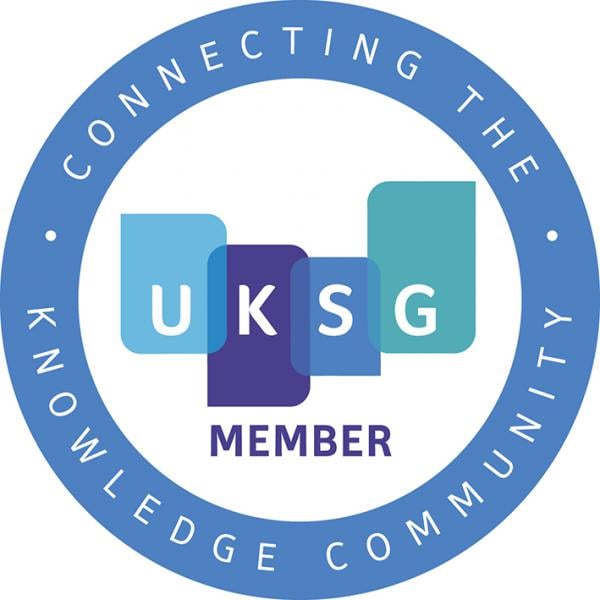
We are proud to announce that MDPI is now a member of UKSG, the UK´s largest scholarly communications community. Through UKSG, different stakeholders share their knowledge and experience in order to improve the knowledge and information environment for researchers. UKSG´s members include universities, publishers, content providers, intermediaries, and other similar organisations. Members participate in discussions and events on issues around scholarly communications.
The UKSG Annual Conference and Exhibition is a flagship initiative from the UKSG and one of the most stimulating events in the scholarly communications calendar. It is held annually and attracts a large number of delegates. More information is available at https://www.uksg.org/events/annualconference
MDPI is delighted to be a part of this active community and we look forward to making our own contribution. We will continue to support organisations and initiatives that boost collaboration and vision within scholarly communication.
More information about UKSG can be found at https://www.uksg.org/. The full membership list is available at: https://www.uksg.org/members.
1 February 2018
MDPI Signed the San Francisco Declaration on Research Assessment (DORA)

The DORA initiative addresses the need for advanced approaches in the evaluation and measurement of the quality of scientific research outputs. It is a worldwide initiative covering all scholarly disciplines. MDPI proudly joins a list of more than 400 organizations around the world which support DORA’s recommendations for improving the way the quality of research results is evaluated.
More info can be found at http://www.ascb.org/dora/
11 January 2018
Cooperation Established with IS4SI
The International Society for Information Studies (IS4SI) is associated with Entropy and Information. Members of IS4SI receive a discount of 25% off the article processing charge (APC) for publishing in either journal.
19 December 2017
Announcing the MDPI English Writing Prize
The competition is still open until end of March! Please check out the banner for more details: https://mdpi-res.com/data/english-prize.pdf
15 December 2017
UCL Press Adopts the MDPI Editorial Platform JAMS
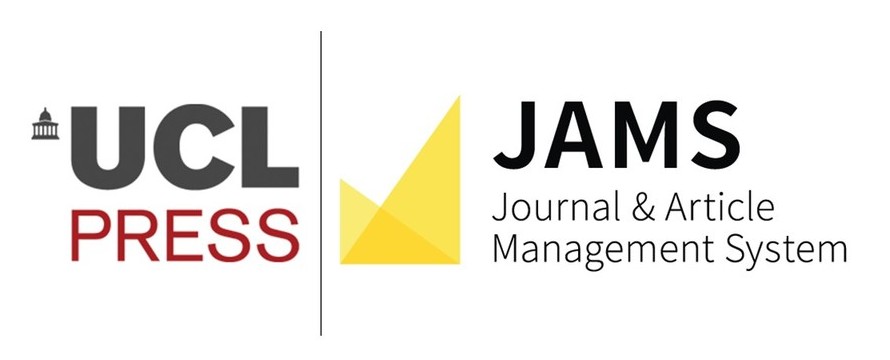
We are delighted to announce that UCL Press has adopted MDPI's Journal Article & Management System, JAMS, including production services. JAMS is a modular, integrated editorial platform for academic publishers. It offers flexibility, ease-of-use, and is a fully integrated solution for the end-to-end management of scholarly journals. JAMS is based on the software used to publish MDPI’s portfolio of journals.
Ian Caswell, UCL Press Journals Manager, says he is "excited to see UCL Press and MDPI partner together to implement the JAMS submission system for all UCL Press journals. The system offered a flexible, efficient and straightforward solution for our processes from author submission to ready for publication. I am grateful for the valuable experience and support MDPI have offered and look forward to developing our programme with an effective submission system in place.” Dr Martyn Rittman, MDPI’s Publishing Services Manager, adds, “We are proud to support one of the UK’s premier university presses in their publishing operation. This is an excellent way for us at MDPI to share our experience and knowledge, and benefit the research community beyond our own journals.”
JAMS combines services that are kept separate for many publishers. The entire editorial process, production and invoicing (e.g. for open access article processing charges) are fully integrated into a single platform. This allows for efficient, fast manuscript processing. For further information about JAMS, see https://www.mdpi.com/publishing_services.
23 November 2017
New Participants in the Institutional Open Access Program (IOAP)
We are pleased to welcome new participants to MDPI's Institutional Open Access Program (IOAP), designed to help institutions manage the transition to the Open Access publishing model. Researchers affiliated with participating universites benefit from a 10% discount on the Article Processing Charges (APC) for any paper published in an MDPI journal, while the participating library or university incurs no basic fee for participating in the program.
The IOAP set of free services, provided by MDPI to institutions that sign up, include:- No fee for participants and no obligation to prolong after the initial 12 months. The participants may withdraw from the programme at any time, and we will also keep it free for the library for as long as they continue in the programme.
- Authors affiliated with the university will receive a 10% discount on the APC.
- The institution is granted free access to the MDPI submission system and can receive free alerts of new submissions to our journals.
- By default, authors from the institution will continue to be invoiced directly unless the institution opts for central billing.
- Auto-archiving of papers into the institutions´ repository as long as it supports SWORD 1.3.
More details about the programme and a list of our current participant institutions can be found at: https://www.mdpi.com/about/ioap
Institutions which are interested to participate may do so online at: https://www.mdpi.com/ioap-form
The following North American universities have signed up to the IOAP program recently:
Connecticut College, USA
Emory University, USA
Florida International University, USA
Johns Hopkins University, USA
Mississippi State University, USA
Northeastern University, USA
Rice University, USA
University of Ontario Institute of Technology, Canada
University of Rhode Island, USA
University of Texas Southwestern Medical Center, USA
University of Toronto, Canada
University of Windsor, Canada
University of Wisconsin–Madison, USA
Wellesley College, USA
West Virginia University, USA
Many prestigious institutions from Europe and Asia have joined as well:
Asia Pacific University of Technology & Innovation, Malaysia
Czech Technical University in Prague, Czech Republic
Gdansk University of Technology, Poland
Martin-Luther-Universität Halle-Wittenberg, Germany
National Chung Hsing University, Taiwan
Newcastle University, UK
Northumbria University, UK
Southwest University, China
Technical University of Crete, Greece
University Malaya, Malaysia
University of Antwerp, Belgium
University of Cyprus, Cyprus
University of Manchester, UK
University of Reading, UK
University of Sussex, UK
University of Warwick, UK
West Pomeranian University of Technology Szczecin, Poland
We offer a warm welcome to the new participants!
10 November 2017
Available Journal Awards at MDPI
In order to reward the academic community, especially young researchers, and enhance communication among scientists, MDPI journals regularly offer various awards to researchers in specific fields, for example, Young Investigator Awards, Travel Awards, Best Paper Awards, and Best Poster Awards, etc. The awardees range from PhD students to junior scientists.
Currently, the following 44 awards given by MDPI journals are accepting applications. Please click on the award title below to check whether you are eligible for it and start the application process.
|
Subject |
Journal |
Award |
Intended Awardee |
|
Biology & Life Sciences |
Animals |
PhD students or postdoctoral researchers |
|
|
Antioxidants |
Postdoctoral researchers or PhD students |
||
|
Biology |
PhD or postdoctoral fellows |
||
|
Forests |
Postdocs or PhD students |
||
|
International Journal of Molecular Sciences (IJMS) |
Ground-breaking contribution in the fields of Molecular Biology, and Molecular Pathology |
||
|
Journal of Fungi (JoF) |
Travel Awards 2018 |
PhD graduate students, and postdoctoral fellows |
|
|
Life |
Travel Award 2018 |
PhD students or postdoctoral fellows |
|
|
Metabolites |
PhD students |
||
|
Pharmaceuticals |
PhD students |
||
|
Toxins |
Postdoctoral fellows |
||
|
Viruses |
Viruses 2018 participants |
||
|
Viruses |
Viruses 2018 participants |
||
|
Water |
2018 Young Investigator Award |
Young investigators |
|
|
Chemistry & Materials Science |
Biomimetics
|
Graduate Student or Postdoctoral Trainee / Research Associate |
|
|
Catalysts |
PhD students |
||
|
Chemosensors |
PhD or postdoctoral fellows |
||
|
Entropy |
Young investigators |
||
|
Fibers |
2018 Travel award |
Postdocs or PhD students |
|
|
Magnetochemistry |
Postdocs |
||
|
Materials |
PhD or postdoctoral fellows |
||
|
Metals |
PhD or postdoctoral fellows |
||
|
Minerals |
PhD or postdoctoral fellows |
||
|
Sensors |
Travel Award 2018 |
PhD or postdoctoral fellows |
|
|
Sensors |
Sensors' reviewers in 2017 |
||
|
Sensors |
Young investigators |
||
|
Technologies |
PhD students |
||
|
Computer Science & Mathematics |
Multimodal Technologies and Interaction (MTI) |
Postdoctoral researchers or PhD students |
|
|
ISPRS International Journal of Geo-Information(IJGI) |
Postdocs |
||
|
Journal of Sensor and Actuator Networks (JSAN) |
Postdoctoral fellows and PhD students |
||
|
Journal of Imaging |
Postdoctoral fellows and PhD students |
||
|
Engineering |
Actuators |
PhD or postdoctoral fellows |
|
|
Remote Sensing |
Authors |
||
|
Machines |
PhD or postdoctoral fellows |
||
|
Micromachines |
PhD or postdoctoral fellows |
||
|
Fluids |
Postdoctoral fellows and PhD students |
||
|
ChemEngineering |
Postdoctoral researchers and PhD students |
||
|
Environmental & Earth Sciences |
Diversity |
Travel Awards 2018 |
Postdoctoral fellows |
|
International Journal of Environmental Research and Public Health (IJERPH) |
Authors who submit from 1 Nov 2017 to 31 Oct 2018 |
||
|
Resources |
Postdocs or PhD students |
||
|
Geosciences |
Postdoctoral fellows and PhD students |
||
|
Physical Sciences & Astronomy |
Galaxies |
Ph.D. students, postdoctoral fellows, or lecturers in cosmology or galaxies physics |
|
|
Applied Science |
Postdocs |
||
|
Medicine & Pharmacology; Public Health & Healthcare |
Journal of Clinical Medicine (JCM) |
PhD or postdoctoral fellows |
|
|
Medicines |
Postdocs |
7 November 2017
MDPI has signed the Jussieu Call for Open Science and Bibliodiversity
The Jussieu Call aims to develop and implement alternative models to meet the aims of open science while promoting bibliodiversity. In particular it wishes to promote new business models for funding open access publication. It was drafted on the Jussieu campus in Paris by a group of French researchers and scientific publishing professionals.
MDPI supports scholarly communities and initiatives that innovate and further promote Open Access publishing. There is a need to explore different frameworks to fund open access in ways that ensure that excessive funds are not diverted from research towards publishing. Many fair funding models already exist, and they can be further developed and extended. These include institutional support, library contributions or subsidies, premium services, participatory funding, etc. For this reason, MDPI has signed up to the Jussieu call and welcomes its aims.
More information can be found at http://jussieucall.org/ (archived here)
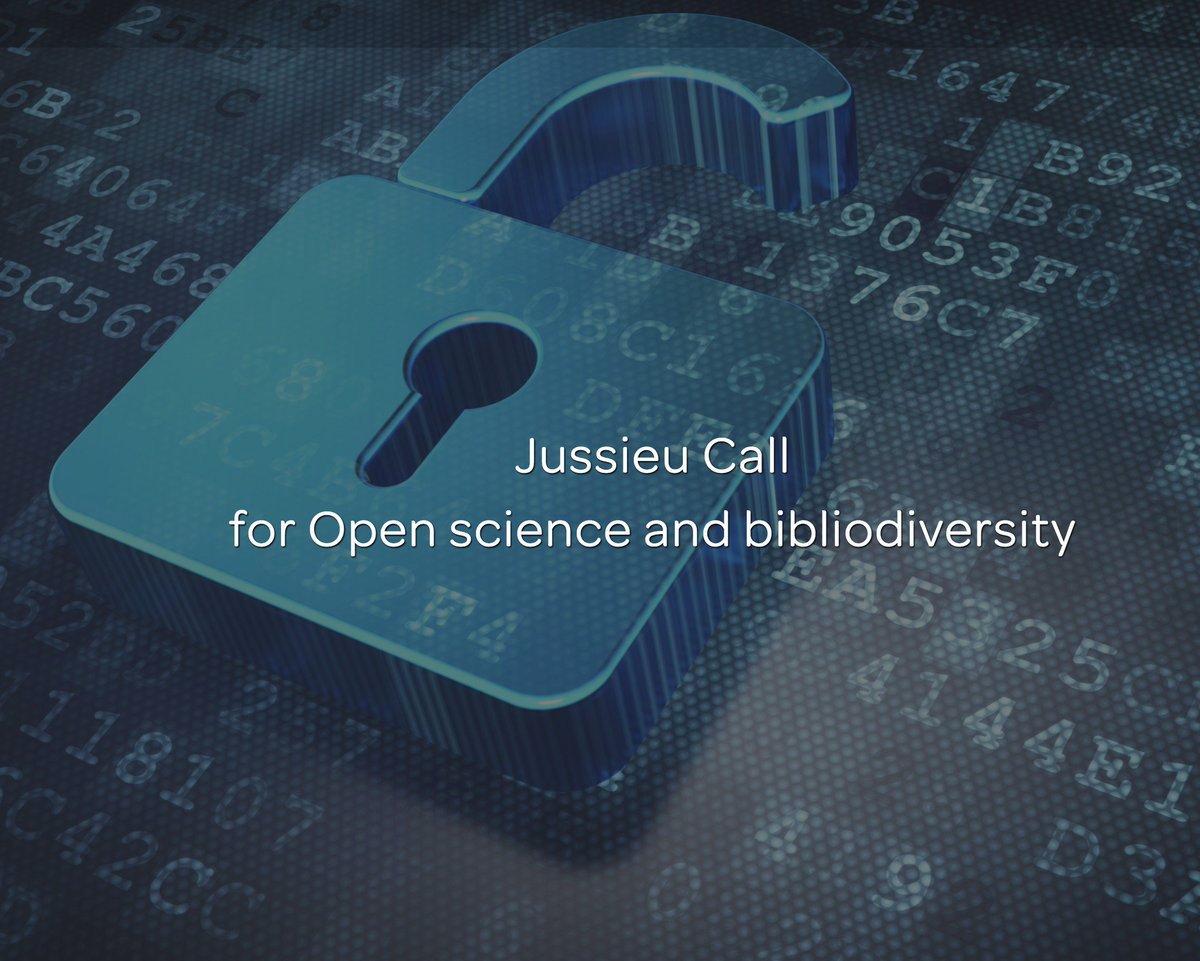
30 October 2017
Meet us at NIPS 2017: Long Beach on December 4–9, 2017
We will be attending the NIPS 2017, an interdisciplinary conference that brings together researchers in all aspects of neural and statistical information processing and computation, and their applications. It will be held at Long Beach on 4-9 December 2017, representing the following MDPI open access journals:
Entropy
Symmetry
Information
Games
Computation
Algorithms
Mathematics
Mathematical and Computational Applications (MCA)
Data
Systems
Robotics
Machines
Big Data and Cognitive Computing (BDCC)
Machine Learning and Knowledge Extraction (MAKE)
If you are also attending this conference, please feel free to stop by our booth (Booth #L102). Our delegates look forward to meeting you in person to answer any questions you may have. For more information about the conference, please visit: https://nips.cc/Conferences/2017.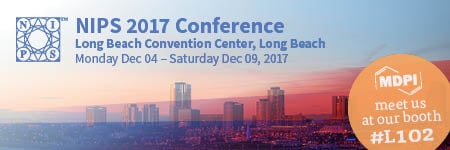
Conference Address
Long Beach Convention & Entertainment Center
300 E Ocean Blvd
Long Beach, CA 90802
USA
6 October 2017
Dr. Franck Vazquez, MDPI CEO, Interviewed by Scholarly Kitchen
The Society for Scholarly Publishing’s popular blog about topics in academic publishing, Scholarly Kitchen, recently interviewed MDPI’s CEO, Dr. Franck Vazquez. He shared some thoughts and information on the past and future of MDPI and open access publishing in general:
“In the long run, we aim to anchor MDPI in research communities. We recently developed and launched the preprint platform Preprints, revamped our free-to-use conference hosting platform Sciforum, and are working on other projects, such as Scilit, our bibliographic database.”
Read the full interview here.
19 September 2017
A Warm Welcome to the New IOAP Participants
We are delighted to have welcomed 24 new participants to our Institutional Open Access Programme (IOAP) since the beginning of September this year. These are University libraries and Research Institutions located around the world; from the USA and Canada to the UK, and from Norway and Spain to Greece. Well respected Universities, such as the University of Denver, the University of Colorado Boulder, and the University of Arizona in the US, have signed up, while their researchers can now benefit from a 10% discount on the Article Processing Charges (APC) for any papers they publish in MDPI journals, at no cost for the library or the University.
We are more than happy to see the Open Access movement growing stronger and wider every day and we appreciate the vital role which librarians, repository managers, and other scholarly communications professionals play in the field. Our communication with and service to this community is, therefore, one of our principal priorities. The IOAP is our way to support academic and scientific Institutions as well as their scholars in managing, administrating, and publishing research in an Open Access world.
The IOAP set of free services, provided by MDPI to institutions that sign up, include:
- No fee for participants and no obligation to prolong after the initial 12 months. The participants may withdraw from the programme at any time, and we will also keep it free for the library for as long as they continue in the programme.
- Authors affiliated with the university will receive a discount on the article processing charge (APC).
- The institution is granted free access to the MDPI submission system and can receive free alerts of new submissions to our journals.
- By default, authors from the institution will continue to be invoiced directly unless the institution opts for central billing.
- Auto-archiving of papers into the institutions´ repository as long as it supports SWORD 1.3.
More details about the programme and a list of our current participant institutions can be found at: https://www.mdpi.com/about/ioap
Institutions which are interested to participate may do so online at: https://www.mdpi.com/ioap-form
The full list of the Institutions that signed up in September is as follows:
- University of Denver, USA
- University of Colorado Boulder, USA
- University of Arizona, USA
- Institute of Metrology of Bosnia and Herzegovina, Bosnia and Herzegovina
- Middlebury College, USA
- Touro College, USA
- University of New Orleans, USA
- University of Leicester, UK
- Indiana University-Purdue University Indianapolis, USA
- University of Strathclyde, UK
- Cranfield University, UK
- Hope College, USA
- Oregon State University, USA
- Drew University, USA
- Swansea University, UK
- University of South Florida, USA
- University of Georgia, USA
- Arizona State University, USA
- University of Southern Mississippi, USA
- Université du Québec à Chicoutimi, Canada
- Grinnell College, USA
- Norwegian University of Science and Technology, Norway
- University of Patras, Greece
- Public University of Navarre, Spain
23 June 2017
Congratulations for Publishing the 100,000th Peer-Reviewed Article
Congratulations to the authors Javier Monroy and Javier Gonzalez-Jimenez from Universidad de Malaga, Spain, Victor Hernandez-Bennets, Han Fan and Achim Lilienthal from Örebro University, Sweden for publishing the 100,000th peer-reviewed article.
The article is published in the Chemical Sensors section of Sensors.
GADEN: A 3D Gas Dispersion Simulator for Mobile Robot Olfaction in Realistic Environments
Evermore pressing environmental concerns have led global actors and decision-makers to search for stricter emission monitoring approaches. As part of novel monitoring systems, robots with gas and environmental sensors are a promising solution. However, validation of such robotic inspectors is expensive, time consuming, and plagued by repeatability issues. In this article, we present GADEN (the short form for Gas Dispersion Simulator for Mobile Robot Olfaction in Realistic Environments), which combines gas dispersion and robotics simulation in a common framework. Developed under the widely used Robot Operating System (ROS), GADEN enables validation of sensing strategies with gas dispersion being simulated using computational fluid dynamics and filament dispersion theory. GADEN allows simulating complex, realistic, 3D environments for reproducible testing of robotic gas sensing algorithms. Through qualitative and quantitative evaluations, we show that GADEN is a versatile and user-friendly evaluation tool and emphasize its enormous potential for the mobile robot olfaction community.
Read the full article here: https://www.mdpi.com/1424-8220/17/7/1479/htm
14 June 2017
2016 Impact Factor Released for Entropy – 1.821
We are pleased to inform that the updated Impact Factor of Entropy has been released. According to the Journal Citation Reports®, published by Clarivate Analytics in June 2017, the new Impact Factor of Entropy is 1.821, and the 5-Year Impact Factor is 1.947.
Entropy now ranks 26/79 (Q2) in the category ‘Physics, Multidisciplinary’ and thus remains one of the highest ranking Open Access journals in physics.
Evolution of Impact Factor, Citations and Publications for Entropy: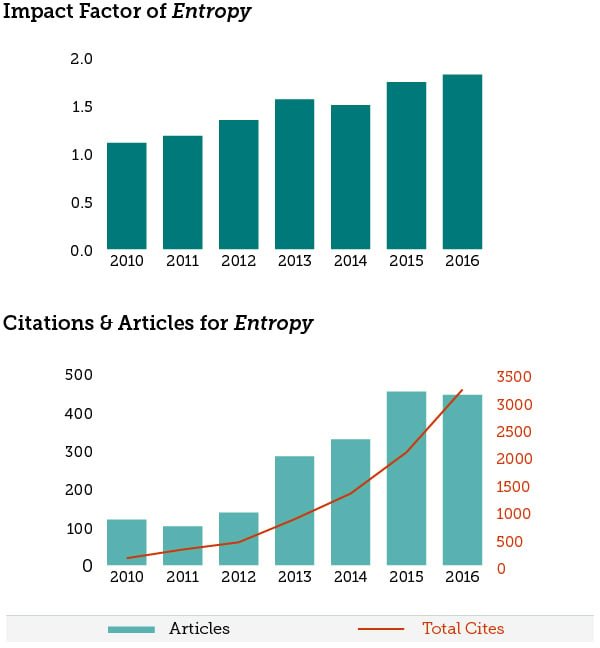
6 June 2017
CiteScore™ Metrics Released for Scopus Journals
The CiteScore, the new citation metric for journals covered in the Scopus® database, was released on 1 June 2017, reflecting the citation activity in 2016 for articles published during the three previous years. Please note that the list below does not contain all MDPI journals covered in Scopus. For the CiteScore to serve as a reliable metric at least three volumes of articles need to be indexed in Scopus; journals which have not met this criterion have been omitted here.
Ten MDPI journals received a CiteScore which is in the Top 10% of scores in at least one of the categories, while a further 21 journals exhibit scores that are in the first quartile of the respective categories.
CiteScore Data for MDPI Journals
| Journal | Rank | Category | Link | CiteScore 2016 | 2015 |
2014 |
| Algorithms | 44/112 (Q2) 49/111 (Q2) 19/42 (Q2) 52/113 (Q2) |
• Numerical Analysis • Computational Mathematics • Computational Theory and Mathematics • Theoretical Computer Science |
Link | 1.15 | 1.07 | 1.06 |
| Animals | 69/343 (Q1) 21/146 (Q1) |
• Animal Science and Zoology • General Veterinary |
Link | 1.46 | 1.66 | 0.74 |
| Biology | 13/92 (Q1) 34/81 (Q1) 10/75 (Q1) |
• General Agricultural and Biological Sciences • General Biochemistry, Gene- tics and Molecular Biology • General Immunology and Microbiology |
Link | 3.02 | 2.78 | 1.74 |
| Biomolecules | 234/382 (Q3) 260/353 (Q3) |
• Biochemistry • Molecular Biology |
Link | 1.67 | 3.08 | 1.00 |
| Biosensors | 36/118 (Q2) 209/2156 (Q1) |
• Clinical Biochemistry • General Medicine |
Link | 2.83 | 2.37 | 2.04 |
| Cancers | 29/196 (Q1) 27/321 (Q1) |
• Cancer Research • Oncology |
Link | 5.02 | 4.07 | 2.31 |
| Catalysts | 18/44 (Q2) 27/144 (Q1) |
• Catalysis • Physical and Theoretical Chemistry |
Link | 3.44 | 3.45 | 2.17 |
| Crystals | 70/270 (Q2) 25/64 (Q2) 118/398 (Q2) 131/424 (Q2) |
• General Chemical Engineering • Inorganic Chemistry • Condensed Matter Physics • General Materials Science |
Link | 1.89 | 1.47 | 1.03 |
| Diversity | 10/41 (Q1) 9/25 (Q2) 76/291 (Q2) 24/109 (Q1) |
• Agricultural and Biological Sciences (miscellaneous) • Ecological Modelling • Ecology • Nature and Landscape Conservation |
Link | 2.03 | 1.96 | 1.82 |
| Energies | - | - | Link | 2.50 | 2.87 | 2.66 |
| Entropy | 51/198 (Q2) | • General Physics and Astronomy | Link | 1.87 | 1.99 | 1.69 |
| Forests | 17/127 (Q1) | • Forestry | Link | 2.06 | 1.76 | 1.84 |
| Games | 204/398 (Q3) 83/181 (Q2) 48/105 (Q2) |
• Applied Mathematics • Statistics and Probability • Statistics, Probability and Uncertainty |
Link | 0.87 | 0.57 | 0.64 |
| Genes | 62/300 (Q1) 18/90 (Q1) |
• Genetics • Genetics (clinical) |
Link | 3.62 | 3.18 | 1.33 |
| Geosciences | 36/169 (Q1) |
• General Earth and Planetary Sciences | Link | 1.67 | 1.29 | 1.13 |
| Information | 156/237 (Q3) | • Information Systems | Link | 0.78 | 0.94 | 0.74 |
| Insects | 28/131 (Q1) | • Insect Science | Link | 1.81 | 1.38 | 1.23 |
| International Journal of Environmental Research and Public Health (IJERPH) | 67/446 (Q1) 31/102 (Q2) |
• Public Health, Environmental and Occupational Health • Health, Toxicology and Mutagenesis |
Link | 2.38 | 2.42 | 2.47 |
| International Journal of Molecular Sciences (IJMS) | 23/157 (Q1) 8/64 (Q1) 90/353 (Q1) 22/144 (Q1) 16/44 (Q1) 8/62 (Q1) |
• Organic Chemistry • Inorganic Chemistry • Molecular Biology • Physical and Theoretical Chemistry • Catalysis • Spectroscopy |
Link | 3.73 | 3.37 | 3.06 |
| ISPRS International Journal of Geo-Information | 12/29 (Q2) 28/79 (Q2) 96/587 (Q1) |
• Computers in Earth Sciences • Earth and Planetary Sciences (miscellaneous) • Geography, Planning and Development |
Link | 1.62 | 1.52 | - |
| Journal of Low Power Electronic Applications (JLPEA) | 301/645 (Q2) | • Electrical and Electronic Engineering | Link | 0.98 | 0.83 | 0.83 |
| Life | 65/525 (Q1) 36/186 (Q1) 5/92 (Q1) 20/80 (Q2) |
• Ecology, Evolution, Behavior and Systematics • General Biochemistry, Gene- tics and Molecular Biology • Palaeontology • Space and Planetary Science |
Link | 2.95 | 1.68 | 1.20 |
| Marine Drugs | 18/145 (Q1) | • Drug Discovery | Link | 3.83 | 3.66 | 3.59 |
| Materials | 63/424 (Q1) | • General Materials Science | Link | 3.26 | 3.11 | 2.69 |
| Membranes | 103/424 (Q1) | • Materials Science | Link | 2.19 | 2.95 | 2.42 |
| Micromachines | 173/645 (Q2) 69/211 (Q2) 113/526 (Q1) |
• Electrical and Electronic Engineering • Control and Systems Engineering • Mechanical Engineering |
Link | 1.83 | 1.78 | 2.10 |
| Minerals | 45/206 (Q1) 29/167 (Q1) |
• Geology • Geotechnical Engineering and Engineering Geology |
Link | 2.13 | 1.77 | - |
| Molecules | 32/157 (Q1) | • Organic Chemistry | Link | 3.09 | 2.65 | 2.62 |
| Nutrients | 12/247 (Q1) | • Food Science | Link | 4.29 | 4.07 | 3.78 |
| Pharmaceuticals | 8/168 (Q1) 21/158 (Q1) |
• Pharmaceutical Science • Molecular Medicine |
Link | 4.90 | 3.64 | 1.92 |
| Pharmaceutics | 19/168 (Q1) | • Pharmaceutical Science | Link | 3.83 | 2.68 | 2.46 |
| Polymers | 13/138 (Q1) 44/354 (Q1) |
• Polymers and Plastics • General Chemistry |
Link | 3.74 | 3.37 | 4.10 |
| Remote Sensing | 13/169 (Q1) | • General Earth and Planetary Sciences | Link | 3.56 | 3.76 | 3.23 |
| Sensors | 25/96 (Q2) 25/159 (Q1) 124/382 (Q2) 103/645 (Q1) |
• Analytical Chemistry • Atomic and Molecular Physics, and Optics • Biochemistry • Electrical and Electronic Engineering |
Link | 2.78 | 2.21 | 2.40 |
| Sustainability | 49/129 (Q2) 68/587 (Q1) 56/236 (Q1) |
• Renewable Energy, Sustai-nability and the Environment • Geography, Planning and Development • Management, Monitoring, Policy and Law |
Link | 1.96 | 1.78 | 1.52 |
| Symmetry | 17/42 (Q2) 49/111 (Q2) |
• Numerical Analysis • Computational Mathematics |
Link | 1.12 | 0.95 | 1.02 |
| Toxins | 16/102 (Q1) 16/108 (Q1) |
• Health, Toxicology and Mutagenesis • Toxicology |
Link | 3.34 | 3.76 | 2.85 |
| Vaccines | 146/184 (Q4) 151/250 (Q3) 93/145 (Q3) 186/299 (Q3) 130/232 (Q3) |
• Immunology • Infectious Diseases • Drug Discovery • Pharmacology • Pharmacology (medical) |
Link | 1.23 | 3.76 | 2.85 |
| Viruses | 15/68 (Q1) 34/250 (Q1) |
• Virology • Infectious Diseases |
Link | 3.60 | 3.74 | 3.80 |
| Water | 33/184 (Q1) 48/195 (Q1) 62/587 (Q1) 198/382 (Q3) |
• Water Science and Technology • Aquatic Science • Geography, Planning and Development • Biochemistry |
Link | 2.05 | 1.96 | 1.45 |
17 May 2017
Three New Institutional Memberships Established
We are pleased to announce that the Goethe University of Frankfurt, the Technical University of Hamburg (TU Hamburg-Harburg), as well as the Humboldt University of Berlin, in Germany, have joined MDPI's institutional membership program: Primary authors from these instititions will benefit from a 10% discount on the article processing charges.
Additional details can be found on our institutional membership page.
4 May 2017
MDPI Supports the Initiative for Open Citations (I4OC)
As an open access publisher, we are keen to support openness and transparency in the research process. Citation data is very important for assessing the value of individual papers and the contribution of researchers. As such, we support the recently launched Initiative for Open Citations (I4OC). The initiative recognizes that citations should be freely available and machine-readable. By doing so, authors gain the maximum benefit from having their work cited.
MDPI now uploads citation data with metadata uploaded to Crossref when registering digital object identifiers (DOIs) for published papers. We are delighted to take this step to support a truly open research environment.
2 May 2017
Publons Peer Review Academy Goes Live
Getting high quality review reports is critical for any journal’s editorial process. At MDPI we have put in place several measures to motivate reviewers and reward them for their work. We are proud of the quality of reviewer reports we receive and grateful for the hours put in by active researchers from across the globe.
Reviewers of MDPI’s largest journals can get recognition via Publons, a website dedicated to rewarding peer reviewers. They have now taken this one step further and launched the Publons Reviewer Academy to help train reviewers to provide useful feedback. Through the academy, researchers can be trained and tutored in various aspects of how to provide structured feedback that will be of genuine help to editors and authors. We support this initiative and recommend it to potential MDPI reviewers, especially early career researchers. See the Publons announcement for further information.
More information on reviewing for MDPI, including how to volunteer as a reviewer, can be found here.
24 April 2017
Two New Institutional Memberships Established
We are pleased to announce that the following universities have joined MDPI's institutional membership program: Trinity University, San Antonio, Texas, USA and the University of New South Wales (UNSW), Sydney, Australia. Primary authors from these instititions will benefit from a 10% discount on the article processing charges.
Additional details can be found on our institutional membership page.
30 March 2017
Credit for Preprints Comments via Publons
Preprints.org is a platform run by MDPI that allows authors to make early versions of manuscripts available before peer review has been completed.
One of the major benefits of putting a preprint online is to get feedback before journal submission. Until now, however, the feedback has been on a voluntary basis. Preprints is delighted to be the first preprint server to collaborate with Publons to acknowledge substantial comments as reviews and give commentators the opportunity to receive credit for their efforts.
When you add a comment to any article, there is a check box to click for it to appear on Publons. If you have already linked your account it will be passed on automatically. If you don't already have a Publons account, you will be contacted soon afterwards with instructions on how to create one.
We appreciate the enthusiasm and cooperation of Publons in this project and expect it to be of great benefit to authors and commenters alike.
20 March 2017
MDPI 2016 Annual Report Released
We are pleased to announce that our annual report for the year 2016 has now been published.
It contains information regarding company and journal performance, conferences and other publishing services that we provided throughout 2016.
To read the report in full or download a copy, please click here.
15 March 2017
Our 100,000th Article Could be Yours!
After the 20th anniversary of MDPI in 2016, we will reach another milestone this year and will publish the 100,000th peer-reviewed article in one of our 170+ open access journals.
We would like you to be part of this great achievement and so are offering to publish the 100,000th accepted paper free of charge.
To be in with a chance, select a journal in one of our 10 scientific subject areas and submit your paper.
Access the live tracker on published articles here.
![]()
3 March 2017
1000 Preprints Online
We are delighted that Preprints now has 1000 papers online since its launch on 3 May 2016.
For more information, see the editorial here.
9 February 2017
Minister and State Secretaries Visit MDPI Office at STP, Belgrade, Serbia
Earlier this week the Science Technology Park in Belgrade, Serbia was visited by Swiss Secretary of State Dr. Mauro Dell’Ambrogio, as well as Serbian Minister of Public Administration and Local Self-Government Ana Brnabic, State Secretary Dr. Vladimir Popovic and Mayor of Belgrade Mr. Siniša Mali.
During the visit to the STP they had a short presentation from MDPI’s CEO Dr. Franck Vazquez and IT Manager Mr. Miloš Čučulović, and further discussed important issues such as Open Access and Open education. Dr. Dell'Ambrogio said he was impressed with the potential for development and ideas for business.
For more information please see:
http://bit.ly/2kpIu7k and http://bit.ly/2kpUQfz
7 February 2017
The 6th World Sustainability Forum: Final Press Release
Basel, 29 January 2017
The 6th World Sustainability Forum #WSF2017SA: African universities critical to achieving the Sustainable Development Goals
Jeffrey and Sonia Sachs win first World Sustainability Award.
Universities need to take the lead in solving the greatest challenges the world faces today, particularly in Africa. They need to do this not only through education – teaching the next generation to think critically and creatively to find sustainable solutions – but also through research that cuts across a range of disciplines. To ensure these solutions are implemented, they need to partner with the private sector and with government.
This was the key message from the 6th World Sustainability Forum (WSF2017), which took place in Cape Town on 27 and 28 January 2017. Sponsored by MDPI and the journal Sustainability under the patronage of the Universities of the Western Cape (UWC), Cape Town (UCT), University of Basel and the National Research Foundation (NRF) of South Africa, the conference was attended by key national and international speakers, including world-leading economist Professor Jeffrey D. Sachs, senior United Nations (UN) advisor and director of the Earth Institute at Columbia University.
The WSF is an annual sustainability conference which addresses research in a range of areas related to sustainable development and sustainability globally. This was the first WSF to take place on the African continent. Discussions at the 2017 conference were driven by the 17 sustainable development goals (SDGs) adopted as part of the 2030 Agenda for Sustainable Development by the UN in September 2015.
Achieving the SDGs “is the moonshot for our generation,” said Sachs. “Like the moonshot [moon landing] of the 1960s, these are tough, bold and achievable objectives.”
“This is a nasty, tough world we live in, and our world agrees on very little. So when 193 governments agree on something, that is important. And when they agree on something as important as sustainable development, that is really something for us to grab hold of – that is a lifeline.”
There was agreement at the WSF that the SDGs are particularly important for Africa, and that African universities in particular have a role to play in achieving them.
Said Professor Tyrone Pretorius, vice-chancellor of UWC: “The quest for sustainable development can only be met through education. Universities today are the oil that fuels the knowledge economy.”
As part of the drive to develop academic capacity to provide the knowledge needed to meet the SDGs, WSF2017 was preceded by the 1st Postgraduate Forum on Sustainability. “A series of workshops for postgraduate education linked to WSF are important, in order to equip postgraduates with the skills necessary to promote sustainability,” said Professor Thandi Mgwebi, director for research at UWC. A second postgraduate forum will take place alongside the WSF2018 in Beijing.
This capacity development is particularly critical to Africa. Said Sachs: “African universities need to do research to find solutions to Africa’s development challenges, because no other university will.”
The UN set a target of achieving the SDGs by 2030: “I regard this as the breakthrough period to end extreme poverty on the continent,” said Sachs, “and for Africa to become one of the most dynamic centres of the world economy.”
It is a critical time for South African universities, said Professor Mamokgethi Phakeng, deputy vice-chancellor for research and internationalisation at UCT: “Higher education is at a crossroads, and there is much polarisation. We need to think carefully about how this sustainable development agenda is owned by all so that it is inclusionary.”
There was also strong emphasis on public–private partnerships – for universities, business and government to work together to achieve the goals.
Said Professor Francis Petersen, deputy vice-chancellor at UCT and vice-chancellor designate at the University of the Free State: “Business sustainability has become critical, because there is increasing demand and complexity of demand on business from the natural, social and economic environment. Sustainability cannot be a standalone issue, divorced from business as usual. Sustainability needs to be embedded into business.”
Environmental crises and climate change was also high on the WSF agenda. In his keynote address, Sachs noted the irreversibility of the climate- and environmental-related challenges.
“If we don’t get our act together, we lose the chance of safety,” he said.
Said Professor Mark New, pro vice-chancellor and director of the African Climate and Development Initiative at UCT: “We have a fundamental challenge in responding to climate change, and we must go further than just putting a plaster on a wound. We need to address the deep structural issues, to move from our current model of development into climate-compatible development.”
“This requires researchers to find the evidence for the correct development pathways to take, and then support the ability of policymakers at all levels to enable the shift to climate-compatible development planning.”
Said Dr. Aldo Stroebel, executive director of international relations and cooperation at the NRF, in closing: “We have seen over the past two days an urgency towards the next step of thinking, that critical type of framework that we all must engage with, not only from an academic perspective, but further up into the policy environment and into rural-based environments where one can clearly see the links and effectiveness of the work.”
World Sustainability Awards
The first World Sustainability Award and the first Emerging Sustainability Leader Awards were presented by Prof. Thandi Mgwebi, Director of Research at UWC, and Dr. Franck Vazquez, CEO of MDPI, during the ceremony on 27 January 2017 as part of the gala dinner of the 6th World Sustainability Forum in South Africa.after day one of proceedings of the 2017 World Sustainability Forum South Africa.
Professor Jeffrey D. Sachs and Dr. Sonia Ehrlich Sachs are the joint recipients of the first World Sustainability Award. Jeffrey Sachs is a world-renowned economist and senior United Nations (UN) advisor and director of the Earth Institute at Columbia University. Sonia Sachs is a paediatrician and public health specialist, and director of the Health Centre at the Centre for Sustainable Development, also at Columbia University.
The joint recipients of the first Emerging Sustainability Leader Award are Dr. Esther Ngumbi and Dr. Xiaosong Hu. Esther Ngumbi is a postdoctoral researcher at Auburn University in Alabama USA and serves as a 2015 Clinton Global University Mentor for agriculture. Xiaosong Hu is a professor at the Chongqing University in China and specialises in automotive control systems and mechanical engineering.
The World Sustainability Award and the Emerging Sustainability Leader Awards are funded to encourage new initiatives and developments in sustainability with the ultimate aim of fostering the transition to sustainable practices and societies.
The World Sustainability Award is funded by the MDPI Sustainability Foundation, and included a monetary prize of USD 100,000 to Jeffrey and Sonia Sachs. The Emerging Sustainability Leader Award is funded by the journal Sustainability, awarded to researchers under 40, and included a monetary prize of USD10,000.
Issued jointly by: UCT Global Strategy and Visibility, Research Office, UWC Communications & Media and MDPI AG
Conference photos are free available at: https://sciforum.net/conference/wsf-6/page/175 Photo credit: Matthias Burkhalter
|
Carla Bernardo |
Luthando Tyhalibongo |
Matthias Burkhalter |
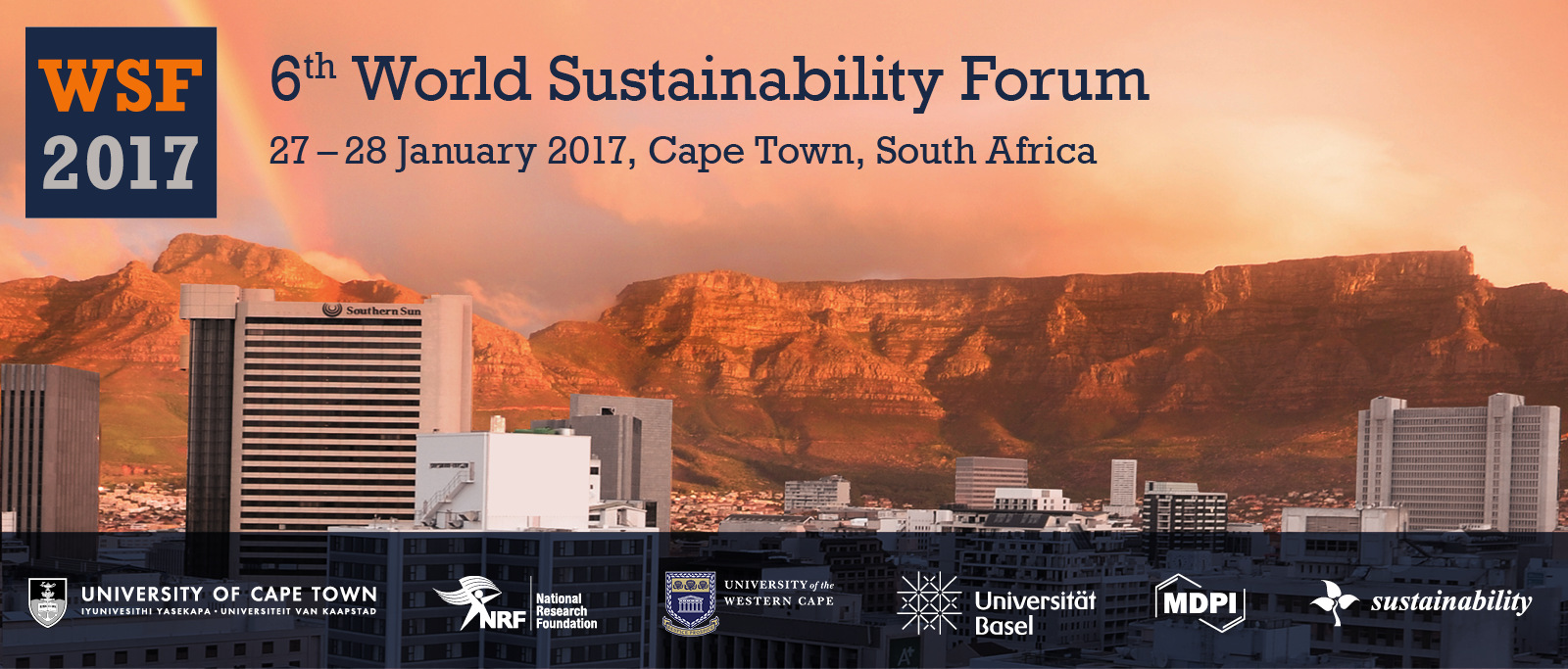
31 January 2017
Three New Institutional Memberships Established
We are pleased to announce that the Chalmers University of Technology, Sweden, the University of Manitoba, Canada and the Technical University of Cartagena, Spain, have joined MDPI's institutional membership program: Primary authors from these institutions will benefit from a 10% discount on the article processing charges.
Additional details can be found on our institutional membership page.
27 January 2017
6th World Sustainability Forum under way in South Africa
The 6th World Sustainability Forum is currently being held at the Cape Sun Hotel until 28 January 2017.
The Forum will showcase the work of internationally renowned researchers and include more than 150 presentations. During the conference dinner, the World Sustainability Award, associated with a US$ 100,000 prize, will be announced, as well as the Emerging Sustainability Leader Award, associated with a US$ 10,000 prize. The prizes are sponsored by the MDPI Sustainability Foundation and Sustainability, an academic open access journal by MDPI.
Here are some pictures from the forum so far:
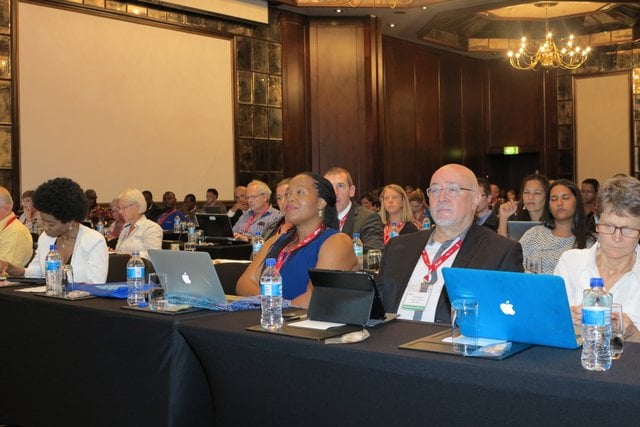
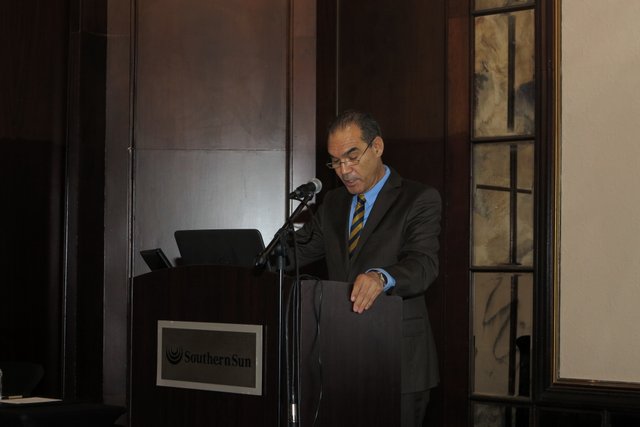
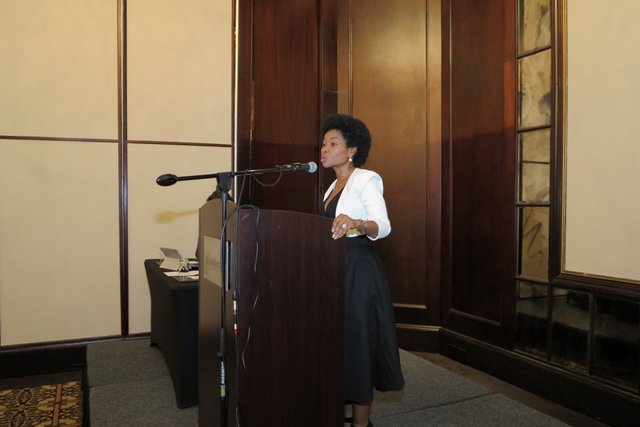
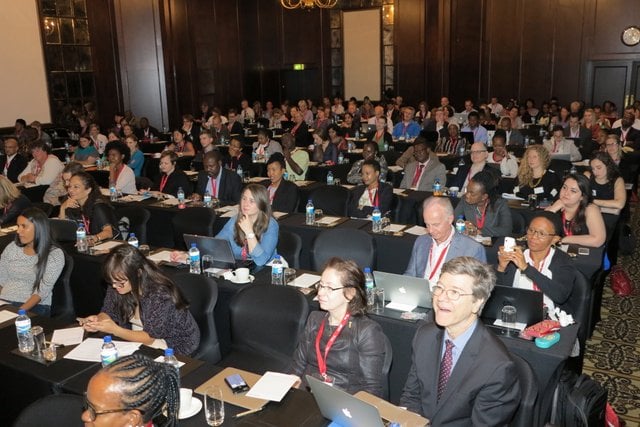
To see the full WSF2017 program and schedule, please see here: https://sciforum.net/conference/wsf-6/page/schedule
19 January 2017
Cape Town to Host the 6th World Sustainability Forum
Cape Town will host the 6th World Sustainability Forum at the Cape Sun Hotel on 27 and 28 January 2017. This prominent event, held for the first time in Africa, will include many illustrious South African and international experts, such as Her Excellency Graça Machel (Sustainable Development Advocate for the United Nations, Mozambique), Joyene Isaacs (HoD Agriculture Western Cape Government), Jeffrey Sachs (Columbia University, USA), Max Bergman (SRaM, University of Basel), Mark New (Pro Vice-Chancellor, University of Cape Town), Frans Swanepoel (FutureAfrica, University of Pretoria) and Francis Petersen (Vice-Chancellor-designate, University of the Free State). The Forum will provide a stage for national and international debates on sustainability in South Africa, the African continent, and about international perspectives on sustainability. It brings together researchers and representatives from government and the business sector to discuss a wide-ranging set of issues associated with sustainability, including food security, water and energy scarcity, mining, poverty reduction, climate change, and urbanisation.
The next few decades will be marked by profound changes in the relationships between global economics, national societies, and the environment. We have entered what some call the Anthropocene, an age in which human activity dominates the climate and the environment. These changes will have numerous consequences on societies around the globe. South Africa and Africa will play a central role, for better or worse, in creating opportunities and risks during these changing times as Africa is profoundly influencing and being influenced by global developments.
The adoption of the 17 United Nations Sustainable Development Goals and the 2030 Agenda for Sustainable Development in September 2015 was accompanied by what insiders considered an optimism they have not experienced in relation to UN resolutions before. The relative efficiency in the drafting, the lack of trenches between East and West, or between North and South, and the unanimity of support of the 193 countries speak volumes. In stark contrast, sustainability seems to go against a changing economic and political tide, where waves of nationalism and protectionism from some of the most powerful countries risk the wellbeing of the rest of the world. The 6th World Sustainability Forum will enable fruitful exchanges, which sensitise South African and international communities to the global urgency and specifics of sustainability.
The Forum will showcase the work of internationally renowned researchers and include more than 150 presentations. During the conference dinner, the World Sustainability Award, associated with a US$ 100 000 prize, will be announced, as well as the Emerging Sustainability Leader Award, associated with a US$ 10 000 prize. The prizes are sponsored by the MDPI Sustainability Foundation and Sustainability, an academic open access journal by MDPI. The World Sustainability Forum is preceded by the Postgraduate Forum on Sustainability, which will introduce more than 100 young scholars from South Africa and the African continent to sustainability research. Both events are organized and sponsored by the University of Cape Town, the University of the Western Cape, the University of Basel, MDPI, and by the National Research Foundation of South Africa.
Contacts:
Scientific Matters: Prof Manfred Max Bergman, Social Research and Methodology Group (SRaM), University of Basel, Switzerland; Email: max.bergman@unibas.ch
Press Accreditation and General Enquiries: Mr Matthias Burkhalter, MDPI AG, Basel, Switzerland; Email: burkhalter@mdpi.com; Tel. +41 61 683 77 34
Follow us on Twitter
#WSF2017SA
6 January 2017
MDPI Supports the OA2020 Initiative
MDPI is now a proud supporter of the OA2020 Initiative.
Open Access 2020 is an international initiative that aims to induce the swift, smooth and scholarly-oriented transformation of today’s scholarly journals from subscription to open access publishing.
MDPI is participating in the upcoming Berlin13 conference in March 2017, where we are contributing to the initiative by aiding in the design of the roadmap which will make OA the default publishing model.
For more information please see here.
5 January 2017
Three New Institutional Memberships Established
We are pleased to announce that the University of Texas at Arlington, USA, the Harbin Institute of Technology, China and TU Darmstadt, Germany, have joined MDPI's institutional membership program: Primary authors from these institutions will benefit from a 10% discount on the article processing charges.
Additional details can be found on our institutional membership page.
22 December 2016
Two New Institutional Memberships Established
We are pleased to announce that the Otto-von-Guericke-Universität Magdeburg, Germany and the University of California, Berkeley, USA, have joined MDPI's institutional membership program: Primary authors from these instititions will benefit from a 10% discount on the article processing charges.
Additional details can be found on our institutional membership page.
19 December 2016
MDPI and Wellcome Trust Compliance
The Wellcome Trust has, for a number of years, required that the results of its funded projects are published in open access format. Recently it announced criteria that publishers must fulfil for publication fees to be paid by the Trust. MDPI is pleased to have been added to the list of compliant publishers.
Only publishers who have confirmed their compliance by 16 December 2016 will be eligible to receive payment of APCs by the Wellcome Trust as of 1 April 2017. For more information on the criteria and a full list of publishers that meet them, see here.
13 December 2016
Meet MDPI at the 2016 AGU Fall Meeting
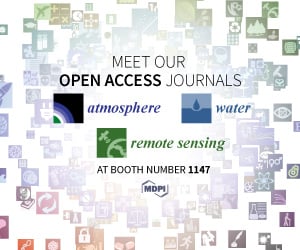 MDPI is currently attending the 2016 AGU Fall Meeting (12–16 December, 2016)
MDPI is currently attending the 2016 AGU Fall Meeting (12–16 December, 2016)
If you are also attending the conference, please feel free to stop by our booth (Booth #1147) and meet the representative editors.
Conference details:
2016 AGU Fall Meeting
12–16 December 2016
Moscone Center
747 Howard St
San Francisco, CA 94103, USA
8 December 2016
Three New Institutional Memberships Established
We are pleased to announce that Purdue University, USA, the Universitat Politécnica de Valencia, Spain and the Queensland University of Technology, Australia, have joined MDPI's institutional membership program: Primary authors from these instititions will benefit from a 10% discount on the article processing charges.
Additional details can be found on our institutional membership page.
16 November 2016
World Sustainability Award - Final Extension
The deadline for the World Sustainability Award has been extended for one last time! You now have one more month to nominate an individual researcher, group or project! The final deadline for nominations will be December 15, 2016.
For full details, please visit here.
11 November 2016
Three New Institutional Memberships Established
We are pleased to announce that the University of Minnesota, USA, the Universidad Politécnica de Madrid, Spain and Shanghai Jiao Tong University, China, have joined MDPI's institutional membership program: Primary authors from these instititions will benefit from a 10% discount on the article processing charges.
Additional details can be found on our institutional membership page.
10 November 2016
MDPI is Participating in the 2016 AGU Fall Meeting
We are pleased to announce that MDPI will be attending the 2016 AGU Fall Meeting (12–16 December, 2016) and representing the following open access journals:
Atmosphere
Water
Remote Sensing
Minerals
Sustainability
Climate
Land
Geosciences
Hydrology
Infrastructures
Resources
Entropy
Environments
Aerospace
If you are also attending this conference, please feel free to stop by our booth (Booth #1147) and meet the representative editors.
Conference details:
2016 AGU Fall Meeting
12–16 December 2016
Moscone Center
747 Howard St
San Francisco, CA 94103, USA
4 November 2016
MDPI Joins the United Nations Global Compact
MDPI has become a member of the United Nations Global Compact to support corporate sustainability and have committed ourselves to the ten principles associated with the Compact.
Sustainability has always been at the core of MDPI’s values, starting with the collection and preservation of rare chemical samples that started in 1996 and led to the first journal, Molecules. Sustainability has become one of our flagship journals and we have supported and organized several conferences and events based on Sustainability, including the upcoming 6th World Sustainability Forum. As a global enterprise, we see it as our duty to promote responsible practices that will ensure a bright future for our planet. Given this, the choice to join the Global Compact was an easy one and we will do our utmost to fully implement it.
3 November 2016
MDPI Now a Member of SPARC Europe
We are delighted to announce that MDPI has become a member of SPARC Europe, an organization that works for open scholarship in Europe, including support of open access publication.
As one of the few publishers to join SPARC Europe to date, MDPI looks forward to making a contribution that puts open scholarship on a positive and sustainable path. We fully support the goals of open scholarship that allow the largest number of people possible to benefit from work of researchers in all disciplines. We hope that our membership will enable us to work with other stakeholders to find the best possible solution.
2 November 2016
World Sustainability Award Deadline Extension
The deadline for the World Sustainability Award has been extended! You now have until November 15, 2016 to nominate an individual researcher, group or project!
For full details, please visit here.
26 October 2016
Four New Institutional Memberships Established
We are pleased to announce that the Wuppertal Institut, Germany, the University of Girona, Spain and Central South University and Huazhong University of Science and Technology, China, have joined MDPI's institutional membership program: Primary authors from these instititions will benefit from a 10% discount on the article processing charges.
Additional details can be found on our institutional membership page.
24 October 2016
International Open Access Week 2016
Meet us during International Open Access Week 2016! We will be presenting at various locations in Europe and China.
To get involved and for full details see the complete list of events organised by MDPI here.
18 October 2016
Institutional Membership established with Universitat Pompeu Fabra, Spain and Aalto University, Finland
We are pleased to announce that the Universitat Pompeu Fabra, Spain and Aalto University, Finland, have joined MDPI's institutional membership program: Primary authors from these universities will benefit from a 10% discount on the article processing charges.
Additional details can be found on our institutional membership page.
12 October 2016
Institutional Membership Established with Iowa State University and the University of North Texas, USA
We are pleased to announce that the Iowa State University and the University of North Texas, USA, have joined MDPI's institutional membership program: Primary authors from these universities will benefit from a 10% discount on the article processing charges.
Additional details can be found on our institutional membership page.
7 October 2016
MDPI at Open Access Days in Munich, 10-11 October 2016
Meet MDPI during the Open Access Days held from 10-11 October 2016 at Ludwig Maximilian University of Munich, Germany.
The two-day event will feature experts from the open access sector, scientists from all disciplines, publishing representatives and supporters of scientific research and communication from libraries as well as research institutes and funding institutions. Join us!
For more information about the event and to see the program, visit the event webpage.
7 October 2016
Institutional Membership Established with the University of Sevilla and the University of Alicante, Spain
We are pleased to announce that the University of Sevilla and the University of Alicante, Spain have joined MDPI's institutional membership program: Primary authors from these universities will benefit from a 10% discount on the article processing charges.
Additional details can be found on our institutional membership page.
29 September 2016
Institutional Membership Established with the University of Delaware
We are pleased to announce that the University of Delaware, USA, has joined MDPI's institutional membership program: Primary authors from this university will benefit from a 10% discount on the article processing charges.
Additional details can be found on our institutional membership page.
19 September 2016
Peer Review Week 2016
As an open access publisher indebted to the work of our peer reviewers, we are proud to support Peer Review Week 2016. As part of the week's activities and to celebrate this year's theme "Recognition for Review", MDPI will host two webinars that anyone can join.
These webinars will explore the role and value of reviewers and the recognition they receive from a publishers perspective, with examples from MDPI's experience in publishing nearly 80,000 peer reviewed papers, along with evidence from reviewer surveys. It will also touch upon potential changes in how review is carried out and tips for early career researchers who want to be involved in the review process.
Details and links to join can be found below:
Wednesday September 21, 08:00 (CEST)
Friday September 23, 16:00 (CEST)
For more information about all the activites taking place, please visit the Peer Review Week website.
6 September 2016
Institutional Membership established with Kansas State University and Northwestern University, USA
We are pleased to announce that Kansas State University and Northwestern Universty, USE, have joined MDPI's institutional membership program: Primary authors from these universities will benefit from a 10% discount on the article processing charges.
Additional details can be found on our institutional membership page.
5 September 2016
Institutional Membership Established with University College Cork
We are pleased to announce that University College Cork, Ireland, has joined MDPI's institutional membership program: Primary authors from this university will benefit from a 10% discount on the article processing charges.
Additional details can be found on our institutional membership page.
22 August 2016
MDPI New Office Location
We are pleased to announce that MDPI has now moved to a new permanent address:
MDPI AG
St. Alban Anlage 66
CH-4052 Basel
Postfach, CH-4020 Basel
Switzerland
Telephone and fax numbers remain unchanged.
10 August 2016
Institutional Membership established with the University of Texas at Austin, USA, the Wroclaw University of Science and Technology, Poland and the University of Granada and the Compultense University of Madrid, Spain
We are pleased to announce that the following institutions have joined MDPI's institutional membership program in August 2016:
- University of Texas at Austin, USA
- Wroclaw University of Science and Technology, Poland
- University of Granada, Spain
- Compultense University of Madrid, Spain
Authors affiliated with these institutions will benefit from a 10% discount on the article processing charges.
Additional details can be found on our institutional membership page.
18 July 2016
Institutional Membership established with Louisiana State University and Florida State University, USA, Royal College of Surgeons, Ireland, University of Rostock, Germany, AGH University of Science and Technology, Poland and Southeast University, China
We are pleased to announce that the following institutions have joined MDPI's institutional membership program in July 2016:
- Louisiana State University, USA
- Florida State University, USA
- Royal College of Surgeons, Ireland
- University of Rostock, Germany
- AGH University of Science and Technology, Poland
- Southeast University, China
Authors affiliated with these institutions will benefit from a 10% discount on the article processing charges.
Additional details can be found on our institutional membership page.
12 July 2016
MDPI Moving to New Office Location in Basel (Switzerland) in August 2016
As of 20 August 2016, MDPI's new address in Basel will be:
MDPI AG
St. Alban-Anlage 66
CH-4052 Basel
Switzerland
Telephone and fax numbers remain unchanged.
St. Alban-Anlage 66 was built from 1947 to 1948 and initially the home of the "Bühler AG", a book printing business.
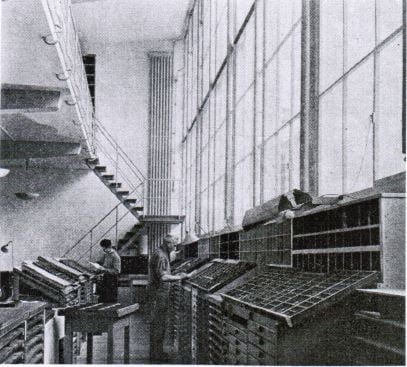
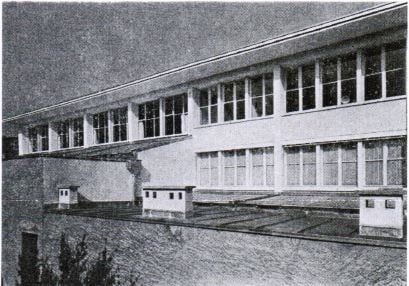
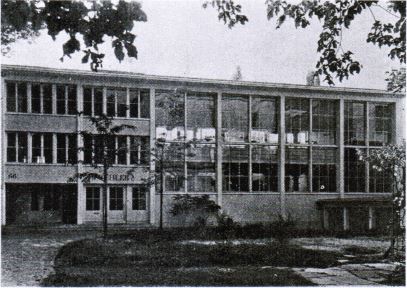
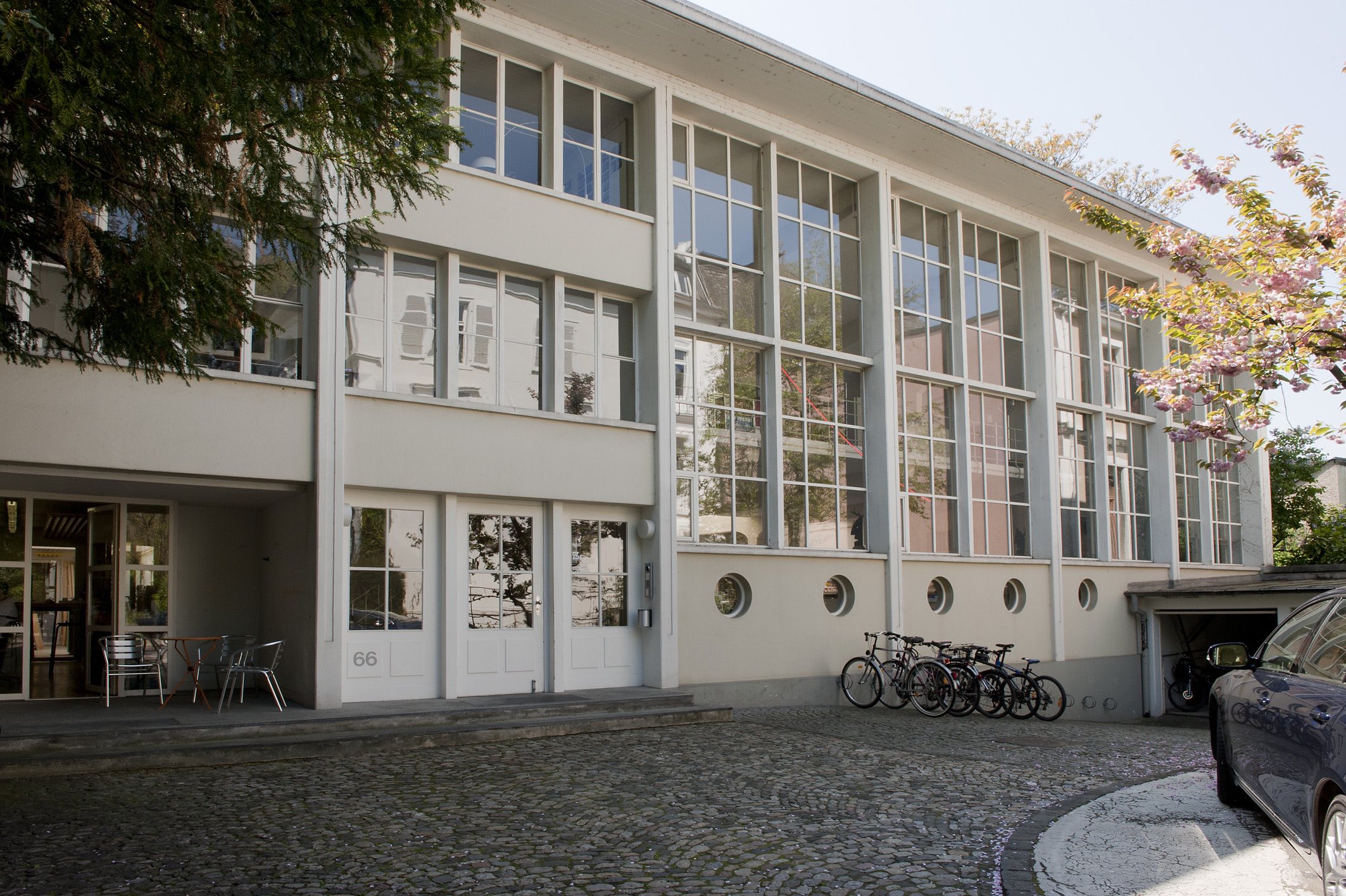
For more information about this building, see: https://www.mdpi.com/about/headquarters
21 June 2016
"Behind the Scenes of Academic Publishing—A Publisher's Perspective" - MDPI's Lecture at the University of Basel
From the 15-16 September, 2016, MDPI will run a course on Academic Publishing at the University of Basel.
In this two day workshop, MDPI will look in detail at the role performed by academic journal publishers and how they interact with academics. Ethical dimensions, what happens when problems occur and how the publisher coordinates all aspects of the submission process will also be covered.
For more detailed information about the program, trainers and registration please visit the course webpage.
14 June 2016
2015 Impact Factors Released
We are pleased to report the 2015 Journal Impact Factors in the latest Journal Citation Reports® Science Edition, published by Thomson Reuters in June 2016. Twenty out of 25 journals have seen an increase in their Impact Factor and two journals (Crystals and IJGI) received a first Impact Factor. Coatings was recently added to SCIE and will receive its first Impact Factor in next year’s JCR.
Updated Impact Factors for Journals in the Science Citation Index Expanded (SCIE)
| Journal | 2015 Impact Factor | Details | Category Rank |
| Applied Sciences | 1.726 | Link | 83/163 (Q3) in ‘Chemistry, Multidisciplinary’; 129/271 (Q2) in ‘Materials Science, Multidisciplinary’; 64/145 (Q2) in ‘Physics, Applied’ |
| Atmosphere | 1.221 | Link | 66/84 (Q4) in ‘Meteorology & Atmospheric Sciences’ |
| Catalysts | 2.964 | Link | 53/144 (Q2) in ‘Chemistry, Physical’ |
| Energies | 2.077 | Link | 43/88 (Q2) in ‘Energy & Fuels’ |
| Entropy | 1.743 | Link | 25/79 (Q2) in ‘Physics, Multidisciplinary’ |
| Forests | 1.583 | Link | 19/66 (Q2) in ‘Forestry’ |
| Genes | 3.242 | Link | 60/165 (Q2) in ‘Genetics & Heredity’ |
| International Journal of Environmental Research and Public Health (IJERPH) | 2.035 | Link | 101/225 (Q2) in ‘Environmental Sciences’ |
| International Journal of Molecular Sciences (IJMS) | 3.257 | Link | 110/289 (Q2) in ‘Biochemistry & Molecular Biology’; 51/163 (Q2) in ‘Chemistry, Multidisciplinary’ |
| Marine Drugs | 3.345 | Link | 13/59 (Q1) in ‘Chemistry, Medicinal’ |
| Materials | 2.728 | Link | 63/271 (Q1) in ‘Materials Science, Multidisciplinary’ |
| Metals | 1.574 | Link | 18/73 (Q1) in ‘Metallurgy & Metallurgical Engineering’; 145/271 (Q3) in ‘Materials Science, Multidisciplinary’ |
| Micromachines | 1.295 | Link | 30/56 (Q3) in ‘Instruments & Instrumentation’ 63/83 (Q4) in ‘Nanoscience & Nanotechnology’ |
| Minerals | 1.468 | Link | 9/21 (Q2) in ‘Mining & Mineral Processing; 14/29 (Q2) in ‘Mineralogy’ |
| Molecules | 2.465 | Link | 24/59 (Q2) in ‘Chemistry, Organic’ |
| Nanomaterials | 2.690 | Link | 64/271 (Q1) in ‘Materials Science, Multidisciplinary’; 36/83 (Q2) in ‘Nanoscience & Nanotechnology’ |
| Nutrients | 3.759 | Link | 16/78 (Q1) in ‘Nutrition & Dietetics’ |
| Polymers | 2.944 | Link | 20/85 (Q1) in ‘Polymer Science’ |
| Remote Sensing | 3.036 | Link | 5/28 (Q1) in ‘Remote Sensing’ |
| Sensors | 2.033 | Link | 36/75 (Q2) in ‘Chemistry, Analytical’; 16/27 (Q3) in ‘Electrochemistry’; 12/56 (Q1) in ‘Instruments & Instrumentation’ |
| Sustainability | 1.343 | Link | 146/225 (Q3) in ‘Environmental Sciences’; 22/29 (Q4) in ‘Green & Sustainable Science & Technology’ |
| Symmetry | 0.841 | Link | 31/63 (Q2) in ‘Multidisciplinary Sciences’ |
| Toxins | 3.571 | Link | 16/89 (Q1) in ‘Toxicology’ |
| Viruses | 3.042 | Link | 14/33 (Q2) in ‘Virology’ |
| Water | 1.687 | Link | 33/85 (Q2) in ‘Water Resources’ |
Journals with First Impact Factors
| Journal | 2015 Impact Factor | Details | Category Rank |
| Crystals | 2.075 | Link | 13/26 (Q2) in ‘Crystallography’ |
| ISPRS International Journal of Geo-Information | 0.651 | Link | 45/49 (Q4) in ‘Geography, Physical’; 26/28 (Q4) in ‘Remote Sensing’. |
14 June 2016
2015 Impact Factor Released for Entropy – 1.743
We are pleased to inform you that the new Impact Factor of Entropy has been released. According to the Journal Citation Reports®, published by Thomson Reuters in June 2016, the new Impact Factor of Entropy is 1.743, and the 5-Year Impact Factor is 1.780. Compared to last year, the Impact Factor has increased by 16 percent (see figures below).
Entropy now ranks 25/79 (Q2) in the category ‘Physics, Multidisciplinary’ and thus remains one of the highest ranking Open Access journals in physics.
Evolution of Impact Factor, Citations and Publications for Entropy:
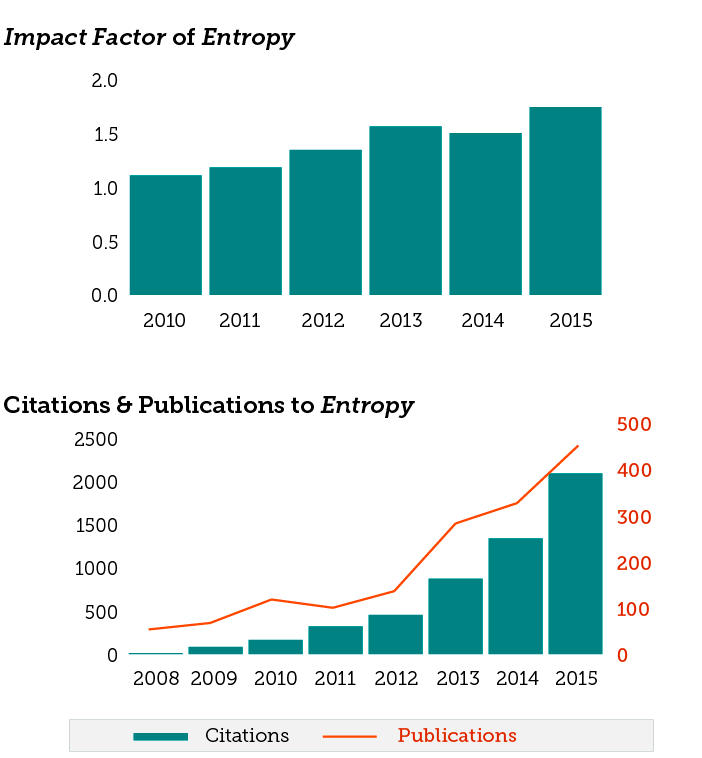
26 May 2016
Institutional Membership established with University of Bremen, Germany, Koç University, Turkey, IIASA, Austria and Jilin University and Kunming Institute of Botany, CAS, China
We are pleased to announce that the following institutions have joined MDPI's institutional membership program in May 2016:
- Unversity of Bremen, Germany
- Koç University, Turkey
- International Institute for Applied Systems Analysis (IIASA), Austria
- Jilin University, China
- Kunming Institute of Botany, Chinese Academy of Sciences, China
Authors affiliated with these institutions will benefit from a 10% discount on the article processing charges.
Additional details can be found on our institutional membership page.
23 May 2016
Institutional Membership Established with the KTH Royal Institute of Technology, Sweden and the South China University of Technology, Beijing University of Technology and Southern Medical University, China
We are pleased to announce that the following institutions have joined MDPI's institutional membership program in April and May 2016:
- KTH Royal Institute of Technology, Sweden
- South China University of Technology, China
- Beijing University of Technology, China
- Southern Medical University, China
Authors affiliated with these institutions will benefit from a 10% discount on the article processing charges.
Additional details can be found on our institutional membership page.
26 April 2016
New Section on www.mdpi.com - Latest Books
You may have noticed a new section that is now visible on our home page. This section is called "Latest Books" and showcases recent publications from MDPI Books, our book publishing service.
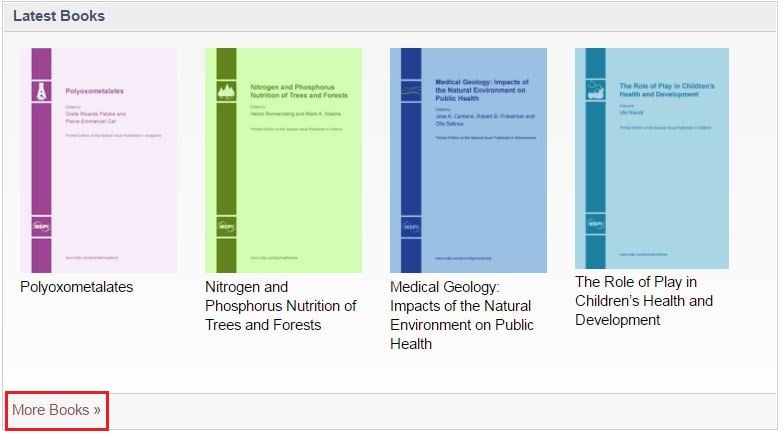
By clicking on the hyperlink "More Books" you will be taken to the MDPI Books Home Page. There you will find more information about the service, as well as the "Recent Publications" list.
Clicking on any of the book images in this list will take you to detailed information about that book (shown below). Here you can also download a PDF version of the book, or order a hardcover printed copy.
For further information about the MDPI Books service, please visit the webpage or contact books@mdpi.com.
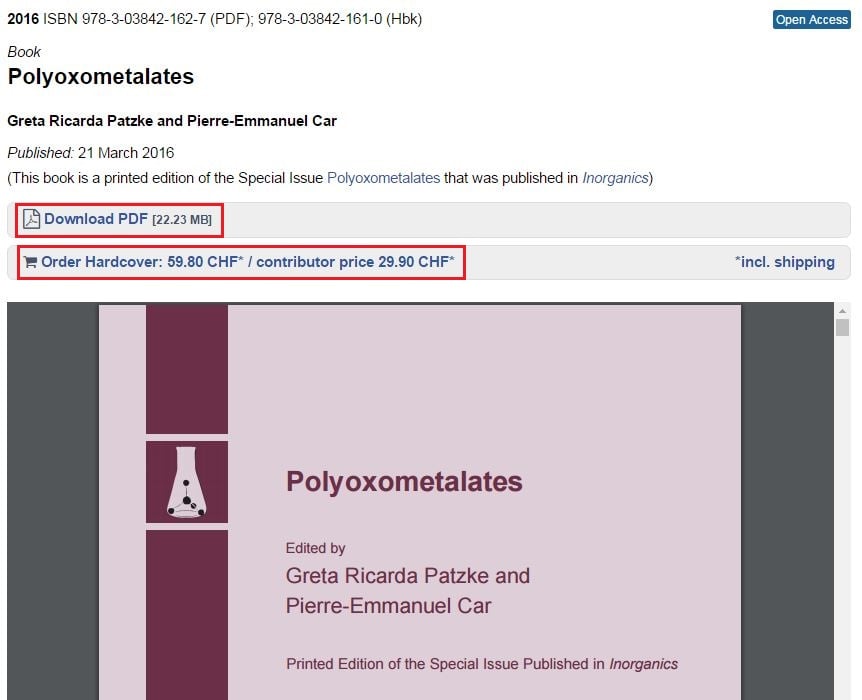
31 March 2016
Axioms, Behavioral Sciences, Photonics, Separations and Toxics added to the Emerging Sources Citation Index in Web of Science
We are pleased to announce that the journals Axioms, Behavioral Sciences, Photonics, Separations and Toxics were recently accepted for inclusion in the newly launched Emerging Sources Citation Index (ESCI) in Web of Science.
ESCI serves to highlight promising journals which are still under consideration for the Science Citation Index Expanded (SCIE) or the Social Sciences Citation Index (SSCI).
The Emerging Sources Citation Index (ESCI), Science Citation Index Expanded (SCIE), Social Sciences Citation Index
(SSCI), and Web of Science™ (WoS) are Thomson Reuters products.
30 March 2016
Institutional Membership established with the University of Winchester, UK, Silesian University of Technology, Poland and Beijing Jiaotong University and Zhejiang University, China
We are pleased to announce that the University of Winchester, UK, the Silesian University of Technology, Poland and Beijing Jiaotong University and Zhejiang University, China, have joined our Institutional Membership program. Primary authors from these universities will benefit from a 10% discount on article processing charges.
Additional details can be found on our institutional membership page.
24 March 2016
New Editorial Office in Barcelona, Spain
We are excited to announce the opening of our new editorial office in Barcelona, Spain. The launch team is led by a Senior Editor and comprises further staff holding doctoral degrees with several years of research experience. The new editorial team will help us to get closer to European research communities and progress Sciforum, the platform to support the scientific community via conference hosting and other functions. They will also help spread the word about Open Access and meet academics at scientific events.
We are in the process of hiring more doctoral and masters graduates to join the editorial team and welcome applications via jobs@mdpi.com. For contact details about the office, see our contact page.

22 February 2016
Membership Established with the Max Planck Society
We are pleased to announce that the Max Planck Digital Library (MPDL) has signed an agreement with MDPI to support authors associated with the Max Planck Society (Max-Planck-Gesellschaft). As of 22 February 2016, corresponding authors will receive full funding from the MPDL for articles published in MDPI journals, with a 10% discount applied to the Article Processing Charges. Additional details can be found at our institutional membership page.
Founded in 1948, The Max Planck Society is one of Germany’s leading research organizations, and is currently made up of 83 institutes conducting basic research in natural sciences, life sciences, social sciences and humanities. 18 Nobel laureates have emerged from its ranks of scientists and the society has more than 15,000 publications in scientific journals each year.
5 February 2016
Institutional Membership Extension: Wageningen University, CSIC, University of Zürich, ETH Zürich, University of Tübingen and Osnabrück University
We are pleased to announce that Wageningen University, the Netherlands, the Spanish National Research Council (CSIC), Spain, the University of Zürich and ETH Zürich, Switzerland, and the University of Tübingen and Osnabrück University, Germany, have not only renewed their institutional memberships with MDPI after two years of successful cooperation, but have also increased the reduction of the article processing charges (APCs) for affiliated authors to 25%.
Additional details can be found on our institutional membership page.
5 February 2016
Institutional Membership established with Brock University, Canada and the University of Pisa, Italy
We are pleased to announce that Brock University, Cananda, and the University of Pisa, Italy, have joined MDPI's institutional membership program: Primary authors from these universities will benefit from a 10% discount on the article processing charges as of 01 February 2016.
Additional details can be found on our institutional membership page.
25 January 2016
MDPI Sponsors diss:kurs with the University of Basel
MDPI is pleased to announce its newly established sponsorship of diss:kurs, an event coordinated by the University of Basel to support their doctorate program. For more information about the event and how to register, please visit the diss:kurs webpage.
7 January 2016
New Institutional Memberships Established with Tsinghua University, the Chinese Society of Micro-Nano Technology, Ruhr University Bochum and the University of Ulm
We are pleased to announce that the following institutions have joined MDPI's institutional membership program as of 1 January 2016:
- Tsinghua University, China
- Chinese Society of Micro-Nano Technology (CSMNT)
- Ruhr University Bochum, Germany
- University of Ulm, Germany
Authors affiliated with these institutions will benefit from a 10% discount on the article processing charges.
Additional details can be found on our institutional membership page.
5 January 2016
Safety, Fermentation, C-Journal of Carbon Research, Magnetochemistry, Batteries and Horticulturae Released Their First Issue in December 2015
We are pleased to announce that MDPI's open access journals Safety, Journal of Imaging, Fermentation, C-Journal of Carbon Research, Magnetochemistry, Batteries and Horticulturae released their first issue at the end of December 2015.
17 December 2015
Institutional Membership Extension: University of Bern, Switzerland
We are pleased to announce that the University of Bern, Switzerland has not only renewed their institutional membership with MDPI after two years of successful cooperation, but also increased the reduction of the article processing charges (APCs) for affiliated authors to 25%.
17 December 2015
Institutional Membership with the University of Ulm and Helmholtz Zentrum Munich
We are pleased to announce that University of Ulm, Germany and Helmholtz Zentrum Munich, Germany has joined MDPI's institutional membership program:
Primary authors from the University of Ulm and Helmholtz Zentrum Munich will benefit from a 10% discount on the article processing charges as of 1 January 2016. Additional details can be found on our institutional membership page.
9 December 2015
Membership Established with the Virginia Polytechnic Institute and State University (Virginia Tech)
We are pleased to announce that Virginia Tech has joined MDPI's institutional membership program. Authors from Virginia Tech will benefit from a 10% discount on the article processing charges as of 1 December 2015. Additional details can be found on our institutional membership page.
1 December 2015
Membership Established with the Technical University of Denmark and the University of North Florida
We are pleased to announce that the following universities have joined MDPI's institutional membership program:
- Technical University of Denmark (as of 1 November 2015)
- University of North Florida, USA (as of 15 November 2015)
Primary authors from the Technical University of Denmark and the University of North Florida will benefit from a 10% discount on the article processing charges.
Additional details can be found on our institutional membership page.
2 October 2015
Membership Established with the University of Freiburg and the University of Regensburg
We are pleased to announce that the following universities have joined MDPI's institutional membership program:
University of Freiburg, Germany
University of Regensburg, Germany
Primary authors from the University of Freiburg and the University of Regensburg will benefit from a 10% discount on the article processing charges as of 1 October 2015 and 1 November 2015.
Additional details can be found on our institutional membership page.
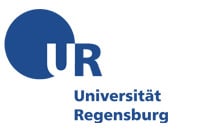
19 June 2015
Updated Impact Factor for Entropy – 1.502
The 2014 Impact Factors have been recently released. According to the 2015 release of the Journal Citation Reports® Science Edition (published by Thomson Reuters in June 2015), the updated Impact Factor for Entropy is 1.502. The 5-Year Impact Factor is 1.579. Entropy now ranks 34/78 (Q2) in the category ‘Physics, Multidisciplinary’.
Evolution of the Entropy Impact Factor:
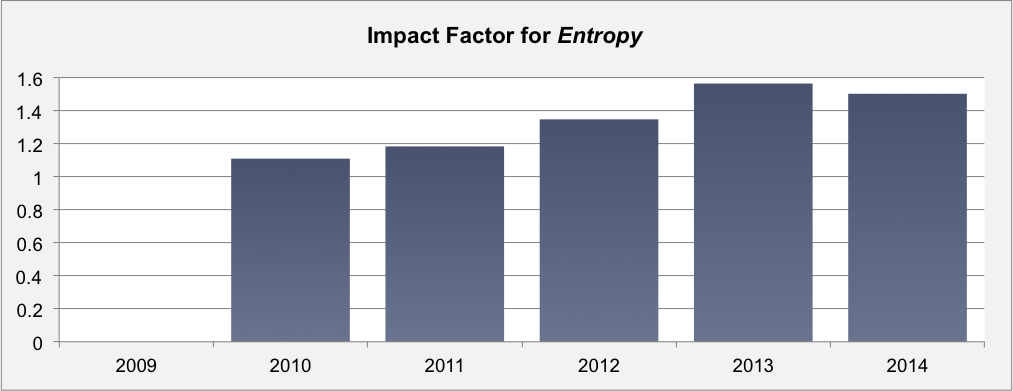
Evolution of citations to Entropy:
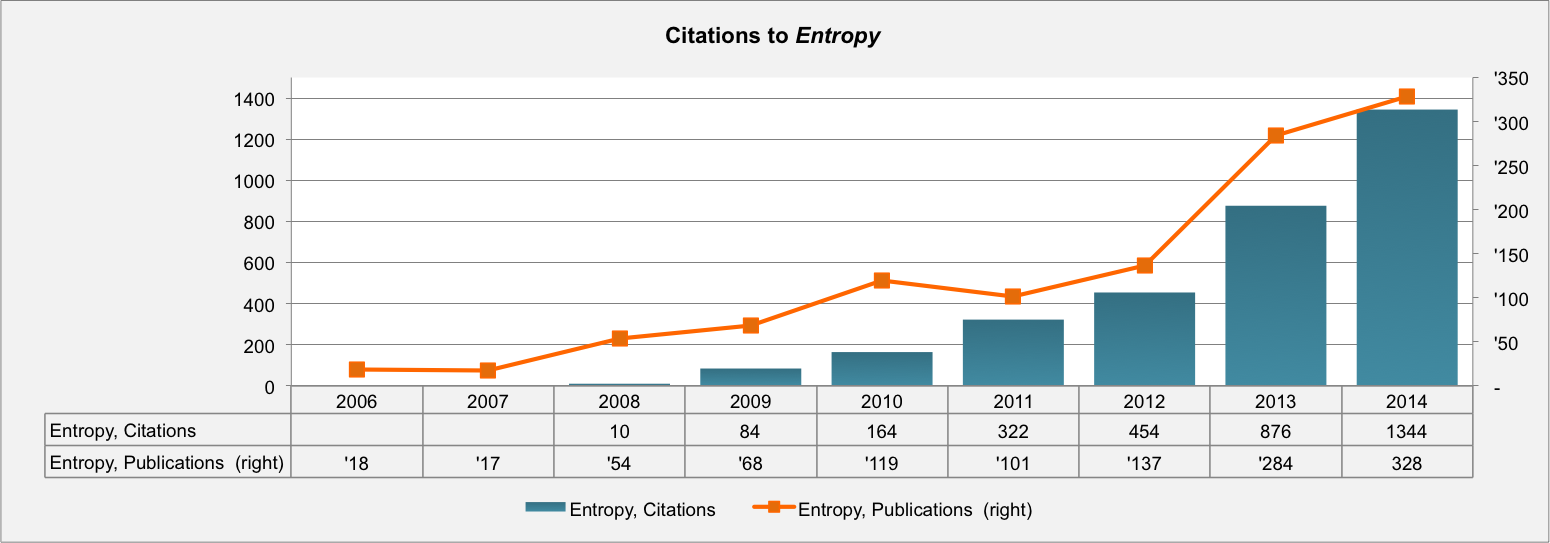




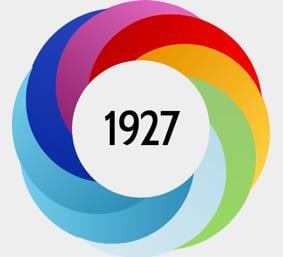
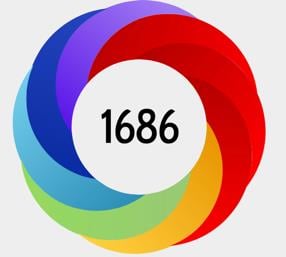
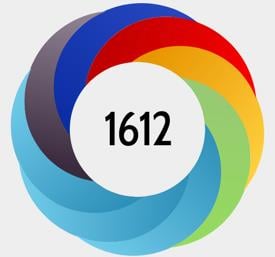
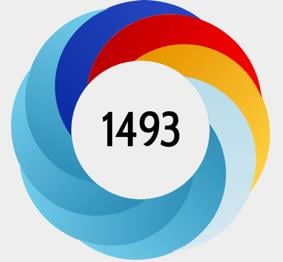
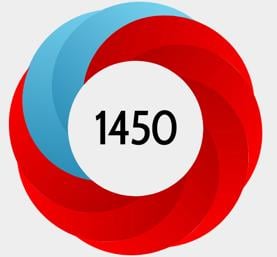
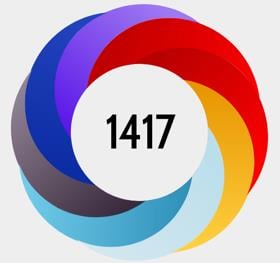
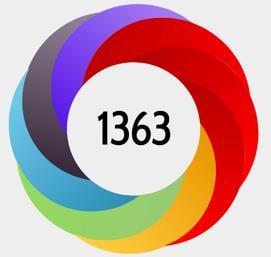
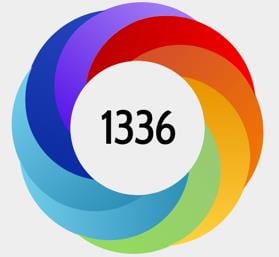
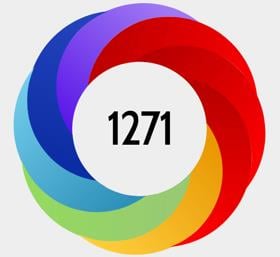
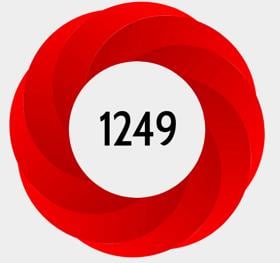




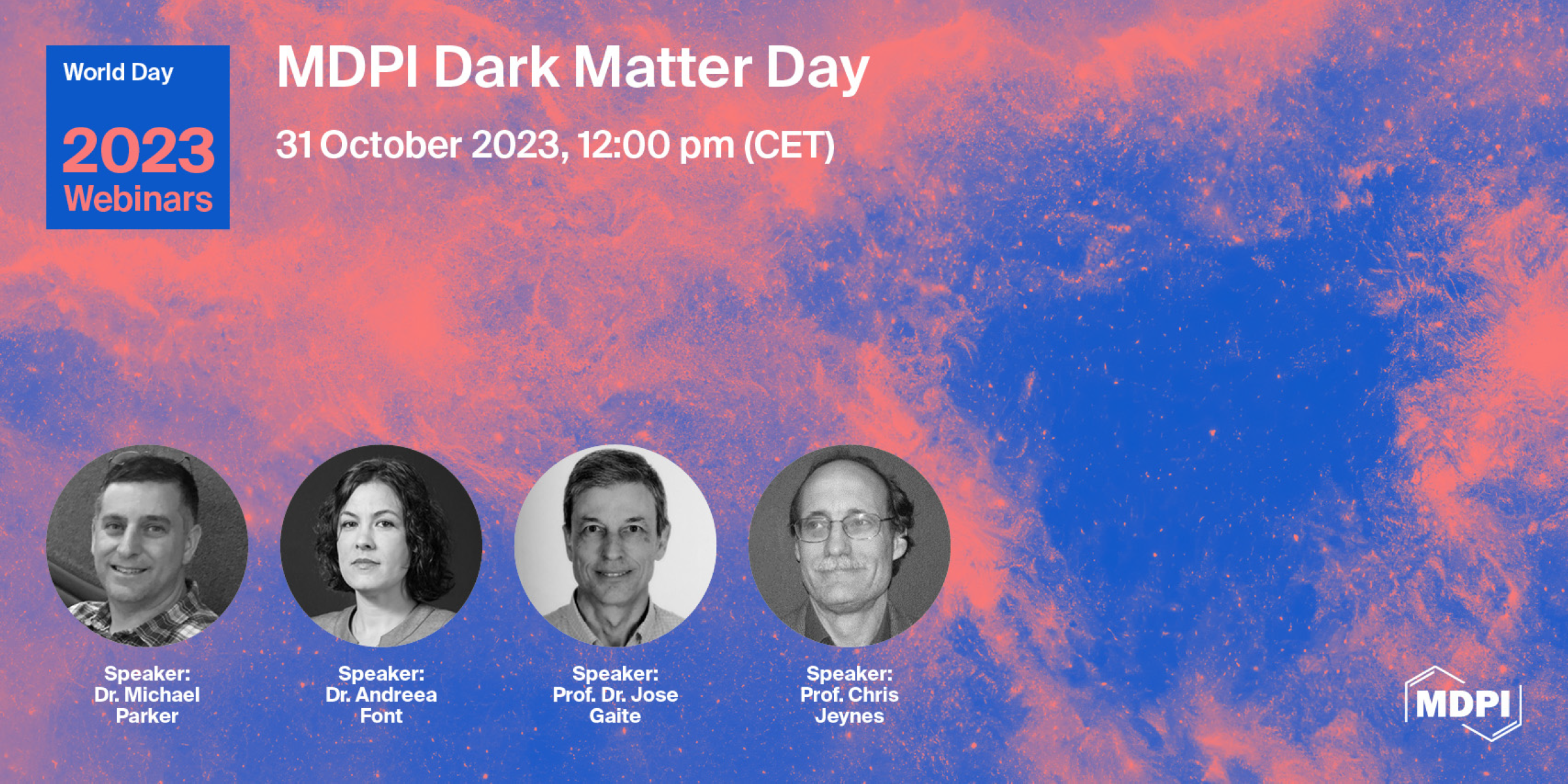








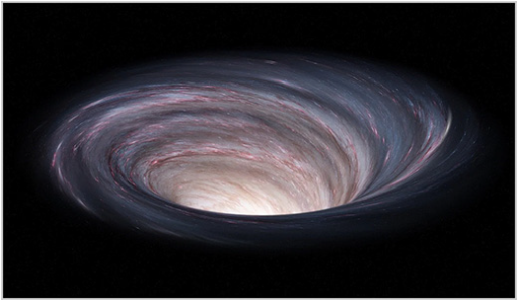

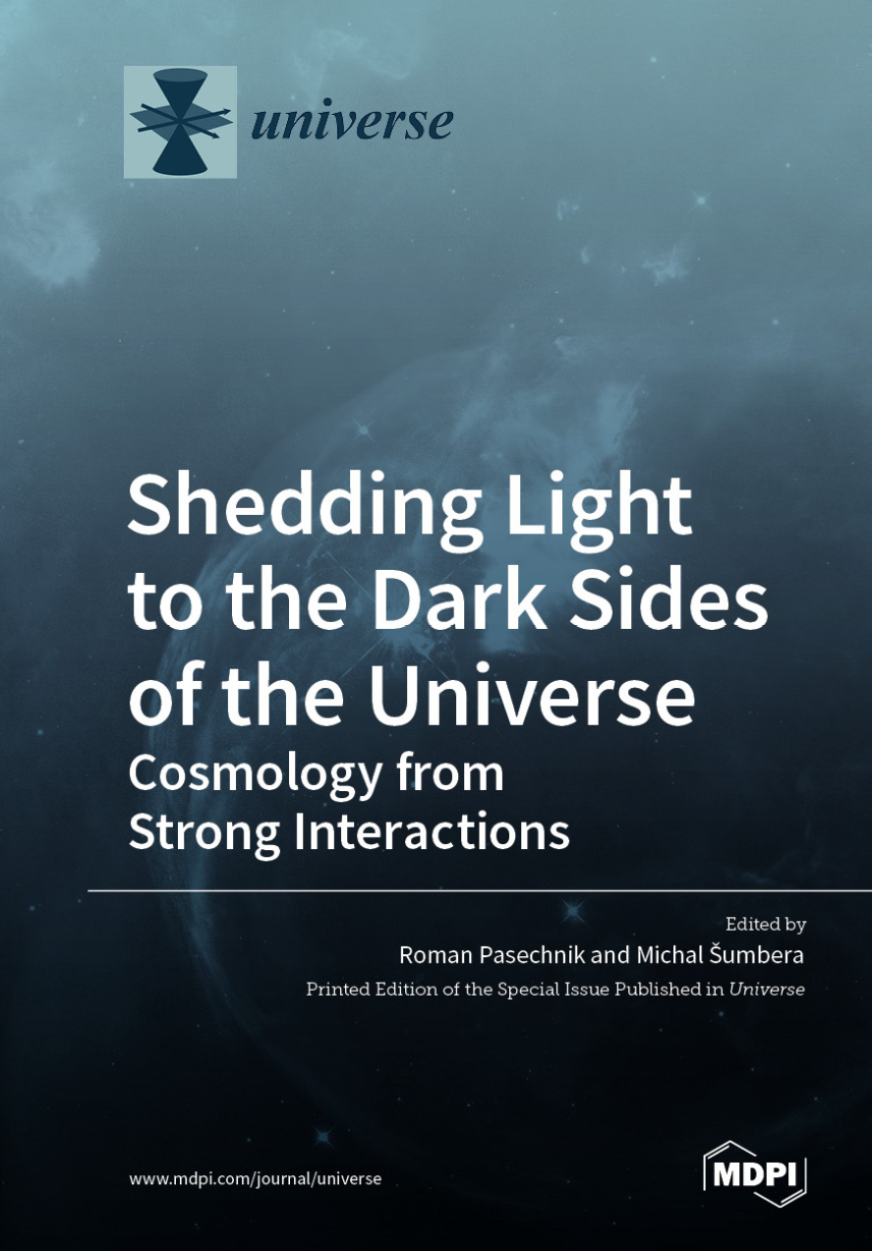
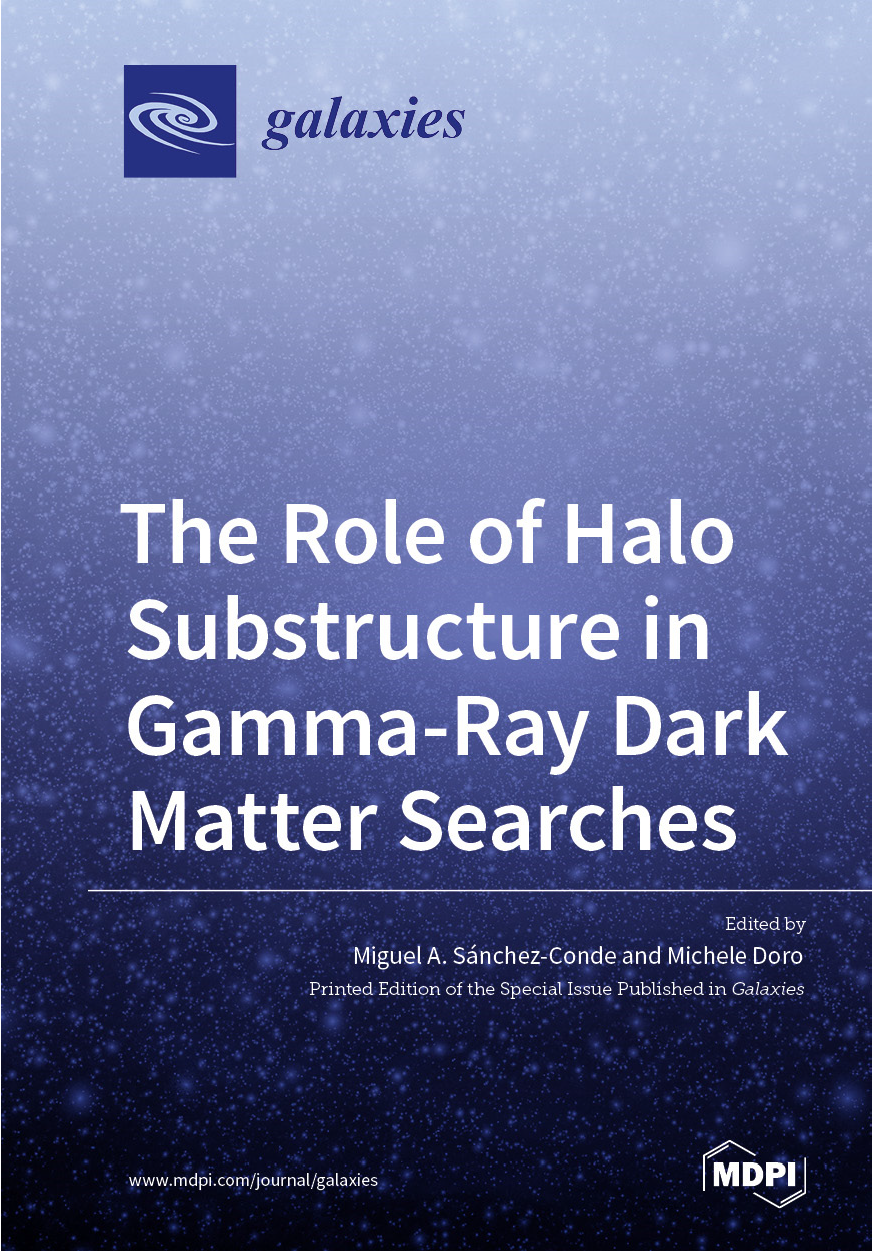













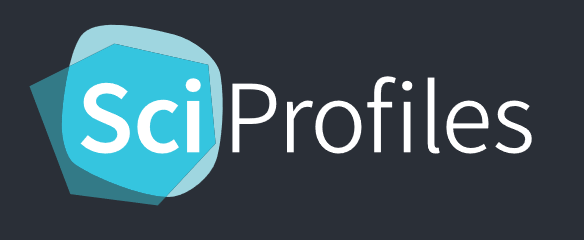

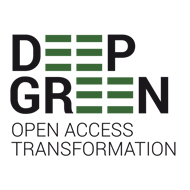
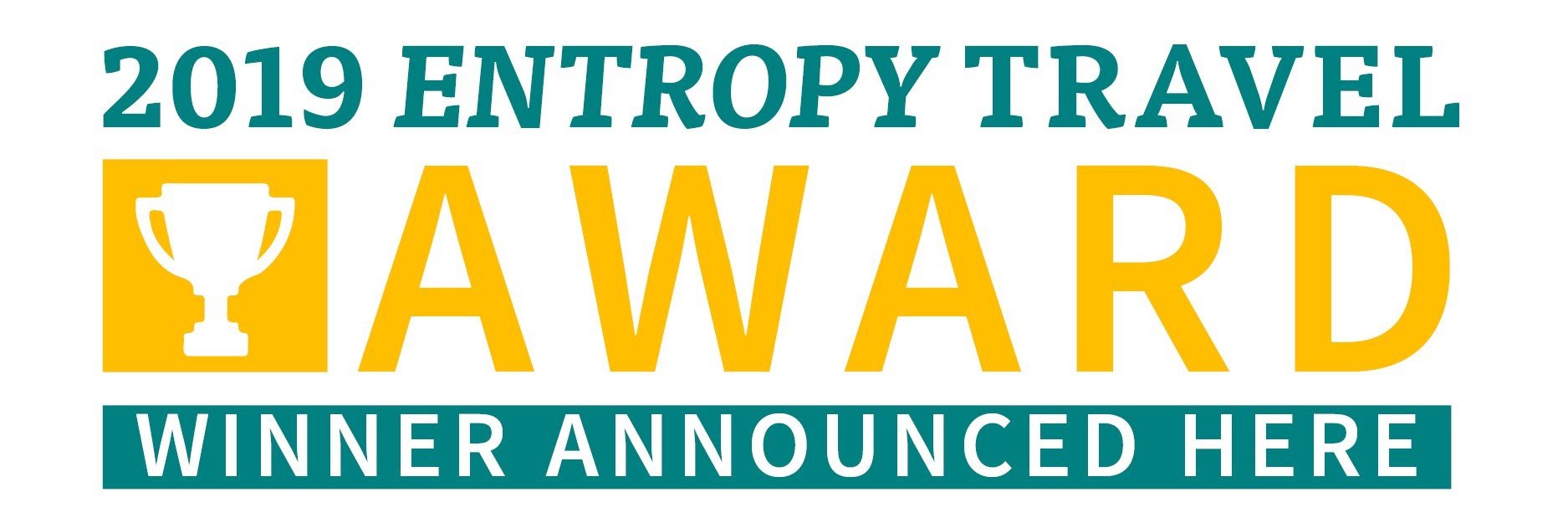
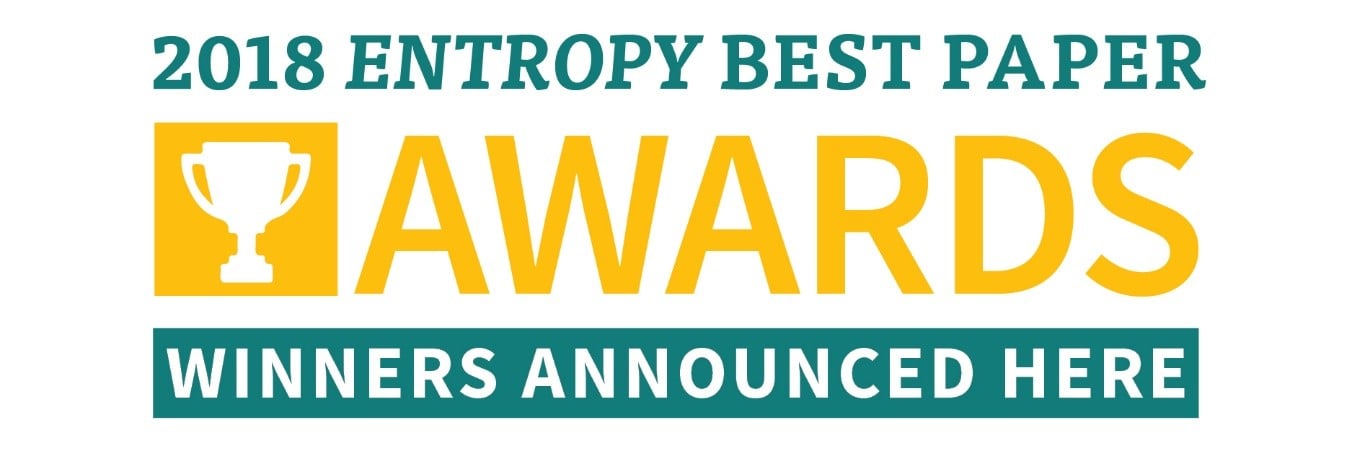
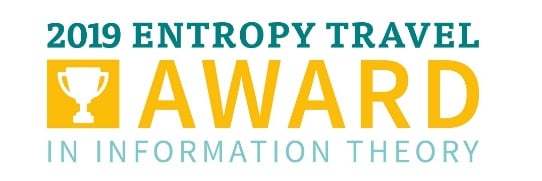
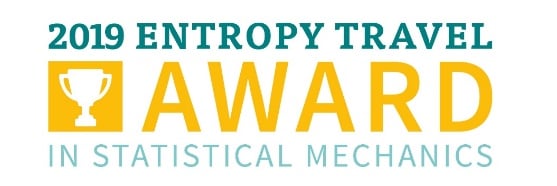
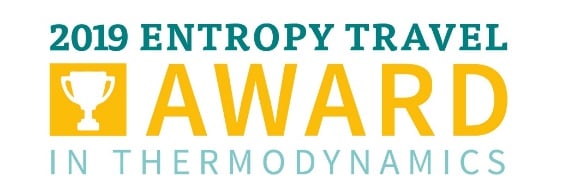




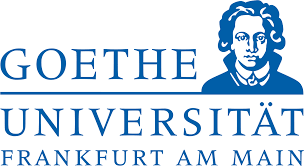
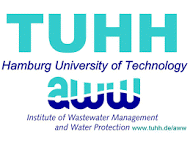




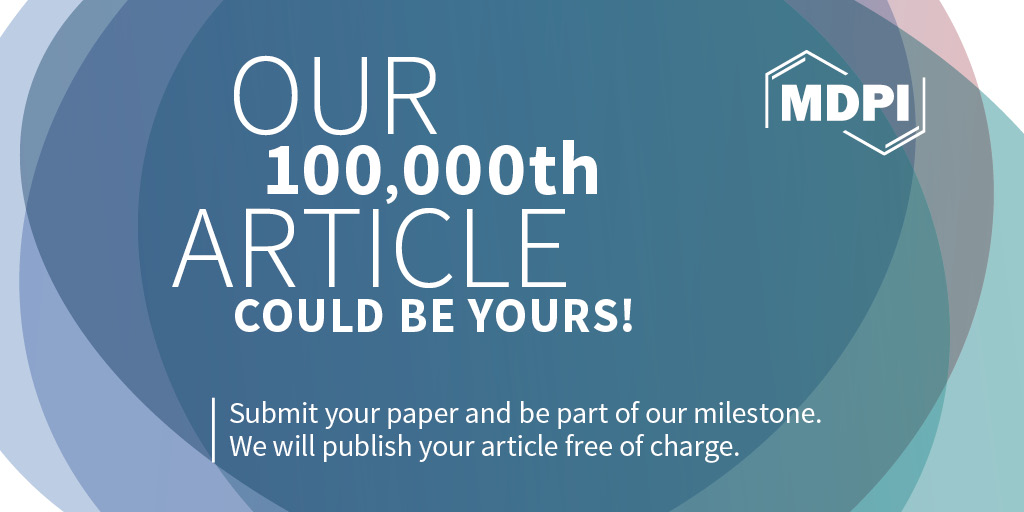

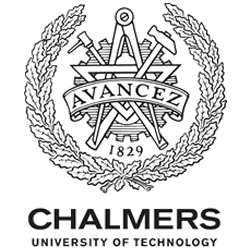
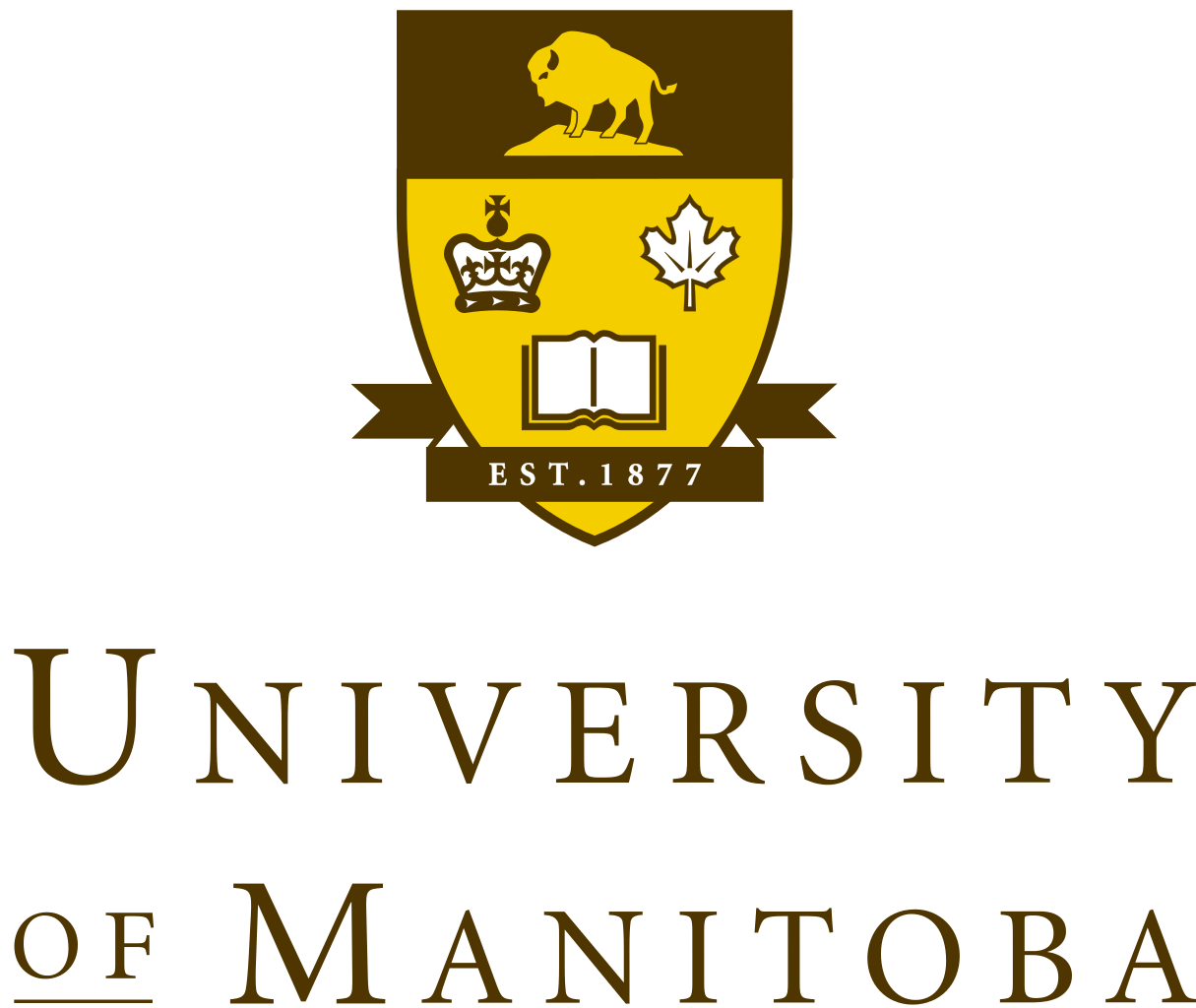
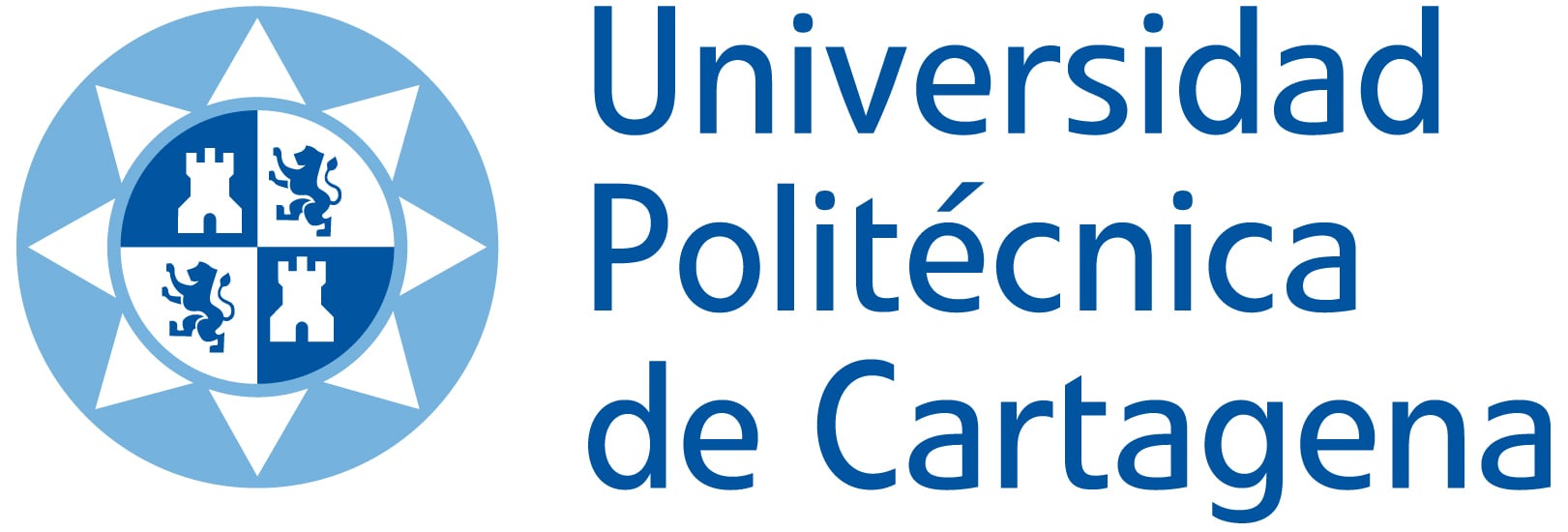
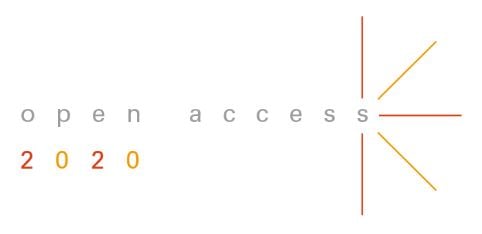

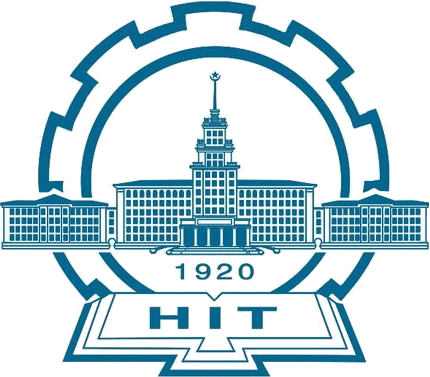

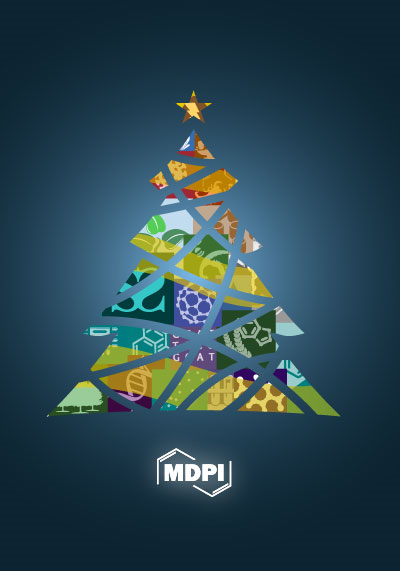


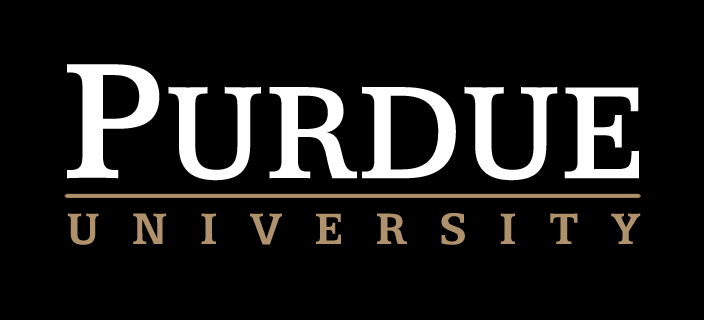


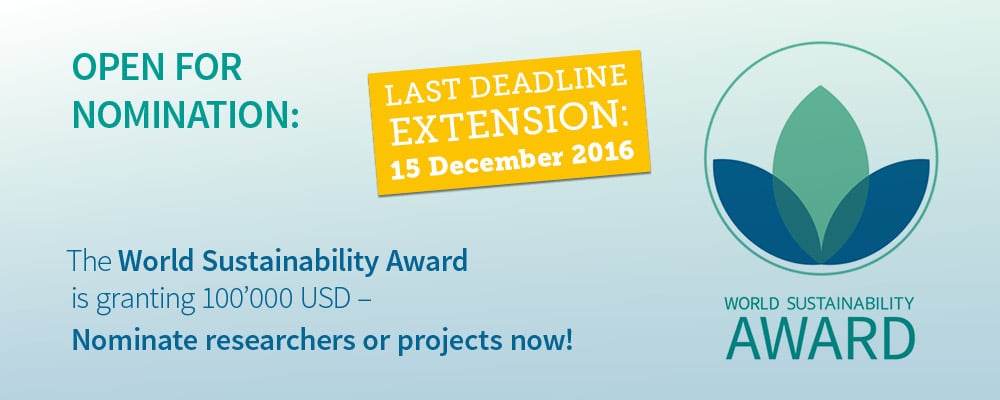



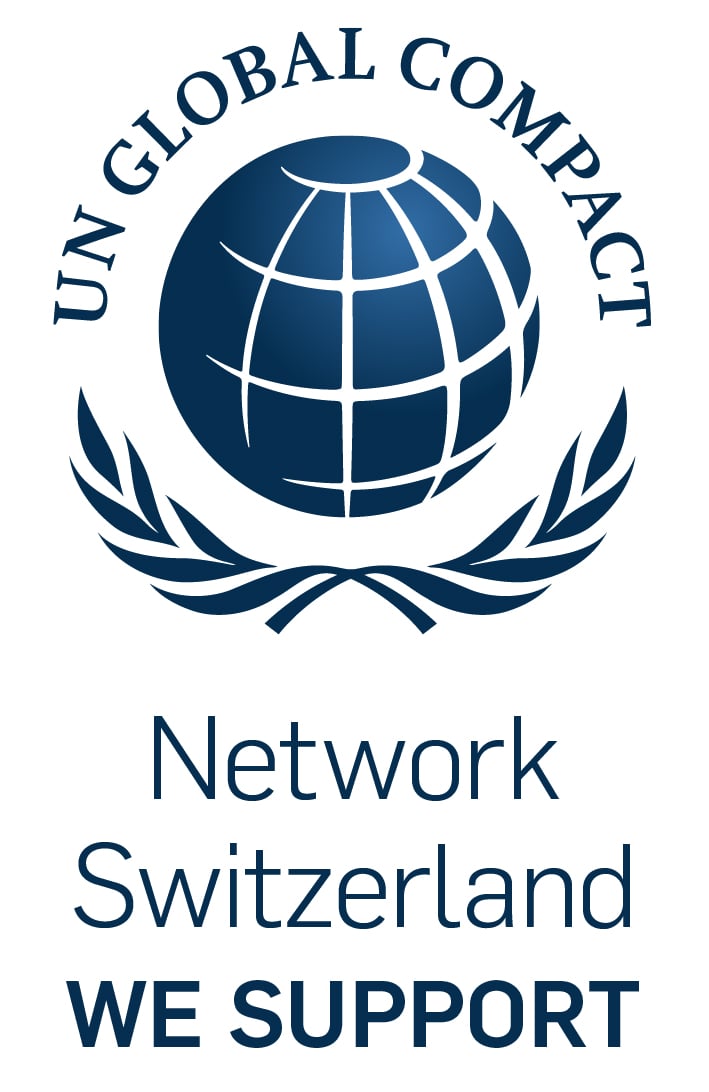
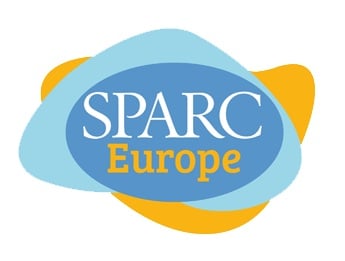
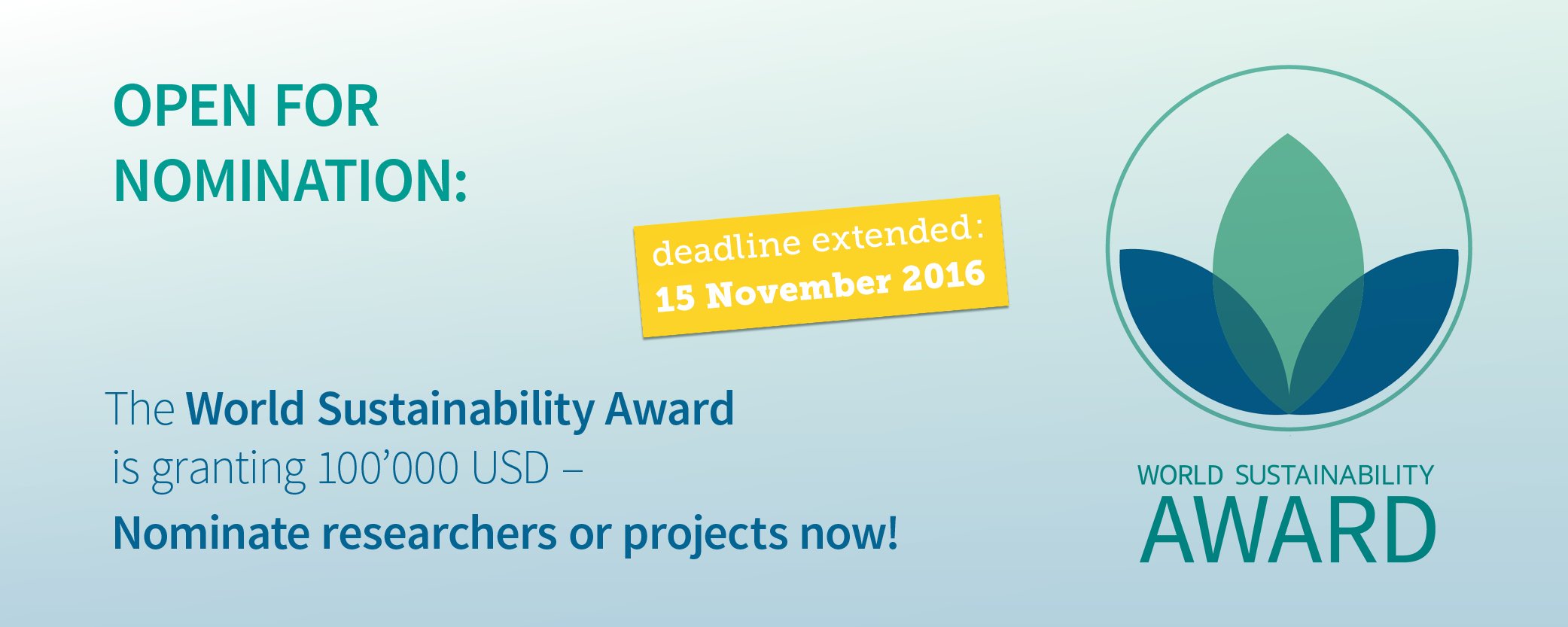 .
.